Each created page has a specific layout, like 1 column with and without a header, 2 columns, 3 columns. The chosen layout contains various content areas. In each area you can place 1 or more content items of various kinds like:
Within these content areas you can sort the content items by means of drag & drop.
You can make an unlimited number of pages and structure them hierarchical. Your page structure can be displayed in a multi level menu in your website.
This is a second HTML text content item in the left column
Content is an extendible module. You can create your own content plugins and layouts and other Zikula modules can also offer content items. The News published module for instance has a Content plugin for a list of the latest articles.
»No matter what your needs, Zikula can provide the solution.«
$this->doAction($var); // just some code
So you see that you can place all kinds of content on the page in your own style and liking. This makes Content a really powerful module.
This page uses the 2 column (62|38) layout which has a header, 2 colums with 62% width on the left and 38% width on the right and a footer
The Society for the Study of Evolution was founded in March, 1946. The objectives of the Society for the Study of Evolution are the promotion of the study of organic evolution and the integration of the various fields of science concerned with evolution. The Society publishes the scientific journal Evolution and holds annual meetings in which scientific findings on evolutionary biology are presented and discussed.
Nominate yourself or someone else for SSE Council. Officer nominations submitted by April 1 will receive full consideration by the nominating committee for that year's election cycle. Nominations for the Editorial Board submitted by July 1 will receive full consideration for that year's nomination cycle. ![]()
For an overveiw of Council member duties, committee activities, and awards, review the Handbook for SSE Council and Committee Members.

COUNCIL | STANDING COMMITTEES | MULTI-SOCIETY COMMITTEES | PAST OFFICERS
For additional contacts, visit our Contact Us page.
+ denotes voting members
* denotes Executive Council member
(Defined by the SSE Constitution, Article 4)
|
President +* |
President-Elect +* |
|
Past President +* |
Executive Vice-President +* |
| Secretary +* Amber Rice Department of Biological Sciences Lehigh University secretary [at] evolutionsociety.org |
Treasurer + Jeff McKinnon Department of Biology East Carolina University treasurer [at] evolutionsociety.org |
|
North American Vice-President + |
Non-North American Vice President + |
|
Editor-in-Chief, Evolution +
Jason Wolf Milner Centre for Evolution j.b.wolf [at] bath.ac.uk
|
|
Councilors |
|
| Councilors (2023-2025) + | |
|
Danielle Edwards |
Katie Wagner Department of Botany University of Wyoming amr511 [at] lehigh.edu |
| Councilors (2024-2026) + | |
|
Nancy Chen |
Martha Muñoz Department of Ecology & Evolutionary Biology Yale University martha.munoz [at] yale.edu |
| Rosa Sánchez Guillén Instituto de Ecología A.C. Xalapa, Veracruz, México rosa.sanchez [at] inecol.mx |
|
| Councilors (2025-2027) + | |
|
Kathleen Kay |
Mariana Nery Department of Genetics, Evolution, Microbiology, and Immunology State University of Campinas (UNICAMP) marinery [at] unicamp.br |
| Brandon Ogbunu Department of Ecology and Evolutionary Biology Yale University brandon.ogbunu [at] yale.edu |
|
Other Voting Council Members |
|
| GSAC Co-Chair + Rujuta Vaidya Louisiana State University gsac [at] evolutionsociety.org GSAC Co-Chair Shirley Zhang Cornell University |
GSAC Past Chair + Haosu (Susu) Cong Department of Entomology Michigan State University |
* denotes Committee designated in Constitution or Bylaws
To learn more about the role and objectives of each committee, please consult the SSE Handbook for Council and Committee Members.
|
Diversity Committee diversity [at] evolutionsociety.org |
Education & Outreach Committee |
|
Ethics Review Committee * |
Finance Committee * |
|
Graduate Student Advisory Committee (GSAC) GSAC [at] evolutionsociety.org |
International Affairs Committee
|
|
Nominating Committee * |
Public Policy Committee |
| Code of Conduct Committee Evolution Meeting Brian O’Meara (SSB, Chair) Andrea Case (SSE) Elizabeth Carlen (SSE) Safe Evolution Website |
Inclusiveness, Diversity, Equity, and Access (IDEA) Award Selection Committee Jessica Light (SSB, Chair) Vince Formica (ASN) Susana Wadgymar (SSE) TBD (ASN Student Representative) IDEA Award Webpage |
| Joint Meeting Committee Alex Wong (Co-chief Meeting Officer) April Wright (Co-chief Meeting Officer) Tara Pelletier (Assistant Meeting Officer) Mike Wiser (Assistant Meeting Officer, Virtual) Aditi Pai (SSE representative) Tracy Heath (SSB representative) Mark McPeek (ASN representative) Howard Rundle (SSE EVP) Evolution Meeting Website |
Evolution Letters Oversight Committee Jacintha Ellers (ESEB) (Chair) Amber Rice (SSE Secretary) Andrew McAdam (SSE) Rhonda Snook (ESEB) Thomas Flatt (Member-appointed) |
View past officers and editors on this pdf.
The wide gap that existed in the first third of the 20th century between genetics on one hand, and taxonomy and paleontology on the other, began to narrow down in the 1930's to such an extent that representatives of both groups began to see that there was no fundamental conflict between their views. It was particularly in regard to the study of evolution that an area of understanding and mutual interest developed. Julian Huxley suggested to several participants of the AAAS meeting at Columbus, Ohio, in December, 1939 (Dobzhansky, Epling, and Mayr), that a society be formed including members of the various fields interested in speciation. Dr. Alfred E. Emerson of the University of Chicago undertook to organize an informal Society for the Study of Speciation and issued a number of mimeographed bulletins. Owing to war conditions, this society never became formally organized. Shortly afterwards, a parallel movement started under the initiative of Professor Walter Bucher of Columbia University at whose recommendation the National Research Council established on February 6, 1943, a Committee on Common Problems of Genetics, Paleontology and Systematics. This committee held two discussion meetings in the summer of 1943, one of a group consisting primarily of botanists at Berkeley (University of California) on June 14-16, and the other one consisting primarily of animal paleontologists and geneticists at the American Museum History in New York on July 24-25. Since further such meetings were impossible owing to wartime travel difficulties, it was decided to continue an exchange of ideas among members of the Committee through correspondence. Copies of these letters were gathered and issued in mimeographed bulletins under the editorship of Dr. Ernst Mayr. Six such bulletins were issued, four of which contained a discussion of numerous evolutionary problems.
The work of the Committee revealed that such a keen interest in the problems of evolution that it was felt that a larger and more permanent organization was needed than a temporary Committee of the National Research Council. This was particularly true in view of the obvious need for a journal that would include evolutionary studies from the diverse fields of biology and thus help to bridge the gaps between them. Informal correspondence between Professor Dobzhansky, Dr. Simpson, Dr. Mayr, and other members of the Committee, revealed much enthusiasm for such a journal, as well as for a society that would support it. Dr. Emerson suggested that the dormant Society for the Study of Speciation should join forces with the National Research Council group in the establishment of a Society for the Study of Evolution. An organization meeting was held in St. Louis on March 30, 1946, at which Dr. Emerson presided. At this meeting, attended by fifty-seven biologists, the Society for the Study of Evolution was officially founded, a tentative policy adopted, and a slate of officers elected. The officers of the first year were the following:
President: G. G. Simpson
Vice Presidents: E. B. Babcock, A. E. Emerson, and J. T. Patterson
Secretary: E. Mayr
Treasurer: K. P. Schmidt
Council: E. R. Dunn, H. J. Muller, Sewall Wright, G. L. Jepsen, Th. Dobzhansky, and R. Chaney
Over 500 members joined the Society during the first year of its existence, and on the occasion of the First Annual Meeting in Boston, December 28-31, 1946, the Society felt sufficiently well established to authorize publication of a research journal in the field of evolution. In a wave of enthusiasm and optimism the Council voted to publish 1500 copies of the Journal. Thanks to this decision the Society lived for years on the sale of back copies. A grant had been awarded to the Society by the American Philosophical Society to make this publication possible. At this same meeting, a constitution was also adopted by the Society.
Despite considerable interest in assuming control of the American Naturalist the Society decided to found a new journal. Some of the older members wanted the word "Organic" included in the Journal title but in the final vote the title "Evolution" won out, not only for its simplicity but also because it corresponded to Ecology and Genetics. Several long defunct journals had that same name and efforts to avoid legal difficulties included leters to the former publishers all of which were returned for a "better address". During the fall of 1946 six firms were invited to submit bids for the printing. All but Lancaster Press declined to submit a serious bid because of the post war printing backlog and the great paper shortage. Additionally there was a shortage of suitable manuscripts and at least one paper was written just to fill an issue. There was strong support from the very beginning to have the journal as international as possible. Indeed the editorial board included distinguished evolutionists from abroad.
Following policies established during its first year of existence, the function of the Society is to promote the study of organic evolution in all its aspects. The Society is a common meeting ground for representatives of all fields of science concerned with organic evolution, including genetics, paleontology (vertebrate, invertebrate, plant), taxonomy (animal, plant), ecology, anthropology, and others. The journal EVOLUTION is established in order to stimulate evolutionary research and to bring its results together in readily accessible form. A journal broadly devoted to the particular subject of evolution will help to counteract the previous extreme scattering of pertinent literature, which has handicapped evolutionary study by the tendency to confine results within numerous different narrowly specialized groups. The journal will not publish taxonomic monographs or other descriptive studies properly addressed to a more specialized audience, but it will encourage the expression of the evolutionary significance of such material and will make this available to the broader group of students of evolution in general. Research primarily directed toward various evolutionary problems will also be encouraged.
The aims of the Society, through its journal and otherwise reflect the conviction that the evolutionary approach will clarify many unsolved biological problems and will provide common goals and mutual comprehension among all the life sciences.
E. Mayr
Read more about the founding of the Society for the Study of Evolution:
"Disciplining Evolutionary Biology: Ernst Mayr and the Founding of the Society for the Study of Evolution and Evolution (1939–1950)" by Vassiliki Betty Smocovitis
"Organizing evolution: Founding the society for the study of evolution (1939–1950)" by Vassiliki Betty Smocovitis
View past elected representatives on this pdf.
Adopted December 29, 1946, Boston; Revised December 29, 1947; December 27, 1949; October 15, 1953; April 8, 1955; September 2, 1958; November 27, 1959; April 28, December 29, 1960; August 1, 1961; August 19, 1965; June 20, October 1, 1968; June 21, 1985; January 1, 1986; January 1, 1991; January 1, 1992; June 20, 1998; June 23, 1999; January 1, 2000; June 23, 2006; March 1, 2007; February 15, 2009; June 12, 2009; July 7, 2016; January 1, 2018; January 1, 2020; September 29, 2020; December 11, 2020; May 9, 2022; November 22, 2022; January 1, 2024
CONSTITUTION
Article 1. The organization shall be called "Society for the Study of Evolution, Inc" and referred to as the “Society.”
Article 2. The object of the Society shall be the promotion of the study of biological evolution and the integration of various fields of science concerned with evolution.
Article 3. The Society has voting Members with rights and privileges as specified in the Bylaws.
Article 4. The officers of the Society shall include President, President-Elect, Past President, Executive Vice-President, two Vice-Presidents, Secretary, Treasurer, and Editor-in-Chief of the journal Evolution. Officers and offices shall be elected or appointed according to the Bylaws for the Society.
Article 5. Governance and management of the Society shall be vested in a board of directors known as the “Council.”
Article 6. The time and place of the annual meeting of the Society shall be determined by the Council.
Article 7. Amendments to the Constitution may be proposed in writing by any member to the Secretary, who shall submit them to the Council for consideration and vote. Such proposed amendments as have been approved by the Council shall be submitted to the members for a vote and may be adopted by a favorable vote of the majority of the members voting.
Article 8. The fiscal year, tax year of the corporation, and terms of office are January 1 to December 31 unless otherwise specified in the Bylaws.
Article 9. The Society shall have no capital stock. No member shall be entitled to receive as dividends, profits, or otherwise, any property or money derived from the operation of said Society, but all property earnings and income of the Society, after the payment of necessary charges and expenses of operations, shall be used exclusively to carry out the scientific and educational purposes of the Society as expressed in Article 2 of the Constitution.
Article 10. SSE solicits and accepts gifts for purposes that will help the organization further and fulfill its mission. SSE will not accept gifts that (a) would result in the society violating its corporate charter, (b) would result in the society losing its status as an IRC § 501(c)(3) not-for-profit organization, (c) are too difficult or too expensive to administer in relation to their value, (d) would result in any unacceptable consequences for SSE, or (e) are for purposes outside SSE’s mission. Decisions on the restrictive nature of a gift, and its acceptance or refusal, shall be made by the Council.
ARTICLE I. PURPOSE
Section 1. Purpose. The purposes of the Society for the Study of Evolution, Inc. (the “Society” hereafter) are exclusively those allowed for organizations defined under §501(c)(3) of the United States Internal Revenue Code. Within these limits, the purposes of the Society include the promotion of the study of organic evolution and the integration of the various fields of science concerned with evolution.
Section 2. Vision. The Society aspires to advance knowledge of evolutionary biology for the benefit of science and society and to cultivate and support a global community of evolutionary biologists.
Section 3. Mission. The Society promotes evolutionary biology research, education, application, outreach, and community building in an equitable and globally inclusive manner.
ARTICLE II. MEMBERS
Section 1. Membership. Any person who is interested in the study of evolution, who supports the purpose and mission of the Society, and who upholds the Society's values, is eligible for membership.
Section 2. Member Categories. The Council may, by resolution, establish, eliminate, or define categories of membership. All categories of membership include electronic access to the journal of the Society (Evolution), the right to vote in Society elections, and all other privileges of membership. Membership categories may include: Student, Postdoc, K–12 Educator, Emeritus, Family, Regular, and Life. Members may belong to more than one category.
Section 3. Powers and Purpose of Members. Members have the power to vote for Society Council members and Officers. Members do not have the power to make or approve the Society budget or take actions reserved for the Council or Officers. Members attend the Annual Meeting and the Annual Business Meeting. Some membership categories may have special or exclusive membership rights. The purpose of the Membership is to participate in Society-sponsored activities and opportunities, engage as an academic community, and participate in elections.
Section 4. Selection of Members. Membership shall be automatically approved following a determination that the applicant has paid any required dues, agrees to uphold the Society's Code of Ethics, and satisfies any other qualifications required for membership.
Section 5. Records of Members. The Secretary shall ensure that the Society maintains a current and formal record of the names, contact information, and status of Members.
Section 6. Conduct of Members. The Council may define general or specific standards of professional and personal conduct that all Members or other participants are expected to respect, honor, and model, when involved in Society meetings, business, initiatives, or any other activity. These standards shall include a Society Code of Ethics and a Meetings Code of Conduct, together with such enforcement policies as deemed appropriate.
Section 7. Suspension or Removal of Members. A Member may be suspended or expelled from the Society for serious misconduct that adversely affects the interests or reputation of the Society, violations of the Society Code of Ethics, or for any other reason. Suspended Members may be reinstated through an application to the Ethics Review Committee that satisfactorily explains reasons for reinstatement.
Section 8. Resignation of Members. Any member may resign at any time by sending or delivering a written resignation to the Secretary. Prorated dues may not be refunded.
Section 9. Dues. Annual dues shall be determined by the Council and will include a subscription to the journal Evolution. Payment shall be due January 1. Members who have not paid their dues by January 1 shall be dropped from the rolls. The dues for Life membership shall be twenty (20) times the Regular membership rate.
ARTICLE III. COUNCIL
Section 1. Council Members and Purpose. The Council (a “board of directors” in operation, responsibility, and authority) shall be the managing and governing body of the Society. The Council shall determine matters of publication policy, formulate and modify program rules, fill temporary vacancies among officers, appoint Editors and Associate Editors of Evolution, set and approve the annual budget, review expenditures, and conduct other business as required.
Section 2. Qualifications of Council Members and Composition of the Council. Nominees for positions on the Council must have demonstrated a commitment to the mission and purposes of the Society and a commitment to uphold the Society's Code of Ethics. There shall be two classifications of Council Member (also known as “Councilor”): Member-Elected Councilor and Council-Appointed Councilor. No individual shall simultaneously hold two Member-Elected positions on Council. In the event that a sitting elected Council Member is elected to a second position, their prior position will be considered vacant. Member-Elected Councilors shall be eligible for re-election one year after vacating their previous position.
Section 3. Number of Voting Council Members. The voting members of Council shall consist of the Officers (Article IV), up to nine (9) at-large Member-Elected Councilors, and two (2) Council-Appointed Councilors represented by the Chair and Past-Chair of the SSE Graduate Student Advisory Committee (GSAC).
Section 4. Terms. At-large Member-Elected Councilors serve three-year terms. Councilors assume office on January 1. Unless they resign or are removed from office, the Council may authorize Councilors to remain in office until their successors are properly elected, designated, or appointed, for up to a maximum period of one term. Member-Elected Councilor terms are staggered such that a maximum of three Councilors are on the Members’ annual ballot.
Section 5. Selection of Voting Council Members. Society Members elect the at-large Councilors and Officers (Art. IV). Elections are held annually and include Officer or Member-Elected Councilor seats due to become vacant at the end of the calendar year. Election slates are developed by the Nominating Committee (Art. VI) and approved by the Council. All members in good standing at the time of the issuing of ballots shall be eligible to vote. In the event that an election for Councilor results in a tie for winner, the three Presidents presiding before the election (President, President-Elect, Past-President) shall decide upon the outcome between the two top vote-getters by majority vote. The Council annually appoints the GSAC Chair-Elect as a Non-voting Advisor and as the successor to the current GSAC Chair.
Section 6. Removal of Council Members. Any Member-Elected Councilor may be removed with or without cause by a Society Members’ vote or by the Council on the recommendation of the Ethics Review Committee. Proper notice of a Society Members’ vote must be given in advance, as required for an annual membership meeting, or for a regular meeting of the voting members, or as required for a special meeting of the voting members, whichever is appropriate, stating that the removal of a Councilor is to be considered. The Council may remove any Councilor appointed by the Council. When a Councilor is removed, any Society office held by that Councilor is immediately vacated.
Section 7. Resignation of Voting Council Members. A Voting Council Member may resign at any time. The resignation of a Councilor must be in writing and be delivered to the Council, a President, or the Secretary. Once delivered, a notice of resignation is irrevocable. When a Councilor resigns, any Society office held by that Councilor is immediately vacated.
Section 8. Filling Vacancies on Voting Council. In the event of a vacancy on Council that will have a duration of more than one year, the Nominating Committee may be charged with nominating one or two candidates to fill the vacant position and serve as interim for the remainder of the term. This interim appointment will then be made by majority vote of Council and will begin immediately following the appointment. For vacancies that will have a duration of less than one year, the position on Council may remain vacant if so agreed by majority vote of the Council.
Section 9. Quorum for Conducting Council Business. At all meetings of the Council, the presence or participation by phone or other conference communication forum, of a quorum, which is at least two thirds of the number of voting Council members (which does not include Non-Voting Advisors) in office immediately before the meeting begins, is necessary to allow the transaction of corporate business or the making of corporate decisions. Non-Voting Advisors do not count toward the number needed for a quorum nor are they counted in the quorum.
Section 10. Decision-Making and Voting by Council. The Council must diligently and conscientiously attempt to make decisions by consensus. They must employ all standard consensus practices and techniques including the expression and careful consideration of minority views. Consensus decisions must be recorded in the written minutes. When a consensus apparently cannot be achieved, any Councilor may request and require that a vote be taken.
Decisions that are not obtained by consensus require a clearly stated motion by a Voting Councilor (a Member-Elected Councilor or a Council-Appointed Councilor), a second by a Voting Councilor, and a vote by the Voting Councilors that must be recorded in the written minutes. Each member of the Voting Council will have one vote. At the request of any Voting Councilor, the names will be recorded in the minutes of each Councilor who voted for, voted against, or abstained on a particular motion. Non-Voting Advisors may participate in discussion, but do not make motions, second, or vote on any Council motions.
The three Presidents break ties when they arise in any Council vote, reaching a decision through discussion amongst themselves and a vote, if necessary. Ties in these Presidential votes withdraws the motion.
Section 11. Proxy Voting. Proxy voting is not allowed at any meeting of the Council or as part of reaching any decision of the Council.
Section 12. Telephonic and Video Meetings. Realtime meetings may be held by telephone, video teleconference, or other distance method, so long as all participating Councilors may simultaneously hear and speak with each other. A Councilor participating in such a meeting is deemed present for purposes of a quorum.
Section 13. Decisions Without Meetings. The Voting Council may make any decision or take any action within its power without a meeting through a written resolution that sets forth the action so taken. The resolution is effective when a majority of the voting Councilors have voted in the affirmative. The resolution may be sent or transmitted by any medium in which a written record of the resolution, its recipients and their votes is retained.
Section 14. Voting Council Meetings. The Voting Council must meet at least two times per year, and shall strive to do this by meeting at least once every six months or so. One of these meetings should take place during the annual membership meeting. Only Voting Council Members, Non-voting Advisors, and others invited by the President may attend Council meetings. The President chairs Council meetings. Council meeting minutes are not published and are only open to current and future Councilors. A President-approved summary of Council decisions may be published following the meeting.
Section 15. Notice of Council Meetings. Notice must be given to every Councilor of every meeting of the Council, stating the date, time, and location (physical or electronic) of the meeting, and the purpose of the meeting if so required by law or these Bylaws. The notice must be given not less than seven days in advance of the meeting and can be delivered by telephone, in person, mail, email, text, fax or any other acknowledged contact provided by the Councilor.
After the initial notice is given of the schedule for a single or series of regular Council meetings, which will occur at a fixed time and place (physical or electronic), no further separate notice is required for each of those meetings. The Council may, by resolution, establish or change the dates of regularly scheduled Council meetings, with proper notice given to all Councilors.
Section 16. Waiver of Notice. Any Councilor may waive the right to receive full advance notice of any meeting. Waivers of notice must be in writing, signed by the person entitled to notice, and must be given to the Secretary to be placed in the corporate records. Waivers may be signed before or after the meeting has taken place. The attendance of a Councilor at any meeting without specific objection to the notice constitutes a waiver of the full notice of that meeting.
Section 17. Authority of Council Members. No Councilor, Officer, staff member, or representative may communicate or act on behalf of the Society without specific or general authorization by the Council.
Section 18. Conduct of Council Members. Councilors must discharge their duty of loyalty and their duty of diligence in good faith with the care an ordinarily prudent person in a similar position would exercise under similar circumstances and in a manner the Councilor reasonably believes to be in the best interest of the Society. Councilors are also subject to the same personal and professional conduct expectations and directives as Members. Content of any Council discussion should not be shared outside the Council without permission.
ARTICLE IV. OFFICERS AND OTHER OFFICES
Section 1. Officers. Officers are members of the Council and hold a Member-Elected Councilor or Council-Appointed Councilor seat. The Officers are Members of the Society and must carry out policies and decisions as directed by the Council. The Officers include President, President-Elect, Retiring Past-President, Executive Vice-President, North American Vice-President, Non-North American Vice-President, Secretary, Treasurer, and Editor-in-Chief of Evolution. The same person may not hold more than one office simultaneously.
Section 2. Other Offices. Other appointed offices of the Society may carry out duties as directed by the Council. Other offices may include Committee Chairs, Non-Voting Advisors, staff, or contractors. Other office assignments are made by the Council and serve at the pleasure of the Council. The Council may determine definition and specification for any office, including term, Society privileges, and Council meeting participation.
Section 3. Terms. Council Officer terms are three (3) years except for President-Elect, President, Past-President, all of which have one (1) year terms and the North American and Non-North American Vice-Presidents, both of which have staggered two (2) year terms. Official terms shall commence on 1 January of the year following the election, except that the term of the Editor-in-Chief for Evolution shall commence at the next Annual Meeting of the Council following their selection. The President-Elect shall be elected annually, and shall automatically become the President for the next year; similarly, the President automatically becomes the Past-President in the year following their term. The North American and Non-North American Vice-Presidents shall be elected biennially and are eligible for the same office one year after the expiration of their previous term. The Executive Vice-President, Secretary, Treasurer, and Editor-in-Chief shall be elected for terms of three (3) years and may be re-elected. Terms for Executive Vice-President, Secretary, and Treasurer are staggered such that no two are elected in the same year.
Section 4. Selection. As they are a class of Councilors, Officers are elected in the annual Councilor election per Article III Section 5.
The Council may create and fill any other office (see Article IV Section 2). But nomination of the candidate for the position of Editor-in-Chief of Evolution is the responsibility of a special-purpose ad hoc committee consisting of the President plus one member of the Evolution Editorial Board and one member of the Council (both appointed by the President). The Editor-in-Chief of Evolution shall be elected by the Council by secret ballot prior to January 1 of the year of editorial transition.
Section 5. Officer Vacancies and Rules of Succession. If any office (except President) of the Society becomes vacant by death, resignation, retirement, removal, disqualification, or any other cause, see Article III Section 8.
If the office of President becomes vacant, the position shall be filled by the President-Elect, who shall serve as President for the remainder of the current term and the following term as Past-President. If no President-Elect is available to fill a vacant President’s office, Council must appoint one within thirty (30) days of the Presidential vacancy.
If the office of Editor-in-Chief of Evolution is vacant, the three Presidents (past, acting, and president-elect) shall appoint an acting Editor-in-Chief until a successor is chosen according to Article IV Section 4.
Section 6. Officer and Other Office Duties.
President – The president is the principal officer of the organization and will, in general, supervise or oversee the supervision of all of the affairs of the organization. The president generally will preside at all meetings of the Council, unless the Council selects another person to preside. The president will also perform other duties as may be assigned by the Council. The president may serve as an ex-officio member of any committee. The President shall preside at scientific sessions, at the business and Council meetings, and shall appoint such committees as directed by the Council or prescribed by the Constitution and Bylaws. It shall be the privilege of the President to plan and arrange one symposium to be held at the annual meeting of the Society. The President also assists the Executive Vice-President and the Council in planning other symposia, including those to be co-sponsored by the Society in collaboration with other societies. The President cooperates with the President-Elect and Past-President in leading the Council and Society planning. The President appoints one new member of the three-member Nominating Committee each year. The President appoints members of the Education and Outreach Committee, Hamilton Award Committee, Diversity Committee, Public Policy Committee, and Finance Committee.
President-Elect – Cooperates with the other two “presidents” in leading the Council and Society planning. In the absence of the President or in the event of the President's inability to act, the President-Elect will perform the duties of the President. The President-Elect, when acting as President, will have all the powers of and is subject to all the restrictions on the President. Appoints members to the Ethics Review Committee, with approval of the Council.
Past-President - Cooperates with other two “presidents” in leading the Council and Society planning. Chairs the Presidents’ Award committee, which, when formulated, consists of the President, Past-President and President-Elect. Serves as chair of the Ethics Review Committee.
Executive Vice-President - The Executive Vice-President, in consultation with the President, shall be responsible for the administration, management and operation of the Society in accordance with the existing constitution, bylaws and policies. Is responsible for oversight of all business operations, financial management, publishing contracts, and general Society and conference activities. Nominates the next Executive Vice-President. Works with the Joint Meeting Committee in Annual Meeting Planning. Acts as signatory on meeting contracts. Assures that all contracts are approved by the Society’s legal advisor prior to signing. Oversees the Society’s financial books. Shall seek Council approval for expenditures above a Council-defined amount. Shall make a report to the Council at each Annual Meeting of the financials of the preceding fiscal year, an informal interim report for the current fiscal year, and a report of other programs and activities.
The Executive Vice-President, in conjunction with the Chief Meeting Organizer, shall conduct negotiations for sites for the annual meeting, appoint local committees, and distribute announcements of the meeting to members. The Executive Vice-President is authorized to contract clerical and accounting assistance when necessary.
The Executive Vice-President may receive a stipend during their term in office.
North American Vice-President - May be assigned a variety of tasks by the Council, often associated with award committee oversight. Representative to the Joint Meeting Committee.
Non-North American Vice-President - May be assigned a variety of tasks by the Council, often associated with award committee oversight. Chair of the International Committee.
Secretary - The Secretary will perform or oversee the performance of the following duties: a) record and keep the minutes of the meetings of the members and of the Council and of any committees; b) see that all notices are duly given in accordance with the provisions of these Bylaws or as required by law; c) be custodian of the corporate records; d) keep a register of the mailing address of each Member as provided by such Member; e) ensure that all required state and federal reports are prepared and filed in a timely fashion; and f) perform or oversee all duties incident to the office of Secretary and such other duties as from time to time may be assigned by the President or by the Council. The secretary may delegate some or all of these tasks but remains responsible for their proper completion.
The Secretary is responsible for communications within the Society, and manages all Society elections and ballots. At least 30-days before any election the Secretary shall send to members the official election slate and any other ballot initiatives. The Secretary shall tabulate the votes, report to the Council, and transmit names of elected officers to the editor of the Journal for publication. The Secretary shall communicate expectations and documents to all entering Council members and committee chairs.The Secretary shall inform committee members that they have been asked to serve on a Standing Committee or a Nominating Committee. Following the nomination of an Editor-in-Chief by the editor’s special nominating committee, the Secretary shall call for a secret ballot of the Council to elect the Editor-in-Chief. The Secretary is authorized to contract for clerical assistance when necessary with approval of the Executive Vice-President.
The Secretary is responsible for ensuring required reports are supplied to Council members before meetings.
The Secretary may receive a stipend during their term in office.
Treasurer - The Treasurer will perform or oversee the performance of the following duties: a) be responsible for the proper management and control of all funds of the Society; b) prepare full and accurate financial records on a timely basis of all the income, expenses and assets of the Society; c) present reports at every Council meeting on the financial affairs of the Society; d) provide financial information necessary to prepare and file the required reports to state and federal government agencies, showing the income, disbursements, and assets of the Society; and coordinate with the secretary to prepare a register of current voting Members. The Treasurer may delegate some or all of these tasks but remains responsible for their proper completion.
In consultation with the Executive Vice-President, the Treasurer shall manage the society budget and coordinate payments of invoices, grants, prizes, fees and reimbursements. The Treasurer shall provide a report to the Council one week prior to the annual meeting summarizing the current status of the Society's financial activities. The Treasurer is authorized to contract clerical and accounting assistance when necessary with the permission of the Executive Vice-President. The Treasurer shall submit in advance and present a report on the status of society business at the Annual Meeting.
The Treasurer is Chair of the Finance Committee.
The Treasurer may receive a stipend during their term in office.
Editor-in-Chief - The Editor shall be responsible for the editing and publishing of the Journal of Evolution and for the care of the reserve stock of the publications of the Society.
The Editor-in-Chief may receive a stipend during their term in office.
Committee Chairs – Committee Chair fill committee seats unless that right is assigned elsewhere. Chairs must act in good faith to execute the committee charge. They report quarterly to the Council
Non-Voting Advisors – Participate in Council meetings. Non-Voting Advisors may serve on committees and be assigned other duties by the Council. Non-Voting Advisors are not counted in Council quorum and do not participate in Council votes.
ARTICLE V. MEMBER MEETINGS AND VOTING
Section 1. Annual Membership Meeting. There must be an annual meeting of the Members (a.k.a. the business meeting). It will be held at a time and location determined by resolution of the Council. Annual Meetings may be virtual.
Written notice of the Annual Meeting must be sent by mail, e-mail, or other familiar method, to all Members, at the physical and electronic address provided by the Member or as it appears in the Society records, at least thirty (30) days in advance of the meeting.
At the annual meeting, Members will hear and consider reports from the Council, officers and staff concerning the activities, management and budget of the Society. Members may then vote on any matters for which proper notice was given. The failure to hold an Annual Meeting does not affect the validity of any Society action.
Section 2. Other Membership Meetings. Special meetings may be called by the President with the approval of the Council.
Section 3. Content of Notice. A single notice sent to the address provided by the Member, at least thirty (30) days in advance of the beginning of a meeting will be sufficient and no further notice is required so long as the meeting date and time which were announced do not change.The notice must contain the date, time, location and, when required, the purpose of the meeting. Notices of special meetings always require a statement of the purpose(s) for which the meeting is called.
Section 4. Waiver of Notice. Any member may waive the right to receive full advance notice of any meeting. Waivers of notice will be in writing, signed by the person entitled to notice, and will be given to the Secretary to be placed in the Society records. Waivers may be signed before or after the meeting has taken place. The attendance of a Member at any meeting without specific objection to improper notice will constitute a waiver of the full notice of that meeting.
Section 5. Record Date. The record date for determining the members entitled to receive notice of a meeting will be the day before the day on which the notice is sent. The record date to determine the members entitled to vote at a member’s meeting will be the date of the meeting.
Section 6. Quorum for Membership Meetings. A quorum will consist of the presence, participation by conference call, or voting by mail, or email, where that is allowed, of at least 10% percent of the Members.
Section 7. Decision-Making by Members. The affirmative vote of at least a majority of the Members present at or participating by conference call, mail or e-mail in a properly called meeting, for which a quorum has been achieved, is necessary and sufficient to make decisions or pass resolutions by the Members, unless a greater proportion is required by law, the Constitution or Bylaws. All decisions require a clearly stated motion, a second, and a vote. All motions, which are successfully adopted, must be recorded in the written minutes.
Section 8. Proxy Voting. Proxy voting will not be allowed at any meeting of the Members or as part of reaching any decision by the Members.
Section 9. Voting by Mail, Fax or Email. Unless prohibited or limited by the Constitution or Bylaws, any action which may be taken at any annual, regular or special meeting of the Members may be taken without a meeting if the Society delivers a written (electronic or physical) ballot to every member entitled to vote on the matter, by mail or e-mail, at the address provided by the Member. The written ballot will: a) set forth each nominee or proposed action; and b) provide an opportunity to vote for each vacant position, and for or against each proposed action. Approval by written ballot will be valid only when the number of votes cast by ballot equals or exceeds any quorum required to be present at a meeting authorizing the action. The vote is limited to the subject specified on the ballot.
Section 10. Unless otherwise stated, all decisions shall be by majority vote of those voting, assuming that a quorum is present.
Article VI. COMMITTEES
Section 1. Establishment of Committees. The Council may establish any committee, including Council Committees, Standing Committees, Temporary Committees, or Ad Hoc Committees, by a resolution. Such resolutions must name the committee and the purpose of the committee, must state whether it is a Council committee, an organizational standing committee, or an ad hoc committee, and must state what powers, authority and duties have been delegated to the committee, how the chair of the committee and how the members of the committee will be appointed or elected, and may state what procedures, if any, the committee will use in carrying out its work. Other committees shall be appointed by the President at the authorization of the Council, as the occasion arises.
Section 2. Committee Definitions. Council Committees must consist of two or more Councilors, and must not have any members who are not members of the Council. Standing Committees must consist of at least one Council member and can be populated by Society members and nonmembers. Temporary Committees are populated as Standing Committees and have a maximum existence duration. Ad Hoc Committees are populated by Society members and may include nonmembers. No committee can consist of fewer than two members.
Section 3. Committee Chairs and Terms. Committee chairs are appointed by the Executive Committee. Committee chairs typically serve three (3) year terms.
Section 4. Committee Procedures. All committees submit oral or written reports to the Council twice annually. All committees must follow Society procedures for meetings and activities as defined in these Bylaws. Committees will record minutes of all meetings and file them with the Secretary.
Section 5. Council Committees. The Council may establish Council Committees to which are delegated part of the power of the whole Council to authorize expenditures and draft budgets, policies and programs to be approved by the full Council. Such committees must be established by the affirmative vote of a majority of all Counselors then in Council. Unless otherwise specified, Council Committee meetings will operate with the same quorum and voting requirements as the full board, and will operate according to the procedures of the board as stated in these Bylaws. If any formal decisions or resolutions are voted on at a committee meeting, then the votes and the resolutions so adopted must be recorded in the form of corporate minutes and filed with the Secretary.
Section 6. Executive Council / Committee. Together, the three “presidents,” as well as the Secretary and Executive VP, form the Executive Council. The Executive Council operates as a Council Committee and has the power to make decisions between Council meetings, including financial and budgetary decisions. The Executive Council must comply with the provisions of the Bylaws concerning the full Council as far as those are reasonably applicable to the Executive Council. All Executive Council decisions must be recorded in official minutes, which will be submitted to the full Council. The Executive Council must make reasonable efforts to inform all Council members of the issues to be dealt with at an Executive Council meeting.
Section 7. Finance Committee. The Finance Committee (a Standing Committee) shall consist of the Treasurer, Executive Vice-President, the past Treasurer, and two additional members of the Society elected for two (2) year terms. The additional members shall be nominated by the President and elected by the Council at the annual meeting of the Society. Proposed major changes in expenditures and/or income should be reviewed by the Finance Committee, following which the committee will make specific recommendations to the Council for its approval.
Section 8. Nominating Committee. The President shall appoint a Nominating Committee (an ad hoc Committee) not less than six months before the election. The Committee shall consist of three members, one appointed each year for a three year term.
The Nominating Committee shall be chaired by the senior member. It shall be the duty of the Committee, after receiving from the membership proposals for nominations for each office (including vacancies on the Council), to nominate two candidates for each office, except for the offices of Executive Vice-President, Treasurer, and Secretary, for each of which a single nomination shall be made. In selecting candidates, due consideration shall be given to representation of the various fields of interest to the Society. The committee shall transmit its nominations to the Secretary at least three months before the election for Council consideration and approval.
Section 9. Ethics Review Committee and Adjudication Committee. The Ethics Review Committee and Adjudication Committee enforce the Society’s Code of Ethics according to approved procedures. The Ethics Review Committee shall consist of the Past-President (chair) and four Members in good standing appointed by the President-Elect with approval of the Council. The four members will serve for three years each until their successors assume. Successor members will be appointed by the Ethics Review Committee chair or the President-Elect with approval of the Council. As needed, an Adjudication Committee will comprise the Chair and two members of the Ethics Review Committee selected by the Chair after considering any disclosed conflicts of interest.
Section 10. Limitations on Powers. The Council must always have the power to amend, alter, or repeal the decisions of its committees, subject to limitations on the unilateral amending of contracts, interference with third-party rights, and other legal limitations. The Council may dissolve any committee, including temporarily dissolving the Executive Committee. The Council determines at the outset of any committee, and at any intervening time, any committee's authority to make budgets, spend or allocate Society funds, make decisions for the Society, or develop policy.
ARTICLE VII. MISCELLANEOUS PROVISIONS
Section 1. Non Discrimination. In the delivery of its services, the Society strives to serve all persons fairly independent of their ethnicity, nationality, place of origin, religion, gender, sexual orientation, marital status, familial status, economic status, age, mental or physical ability, or any other recognized category of personal identity.
Section 2. Annual Financial Review. The Council must require the performance of an internal annual financial review which must involve the services of a trusted person with bookkeeping or accounting skills and knowledge, and which does not rely upon the services of the person who does the financial bookkeeping for the organization, or the person(s) who sign the checks for the organization. This financial review need not be formal, but must at least review and reconcile the checkbook entries, bank statements, deposit slips, receipts and expense documentation. The Council may authorize a full formal audit as necessary.
Section 3. Compensation of Officers, Councilors and other Appointees. Unless specifically defined in these bylaws, no Officer or member of the Council will receive any compensation for fulfilling the responsibilities of a member of the Council or of an Officer as defined in these bylaws. However, the Society may pay compensation to Officers and members of the Council for other services performed as employees or independent contractors as long as the required rules for conflicts of interest are followed. Council members and their relatives who receive regular compensation from the Society must always constitute less than a majority of the Council. Officers and members of the Council may receive reimbursement for actual expenses incurred in the course of fulfilling their responsibilities.
Section 4. Conflict of Interest. A conflict of interest is always present whenever the Society awards compensation or provides any tangible benefits to an Officer or member of the Council or to a member of a Councilor’s or Officer’s family or dependents. A conflict can also exist when the Society takes an action that results in an indirect benefit to an Officer or Councilor. Conflicts of interest must be disclosed to the Council by the person in conflict as soon as they are aware of them. The Council may then decide to allow the conflict or approve an alternative action that avoids the conflict, or mitigates it. Councilors or Officers for whom a conflict exists must recuse themselves from voting on the matter (a recuser is not counted in the quorum). The Council must analyze the conflict in sufficient detail to ensure that the management of the conflict of interest is fair to the Society.
All Councilors and Officers must sign a disclosure of all conflicts of interest annually, and update it if that disclosure needs to be changed.
Section 5. Termination of the Corporation (Society). In the event of dissolution or termination of the Society, title to and possession of all the property of the Society shall pass forthwith to such organization, dedicated to similar purposes and qualified for exemption under Section 501 (c)(3) of the Internal Revenue Code of 1954, as amended, or under such successor provision of the code as may be in effect at the time of the Society's dissolution or termination, as the Council of the Society shall deem best qualified to carry on the functions of the Society.
Section 6. Publication. The Society shall publish and own a Journal in the field of evolution and such other publications as authorized by the Council. The membership dues include a subscription for the Journal.
The Editor-in-Chief shall form a Senior Editorial Team consisting of himself/herself as well as two Handling Editors. The Handling Editors are nominated by the Editor-in-Chief, are appointed by a majority vote of council, and serve at the pleasure of the Editor-in-Chief. The term of the Editors coincides with that of the Editor-in-Chief. Editors may serve multiple terms if nominated by the next Editor-in-Chief and reappointed by vote of Council; they may serve immediately following a term as Associate Editor. Only the Editor-in-Chief is a member of Council. If the Editor-in-Chief is unable to attend the annual Council meeting, another member of the Senior Editorial Team may serve as a voting member (proxy) in their stead.
The Senior Editors shall be assisted by editorial assistants and a Board of Associate Editors. Editorial assistants shall be nominated by the Editor-in-Chief, appointed by the Council, and serve at the pleasure of the Editor-in-Chief. Board members shall be nominated by the Editor-in-Chief and appointed by the Council for a term of three (3) years. Retiring Associate Editors are again eligible one year after the expiration of their previous term. Appointees to the Editorial Board should represent the diversity of the membership of the Society, in so far as this is compatible with the acquisition of excellent and committed personnel.
A Senior Editor or Editor-in-Chief may be removed by a 3/4 vote of Council. Associate Editors can be removed by a more than 4/5 vote of the Senior Editors, Editor-in-Chief, President, and Executive Vice President.
Section 7. Communications. Throughout the Constitution and Bylaws, “mail” refers to postal or electronic correspondence, and “vote” refers to a paper, voice, or electronic vote.
Section 8. Tax Year. The tax year of the corporation is January 1 to December 31.
ARTICLE VIII. AMENDMENTS
Section 1. Amendments. Bylaws may be amended by the Council by majority vote.
Section 2. Articles of Incorporation, Constitution, and Bylaws. The majority affirmative vote by the Council is necessary to make, alter, amend or repeal the Articles of Incorporation, Constitution, or the Bylaws. Quorum requirements apply. Proper written notice must be given in advance to all voting Councilors, including a written copy and written explanation of the proposed amendments.
Society for the Study of Evolution
4344 Shaw Blvd
St. Louis, MO 63110
Phone: 314-577-9554
Website: www.EvolutionSociety.org
Kati Moore, SSE Communications
communications@evolutionsociety.org
Heather Cacanindin, SSE Business Office & Executive Director, Botanical Society of America
SSE-Manager@EvolutionSociety.org
Karen Faller, Professional Conference Organizer
evolution.meetings@gmail.com
President
president@evolutionsociety.org
Executive Vice President
execvp@evolutionsociety.org
Secretary
secretary@evolutionsociety.org
Treasurer
treasurer@evolutionsociety.org
Graduate Student Advisory Committee (GSAC)
gsac@evolutionsociety.org
Diversity Committee
diversity@evolutionsociety.org
Education & Outreach Committee
education@evolutionsociety.org
International Committee
international@evolutionsociety.org
Public Policy Committee
policy@evolutionsociety.org
About SSE Membership
Membership Benefits
Membership Types
Membership Fees
Global Membership Assistance Program (for researchers in lower GDP countries)
SSE Membership Award (new 2020)
Member Login (access publication discount codes here)
The Society for the Study of Evolution has several options for membership. Our main area of expertise is in supporting professional scientists and their students, but we also encourage K-12, community college educators, and affiliated professionals to join us in our mission. Memberships are for a calendar year, January 1 – December 31. You may join and/or renew your membership online with a credit card or by mail. Come be part of a worldwide community that promotes the study of organic evolution!

Click here to renew your membership or join the Society.
Mail-in Membership Form
To join or renew by mail, please use this form: 2025 Mail-In Membership Join/Renew Form
Gift Memberships
You can now give a gift membership to a student for $10. This is a great way to introduce students to the Society for the first time. You can do this at the same time as your renewal or at a later date.
https://payments.evolutionsociety.org/.
If you have any problems, please contact us at sse-manager@evolutionsociety.org.
Regular Member: Any person who is a professional in the field and does not fit into the categories below.
Postdoc Member: Any member who is either holding or transitioning from/to a current postdoctoral position, or has completed a PhD no more than 8 years earlier and does not hold a permanent position.
Student Member: Any full-time (degree-seeking) student who submits an application.
Emeritus Member: Professional who is now retired.
K-12 Educator: K-12 teachers interested in evolution and our mission.
Family Members: Members of the families of one of the member types above. Family members have the same privileges as other members. Can only be purchased in addition to another membership type.
Life Membership: Purchase a lifetime membership, including online access during your lifetime with no need to renew each year. Fee: $1,000
Gift Membership: Current members may purchase one-year gift memberships for students for $10. Purchase gift memberships here.
***Researchers from lower-income countries may be eligible for free or reduced discounts through the SSE Global Membership Assistance Program. See below for more details.***
SSE now offers multi-year memberships. Sign up for a 2-year membership to receive a 10% discount, or a 3-year membership to receive a 20% discount.
| Membership Type |
1-year membership |
2-year membership (10% discount) |
3-year membership (20% discount) |
| Regular | $65.00 | $117.00 | $156.00 |
| Postdoc | $45.00 | $81.00 | $108.00 |
| Student | $30.00 | $54.00 | $72.00 |
| Emeritus | $30.00 | $54.00 | $72.00 |
| K-12 Educator | $30.00 | $54.00 | $72.00 |
| Family Member | $15.00 | $27.00 | $36.00 |
Lifetime memberships can be purchased for $1,000.00.
SSE members enjoy numerous benefits, including:
● Eligibility to apply for a variety of awards to fund travel to the annual meeting and recognize exemplary efforts in evolutionary research, education, and outreach
● Discounted registration fee for the annual Evolution meeting with the American Society of Naturalists and the Society of Systematic Biologists, where you can make connections, foster relationships, find your next job and share information & research with scientists and educators around the world
● Professional development opportunities, such as sponsoring a symposium at the annual meeting, serving on a committee, running for SSE Council, or participating in educational outreach and mentorship activities
● Access to online resources, webinars, and workshops by American Institute of Biological Sciences (AIBS), the American Association for the Advancement of Science (AAAS), and the National Center for Science Education (NCSE) through SSE’s professional affiliations
Additional discounts include:
● Free traditional publication in Evolution
● Free online access to Evolution
● 50% discount on fees for Open Access publication in Evolution
● 30% discount on fees for publication in Evolution Letters, our Open Access journal with the European Society fo Evolutionary Biology
To learn how to claim these discounts and access Evolution online, log in to the SSE site here.
Your membership fees enable the SSE to invest in:
Over $100,000 US per year in grants and prizes to evolutionary biologists at all career stages for research, education, outreach, and DEI work
Yearly subscriptions to cover costs of Dryad data archiving for authors of Evolution and Evolution Letters
Policy and advocacy work by financially supporting AIBS, AAAS, and NCSE
Professional development events at the annual meeting
Learn more about SSE's income and expenditures.
NOTE: SSE journals are now published with Oxford University Press. SSE members no longer receive discounts on publishing in any Wiley journals, including Ecology and Evolution, Evolutionary Applications, Current Protocols, and Environmental DNA.
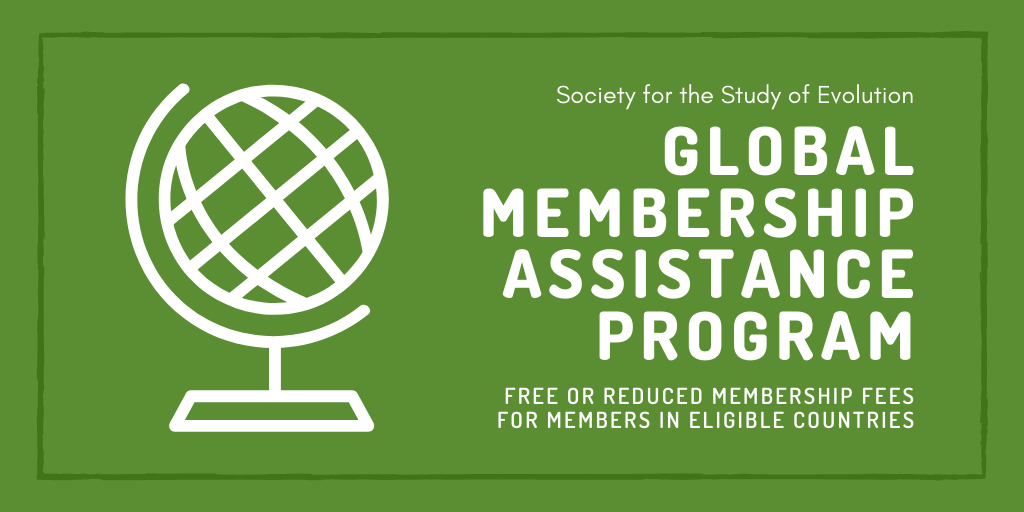
The SSE Global Membership Assistance (GMA) Program offers free or discounted membership to students, researchers, and educators in 152 countries and territories around the world based on World Bank classifications. Check the list of countries below to see if you are eligible.
GMA Group 1: 50% Discount on SSE Membership
| Albania | Brazil | Ecuador | Indonesia | Libya | Nauru |
Samoa | Turkey |
| Antigua and Barbuda | Bulgaria | Equatorial Guinea |
Islamic Rep. Iran | Lithuania | North Macedonia | Serbia | Turkmenistan |
| Argentina | Chile | Fiji | Iraq | Malaysia | Palau | Seychelles | Tuvalu |
| Armenia | China | Gabon | Jamaica | Maldives | Panama | South Africa | Uruguay |
| Azerbaijan | Colombia | Georgia | Jordan | Marshall Islands | Paraguay | St. Lucia | Venezuela |
| Belarus | Costa Rica | Grenada | Kazakhstan | Mauritius | Peru | St. Vincent and the Grenadines | |
| Belize | Cuba | Guatemala | Kosovo | Mexico | Qatar | Suriname | |
| Bosnia and Herzegovina | Dominica | Guyana | Latvia | Montenegro | Romania | Thailand | |
| Botswana | Dominican Republic | Hungary | Lebanon | Namibia | Russian Federation | Tonga |
GMA Group 2: Free SSE Membership
| Afghanistan | Cameroon | Ethiopia | Kyrgyz Republic | Morocco | São Tomé and Principe |
Togo |
| Algeria | Central African Republic |
The Gambia | Lao PDR | Mozambique | Senegal | Tunisia |
| American Samoa |
Chad | Ghana | Lesotho | Myanmar | Sierra Leone | Uganda |
| Angola |
Comoros | Guam | Liberia | Nepal | Solomon Islands | Ukraine |
| Bangladesh |
Dem. Rep. Congo |
Guinea | Madagascar | Nicaragua | Somalia | US Virgin Islands |
| Benin |
Rep. Congo | Guinea-Bissau | Malawi | Niger | South Sudan | Uzbekistan |
| Bhutan |
Côte d'Ivoire | Haiti | Mali | Nigeria | Sri Lanka | Vanuatu |
| Bolivia |
Djibouti | Honduras | Mariana Islands | Pakistan | Sudan | Vietnam |
| Burkina Faso |
Arab Rep. Egypt | India | Mauritania | Papua New Guinea |
Syrian Arab Republic |
West Bank and Gaza |
| Burundi |
El Salvador | Kenya | Fed. Sts. Micronesia |
Philippines | Tajikistan | Rep. Yemen |
| Cabo Verde |
Eritrea | Kiribati | Moldova | Puerto Rico | Tanzania | Zambia |
| Cambodia | Eswatini | Dem. People's Rep. Korea |
Mongolia | Rwanda | Timor-Leste | Zimbabwe |
If you reside in a country or territory listed above, please complete this form to request a discount code which can be used when joining or renewing your membership:
You will be asked for your name, email address, and the name of the country in which you reside. Codes will be sent via email within 1-2 business days. Please email Kati Moore at communications@evolutionsociety.org with any questions.
Your code will be valid for any one-year, two-year, or three-year membership type. (Learn more about our membership types here.)
To learn more about SSE’s efforts to make the Society more welcoming for international members, visit the SSE International Committee page. Please contact Committee Chair at international@evolutionsociety.org with any questions, comments, or suggestions.
SSE is pleased to offer free registration for the virtual portion of the Evolution 2025 meeting to SSE members who reside in one of the 152 countries and territories listed above. The virtual portion of the meeting will take place May 29-30, 2025.
To apply for free meeting registration:
A limited number of codes are available and will be distributed on a first-come, first-served basis. Please allow 2-3 business days to receive your code after completing the form. If all available codes have already been distributed, it will be indicated here.
Questions? Email Kati Moore at communications@evolutionsociety.org. Thanks for your interest in attending Evolution 2025!
This award, created in 2020, offers free two-year SSE memberships to individuals of any career stage who identify as racial or ethnic minorities, either in their country of origin or their country of residence. This initiative is part of SSE Council’s 2020 commitment to actions to increase inclusion of and support for members of historically excluded groups, particularly individuals who identify as Black, Indigenous, or people of color (BIPOC), in the field of evolutionary biology and through all of the society’s activities and programs. When established, this program aimed to provide 100 free memberships. This target was reached in 2025 and the program was renewed to distribute 100 more memberships. Learn more and apply here.
 |
 |
|
EvolutionEdited by: Jason Wolf, PhD |
|
Evolution LettersEdited by: Judith Mank, PhD |
|
|
SSE members can publish for free in Evolution. SSE members can also receive a 50% discount on Open Access publication in Evolution and a 30% on publication in the Open Access journal Evolution Letters. To access these publication discounts, input the email address associated with your SSE membership on the Oxford University Press website when prompted for a membership number. Contact communications@evolutionsociety.org with any questions.
SSE members can access all Evolution and Evolution Letters content for free. Simply log in here with your SSE username and password to access the journals.
Past Meetings
2016 - Austin, TX 1,786 Attendees
2015 - Guarujá, São Paulo, Brazil
2014 - Raleigh, NC 1,958 Attendees
2013 - Snowbird, UT 1,429 Attendees
2012 - Evolution Ottawa 2,450 Attendees
2011 - Norman, OK 1,150 Attendees
2010 - Portland, OR 1,967 Attendees
2009 - Moscow, ID 1,102 Attendees
2008 - Minneapolis, MN 1,450 Attendees
2007 - Christchurch, NZ
2006 - Stony Brook, NY
2005 - Fairbanks, AK
2004 - Fort Collins, CO 1,296 Attendees
2003 - Chico, CA
January 6: Sponsored Symposia
January 20: Undergraduate Diversity at Evolution Program
January 31: SSE Presidents’ Award for Outstanding Dissertation Paper in Evolution
January 31: International Travel Stipends
February 3: Thomas Henry Huxley Award
February 19: Graduate Research Excellence Grants - R.C. Lewontin Early Awards
March 1: Small Grants Program for Local and Regional Outreach Promoting the Understanding of Evolutionary Biology
March 15: Graduate Student and Postdoc Registration Waiver
March 15: Caregiver Awards
April 15: Hamilton Award for Outstanding Graduate Student Presentation
September TBD: International Event Grants
September TBD: Lifetime Achievement Award
October TBD: Graduate Research Excellence Grants - Rosemary Grant Advanced Awards
October TBD: Inclusiveness, Diversity, Equity, and Access (IDEA) Award
December TBD: Theodosius Dobzhansky Prize
Accepted on a rolling basis:
SSE Membership Awards
Not being held in 2025:
Stephen Jay Gould Prize
NOTE: Indirect costs may not be charged to any of our awards or grants.
The Theodosius Dobzhansky Prize is awarded annually by the Society for the Study of Evolution to recognize the accomplishments and future promise of an outstanding early-career evolutionary biologist. The prize was established in memory of Professor Dobzhansky by his friends and colleagues, and reflects his lifelong commitment to fostering the research careers of young scientists.
The SSE Presidents' Award for Outstanding Dissertation Paper in Evolution is awarded annually by the Society for the Study of Evolution for an outstanding PhD dissertation paper published in the journal Evolution during a given calendar year.
The Stephen Jay Gould Prize is awarded annually by the Society for the Study of Evolution to recognize individuals whose sustained and exemplary efforts have advanced public understanding of evolutionary science and its importance in biology, education, and everyday life in the spirit of Stephen Jay Gould. This prize will not be offered in 2024.
The Hamilton Award will be given to a student or recent graduate who has presented an outstanding talk at the annual meeting, as judged by a committee of SSE members. Applicants will present their papers during regular sessions of the meeting, appropriate for their topic. The most competitive talks will be those that can convey a complete story.
This award named in honor of Darwin's very public supporter T. H. Huxley, was established in 2013 to recognise outreach and education achievement for early and mid career scientists. Winners of this award are provided with support to present on behalf of the Society for the Study of Evolution at the annual meeting of the National Association of Biology Teachers (NABT). Annual calls for nomination will be advertised on the SSE web site and through appropriate Evolutionary Biology web sources such as EVOLDIR in late January/early February.
The American Society of Naturalists, the Society for the Study of Evolution, and the Society of Systematic Biologists announce the call for nominations for the 1st annual ASN/SSE/SSB Inclusiveness, Diversity, Equity, and Access (IDEA) Award. The IDEA Award will be given to a person at any career stage who has strengthened the ecology and evolutionary biology community by promoting inclusiveness and diversity in our fields. The award can also be presented to a group. The recipient will receive a plaque at the annual meeting of ASN/SSB/SSE and a $1000 honorarium.
The Lifetime Achievement Award was created to recognize individuals who have made substantial contributions to the study of evolution, who have demonstrated outstanding mentorship of trainees, and/or who have provided noteworthy service to the evolution community. Nominations should be submitted by April 1.
This award offers free two-year SSE memberships to 100 individuals of any career stage who identify as racial or ethnic minorities, either in their country of origin or their country of residence. This initiative is part of SSE Council’s 2020 commitment to actions to increase inclusion of and support for members of historically excluded groups, particularly individuals who identify as Black, Indigenous, or people of color (BIPOC), in the field of evolutionary biology and through all of the society’s activities and programs. Learn more and apply here.
R.C. Lewontin Early Awards: The GREG – R.C. Lewontin Early Awards are to assist students in the early stages of their PhD programs by enabling them to collect preliminary data (to pursue additional sources of support) or to enhance the scope of their research beyond current funding limits (e.g. by visiting additional field sites, or working at other labs). Awards up to $2500. Students must confirm that the proposed work is outside of funding already held by the student or advisor.
Rosemary Grant Advanced Awards: The GREG - Rosemary Grant Advanced Awards are to assist students in the later stages of their PhD programs. Funds can be used to enhance the scope of dissertation research, such as to conduct additional experiments or field work. Awards up to $3500. Only PhD students who have completed at least 24 months of PhD work and are at least 12 months from degree completion at the proposal due date are eligible. Eligibility can be confirmed by the advisor or graduate director stating that the student fulfills these requirements. Students must confirm that the proposed work is outside other funding held by either the student or their advisor.
The SSE provides opportunities for SSE members to apply for awards up to $1,000. The Committee encourages partnerships between other bodies engaged in outreach, such as museums, local schools, etc.
The goal of these grants is to foster communication and collaboration between scientists from different countries by sponsoring international symposia, workshops, courses, and other events within the field of evolutionary biology. Our priority is to support events that benefit emerging communities in the field of evolutionary biology. These grants replace the “Co-sponsorship of symposia organized by non-US based evolution societies” grants and Evolution International Events Awards (EIE Awards).
The Society for the Study of Evolution supports symposia (typically two) at its annual meetings in order to highlight new topics, provide new perspectives, or generate new syntheses. The exact configuration of symposia may vary from year to year, but proposals should tentatively assume six half-hour slots. The Society provides support for organizers and participants in sponsored symposia to attend and present at the annual meeting (up to $9000 per symposium).
Travel award recipients are not eligible to volunteer at the conference.
This program is for graduate students and postdoctoral fellows interested in attending and presenting at the in-person annual Evolution meeting, especially those who need additional financial support in order to attend. This program replaces the SSE Graduate Student and Postdoc Travel Supplement.
The Undergraduate Diversity at Evolution (UDE) program sends undergraduate students to the annual Evolution meeting, the joint meeting of the Society for the Study of Evolution (SSE), the Society of Systematic Biologists (SSB), and the American Society of Naturalists (ASN). At the meeting, students will (i) present a poster, (ii) receive mentoring from graduate students, postdocs, and faculty, and (iii) participate in a career-oriented 'Undergraduate Futures in Evolutionary Biology' panel and discussion. Each selected awardee receives conference registration, round-trip airfare, dorm accommodations (double occupancy), a $200 meal stipend, and a ticket to the Super Social. Learn more on the UDE Program page.
These stipends are for students and young scientists to attend the annual Evolution meeting. Awards may also be used to attend the annual meeting of the European Society for Evolutionary Biology (ESEB). Scientists working in a country with high GDP are not eligible.
Note:
***This award is now held once every three years. The next competition will be announced in 2026.***
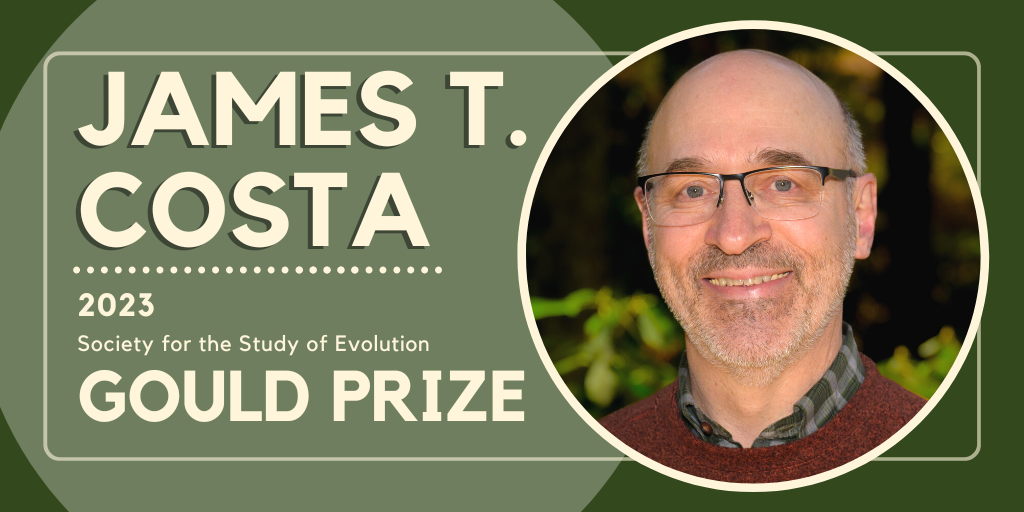
The SSE Gould Prize Committee is pleased to announce Dr. James T. Costa as the 2023 recipient of the Stephen Jay Gould Prize. Dr. Costa was selected for his work to advance the public understanding of evolution and the history of evolutionary thinking, and for his work to promote biodiversity education and conservation through outreach and community engagement.
Dr. Costa is the author of several books and other publications on the history of evolutionary biology focusing on the contributions of Alfred Russel Wallace and Charles Darwin, including "The Annotated Origin," the popular science book "Darwin's Backyard: How Small Experiments Led to a Big Theory," and his most recent book "Radical by Nature: The Revolutionary Life of Alfred Russel Wallace."
For more than 17 years, Dr. Costa has served as the executive director of Western Carolina University's Highlands Biological Station, which is located in a southern Appalachian biodiversity hotspot and has provided experiential learning opportunities, research support, and outreach programming for students and professionals at all levels since 1927.
Dr. Costa is professor of biology at Western Carolina University, where he teaches courses on biogeography, Darwin’s Origin of Species, and a comparative temperate-tropical ecology field course taught at Highlands Biological Station and Wildsumaco Biological Station in Ecuador. He is also adjunct professor in the Department of Biology and Institute for the Environment at UNC-Chapel Hill, and research associate in entomology at Harvard's Museum of Comparative Zoology.
He is a recipient of the Alfred Russel Wallace medal, serves as a Trustee of the Charles Darwin Trust, and has held research fellowships at the Radcliffe Institute for Advanced Study of Harvard University, Wissenschaftskolleg zu Berlin, LuEsther T. Mertz Library of the New York Botanical Garden, and the DFG-Centre for Advanced Study at the University of Hamburg.
Dr. Costa will present the Gould Prize plenary at the Evolution 2023 meeting on June 21 in Albuquerque, NM.
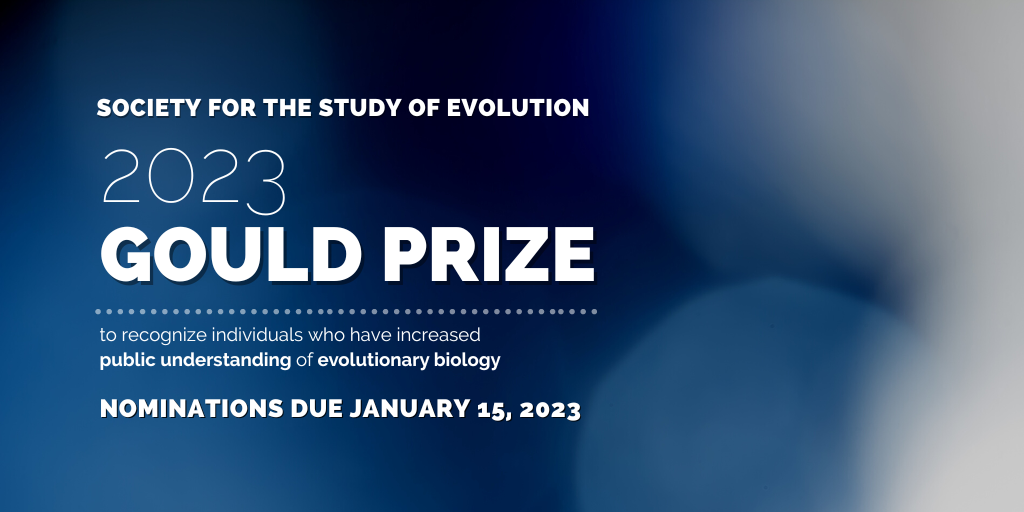
The Stephen Jay Gould Prize is awarded annually to recognize individuals whose sustained and exemplary efforts have advanced public understanding of evolutionary science and its importance in biology, education, and everyday life in the spirit of Stephen Jay Gould.
The award will include a cash prize of $5,000 and the expectation that the recipient will present the Public Outreach Seminar at the Evolution Meeting (expenses for travel/lodging and registration are covered by SSE). Awardees will be encouraged to submit an accompanying article to Evolution (primary research, review, insight or commentary, fast-tracked through review and made freely available) within 2 months of the conference. Published articles would highlight the prize obtained. The awardee should be a leader in evolutionary thought and in public outreach who can deliver an inspiring lecture for both professionals and the broader public at the annual Evolution meeting.
Nominations should include the CV of the nominee along with a 1-2 page letter describing why this individual is worthy of the award. Nominations will be accepted via our online awards platform. All nominations will be treated confidentially and will be evaluated by members of the Committee and the Council for the Society. An awardee will be announced in early February. Please contact communications [at] evolutionsociety.org with any questions.
Or click here to access the application.
Note: Be sure to hit “Complete” after filling out the nomination form in order to submit your nomination!
You may be prompted to log in after clicking “Complete”, but that is not necessary. Rest assured that your application has been submitted.
DEADLINE: January 15, 2023

2011, Dr. Kenneth R. Miller

2017, Timothy R. Birkhead

Congratulations to the 2025 Dobzhansky Prize recipient, Dr. Emily Roycroft! Dr. Roycroft is a Group Leader and Australian Research Council DECRA Fellow at Monash University. Her research uses cutting-edge genomic approaches to understand evolutionary and ecological questions across the micro- to macroevolutionary continuum. Her work uses museum genomics to reconstruct the evolutionary and demographic history of past and present biodiversity, especially Australia’s globally unique and threatened mammals. She completed her PhD at the University of Melbourne in 2021 and was a postdoc at Australian National University until 2024. Dr. Roycroft will present the Dobzhansky Prize talk at the in-person portion of the Evolution meeting in Athens, GA in June.
ABOUT | ELIGIBILITY | HOW TO APPLY | EVALUATION CRITERIA | AWARD | PAST WINNERS
The Dobzhansky Prize is awarded annually by the Society for the Study of Evolution to recognize the accomplishments and future promise of an outstanding early-career evolutionary biologist. The prize was established in memory of Professor Theodosius Dobzhansky by his friends and colleagues, and reflects his lifelong commitment to fostering the research careers of young scientists.
We seek nominees working in all areas of evolutionary biology, on any taxonomic group/system, using empirical and/or theoretical approaches. We hope the pool of nominees will reflect the many axes and components of diversity in the evolutionary biology community. We are specifically looking for candidates who take creative approaches to answering pressing questions in evolutionary biology. We welcome nominations of researchers around the globe.
Specific requirements:
*Please note that this is the official date the PhD or equivalent was awarded by the nomination's institution, which may not be the same date as an oral defense, viva, or live defense. The committee will consider circumstances that may extend eligibility (e.g., parental leave) and encourages nominations of biologists from historically under-represented groups. Please contact committee chair Sarah Schaack at secretary@evolutionsociety.org with any questions about eligibility.
Candidates may apply directly or may be nominated. Each nomination should include:
Please submit items 1-4 as a single pdf. Reference letter writers should send their letters via email to the SSE Secretary at secretary@evolutionsociety.org by December 1, 2024 with the nominee’s name in the subject line. Please provide the names and email addresses of references on the nomination form.
Deadline: December 1, 2024, 5:00 PM EST
Note: Be sure to click “Complete” after filling out the nomination form in order to submit your nomination! You may be prompted to log in after clicking “Complete”, but that is not necessary. Rest assured that your application has been submitted!
Nominations will be scored on the following areas:
The Dobzhansky Prize is accompanied by a check for U.S. $5000, and is awarded at the annual Evolution meeting. The recipient is expected to be present to receive the award and to give an oral presentation about their research. To facilitate attendance, SSE provides funds to cover the costs of conference registration, accommodation during the conference, and expenses for travel to and from the conference. The recipient will be notified of the award in late March.
Awardees will also be encouraged to submit an accompanying article to Evolution (primary research, review, insight or commentary, fast-tracked through review and made freely available) within 2 months of the conference. Published articles would highlight the award obtained.
| 1990 | Erik Greene | 2000 | Thomas Lenormand | 2010 | Fyodor Kondrashov | |||||
| 1981 | Douglas R. Cavener | 1991 | Jonathan Losos | 2001 | Alexander Badyaev | 2011 | Joel McGlothlin | |||
| 1982 | Elizabeth Anne Zimmer | 1992 | Barry Sinervo | 2002 | Howard Rundle | 2012 | Daniel Rabosky | |||
| 1983 | Anthony J. Zera | 1993 | H. Allen Orr | 2003 | Daven Presgraves | 2013 | Rowan D. H. Barrett | |||
| 1984 | Robb F. Leary | 1994 | David Haig | 2004 | Aneil Agrawal | 2014 | Daniel Matute | |||
| 1985 | Joshua J. Schwartz | 1995 | David Begun | 2005 | Daniel Bolnick | 2015 | Katie Wagner | |||
| 1996 | Rufus A. Johnstone | 2006 | Russel Bonduriansky | 2016 | Mary Caswell Stoddard | |||||
| 1987 | Ary A. Hoffmann | 1997 | Massimo Pigliucci | 2007 | Franziska Michor | 2017 | Molly Schumer | |||
| 1988 | Steven A. Frank | 1998 | Christian P. Klingenberg | 2008 | Patrik Nosil | 2018 | Amanda Kyle Gibson | |||
| 1989 | Bernard J. Crespi | 1999 | Jason B. Wolf | 2009 | Judith Mank | 2019 | Matthew Pennell | |||
| 2020 | Jacqueline Sztepanacz | |||||||||
| 2021 | Katja Kasimatis | |||||||||
| Honorable Mentions: | ||||||||||
| Amanda Hund | ||||||||||
| Rosana Zenil-Ferguson | ||||||||||
| 2022 | Philipp Brand | |||||||||
| Honorable mention: Jennifer Coughlan | ||||||||||
| 2023 | Dakota McCoy |
|||||||||
| 2024 | Chloé Schmidt | |||||||||
| Honorable mention: Kim Hoang |
Congratulations to the two recipients of the 2025 SSE Presidents’ Award for Outstanding Dissertation Paper, Chase Brownstein and Jorja Burch! Continue reading for more about each of the winning papers.

The genomic signatures of evolutionary stasis
Chase D Brownstein, Daniel J MacGuigan, Daemin Kim, Oliver Orr, Liandong Yang, Solomon R David, Brian Kreiser, & Thomas J Near
Evolution, Volume 78, Issue 5: https://doi.org/10.1093/evolut/qpae028
In this study, Brownstein and co-authors demonstrate that molecular evolution rates serve as reliable indicators of evolutionary stasis in jawed vertebrate lineages. The study provides crucial insights into the biological mechanisms underlying "living fossils,” species characterized by remarkably low rates of lineage diversification and phenotypic change over time. One of the study’s most significant findings is the direct relationship between molecular evolution rates and the development of hybrid incompatibility. Notably, the study demonstrates that freshwater gar fish lineages can produce viable and fit hybrids despite sharing common ancestry over 100 million years ago – the most ancient divergence time among parental species among multicellular eukaryotic species capable of producing viable hybrids.
Read the full Open Access article.

Wright was right: leveraging old data and new methods to illustrate the critical role of epistasis in genetics and evolution
Jorja Burch, Maximos Chin, Brian E Fontenot, Sabyasachi Mandal, Thomas D McKnight, Jeffery P Demuth, & Heath Blackmon
Evolution, Volume 78, Issue 4: https://doi.org/10.1093/evolut/qpae003
In this study, Burch and co-authors address one of the foundational questions in genetics and evolutionary biology: the relative importance of additive versus epistatic genetic architectures in shaping phenotypic divergence. Drawing on 1,606 datasets from both plants and animals, this project is the largest of its kind to use a uniform analysis pipeline (information-theoretic, model-averaged LCA). The included datasets span 65 genera and multiple trait classes (life-history vs. morphological). This taxonomic diversity allowed the study to detect broad patterns—for instance, the higher epistatic contribution in animals than in plants and a stronger role for epistasis in life-history traits. The findings have direct relevance for applied fields such as conservation genetics and agriculture, and emphasize that epistatic architectures are crucial in contexts such as domestication, breeding design, and understanding complex diseases.
Read the full Open Access article.
ABOUT | ELIGIBILITY | AWARD | HOW TO APPLY | PAST WINNERS
This award is awarded annually by the Society for the Study of Evolution for an outstanding Ph.D. dissertation paper published in an issue of the journal Evolution or an issue of Evolution Letters during a given calendar year. Applications open in the fall and close January 31. The award comes with a $1000 USD honorarium.
To be eligible for consideration, a manuscript must be based on PhD work of the primary author. The manuscript must have been published in a 2024 issue of the journal Evolution (Volume 78) or a 2024 issue of Evolution Letters (Volume 8).* Nominees do not need to be members of SSE.
*Note that this does not include all papers that were published as Early View in 2024. The paper must have been included in an issue in 2024.
The SSE Presidents’ Award is accompanied by a check for $1000 USD, and will be awarded at the annual Evolution meeting. The recipient is invited to attend the annual meeting to receive the award. To facilitate attendance, SSE provides funds to cover the costs of conference registration, accommodation during the conference, and travel expenses to and from the conference. The recipient will be notified of the award in April.
Nominations are accepted through our online awards portal. SSE members must log in with their SSE username and password. Non-members must create a free account to submit a nomination.
Nominations must include:
The supporting letter should indicate the candidate’s role in completing the research and writing the paper (if the candidate is not the sole author), should place the work in the larger context of the field (novelty, importance), and should discuss the overall quality of the student's research.
Or click here to access the application.
Note: Be sure to hit “Complete” after filling out the application form in order to submit your application!
You may be prompted to log in after clicking “Complete”, but that is not necessary. Rest assured that your application has been submitted!
DEADLINE: January 31, 2025
2024 Samarth Mathur, Honorable Mention: Robin Costello (more info)
2023 Michael Itgen (more info)
2022 Maddie James (more info)
2021 Gabriel Jamie (more info)
2020 Dorota Paczesniak (more info)
2019 Matthew Zuellig (more info)
2018 Valerie Morley (more info)
2017 Megan Greischar (more info)
2016 Jennifer Lohr (more info)
2015 Alison E. Wright (more info)
2014 Amy Hurford (more info)
2013 William Soto
2012 David McCandlish
2011 D. Luke Mahler
2010 Britt Koskella
2009 Megan Higgie
2008 R. Brian Langerhans
2007 Guillaume Martin
2006 Maurine Neiman
The 2024 recipient is Dr. Samarth Mathur for his paper, “An evolutionary perspective on genetic load in small, isolated populations as informed by whole genome resequencing and forward-time simulations” (https://doi.org/10.1093/evolut/qpac061).
Using whole genome resequencing of multiple populations of the threatened Montezuma Quail, Mathur and co-authors illustrate the dynamic nature of genetic load in small populations over time. They then combine their empirical data with forward-time simulations to demonstrate how severe population declines affect individual fitness and population adaptive potential. This study was an innovative combination of historical demography approaches and simulations to infer genetic load and evolutionary potential in wild populations.
The 2024 Honorable Mention is Dr. Robin Costello for her paper, “Multilevel selection on social network traits differs between sexes in experimental populations of forked fungus beetles” (https://doi.org/10.1093/evolut/qpac012).
Costello and colleagues used experimental social networks of forked fungus beetles under different resource distribution scenarios to investigate the strength and variation of individual-level and group-level selection. They find that the level and strength of selection varies between males and females, and also intensifies when resources are clumped. This study nicely demonstrates that social interactions in networks impact male and female fitness differently, setting up the potential for intersexual conflicts.
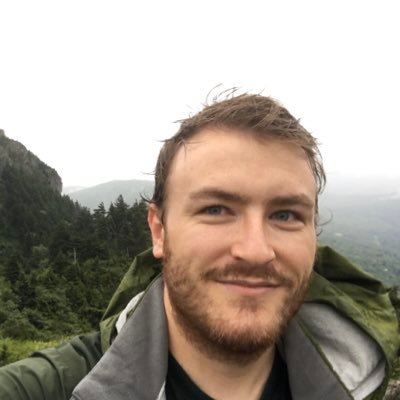 The 2023 winner is Dr. Michael Itgen for his paper, “Genome size drives morphological evolution in organ-specific ways” (Evolution, Volume 76, Issue 7 1 July 2022, Pages 1453–1468, https://doi.org/10.1111/evo.14519.)
The 2023 winner is Dr. Michael Itgen for his paper, “Genome size drives morphological evolution in organ-specific ways” (Evolution, Volume 76, Issue 7 1 July 2022, Pages 1453–1468, https://doi.org/10.1111/evo.14519.)
In this paper, Dr. Itgen and co-authors examined the influence of large genome size and cell size on the morphological variation in the heart and liver of salamanders in the genus Plethodon, which have some of the largest genomes known for tetrapods. The authors found that evolutionary increases in genome and cell size result in dramatic changes in tissue structure in the heart and liver. In both cases, these structural changes should have negative impacts on organ function. To explain how these changes persist, the authors propose that the effects on organismal performance and fitness may be negligible because very low metabolic rates in salamanders relax selective pressure on the function of key metabolic organs. This study shows how comparative and developmental studies can yield surprising insights on long-standing evolutionary development questions such as the variation and evolution of genome size. Dr. Itgen earned his Ph.D. at Colorado State University and is now a postdoctoral research fellow at Marian University in Indianapolis, IN.
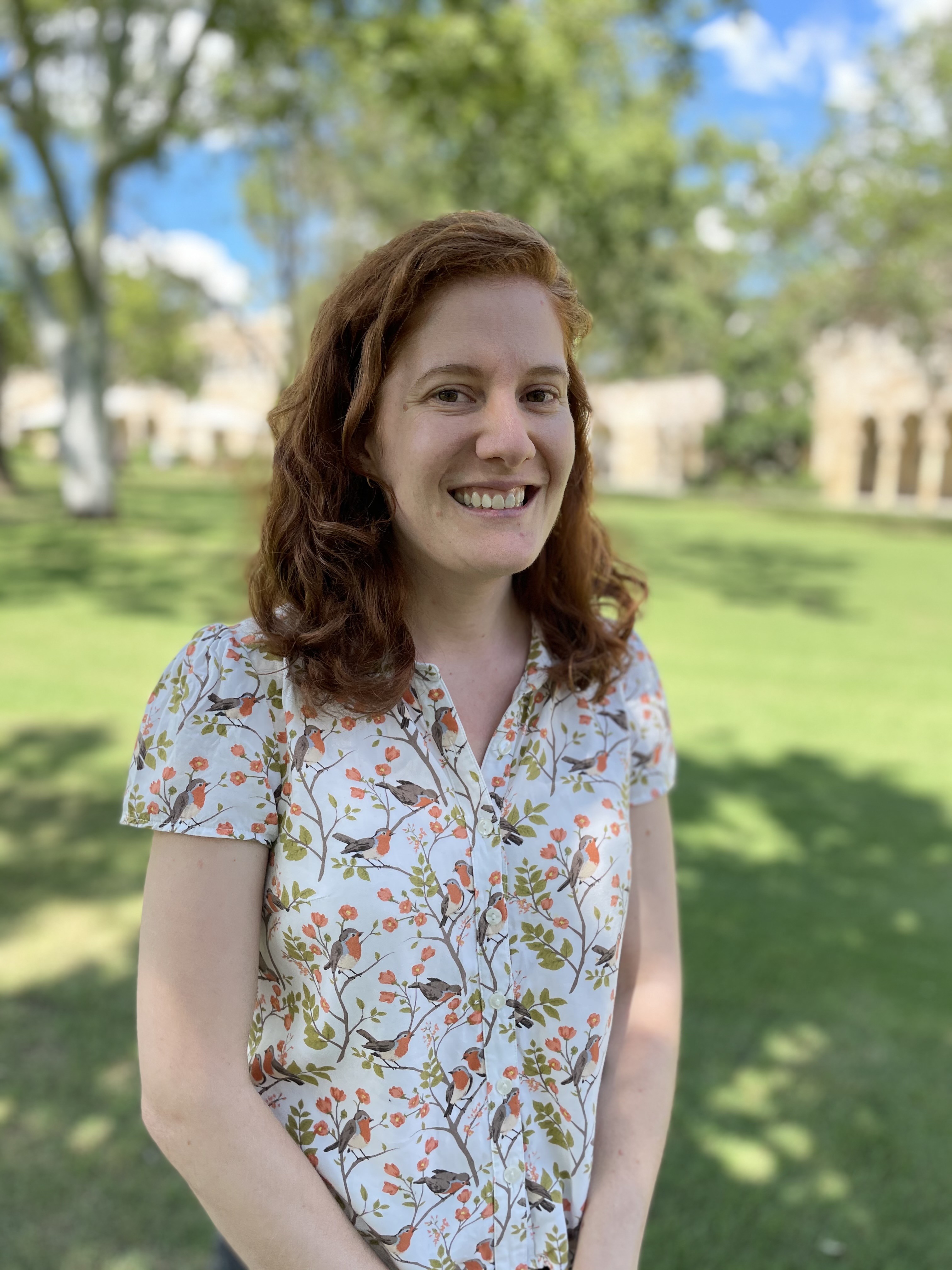 The 2022 recipient is Dr. Maddie E. James for her paper, “Phenotypic and genotypic parallel evolution in parapatric ecotypes of Senecio.” Evolution (2021) 75-12: 3115–3131.
The 2022 recipient is Dr. Maddie E. James for her paper, “Phenotypic and genotypic parallel evolution in parapatric ecotypes of Senecio.” Evolution (2021) 75-12: 3115–3131.
In this paper, Dr. James and co-authors investigated potential parallel evolution in dune and headland ecotypes of the Australian wildflower Senecio lautus. A comparison of nine dune-headland pairs, most phylogenetic sister groups, found strong parallel evolution of phenotype of branch and leaf traits with dune plants tall and headland plants prostrate. Despite phenotypic similarity among populations within each ecotype, evolutionary change was found in different genes. However, further investigation found a number of these genes had the same predicted function. This study shows response to selection that leads to parallel phenotypes is more complex when viewed at the underlying genetic level. Dr. James earned her Ph.D. at the University of Queensland, where she is now a Postdoctoral Research Fellow.
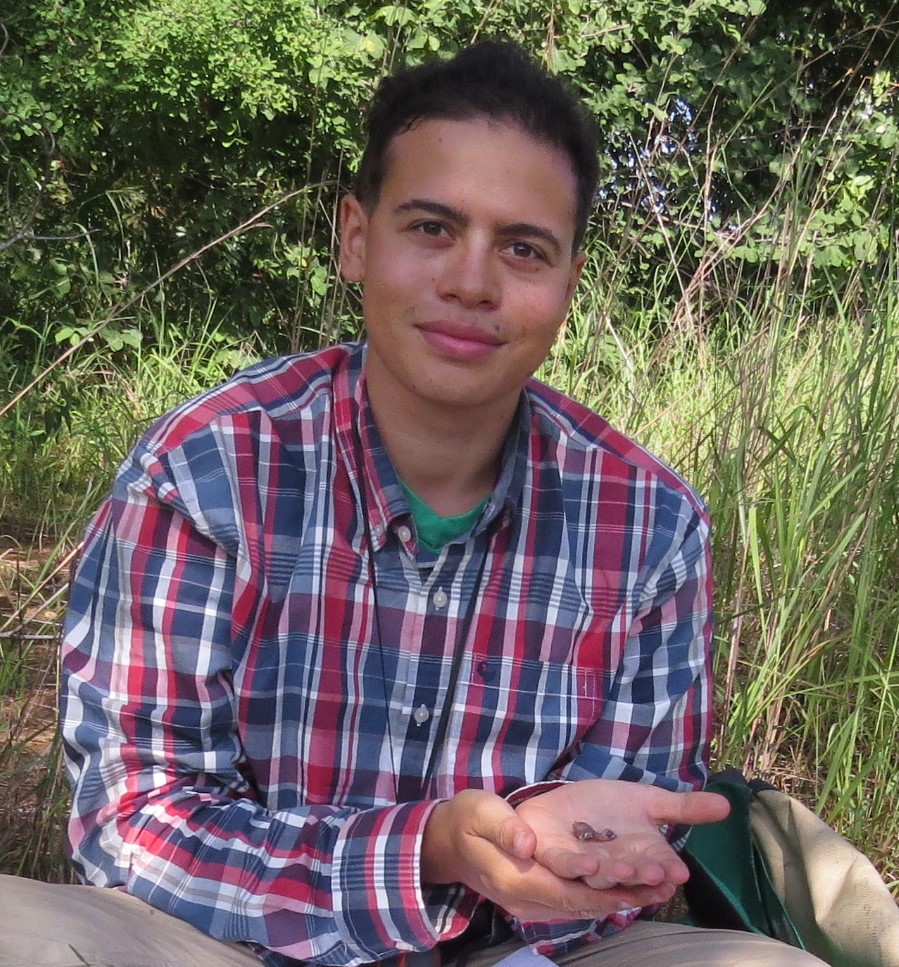 The 2021 recipient is Dr. Gabriel Jamie for his paper, “Multimodal mimicry of hosts in a radiation of parasitic finches,” Evolution (2020) 74: 2526-2538.
The 2021 recipient is Dr. Gabriel Jamie for his paper, “Multimodal mimicry of hosts in a radiation of parasitic finches,” Evolution (2020) 74: 2526-2538.
In this paper, Dr. Gabriel Jamie and co-authors investigated host-specific multimodal mimicry by nestlings of brood-parasitic Vidua indigobirds and whydahs to assess their role in adaptation to novel hosts. The premise was that imprinting of parasitic nestlings on their hosts promotes the maintenance of specialized host-parasite associations over generations. This exposes lineages to consistent selection from host species that could allow host-specific nestling adaptations to evolve. Over four rainy seasons in Zambia, Dr. Jamie and his research assistants recorded aspects of nestling morphology and behavior, and developed a new methodology to quantify phenotypes. Remarkable matching was found in the patterns and colors of the parasitic nestlings and the nestlings of their different host species, whose diverse appearances can be seen in the cover photo of the issue (74:11). The team also found matching in the sounds and postural movements of the nestlings. This study shows that imprinting can lead to the evolution of host-specific mimetic adaptations that can generate pre- and post-zygotic isolation and contribute to sympatric speciation. Dr. Jamie earned his Ph.D. at the University of Cambridge, where he is now a BBSRC-funded post-doctoral research associate. He is also a research associate of the FitzPatrick Institute of African Ornithology at the University of Cape Town.
The 2020 winner is Dr. Dorota Paczesniak for her paper, "Parasite resistance predicts fitness better than fecundity in a natural population of the freshwater snail Potamopyrgus antipodarum," Evolution (2019) 73: 1634-1646.
A longstanding question in evolutionary biology is what evolutionary processes determine whether a species is sexual or asexual. Dr. Paczesniak addressed this question in a species of freshwater snail, Potamopyrgus antipodarum, native to New Zealand. Using mesocosms in a field setting, she found that the most fecund asexual clones had annual reproductive rates equal to or greater than the most fecund 10% of sexual families, indicating that fecundity selection is sufficient to favor the proliferation of asexual clones, over and above the expected two-fold cost of sex. Somewhat paradoxically, however, she found that the most fecund asexual clones were not the most predominant ones. Because the mesocosms excluded predators and parasites, she hypothesized that differential predation or parasitism might explain this pattern. This hypothesis was confirmed by an experiment that demonstrated a positive correlation between clone abundance in the field and resistance to parasitism in the laboratory. This study thus elegantly demonstrates the importance of interactions with natural enemies in determining the fitness and relative abundance of asexual clones in a natural population. Dr. Paczesniak earned her PhD at the ETH Zurich, and recently completed a postdoctoral fellowship at the University of Saskatchewan.
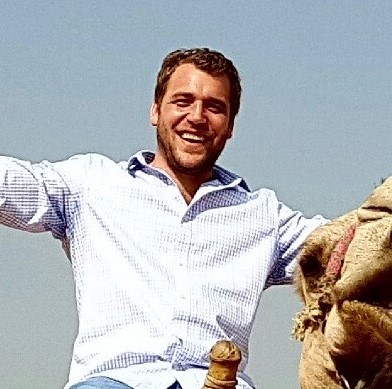 The 2019 winner is Dr. Matthew Zuellig for his paper, “A two‐locus hybrid incompatibility is widespread, polymorphic, and active in natural populations of Mimulus” Evolution (2018) 72: 2394-2405.
The 2019 winner is Dr. Matthew Zuellig for his paper, “A two‐locus hybrid incompatibility is widespread, polymorphic, and active in natural populations of Mimulus” Evolution (2018) 72: 2394-2405.
How do barriers that bar reproduction between two species arise and persist within each of the species, in spite of ongoing gene flow between them? To address this question, Dr. Zuellig studied two naturally hybridizing species of monekyflower, Mimulus guttatus and M. nasutus. He had previously identified a two‐locus hybrid lethality system, in which each species carries a hybrid lethality allele at a different locus, resulting in hybrid offspring that lack chlorophyll in F2 and later generations. Building on this finding, he here conducted extensive series of crosses with plants sampled across a large geographic range of western U.S. to map the spatial distribution of alleles underlying this system and estimate their frequencies. Because both species also have alternative alleles at substantial frequencies in some populations, hybrids do not necessarily result in lethality, allowing some introgression. This work elegantly explores how "speciation loci" that were first identified in the lab behave in real populations across their range. Dr. Zuellig earned his Ph.D. at the University of Georgia and is now a postdoctoral fellow at the University of Bern.
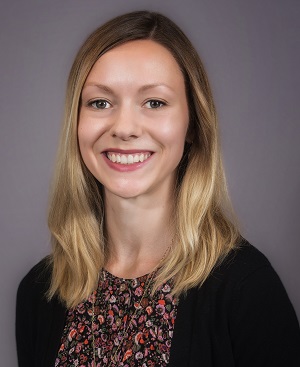 The 2018 winner is Dr. Valerie Morley for her paper, “Dynamics of molecular evolution in RNA virus populations depend on sudden versus gradual environmental change” Evolution (2017) 71:872-883.
The 2018 winner is Dr. Valerie Morley for her paper, “Dynamics of molecular evolution in RNA virus populations depend on sudden versus gradual environmental change” Evolution (2017) 71:872-883.
Do organisms evolve differently in slowly versus rapidly changing environments? In this study, Dr. Morley examined the evolutionary dynamics of the RNA sequence of Sindbis virus, exposed either directly to a novel host or to a gradually increasing proportion of that host. By sampling and sequencing in depth at eight time points, Dr. Morley and co-authors were able to track the genetic changes that occurred in precise detail. Their study revealed that large-step mutations were more likely to fix during the early stages of evolution with a sudden host switch, but this pattern disappeared with a gradual switch. As selection was weaker and fixation took longer in the gradually changing treatment, there was more evidence of clonal interference and the fixation of clusters of mutations. By contrast, single mutations were more likely to sweep in the sudden treatment. By combining experimental evolution with whole-genome sequencing, the paper by Morley et al. provides novel insights into the ways that populations adapt to a changing world.
The 2017 winner is Dr. Megan Greischar, for her paper “Predicting optimal transmission investment in malaria parasites.” Evolution (2016) 70:1542-1558.
In this study, Dr. Greischar examined the growth-reproduction tradeoff faced by malaria parasites, which must allocate resources to within-host proliferation as well as the production of specialized life stages for onward transmission. The way parasites balance this tradeoff influences exploitation of host resources---and hence virulence---and the rate of disease spread through host populations. She built a within-host model to examine the conflicting selection pressures and identify the optimal allocation to transmission. She developed novel computational methods to consider a wide range of potential strategies, using splines to describe plastic allocation with few parameters. The model suggested that parasites benefit from delaying transmission stage production, just as macroorganisms can benefit from delayed reproductive effort. Innate immunity and coinfecting parasites imposed strong selection favoring parasites that invest disproportionately in proliferation rather than transmission (“reproductive restraint''), resulting in more rapid and extreme exploitation of host resources. Selection on transmission investment therefore represents one mechanism by which enhanced virulence could be adaptive for parasites. More generally, the approach can accommodate highly complex strategies within richly detailed ecological models, providing a much-needed alternative to analytical methods that could be adapted to diverse organisms.
The 2016 winner is Dr. Jennifer N. Lohr, for her paper: Lohr, J. N., and C. R. Haag. 2015. Genetic load, inbreeding depression, and hybrid vigor covary with population size: An empirical evaluation of theoretical predictions. Evolution 69:3109-3122.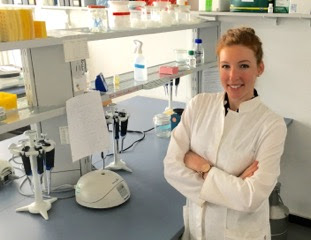
In this paper, Lohr and Haag test predictions from population genetic theory on the genetic consequences of small population size, a fundamental question in evolutionary biology. Lohr used eight natural populations of Daphnia magna that varied in effective population size, along with carefully designed crosses within and among populations, to test these predictions. She showed that Ne accurately predicted inbreeding depression, genetic load, and hybrid vigor, strongly supporting theoretical predictions based on recurrent mutation to unconditionally deleterious alleles. These results have important implications for evolutionary processes in natural populations, including for the evolution of dispersal, breeding systems, local adaptation, and aging.
Dr. Lohr received her PhD in 2015 from the Department of Biology at the University of Fribourg, with Christopher Haag. She is now a Postdoctoral Research Associate at the University of Hamburg with Susanne Dobler.
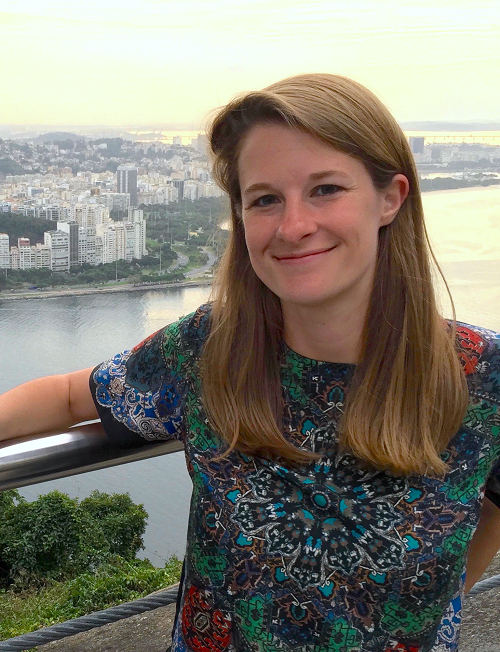 The 2015 winner is Dr. Alison E. Wright, for her paper: Alison E. Wright, Peter W. Harrison, Stephen H. Montgomery, Marie A. Pointer and Judith E. Mank. 2014. Independent stratum formation on the avian sex chromosomes reveals inter-chromosomal gene conversion and predominance of purifying selection on the W chromosome. Evolution. 68(11):3281–3295.
The 2015 winner is Dr. Alison E. Wright, for her paper: Alison E. Wright, Peter W. Harrison, Stephen H. Montgomery, Marie A. Pointer and Judith E. Mank. 2014. Independent stratum formation on the avian sex chromosomes reveals inter-chromosomal gene conversion and predominance of purifying selection on the W chromosome. Evolution. 68(11):3281–3295.
In this paper, Wright and co-authors used a comparative approach across a monophyletic clade of birds, spanning 90 million years, to study the mode, mechanism and rate of divergence between the avian Z and W sex chromosomes. This work, based on the largest cross-species dataset of Z-W orthologs to date, revealed the complex recombinational history of the avian sex chromosomes. The results show that although birds share the same sex chromosome system, recombination between the sex chromosomes has been suppressed independently multiple times, allowing for convergent patterns of divergence. Wright and her co-authors also found that recombination and gene conversion persist on sex chromosomes over both long and short evolutionary trajectories. Importantly, the study shows that the female-limited and degenerated W chromosome is evolving with a significant contribution of purifying selection, indicating that the remaining W-linked genes play an important role in female-specific fitness.
Dr Wright received her PhD in 2014 from the Department of Zoology at the University of Oxford, with Judith Mank. She is now a Postdoctoral Research Associate at University College London.
The 2014 winner is Dr. Amy Hurford for her paper: Hurford, A. and T. Day. 2013. Immune evasion and the evolution of molecular mimicry in parasites. Evolution 67(10): 2889-2904. 
Hurford explored a variety of hypotheses about the coevolution of vertebrate immune systems and pathogens, using mathematical models. One of her primary goals was to understand the evolutionary origins of infection-induced autoimmune disorders. She developed mathematical models using techniques from dynamical systems and game theory to better understand the conditions under which we might expect pathogens to evolve molecular mimicry. She and her coauthor analyzed the patterns of molecular mimicry that are expected under two hypotheses regarding molecular mimicry by parasites. One of their findings was that the highest risk of autoimmunity comes from parasites that display intermediate levels of mimicry. Interestingly, and highly relevantly, they also explored the consequences of different medical interventions on the evolution of mimicry and the incidence of autoimmunity.
Dr. Hurford received her Ph.D. in 2011 from the Department of Mathematics and Statistics at Queens University, where he was advised by Dr. Troy Day. Following postdoctoral appointments at York University and the University of Toronto, she began a faculty position at Memorial University of Newfoundland.
ABOUT | ELIGIBILITY | HOW TO APPLY | EVALUTION CRITERIA | AWARD SYMPOSIUM | PREVIOUS RECIPIENTS
The W. D. Hamilton Award for Outstanding Graduate Student Presentation will be given to a current or very recent graduate student who presents an outstanding talk based on their graduate work at the annual Evolution meeting. Finalists will present their talks during the live-streamed Hamilton Award symposium during the virtual part of the meeting May 29-30. The application to become a Hamilton award finalist will be part of registration for the virtual meeting.
PhD graduates who defended their PhD research after May 29, 2024, as well as current graduate students who have been enrolled in a graduate program for at least two (2) years, are eligible for this year’s competition. Note that the Hamilton competition is for dissertation research, and abstracts may not contain results arising from postdoctoral studies. Applicants must be members of SSE (learn more about SSE membership here and join here). Note that SSE members from eligible countries and territories can receive free meeting registration.
The application to become a Hamilton award finalist is part of registration for the virtual portion of the annual Evolution meeting. During registration, you must submit an abstract for your talk and check a box indicating your interest in the Hamilton Award competition.
Meeting registration is now open. Please submit your abstract and indicate your interest in this award by April 15, 2025.
All virtual meeting participants, including Hamilton finalists, may present in both the virtual and in-person portions of the meeting. Applicants are welcome to submit the same or different talks to the virtual and in-person portions of the meeting, but only virtual talks can be entered into the Hamilton competition.
Abstracts submitted during meeting registration will be used to select finalists. Abstracts will be anonymized prior to scoring, and will not be scored by evaluators with a conflict of interest with the applicant (e.g. if they are the applicant’s advisor or serve on the applicant’s committee). Abstracts will be scored in four categories described below. Abstracts with the highest average scores will be selected as finalists to present in the Hamilton Award Symposium. Each category will be scored on a scale of 1 to 5, with 5 being the highest.
Completeness/richness:
5 - Abstract clearly indicates that experimental work and analysis is completed (i.e., actual results are discussed and described findings are not overly vague), results described are sufficient to address the questions, problems, or hypotheses presented, and the amount of data described would be sufficient for at least one “original article” Evolution manuscript.
1 - Abstract suggests work is very incomplete (few concrete results reported) or completeness cannot be evaluated from the information provided.
**Note: abstracts can focus on data equivalent to a single manuscript/thesis chapter or on data equivalent to multiple manuscripts/thesis chapters. Either strategy is fine and can earn full marks in this category—when choosing between these strategies, applicants should consider whether they can effectively communicate the work in a 300-word abstract and in a ~12-minute talk. Either way, abstracts should focus primarily on the applicant’s own work. Prior or complementary work from the same research group can be mentioned for context, but should not be the focus of the abstract.**
Importance of the work and findings:
5 - Abstract is relevant to evolutionary biology. Motivating questions/hypotheses are of broad interest to the evolutionary biology community outside of the specific study system, results are interpreted in the context of the hypotheses or questions under study, and abstract clearly communicates how the findings advance our understanding of evolution.
1 - Abstract is not relevant or only marginally relevant to evolutionary biology
**Note: if all Hamilton committee members score the abstract as 1 in this category, the abstract will be excluded from further consideration regardless of other scores.**
Clarity/logic/presentation:
5 - Abstract is polished: it is well edited, has an organized flow of ideas, and is within the word limit (300 words). Abstract is understandable to a general evolutionary audience with minimal jargon and necessary background explained. Motivation for the work (big picture and research gaps) is clearly explained. Results are clearly interpreted in the context of the motivating questions. Enough detail is provided that the reader can understand what types of data/approaches were used.
1 - Four or more items in the list above are missing.
Quality/thoroughness of the methods:
5 - Sufficient detail is provided that the nature of the data and data analysis is clear—details will vary depending on type of research, but some details that might be helpful are: sampling design (for observational studies) or experimental setup (for manipulative experiments) or theoretical approach (key model parameters and whether analytical or simulation approaches were used); type and source of data (e.g., morphology, DNA, RNA, etc. and are these data new or mined from other sources); critical variables in the dataset (key predictor/independent and response/dependent variables, with some detail on how these were measured if needed); key analysis approaches (phylogenetic comparative methods, scans for selection, population structure analysis, mixed models etc.). Some indication of the size of the dataset is often helpful (how many taxa, how many replicates, type of genomic dataset, etc.). In terms of quality, data/approaches are both appropriate (type of data and analyses) and sufficient (amount of data) for the questions under study. Data are interpreted appropriately in light of motivating hypotheses, questions.
1 - Too few details are provided to evaluate methodology OR data/approaches are fundamentally and fatally flawed.
Finalists will be notified in mid May. Finalists will present their research during the live-streamed Hamilton Award Symposium during the virtual part of the meeting (May 29-30). Talks will be recorded and available on the Evolution Meetings YouTube channel. Talks not selected for the Hamilton Award Symposium will be scheduled during regular virtual talk sessions. Check the meeting website for more information about how to prepare your talk.
The most competitive talks will be those that can convey a complete story. Such talks are most likely to be given by graduate students who are close to completing their dissertations or by former graduate students who wish to present results from a dissertation defended within the past year. Talks that primarily present preliminary data or just an initial part of a dissertation are not likely to be competitive, and we strongly suggest that those students wait to compete for this award.
Winners will be selected and notified after the virtual portion of the Evolution meeting.
The winner(s) of the award will each receive $1,000 US and an one-year extension of their membership in the Society for the Study of Evolution, which includes one year of access to the journal Evolution. Finalists will receive $500 US. Up to two Honorable Mentions will each also receive a one-year membership to the Society for the Study of Evolution, including access to Evolution.
Recipients will be encouraged to submit an accompanying article to Evolution (primary research, review, insight or commentary, fast-tracked through review and made freely available) within 2 months of the meeting.
Winners and honorable mentions listed below; winners are listed in bold text.
2024
Mackenzie Urquhart-Cronish
Yuki Haba
Michelle McCauley
2023
Arielle Fogel, Duke University
James Gallagher, University of Denver
2022
Thomas Day, Georgia Institute of Technology
Cinnamon Mittan, Michigan State University
2021
Liming Cai, Harvard University
Sarah Khalil, Tulane University
Arianna Kuhn, American Museum of Natural History
2020
Due to the cancellation of the Evolution 2020 meeting, this award competition was not held in 2020.
2019
Michelle Stitzer, University of California, Davis. Advisor: Dr. Jeffrey Ross-Ibarra.
Sarah Friedman, University of California Davis. Advisor: Dr. Peter Wainwright.
Rachel Moran, University of Illinois at Urbana-Champaign. Advisor: Dr. Suzanne McGaugh.
Rachel Thayer, University of California, Berkeley. Advisor: Dr. Nipam Patel.
2018
Christopher D. Pull, Institute of Science and Technology Austria, Supervisor: Dr. Sylvia Cremer.
Debora Goedert, Dartmouth College. Advisor: Dr. Ryan G. Calsbeek.
Karin van der Burg, Cornell University. Advisor: Dr. Robert Reed.
2017
Emily Behrman, University of Pennsylvania. Advisor: Dr. Paul Schmidt.
Jasmine Ono, Univ British Columbia. Advisor: Dr. Sally Otto.
Foen Peng, University of Washington. Advisor: Dr. H.D. 'Toby' Bradshaw.
Chathurani Ranathunge, Mississippi State. Advisor: Dr. Mark Welch.
2016
Nina Wale, Pennsylvania State University. Advisor: Dr. Andrew Read.
Amanda Gibson, Indiana University. Advisor: Dr. Curt Lively.
Jason Sardell, University of Texas at Austin. Advisor: Dr. Mark Kirkpatrick.
2015
Maude Baldwin, Harvard University. Advisor: Dr. Scott Edwards.
Sarah Fitzpatrick, Colorado State University. Advisor: Dr. Chris Funk.
Nathaniel Sharp, University of Toronto. Advisor: Dr. Aneil Agrawal.
2014
Daniel Field, Yale University. Advisor: Dr. Jacques A. Gauthier.
Benjamin Liebeskind, University of Texas, Austin. Advisors: Dr. David Hillis, Dr. Harold Zakon.
Megan Peterson, University of California, Santa Cruz. Advisor: Dr. Kathleen Kay.
2013
Emily Jacobs-Palmer, Harvard University. Advisor: Dr. Hopi Hoekstra.
Zoe Assaf, Stanford University. Advisor: Dr. Dmitri Petrov.
Matthew McGee, University of California, Davis. Advisor: Dr. Peter Wainwright.
Rebecca Satterwhite, University of Houston. Advisor: Dr. Tim Cooper.
2012
Christopher Martin, University of California, Davis. Advisor: Dr. Peter Wainwright.
Aleeza Gerstein, University of British Columbia. Advisor: Dr. Sally Otto.
Erin McCullough, University of Montana. Advisor: Dr. Doug Emlen.
2011
William Ratcliff, University of Minnesota. Advisor: Dr. R. Ford Denison.
Sarah Bodbyl Roels, University of Kansas. Advisor: Dr. John Kelly.
Christopher Oufiero, University of California at Riverside. Advisor: Dr. Theodore Garland, Jr.
2010
Amanda Izzo, University of Michigan. Advisor: Dr. Elizabeth Tibbetts.
Benjamin Blackman, Duke University. Supervisors: Dr. John Willis and Dr. Daniel Rokhsar.
Christopher Martin, University of California – Davis. Advisor: Dr. Peter Wainwright.
David Lowry, University of Texas – Austin. Supervisor: Dr. Thomas Juenger.
Ian Wang, University of California – Davis. Advisor: Dr. Brad Shaffer.
From 2010-2017, SSE offered the Rosemary Grant Graduate Student Research awards to assist students in the early stages of their Ph.D. programs by enabling them to collect preliminary data (to pursue additional sources of support) or to enhance the scope of their research beyond current funding limits (e.g. by visiting additional field sites, or working at other labs). These awards were named for eminent evolutionary biologist Rosemary Grant for her strong mentorship and training of young evolutionary biologists.
In 2018, began offering a new award program for both early and advanced graduate students: the Graduate Research Excellence Grants.
View ALL Recipients: 2010 | 2011 | 2012 | 2013 | 2014 | 2015 | 2016 | 2017
2017 Recipients
Amanda Benoit, University of Tennessee, Knoxville. Advisor: Susan Kalisz
Catherine Chen, University of North Carolina Chapel Hill. Advisor: Karin Pfennig
Marion Donald, Rice University. Advisor: Tom Miller
Ryan Dunk, Syracuse University. Advisor: Jason Wiles
Marie Fan, Monash University. Advisor: Anne Peters
Jimena Golcher-Benavides, University of Wyoming. Advisor: Catherine E. Wagner
Valentina Gomez, University of Illinois at Chicago. Advisor: Boris Igic
Kathryn Grabenstein, University of Colorado, Boulder. Advisor: Scott Taylor
Molly Hetherington-Rauth, University of Toronto Mississsauga. Advisor: Marc Johnson
Johanna Jantzen, University of Florida. Advisor: Pamela Soltis
Emily Kopania, University of Montana. Advisor: Jeffrey Good
Joseph McGirr, University of North Carolina Chapel Hill. Advisor: Christopher Martin
Britany Morgan, Duke University. Advisor: Kathleen Donohue
Victoria Morgan, UC Davis. Advisor: Rick Grosberg
Nina Pak, UC Berkeley. Advisor: Patrick O'Grady
Giulia Irene Maria Pasquesi, University of Texas at Arlington. Advisor: Todd Castoe
Anna Peschel, University of Minnesota. Advisor: Ruth Shaw
Alice Shanfelter, University of Georgia. Advisor: Michael White
Kum Shim, University of Texas at Austin. Advisor: Daniel Bolnick
Megan Smith, Ohio State University. Advisor: Bryan Carstens
Ana Mafalda Sousa Ferreira, University of Porto. Advisor: Jose Melo-Ferreira
Maria Stager, University of Montana. Advisor: Zachary Cheviron
Benjamin Stone, Ohio State University. Advisor: Andrea Wolfe
Benjamin Van Doren, University of Oxford. Advisor: Sonya Clegg
Michael Yuan, University of California, Berkeley. Advisor: Ian Wang
Linyi Zhang, Rice University. Advisor: Scott Egan
Serena Zhao, University of Texas at Austin. Advisor: Nancy Moran
2016 Recipients
Mallory A. Ballinger, University of California, Berkeley, Advisor: Michael W. Nachamn
Nassima M. Bouzid, University of Washington, Advisors: Adam Leaché and Lauren Buckley
Kinsey M. Brock, University of California, Merced, Advisor: Danielle Edwards
Sofia de la Serna Buzon, University of North Carolina at Chapel Hill, Advisor: Karin Pfennig
Lauren Carley, Duke University, Advisor: Tom Mitchell-Olds
Allan Castillo, Duke University, Advisor: Mark D. Rausher
Abhilesh Dhawanjewar, University of Nebraska-Lincoln, Advisors: Colin Meiklejohn and Kristi Montooth
Annette Evans, University of Connecticut, Advisors: Elizabeth Jockusch and Mark Urban
Micah Freedman, University of California, Davis, Advisors: Sharon Strauss and Santiago Ramirez
Joshua Goldberg, University of California, Riverside, Advisor: David N. Reznick
Julie A. Herman, University of California, Santa Cruz, Advisor: Kathleen Kay
Alex Van Huynh, Lehigh University, Advisor: Amber Rice
Kedar Karkare, University of Houston, Advisors: Ricardo Azevedo and Timothy Cooper
Sara M. Keeble, University of Southern California, Advisor: Matthew Dean
Christopher Krieg, University of Florida, Advisor: Emily Sessa
Holly C. McQueary, University of Georgia, Athens, Advisor: David Hall
Iva Popovic, University of Queensland, Advisor: Cynthia Riginos
Patrick Reilly, Princeton University, Advisor: Peter Andolfatto
Kathryn R. Ritz, Duke University, Advisor: Mohamed A. F. Noor
Ummat Somjee, University of Florida, Advisor: Christine W. Miller
Chelsea M. Stehle, University of Nebraska, Lincoln, Advisor: William Wagner
Sebastian Stockmaier, University of Texas at Austin, Advisor: Daniel I. Bolnick
Syuan-Jyun Sun, University of Cambridge, Advisor: Rebecca Kilner
Andrew Taverner, Princeton University, Advisor: Peter Andolfatto
Eric Wesley Wice, Rice University, Advisor: Julia B. Saltz
Su’ad Yoon, University of Nevada Reno, Advisor: Matthew Forister
2015 Recipients
Christopher Akcali, University of North Carolina
Samantha Ray Anderson, University of Arizona
John Benning, Univeristy of Minnesota
Sarah Carey, University of Florida
Eleanor Caves, Duke University
Catherine Debban, University of Virginia
Katherine Eisen, Cornell University
Eslam Elshahat, Rice University
Nikki Forrester, Pittsburgh University
Phillip Grayson, Harvard University
Mike Hague, University of Virginia
Maggie Hantak, University of Ohio
Carl Hutter, University of Kansa
Brendan Larsen, University of Arizona
Joanna Larson, University of Michigan
Christopher Law, University of California, Santa Cruz
Whitley Lehto, University of Denver
Kellen Cedar Paine, University of New Mexico
Ahva Lynn Potticary, University of Arizona
Shelley Sianta, UC Santa Cruz
Laura Southcott, University of Chicago
Jennifer Valvo, Florida State University
Rebekah Villalta, Cornell University
Ryan Weaver, Auburn University
David Zonana, University of Colorado
2014 Recipients
Phred Benham, University of Illinois, Urbana-Champaign, Advisor: Dr. Zachary Cheviron
Amrita Bhattacharya, Indiana University, Advisor: Dr. Curtis M. Lively
Jennifer Coughlan, Duke University, Advisor: Dr. John Willis
Shane DuBay, University of Chicago, Advisor: Dr. Trevor D. Price
Jay Falk, Cornell University, Advisor: Dr. Kerry Shaw
Tamara Fetters, Virginia Tech, Advisor: Dr. Joel McGlothlin
Cera Fisher, University of Connecticut, Advisor: Dr. Elizabeth Jockusch
Andrew Frank, University of Connecticut, Advisor: Dr. Elizabeth Jockusch
Amanda Gorton, University of Minnesota, Advisors: Drs. David Moeller and Peter Tiffin
Nicolai Hensley, University of California, Santa Barbara, Advisor: Todd Oakley
Audrey Kelly, University of North Carolina at Chapel Hill, Advisor: Dr. Karin Pfennig
Megan Kobiela, University of Minnesota, Advisor: Dr. Emilie Snell-Rood
Elizabeth LaRue, Purdue University, Advisor: Dr. Nancy Emery
Rishi R. Masalia, University of Georgia, Advisor: Dr. John M. Burke
Nicholas A. Mason, Cornell University, Advisor: Dr. Irby J. Lovette
W. Tyler McCraney, UCLA, Advisor: Dr. Michael Alfaro
Tim O'Connor, University of Arizona, Advisor: Dr. Noah Whiteman
Renee Petipas, Cornell University, Advisor: Dr. Monica Geber
Kathleen Pieper, University of Georgia, Advisor: Dr. Kelly Dyer
Pascal Olivier Title, University of Michigan, Advisor: Dan Rabosky
Laurel Yohe, SUNY Stony Brook University, Advisor: Dr. Liliana M. Davalos
Kelsey M. Yule, University of Arizona, Advisor: Dr. Noah K. Whiteman
2013 Recipients
Jeffrey R. Adrion, Indiana University, Advisor: Dr. Kristi L. Montooth
Alexandra Barnard, University of Oklahoma, Advisor: Dr. John P. Masly
Noelle Bittner, University of Arizona, Advisor: Dr. Michael Nachman
Daren C. Card, University of Texas at Arlington, Advisor: Dr. Todd A. Castoe
Danielle M. D'Amore, Ohio University, Advisor: Dr. Molly R. Morris
Jesse Delia, Boston University, Advisor: Dr. Karen Warkentin
Emily DiBlasi, University of Utah, Advisor: Dr. Sarah Bush
Danielle H. Drabeck, University of Minnesota-Twin Cities, Advisor: Dr. Sharon Jansa
Lauren A. Eserman, University of Georgia, Advisor: Dr. Jim Leebens-Mack
Nicholas K. Fletcher, Cornell University, Advisor: Dr. Jeremy Searle
Brian E. Gress, Syracuse University, Advisor: Dr. Scott Pitnick
Alexander S. Hall, University of Texas at Arlington, Advisor: Dr. Matthew Fujita
Karolina Heyduk, University of Georgia, Advisor: Dr. Jim Leebens-Mack
Scott Hotaling, University of Kentucky, Advisor: Dr. David Weisrock
Gaston I. Jofre, Texas A&M University, Advisor: Dr. Gil G. Rosenthal
Benjamin Johnson, Cornell University, Advisor: Dr. Kelly Zamudio
Karina Klonoski, University of California, Berkeley, Advisor: Dr. Erica Rosenblum
Hannah E. Marx, University of Idaho, Advisor: Dr. David Tank
Brianna McTeague, University of Arizona, Advisor: Dr. Katrina Dlugosch
David T. Peck, Cornell University, Advisor: Dr. Paul Sherman
Jordan D. Satler, Ohio State University, Advisor: Dr. Bryan Carstens
Amanda Schweitzer, City University of New York, Advisor: Dr. Ana Carnaval
Allison J. Shultz, Harvard University, Advisor: Dr. Scott V. Edwards
Richard K. Simpson III, Arizona State University, Advisor: Dr. Kevin McGraw
Sam Slowinski, Indiana University Bloomington, Advisor: Dr. Ellen Ketterson
Nicholas D. Sly, University of Illinois, Urbana‐Champaign, Advisor: Dr. Zac Cheviron
Jessica D. Stephens, University of Georgia, Advisor: Dr. Russell Malmberg
Maria Strangas, City University of New York, Advisor: Dr. Ana Carnaval
Brittany Lynne Sutherland, University of Virginia, Advisor: Dr. Laura F. Galloway
Andrew Swafford, University of California, Santa Barbara, Advisor: Dr. Todd Oakley
Rebecca Tarvin, University of Texas at Austin, Advisor: Dr. David Cannatella
James Patrick Tumulty, University of Minnesota, Advisor: Dr. Mark A. Bee
2012 Recipients
Danielle M. Adams, University of Maryland College Park, Advisor: Dr. Jerry Wilkinson
Nooria Al-Wathiqui, Tufts University, Advisor: Dr. Sara Lewis
Emily Louise Behrman, University of Pennsylvania, Advisor: Dr. Paul Schmidt
Vikram Bantwal Baliga, University of California, Santa Cruz, Advisor: Dr. Rita S. Mehta
Kristina L. Cohen, Boston University, Advisor: Dr. Karen Warkentin
Vincent R. Farallo, Ohio University, Advisor: Dr. Donald B. Miles
Amanda Gibson, Indiana University, Advisor: Dr. Curtis M. Lively
Amanda Hund, University of Colorado at Boulder, Advisor: Dr. Rebecca Safran
Jen-Pan Huang, University of Michigan, Advisor: Dr. L. Lacey Knowles
Ambika Kamath, Harvard University, Advisor: Dr. Jonathan B. Losos
Jonathan Lambert, Cornell University, Advisor: Dr. Kerry Shaw
Shea M. Lambert, Stony Brook University, Advisor: Dr. John J. Wiens
Joshua B. LaPergola, Cornell University, Advisors: Dr. Walter D. Koenig & Paul W. Sherman
Lauren Lucas, Texas State University, San Marcos, Advisor: Dr. Chris Nice
Rajiv McCoy, Stanford University, Advisor: Dr. Carol Boggs
Tristan A. McKnight, University of Michigan, Advisor: Dr. L. Lacey Knowles
Mauricio Montaño-Rendón, University of Sheffield, Advisor: Dr. Roger K. Butlin
Karan J. Odom, University of Maryland, Advisor: Dr. Kevin E. Omland
Matthew W. Pennell, University of Idaho, Advisor: Dr. Luke J. Harmon
Paulo C. Pulgarín-Restrepo, University of Los Andes, Advisor: Dr. Carlos Daniel Cadena
Marius Roesti, University of Basel, Advisor: Dr. Walter Salzburger
Molly Schumer, University of Princeton University, Advisor: Dr. Peter Andolfatto
Jenna M. Moore, University of California, San Diego, Advisor: Dr. Greg W. Rouse
Alyssa B. Stewart, University of Maryland, Advisor: Dr. Michele Dudash
Maggie R. Wagner, Duke University, Advisor: Dr. Thomas Mitchell-Olds
2011 Recipients
Gerardo Arceo‐Gómez, University of Pittsburgh, Advisor: Dr. Tia-Lynn Ashman
Lisa N. Barrow, Florida State University, Advisor: Dr. Emily Lemmon
Thomas D. Brekke, University of Montana, Advisor: Dr. Jeffrey Good
Sally Marie Chambers, Purdue University, Advisor: Dr. Nancy Emery
Gerardo Antonio Cordero, Iowa State University, Advisor: Dr. Fredric Janzen
Rongfeng Cui, Texas A&M University, Advisor: Dr. Gil Rosenthal
James C. Cureton II, University of Oklahoma, Advisor: Dr. Richard E. Broughton
Kira Delmore, University of British Columbia, Advisor: Dr. Darren Irwin
Elizabeth M. Droge-Young, Syracuse University, Advisor: Scott Pitnick
Sarah W. Fitzpatrick, Colorado State University, Advisor: W. Christopher Funk
Elisabeth Jane Forrestel, Yale University, Advisor: Michael Donoghue
Chang Seok Han, University of New South Wales, Advisor: Robert Brooks
Rachel E. Hanauer, Indiana University, Advisor: Ellen D. Ketterson
Kayla M. Hardwick, University of Idaho, Advisor: Erica Bree Rosenblum
Sarah M. Hird, Louisiana State University, Advisor: Drs. Robb Brumfield, Bryan Carstens
Elizabeth J. Kleynhans, University of British Columbia, Advisor: Drs. Sarah Otto, Mark Vellend
Matthew H. Koski, University of Pittsburgh, Advisor: Tia-Lynn Ashman
Ezra Lencer, Cornell University, Advisor: Amy McCune
Chase Mason, University of Georgia, Advisor: Lisa Donovan
Alicia MastrettaYanes, University of East Anglia, Advisor: Dr Brent Emerson
George Andrew Meindl, University of Pittsburgh, Advisor: Tia-Lynn Ashman
Julie S. Miller, Cornell University, Advisor: H. Kern Reeve
Tara A Pelletier, Louisiana State University, Advisor: Bryan C Carstens
Rebecca H. Penny, Indiana University, Advisor: Lynda Delph
Cheryl Pinzone, University of Georgia, Advisor: Kelly Dyer
Diana Jessie Rennison, University of British Columbia, Advisor: Dolph Schluter
Leila Teruko Shirai, Instituto Gulbenkian de Ciência, Portugal, Advisor: Dr. Patrícia Beldade
Angela Stathos, University of Montana, Advisor: Lila Fishman
Alexa R. Warwick, Florida State University, Advisor: Emily Moriarty Lemmon
Corlett Wolfe Wood, University of Virginia, Advisor: Edmund Brodie III
LengxobYong, East Carolina University, Advisor: Jeffrey S. McKinnon
2010 Recipients
Cheryl Marie Andam, University of Connecticut
Chelsea Berns, Iowa State University
Megan DeMarche, Colorado State University
Eva Fischer, Colorado State University
Andrew Furness, University of California, Riverside
Emily Jacobs-Palmer, Harvard University
Christopher Muir, Indiana University, Bloomington
Carlos Prada, Louisiana State University
Darren Rebar, University of Wisconsin, Milwaukee
Benjamin Sandkam, Simon Fraser University
Seema Sheth, Colorado State University
Sonal Singhal, University of California, Berkeley
Frank Smith, University of Connecticut
Caitlin Smukowski, Duke University
Kathryn Stewart, Queen’s University
Katherine Stryjewski, Boston University
Conor Taff, University of California, Davis
Marjorie Weber, Cornell University
The SSE International Committee (IC) mission is to foster international relationships between evolution societies and its members with particular focus on students and early-career scientists. The committee sponsors annually the International Travel Stipends for students and postdocs to attend the annual Evolution meeting, and the International Event Grants to fund events that foster international communication and collaboration.
To contact the International Committee Chair, please email international [at] evolutionsociety.org. View the current committee membership.
The Global Membership Assistance (GMA) Program offers free or discounted membership to students, researchers, and educators in 152 countries and territories around the world based on World Bank classifications. Check the list of eligible countries to see if you are eligible. If you reside in one of the eligible countries, please request a discount code using this form. Discount codes can be used for any 1-year, 2-year, or 3-year membership type.
This year, SSE members residing in countries and territories eligible for the GMA Program are also eligible for free registration to the virtual portion of the Evolution meeting. Visit the Membership page to learn more.
These stipends support attendance at the in-person portion of the Evolution meeting for scientists at various stages of their professional career (e.g., Masters/PhD students, postdocs, and lecturers). You must be a member of the SSE. Those working in countries with high GDP are not eligible. For additional information and the application procedure, consult the Travel Awards page.

ABOUT | ELIGIBILITY | HOW TO APPLY | NEXT STEPS | PREVIOUS RECIPIENTS
The goal of these grants is to foster communication and collaboration between scientists from different countries by sponsoring international symposia, workshops, courses, and other events within the field of evolutionary biology. Our priority is to support events that benefit emerging communities in the field of evolutionary biology.
Participants are not required to be members of SSE, but discounts in event registration costs for SSE members will be appreciated.
*Note that individuals at any career stage from 152 countries and territories are eligible for free or discounted SSE membership through the Global Membership Assistance Program.
In addition, the organizing recipients of this award will be invited to submit an accompanying article to Evolution, if appropriate (primary research, review, insight or commentary fast tracked through review and made freely available) within 2 months of the workshop. Published articles would highlight the grant funding obtained.
The application should be no more than 3 pages and include:
In addition to the 3-page application, please include the CVs of the event organizers.
Please send applications and CVs as a single PDF document to the SSE International Committee Chair at international [at] evolutionsociety.org.
Deadline: September 15, 2024
View examples of previously funded events here and here.
Funded events should include an acknowledgement of SSE funding on the event website and/or printed material. We would also appreciate it if organizers share the benefits of becoming an SSE member with participants.
Funded events must provide a short report to the SSE International Committee following the event. This report should include:

Congratulations to this year’s T. H. Huxley Award recipient, Dr. Elizabeth Schultheis! Dr. Schultheis is the Education and Outreach Coordinator for the Kellogg Biological Station Long-Term Ecological Research Program at Michigan State University. She was selected for her collection of educational resources called "Data Nuggets". Data Nuggets, which were developed in collaboration with Dr. Melissa Kjelvik, bring real data and scientific role models into the classroom to build quantitative and critical thinking skills. To learn more about her work, visit the Data Nuggets website.
As part of the award, Dr. Schultheis will receive funding to present her work at the National Association of Biology Teachers (NABT) conference in October.
The T. H. Huxley Award is administered by the T. H. Huxley Award Committee, a subset of the SSE Education and Outreach Committee.
 |
||
| Data Nuggets co-founders Dr. Melissa Kjelvik (left) and Dr. Elizabeth Schultheis (right). |
ABOUT | ELIGIBILITY | HOW TO APPLY | AWARD | PREVIOUS RECIPIENTS
The SSE Education and Outreach Committee is pleased to announce the T. H. Huxley award, named in honor of Darwin's very public supporter T.H. Huxley, which recognizes and promotes the development of high quality evolution education resources. If you have an interesting project or educational activity to share, consider applying for this award. Graduate students and postdoctoral fellows are encouraged to apply. This award provides funding for an SSE member to present evolution education resources at an education-focused session or conference approved by the Huxley Committee (e.g., education session at the annual Evolution meeting or the annual National Association of Biology Teachers conference).
Examples of possible resources include classroom/museum activities, in-class or lab resources, podcasts, publications, websites, videos, etc. Competitive applications will be resources that include materials for student or audience engagement and assessment, not simply the presentation of information. All applications should include appropriate copyright and research permissions.
Applicants must be members of SSE. To join, visit https://payments.evolutionsociety.org/joinsse/.
In the application form, you will be asked to provide a brief overview of your educational resource (100-200 words) and to describe your evolution education resource (500-1000 words), including the following:
1) What are the learning or outreach goals for this resource? If the resource is designed to align with state or national standards, include this information as well.
2) Describe how this resource is a novel contribution to the existing evolution education and outreach resources.
3) Describe the intended audience.
4) Describe how you intend to disseminate this resource (e.g., a publication, a website, a museum activity, submission to the SSE EvoEd library, etc).
5) Has this resource been assessed or evaluated for engagement and/or effectiveness? For example, pre- and post-tests or some other common evaluation instrument. If so, please describe how, including any IRB approvals that were obtained.
If you have a website, publication, images, or other supporting documentation, please include in the description.
Submit your application here: https://forms.gle/H1wzNhrKJNtg43Sb8
Deadline: February 3, 2025
Applicants will be notified in early March.
Questions? Contact the Huxley Award Committee at huxleyaward@evolutionsociety.org.
The recipient will receive funding to present evolution education resources at an education-focused session or conference approved by the Huxley Committee (e.g., education session at the annual Evolution meeting or the annual National Association of Biology Teachers conference). Graduate student and postdoc awardees will receive a one-year membership as part of the award. A winner will be announced in early March.
Tim Hartelt
Metaconceptual Learning Activities for Promoting Metacognitive Awareness and Self-Regulation of Intuitive Thinking in Evolution Education
Learn more about the project.
Sarah Bordenstein
Discover the Microbes Within! The Wolbachia Project
Learn more about the project.
Not awarded.
Dr. John Jungck and Dr. Sam Donovan
Beagle Investigations Return with Darwinian Data (BIRDD) project
Learn more about the project.
Erin L. McCullough, Lauren Verdeflor and colleagues Alaina Weinsztok, Jason R. Wiles, and Steve Dorus
Syracuse University & KIPP NYC College Prep High School
Exploratory activities for understanding evolutionary relationships depicted by phylogenetic trees: united but diverse
Read the paper describing the activity.
Brinda Govindan
San Francisco University
Bacterial Survivor
Read the paper describing the activity here: https://evolution-outreach.springeropen.com/articles/10.1186/s12052-017-0074-2
Katie Grogan and colleagues Teresa W. Lee and Justine Liepkalns
Emory University
Making evolution stick: using sticky notes to teach the mechanisms of evolutionary change
Read the paper describing the activity here: https://evolution-outreach.springeropen.com/articles/10.1186/s12052-017-0074-2
Laura Bankers with Kyle McElroy, Joseph Jalinsky, James Woodell, Claire Adrian-Tucci, Katelyn Larkin, Robert Todd, Jorge Moreno, Dr. Emily Schoerning, and Dr. Maurine Neiman
National Center for Science Education Booster Clubs
Project website
Amanda Gibson and Ariel Marcy
Amanda Gibson, Evolution, Ecology and Behavior Department of Biology, Indiana University
Designed a hands-on game that requires students to collaborate to generate data and test predictions of the Red Queen Hypothesis.
Ariel Marcy - University of Queensland
Created Go Extinct! Players become zoologists competing to collect color –coded sets of closely related animal cards.
Dr. Phil Gibson
University of Oklahoma
How To Use Tree Thinking To Teach Plant Diversity and Evolution
Dr. Jonathan Atwell,
Indiana University
Say Hello to the Junco! Teaching Evolution, Behavior, Genetics, and the Scientific Process with a Common Backyard Bird!
Dr. William Ratcliff
Georgia Tech
Yeast Experiment Hints at a Faster Evolution From Single Cells
Information on the awarded work: [1] [2] [3]
The Education and Outreach Committee is pleased to announce the recipients of the 2025 Small Grants for Local and Regional Outreach. These grants provide funding for public lectures, exhibits, student competitions, professional development events for teachers, and other outreach programs around the world. This year’s recipients are:
Melissa DeBiasse, Radford University: Salamander Evolution Trading Card Game
Nathaniel Sharp, University of Wisconsin-Madison: Velma Hamilton Middle School (VHMS) yeast evolution
Tim Hartelt, University of Kassel: Evolution in upper secondary education: A professional development event for biology
Florencia Soteras, CONICET-National University of Córdoba: “EvoJuego”: a board game for learning about evolutionary ecology
Gyaneshwer Chauby, Banaras Hindu University: Teaching the recent knowledge on Human Evolution to Middle-High School (6-12) students

About | Eligibility | How to Apply | Evaluation Criteria | Award | Next Steps | Previous Recipients
These grants are run by the SSE Education and Outreach committee and provide support for local and regional educational outreach activities to take place during 2025. It is our hope that these projects will lead to ongoing outreach collaboration in future years. Preference will be given to new collaborations, but extensions of previous projects that have evidence of success are allowed. Proposals will be accepted until March 1, 2025.
Examples of past outreach activities have included public lectures, exhibits, student competitions, and professional development events for teachers. We especially encourage proposals that focus on discussing and implementing evolution education reforms recommended in the Vision & Change in Undergraduate Biology Education: Chronicling Change, Inspiring the Future report or on dialogues between undergraduate instructors and K-12 teachers around the new emphasis on evolution in the AP Biology Curriculum Framework and the Next Generation Science Standards. We look forward to your applications!
Applicants must be members of SSE, and are advised to join SSE, if not already members, as soon as possible to facilitate their applications. To learn more about Membership types and available discount programs, visit our Membership page.
DEADLINE: March 1, 2024
Applications will be ranked by an SSE Education Committee working group according to the following criteria:
Projects under $500 will receive funds when the award is given. For projects from $500 - $1000, the preference is to award the funds to the applicant's institution at the start of the project, with the applicant then being reimbursed from their institution. In exceptional circumstances when this is not possible, funds can be paid directly to the applicant upon completion of the project with submission of receipts. Indirect costs may not be charged to this award. Please email the SSE Treasurer at treasurer@evolutionsociety.org with questions.
We expect to fund in the range of 5-10 projects, with announcement of awards to take place in April. We look forward to your applications!
Recipients of this award will submit an accompanying report within two months of the activity. These may be highlighted in the SSE newsletter. All reports and associated talks should highlight the grant funding obtained.
Even if you are not interested in applying for funding from the SSE, we encourage you to engage through whatever means are at your disposal in opportunities to promote public understanding of evolutionary biology.
2024
Gonzalo Peñaloza Jimenez
CINVESTAV - Instituto Politécnico Nacional
"Bringing Human Evolution into science classrooms: A Summer Schoolfor Mexican Biology Teachers"
Sarah Richards
Pennsylvania State University
"A Winogradsky column as a “living laboratory” on display to exploremicrobial evolution in real time"
Gil Rosenthal
University of Padova
"From eco-evolutionary processes to macroevolution: place-based outreach for anIndigenous area of Mexico’s Sierra Madre Oriental"
Janelle Talavera
Binghamton University (SUNY)
"Junior Biologists Outreach Program (JBOP)"
Patrick Rohner
University of California San Diego
"Making evolution approachable using 3D models of dung beetles"
Mariela Oviedo-Diego & Franco Cargnelutti
Universidad Nacional de Córdoba
"Understanding urban evolution using arthropod local diversity and contrasting experiences between city and rural schools of central Argentina"
2023
Cleo Falvey, Rutgers University - Camden
Erik Iverson, University of Texas - Austin
Jordan Lewis, Yale University
Enrique Schwarzkopf, North Carolina State University
Julius Tabin, Harvard University
Tate Yawitz, University of Pittsburgh
Jithin Johnson, Sacred Heart College (India)
2022
Andy Flick, Vanderbilt University
Telma Laurentino, University of California – Berkeley
Abigail Matela, University of Pittsburgh
Harshad Mayekar, Ahmedabad University
Manish Pathak, Indian Institute of Science Education and Research Kolkata
Claire Williams, University of Texas - Austin
2021
Haosu (Susu) Cong, Michigan State University
Lydia Greene, Duke University
Alexa Guerrara, Florida State University
Travis Hagey, Mississippi University for Women
Emily Lau, University of California – Santa Barbara
Sara Lipshutz, Indiana University - Bloomington
Pedro Taucce, Sao Paulo State University
2020
Rebecca Brewer, Michigan State University
Travis Hagey, Mississippi University for Women
Angela Hung, Prairie State College
Javier Monzon, Pepperdine University
Barbora Trubenova, Institute of Science and Technology Austria
Matt Wilkins, Vanderbilt University
Kristin M. Winchell, Washington University
2019
Pauline Blaimont, Katherine Dale & Carla Sette - University of California, Santa Cruz
Grupo de Divulgación (Pía Pacheco, Dr. Eduardo Soto, Lic. Ángeles Arena, Lic. Valeria Arencibia, Lic. Martín Fasanelli, Lic. Lucas Kreiman, Lic. Fiona Puntieri, Martina Pernigotti, Alejandra Pérez, & Gonzalo Rodríguez Rizk) - Universidad de Buenos Aires
Abigail Hudak - Washington State University
Telma G. Laurentino et al. - Portuguese Association for the Teaching of the Blind
T. Mason Linscott & Christine E. Parent - University of Idaho
Jeanette Pirlo, Victor Perez, & Sean Moran - University of Florida, Florida Museum of Natural History
Stefanie Siller & Shailee S. Shah - Columbia University
Barbora Trubenova - Institute of Science and Technology Austria
2018
Claire Adrian-Tucci - NCSE
Idalia C. Rojas Barrera - Universidad Nacional Autónoma de México
Mattheau Comerford - Rice University
Reese Fulgenzi - University of Virginia
Carlos Guarnizo - Ciencia Café Pa Sumerce
Scott Hotaling; et al - Washington State University
Stacy Krueger-Hadfield; Sarah Adkins - Univ of Alabama at Birmingham
Andrew Larson - Columbus Signature Academy New Tech High School
Maria Pilar Herrera - Universidad Nacional Mayor de San Marcos
Molly Selba - Univ of Florida
Rohini Singh; Erin Doody & Melina Gyaparki - Univ. of Pennsylvania
Melanie Smee - Cornell Univ.
Sheela Turbek - Univ. of Colorado, Boulder
Ghada Yousif; Sara Mitri; Khaled Elsayed
2017
Logan Cole - Indiana University
Nicole Freidenfields - Tolland Public Schools
Joseph Jalinsky - University of Iowa
Harald Parzer - Fairleigh Dickinson University
Jon Perry - Stated Clearly
Todd Pierson - University of Tennessee Knoxville
Matthew Rubin - Syracuse University
Molly Martell - University of Florida
2016
Henry Arenas-Castro & Wendy Valencia - Colombian Network for Evolutionary Biology
Larry Bowman & Daniel MacGuigan - Yale University
Cory Kohn & Mike Wiser - Michigan State University
Chris Torres - University of Texas - Austin
Marco Cocito-Monoc - LSU Museum of Natural Science
Riley Graham - University of Pennsylvania
Nicole Gunter - Cleveland Museum of Natural History
Liz Landis - Tufts University
Kathryn Massana - University of Tennessee - Knoxville
Robin Tinghitella - University of Denver
Eric Wice - Rice University
Su'ad Yoon - University of Nevada - Reno
Alex Berry - University of Pennsylvania Alex Hall - University of Texas - Arlington
2014-2015
Christopher Balakrishnan & Dustin Foote - East Carolina University
Emily Behrman - University of Pennsylvania
Kevin Burls & Cynthia Scholl - University of Nevada, Reno
Theodore Garland - University of California, Riverside
Jacqualine Grant - Southern Utah University
Eric Meikle - National Center for Science Education
John Niedzwiecki - Belmont University
EEB Program Graduate Students - Rice University
Beatriz Otero-Jimenez - University of Michigan
Catherine Peichel & Carole Tanner - Fred Hutchinson Cancer Research Center
William Ratcliff - Georgia Tech University
Stanley Rice - Southeastern Oklahoma State University
Stacey Smith - University of Colorado
Mehmet Somel - Middle East Technical University
Angela Stathos - University of Montana
Eric von Wettberg - Florida International University
Jennifer Weber - Fordham University
Emily Weigel - Michigan State University
2012-2013
2011
Dr. Paula Cushing - Denver Museum of Natural History, CO, USA
Kevin Deitz - Texas A&M University, TX, USA
Sarah Eddy - Oregon State University, OR, USA
Dr. Norman Johnson - University of Massachusets, MA, US
David Kikuchi - University of North Carolina, NC, USA
Dr. Barbara Lundrigan - Michigan State University, MI, USA
Dr. Emilie Snell-Rood - University of Minnesota, MN, USA
Dr. Philip Barnes - Connecticut College, CT, USA
2010
2009
Dr. Juan Arroyo - Universidad de Seville, SPAIN
Dr. Luciano Javier Avila - Centro Nacional Patagonico, ARGENTINA
Dr. Alex Badyaev - University of Arizona, AZ, USA
Dr. Peter Berendzen - University of Northern Iowa, IA, USA
Dr. Paula Cushing - Denver Museum of Nature & Science, CO, USA
Dr. Dany Garant - Université de Sherbrooke. Quebec, CANADA
Dr. Root Gorelick - Carleton University, Ontario, CANADA
Dr. Stephen Heard - University of New Brunswick, New Brunswick, CANADA
Dr. Valentina Islas - University of St Andrews, UNITED KINGDOM
Dr. Christopher Ivey - California State University, CA, USA
Kimberley Kandros - North Carolina Museum of Natural Science, NC, USA
Dr. Jeremy Kirchman - New York State Museum, NY, USA
Dr. Richard Kliman - Cedar Crest College, PA, USA
Dr. Sophie Lardy - Société Écologique à Responsabilité Limitée, FRANCE
Dr. Enrique Lessa - Universidad de la República, URUGUAY
Dr. Barbara Lundrigan - Michigan State University, MI, USA
Tara Maginness - St Edwards University, TX, USA
Dr. Louise Mead - National Centre for Science Education, CA, USA
Dr. Francesc Mestres - Universitat de Barcelona, SPAIN
Dr. John Niedzwiecki - Belmont University, TN, USA
Erik Pietrowicz - University of Southern Maine, ME, USA
Dr. Margaret Ptacek - Clemson University, SC, USA
Dr. Rosie Redfield - University of British Columbia, British Columbia, CANADA
Dr. Ingo Schlupp - University of Oklahoma, OK, USA
Dr. Antonio Guillén - Servent Instituto de Ecología, A. C., MEXICO
Dr. Nancy Staub - Gonzaga University, WA, USA
Dr. Richard Thomas - Southern Illinois University, IL, USA
Dr. Lisa Wallace - Mississippi University, MI, USA
| Position | Field | Institution | Location | Deadline (MM/DD/YYYY) |
Listing |
| Post-doctoral Research Fellow | Cultural evolution | University of Maine | Orono, ME, USA | 7/11/2025 | 13 |
| Research Associate | Zooplankton Lipidomics and Transcriptomics under Climate Change | University of British Columbia | Vancouver, Canada | 6/23/2025 | 12 |
| Senior PI (equiv to Full Professor) | ecology, evolution, genetics, conservation | Kunming Institute of Zoology, Chinese Academy of Sciences | Kunming, Yunnan, China | 10/31/2025 | 11 |
| Tenure-Track Assistant Professor | ecology, evolution, genetics, conservation | Kunming Institute of Zoology, Chinese Academy of Sciences | Kunming, Yunnan, China | 10/31/2025 | 10 |
| Post-doctoral Research Fellow | ecology, evolution, genetics, conservation | Kunming Institute of Zoology, Chinese Academy of Sciences | Kunming, Yunnan, China | 10/31/2025 | 09 |
| Research Assistant | Drosophila-microbe symbiosis | Penn State University | University Park, PA, USA | 9/1/2025 | 07 |
| Tenure-Track/Tenured Assistant or Associate Professor | Indigenous Science, Ecology and Environmental Science | Queen's University | Kingston, Ontario, Canada | 7/31/2025 | 04 |
| Post-doctoral Research Fellow | Zoology/Evolutionary Biology | Louisiana State University | Baton Rouge, LA, USA | 6/30/2025 | 89 |
| Tenure-Track Assistant Professor | Wildlife Biology | East Texas A&M-Commerce University | Commerce, TX, USA | 12/9/2025 | 88 |
| Director of Kellogg Biological Station | Ecology, Evolution, Conservation, Extension | Michigan State University | Hickory Corners, MI, USA | 12/3/2026 | 87 |
| Open rank tenure track | Vector Biology | Florida International University | Miami, FL, USA | 1/1/2028 | 84 |
| Tenure-Track Assistant Professor | Functional Evolutionary Genomics | Michigan State University | East Lansing, MI, USA | 11/7/2026 | 82 |
Note: SSE does not endorse nor investigate job ads submitted to this website.
Title: Postdoctoral Researcher in Human Cultural Adaptation to Complex Environments
Position Type: Post-doctoral Research Fellow
Institution: University of Maine
Department: School of Biology & Ecology / School of Economics
Field: Cultural evolution
City: Orono, ME, USA
General Information: We are looking for a post-doctoral researcher to develop the applied study of human cultural adaptation. Prior research on human cultural adaptation has been largely theoretical (see Fogarty and Kandler, 2020). This project will develop specific estimates of the process and strength of cultural adaptation in an applied context. We are seeking a PhD researcher with a strong quantitative background in biology, evolution, or social science, and previous experience in mathematical modeling and/or behavioral experimentation.
Study system: Forest management is a multidimensional challenge. Rural forest owners have many goals including managing invasive plants and reducing populations of disease-carrying ticks. In addition, rural populations are sparse, and opportunities to learn the best approaches directly, or from others, are seasonal and rare. These factors make cultural adaptation more difficult. The project will seek to estimate the strength of cultural adaptation in rural populations in the complex environment of forest management in the Northeastern United States, especially Maine and Vermont.
Approaches: The project will use model-based estimation, surveys and behavioral experiments to estimate the likelihood or strength of cultural adaptation in the study system, with relevance for policy intervention.
Purpose: Complete a multi-method study of human cultural adaptation to environmental challenges with application to invasive plants and tick-borne disease threats among woodland owners with supervision from Dr. Waring and in collaboration with Dr. Gardner, and Dr. Leahy, and the project team.
Position: The position is for 2 years, contingent on successful performance and funding. The target start date is September 1, 2025, or as soon as practicable. The salary range for this position is $45,000 to $48,000 commensurate with qualifications and experience. The position is part of a 5 year National Science Foundation project.
Apply here: Postdoctoral Research Associate
Application deadline: 4:30 p.m. EST on July 11, 2025.
Contact: Dr. Tim Waring (timothy.waring@maine.edu)
Qualifications: Required:
PhD degree in a relevant science (behavioral and human sciences, evolution, ecology, biology, psychology, economics, computer science) or engineering completed by start date
Demonstrated academic excellence and research experience, especially published peer-reviewed papers
Strong quantitative and analytical skills
Excellent communication skills
Mature, organized, professional, punctual and courteous
Strong and flexible collaborative abilities (i.e. able to work in a team, seek input, change strategies)
Significant experience with a research computing language such as R, Python or Matlab
Experience working with human research subjects
Preferred:
Interest in human cultural evolution, social learning, and environmental implications
Mathematical or simulation modeling experience
Responsibilities: The researcher will work on three main project goals:
The researcher will have high degree of responsibility and autonomy to complete core research tasks, from design and implementation through analysis and publication writing, and will be expected to draw on the feedback, suggestions and expertise of the project PIs in a collaborative manner. The researcher will also collaborate with other members of the research team, including students on scientific research issues.
Essential research functions and tasks also include:
Instructions: https://fa-ewca-saasfaprod1.fa.ocs.oraclecloud.com/hcmUI/CandidateExperience/en/sites/CX_1/job/1519
Compensation: $45,000 to $48,000 commensurate with qualifications and experience
Contact: Tim Waring, timothy.waring@maine.edu
Web Link: https://fa-ewca-saasfaprod1.fa.ocs.oraclecloud.com/hcmUI/CandidateExperience/en/sites/CX_1/job/1519
Review Starts: 7/11/2025
Application Closes: 7/11/2025
Back to top.
Title: Research Associate
Position Type: Research Associate
Institution: University of British Columbia
Department: The Biodiversity Research Centre in Department of Zoology
Field: Zooplankton Lipidomics and Transcriptomics under Climate Change
City: Vancouver, Canada
General Information: Job Summary:
The Biodiversity Research Centre at the University of British Columbia in Vancouver, Canada, invites applicants for a Research Associate position in Zooplankton Lipidomics and Transcriptomics under Climate Change in the laboratory of Professor Mary O’Connor.
Qualifications: The ideal candidate must hold a PhD in Biological Oceanography or Marine Climate Change Ecology, with at least three years of postdoctoral research experience in the Pacific Ocean. A strong track record of first-author peer-reviewed publications in zooplankton ecology, climate change ecology, zooplankton ecophysiology, and biochemistry is required, along with experience securing research grants. Candidates must also have at least three years of experience conducting microcosm and mesocosm experiments to assess climate change impacts on plankton communities.
The candidate must have at least one year of experience as a consultant interacting with the Department of Fisheries and Oceans Canada, including responsibilities related to permitting processes, regulatory reporting, and collaboration with industry partners to ensure compliance with environmental and fisheries standards.
Expertise in lipid and fatty acid extraction and analysis using GC-MS or LC-MS, RNA and DNA extraction, zooplankton taxonomic identification (species and developmental stage levels), phytoplankton and zooplankton culturing is essential.
Responsibilities: Responsibilities:
Candidates should be highly motivated, detail-oriented, and adept at managing multiple projects independently. Strong communication and presentation skills, demonstrated through prior conference presentations, are essential, along with the ability to compile and analyze literature and experimental data proficiently.
The Research Associate will thrive in both independent and collaborative academic settings, engaging with project supervisors to discuss progress, results, design changes, and recommendations. Exceptional attention to detail, documentation skills, and the ability to meet deadlines are critical for success in this role.
Instructions: All applications must be submitted online through the UBC Workday Careers website: https://hr.ubc.ca/careers > JR20956 Research Associate in Zooplankton Lipidomics and Transcriptomics under Climate Change.
Deadline for applications is June 23, 2025.
Equity and diversity are essential to academic excellence. An open and diverse community fosters the inclusion of voices that have been underrepresented or discouraged. We encourage applications from members of groups that have been marginalized on any grounds enumerated under the B.C. Human Rights Code, including sex, sexual orientation, gender identity or expression, racialization, disability, political belief, religion, marital or family status, age, and/or status as a First Nation, Metis, Inuit, or Indigenous person.
All qualified candidates are encouraged to apply; however, priority will be given to Canadian citizens and permanent residents.
Compensation: The appointment is full-time for one year with the possibility of renewal subject to funding availability and performance. The expected start date is July 1, 2025. The expected salary is $80,000/year
Contact: Zoology HR, HR_Asst@zoology.ubc.ca
Web Link: https://ubc.wd10.myworkdayjobs.com/en-US/ubcfacultyjobs/details/Research-Associate-in-Zooplankton-Lipidomics-and-Transcriptomics-under-Climate-Change_JR20956
Review Starts: 6/24/2025
Application Closes: 6/23/2025
Back to top.
Title: Senior Principal Investigators
Position Type: Senior PI (equiv to Full Professor)
Institution: Kunming Institute of Zoology, Chinese Academy of Sciences
Field: ecology, evolution, genetics, conservation
City: Kunming, Yunnan, China
General Information: The Kunming Institute of Zoology in Kunming, China is recruiting senior and junior faculty and postdoctoral fellows across all its research fields, which include evolution, genetics, ecology, and conservation.
We have particular interest in recruiting a senior PI who can lead a team to develop scalable biodiversity monitoring, for both basic and applied science.
Kunming is a very liveable city with the ideal climate combination of high altitude (1900 m) in the subtropics.
To make informal queries, especially from non-Chinese nationals, please feel free to email me at dougwyu@mac.com.
We will begin assessing applications on 12 August 2025.
The formal announcement is below.
About KIZ
The Kunming Institute of Zoology (KIZ) is directly affiliated to the Chinese Academy of Sciences (CAS). Located at the head of the Indo-Burma biodiversity hotspot, KIZ is dedicated to research in the fields of evolution, genetics, human disease mechanisms, ecology, and biodiversity conservation.
KIZ provides a fertile environment for scientific innovation and vibrant interactions, offering competitive remuneration packages and high-quality training programmes for graduate students and postdoctoral fellows. The Institute currently has 40 research groups and attracts postgraduate students from around the world. It is home to several major research platforms, including the State Key Laboratory of Genetic Evolution & Animal Models, the National Research Facility for Phenotypic and Genotypic Analysis of Model Animals (our primate facility), and the Kunming National High-level Biosafety Primate Research Centre (Level-3 Lab). For more information, see www.kiz.ac.cn or english.kiz.ac.cn.
Position: Senior Principal Investigators
To lead large research teams that tackle high-risk/high-reward questions in one or more of the research fields listed above.
Support: Senior PIs will receive full support from KIZ to establish a research team of research technicians, postdoctoral fellows, and graduate students. In addition, KIZ will provide excellent research facilities, attractive start-up funding, and competitive salary, benefits, and housing subsidy.
Qualifications: You will have made significant contributions in one or more of the research fields listed above, have shown the ability to independently fund and lead a research team, and have demonstrated a high degree of scientific integrity and interest in collaborative research.
Responsibilities: To lead large research teams that tackle high-risk/high-reward questions in one or more of these research fields: evolution, genetics, human disease mechanisms, ecology, and biodiversity conservation.
Instructions: How to Apply (send to kizfsc@mail.kiz.ac.cn)
Compensation: competitive salary, benefits, and housing subsidy
Contact: kizfsc@mail.kiz.ac.cn, kizfsc@mail.kiz.ac.cn
Web Link: http://english.kiz.cas.cn//ju/word/202505/t20250512_1043449.html
Review Starts: 8/12/2025
Application Closes: 10/31/2025
Back to top.
Title: Young Investigators
Position Type: Tenure-Track Assistant Professor
Institution: Kunming Institute of Zoology, Chinese Academy of Sciences
Field: ecology, evolution, genetics, conservation
City: Kunming, Yunnan, China
General Information: The Kunming Institute of Zoology in Kunming, China is recruiting senior and junior faculty and postdoctoral fellows across all its research fields, which include evolution, genetics, ecology, and conservation.
Kunming is a very liveable city with the ideal climate combination of high altitude (1900 m) in the subtropics.
To make informal queries, especially from non-Chinese nationals, please feel free to email me at dougwyu@mac.com.
We will begin assessing applications on 12 August 2025.
About KIZ
The Kunming Institute of Zoology (KIZ) is directly affiliated to the Chinese Academy of Sciences (CAS). Located at the head of the Indo-Burma biodiversity hotspot, KIZ is dedicated to research in the fields of evolution, genetics, human disease mechanisms, ecology, and biodiversity conservation.
KIZ provides a fertile environment for scientific innovation and vibrant interactions, offering competitive remuneration packages and high-quality training programmes for graduate students and postdoctoral fellows. The Institute currently has 40 research groups and attracts postgraduate students from around the world. It is home to several major research platforms, including the State Key Laboratory of Genetic Evolution & Animal Models, the National Research Facility for Phenotypic and Genotypic Analysis of Model Animals (our primate facility), and the Kunming National High-level Biosafety Primate Research Centre (Level-3 Lab). For more information, see www.kiz.ac.cn or english.kiz.ac.cn.
KIZ welcomes applications from interested individuals of all nationalities and ethnicities.
Positions: Young Investigators
To establish an independent research programme in one or more of the research fields listed above.
Support: Young investigators will be supported with the resources necessary to establish an independent research programme, including start-up funds, laboratory space, and a salary and benefits, and housing subsidy. A mentorship committee of three senior investigators will provide guidance in research direction and laboratory management.
Qualifications:
1) Candidates should have a PhD degree in a relevant field.
2) Candidates should have excellent scholastic achievements and exhibit the potential to develop into an independent scientist.
3) Candidates should demonstrate a strong team spirit and a high degree of scientific integrity.
Responsibilities: To establish an independent research programme in one or more of these research fields: evolution, genetics, human disease mechanisms, ecology, and biodiversity conservation
Instructions: How to Apply (send to kizfsc@mail.kiz.ac.cn)
Compensation: competitive salary and benefits, and housing subsidy
Contact: kizfsc@mail.kiz.ac.cn, kizfsc@mail.kiz.ac.cn
Web Link: http://english.kiz.cas.cn//ju/word/202505/t20250512_1043449.html
Review Starts: 8/12/2025
Application Closes: 10/31/2025
Back to top.
09.
Title: Postdoctoral Fellows
Position Type: Post-doctoral Research Fellow
Institution: Kunming Institute of Zoology, Chinese Academy of Sciences
Field: ecology, evolution, genetics, conservation
City: Kunming, Yunnan, China
General Information: The Kunming Institute of Zoology in Kunming, China is recruiting senior and junior faculty and postdoctoral fellows across all its research fields, which include evolution, genetics, ecology, and conservation.
Kunming is a very liveable city with the ideal climate combination of high altitude (1900 m) in the subtropics.
We will begin assessing applications on 12 August 2025.
About KIZ
The Kunming Institute of Zoology (KIZ) is directly affiliated to the Chinese Academy of Sciences (CAS). Located at the head of the Indo-Burma biodiversity hotspot, KIZ is dedicated to research in the fields of evolution, genetics, human disease mechanisms, ecology, and biodiversity conservation.
KIZ provides a fertile environment for scientific innovation and vibrant interactions, offering competitive remuneration packages and high-quality training programmes for graduate students and postdoctoral fellows. The Institute currently has 40 research groups and attracts postgraduate students from around the world. It is home to several major research platforms, including the State Key Laboratory of Genetic Evolution & Animal Models, the National Research Facility for Phenotypic and Genotypic Analysis of Model Animals (our primate facility), and the Kunming National High-level Biosafety Primate Research Centre (Level-3 Lab). For more information, see www.kiz.ac.cn or english.kiz.ac.cn.
KIZ welcomes applications for (1) Senior Principal Investigators, (2) Young Investigators, and (3) Postdoctoral Fellows from interested individuals of all nationalities and ethnicities.
Positions:
Postdoctoral Fellows
To join one of the well-funded research laboratories in KIZ, contributing your expertise in evolutionary biology, genetics, molecular and cell biology, ecology, bioinformatics, and/or statistics.
Qualifications:
1) Candidates should have a PhD degree in a relevant field.
2) Candidates should demonstrate promising scholastic achievements, commitment to a high degree of scientific integrity, and be ambitious and self-motivated.
3) Candidates should have the ability to work both independently and as a team member and are encouraged to carry out independent research projects.
Responsibilities: To join one of the well-funded research laboratories in KIZ, contributing your expertise in evolutionary biology, genetics, molecular and cell biology, ecology, bioinformatics, and/or statistics.
Instructions: How to Apply (send to kizfsc@mail.kiz.ac.cn)
Compensation: competitive salary and benefits
Contact: kizfsc@mail.kiz.ac.cn, kizfsc@mail.kiz.ac.cn
Web Link: http://english.kiz.cas.cn//ju/word/202505/t20250512_1043449.html
Review Starts: 8/12/2025
Application Closes: 10/31/2025
Back to top.
Title: Researchers (Advanced Professional)
Position Type: Research Assistant
Institution: Penn State University
Department: Biology, Entomology, One Health Microbiome Center
Field: Drosophila-microbe symbiosis
City: University Park, PA, USA
General Information: The Bordenstein Laboratory in Penn State University’s Departments of Biology and Entomology and One Health Microbiome Center seeks two full-time Research Technologist – Life Sciences (Advanced Professional) with benefits to advance a new phase of studies on the molecular biology of the symbiosis between bacteria (in the reproductive and gut tissues) and Drosophila melanogaster. The candidate will design, implement, support, analyze, and report using molecule-to-organismal approaches. This position will heavily focus on the use of fly rearing, transgenic expression, genetic editing, fitness assays, reproductive tissue dissections, molecular biology, fluorescent and electron microscopy, viral particle purifications, and team management.
Qualifications: Education and Experience:
-Requires at least a Bachelor’s degree or higher plus three or more years of work related experience, or an equivalent combination of education and experience.
-Excellent problem-solving, interpersonal, organizational, communication, and documentation skills are essential.
-The successful candidate must be able to work within a team environment and demonstrate a genuine appreciation in working, leading, and managing diverse audiences.
Responsibilities: The successful candidate will have priority tasks in the following areas:
-Experimental design, implementation, analysis, time management, and reporting
-Preparation and adherence to new scientific protocols, specimen evaluation, and biostatistics
-Coauthorship of scientific papers, grants, presentations, and summary reports
-Contribution to research methods, solutions, and technical approaches for problem solving
-Data collection, data analysis, statistics, and visualizations
-Management of trainees for molecular biology skills, biosafety measures, lab policies, equipment, proper record keeping, organismal maintenance, and performance review
-Various experimental tasks, including but not limited to insect handling, tissue dissections, biological marker staining, fluorescent microscopy, microinjections, and genotyping and quantification of insect and symbiont cells using PCR and qPCR
-Daily handling and maintenance of laboratory insect colonies at the scale of hundreds to thousands of insects per day
-Troubleshooting of emergencies, day-to-day questions by lab members, and laboratory scheduling
-Assistance of lab management and ongoing entomology, microbiology, molecular biology experiments, as assigned
-Maintenance of a welcoming, safe, and professional environment adherent to lab expectations
Instructions: **Application materials should include a single compiled pdf with (i) a cover letter summarizing relevant experience and reasons for interest in the job, (ii) a CV that includes contact information for at least three references (name, position, telephone number, and e-mail address) and (iii) full length (all pages) and first-authored works of research spanning papers, reports, posters, and presentations.
Contact: Seth R. Bordenstein, srb6251@psu.edu
Web Link: https://psu.wd1.myworkdayjobs.com/en-US/PSU_Staff/job/Research-Technologist---Life-Sciences-Advanced-Professional_REQ_0000062556-1
Review Starts: 5/10/2025
Application Closes: 9/1/2025
Back to top.
Title: Postdoctoral Fellow: Widow spider and parasitoid invasion genomics
Position Type: Post-doctoral Research Fellow
Institution: City University of New York, York College
Department: Biology
Field: Evolutionary biology and genomics
City: New York, NY, USA
General Information: PI Monica Mowery at the City University of New York (York College and the CUNY Graduate Center) has an opening for a postdoctoral researcher to begin in October 2025. This position will be for one year. Our lab investigates the ecology, evolution, behavior, and genomics of urban and invasive species, focusing on insects and spiders. Funded by the Binational Science Foundation, the postdoctoral fellow will work on a project to sequence and annotate a reference genome for a widow spider (genus Latrodectus) egg sac parasitoid wasp, Philolema latrodecti.
Qualifications:
Required Qualifications:
- Ph.D. by the time of the start date in integrative biology, evolutionary biology, population genetics, or a closely related field.
- A record of publishing research in peer-reviewed scientific journals
Preferred Qualifications:
- Experience generating, analyzing, and/or integrating large datasets – whole genome sequencing, RAD sequencing, and/or transcriptome sequencing.
- Experience sequencing and assembling reference genomes
- Experience in programming in R, Python, or a similar programming language
- Experience using computational methods to assess historical population and invasion dynamics
- A demonstrated commitment to fostering an inclusive and equitable research environment
Responsibilities: The postdoctoral fellow will additionally analyze nuclear genomic data using ddRAD sequencing and mitochondrial data for the invasive brown widow spider, Latrodectus geometricus, and the associated parasitoid wasp sampled globally to identify the native and invasive ranges of L. geometricus and P. latrodecti by comparing the nucleotide diversity and phylogeographic structure across populations. There will be opportunities to analyze sequenced libraries from museum specimens of the parasitoid wasp. The postdoctoral fellow will be on a collaborative team with Dr. Jessica Garb at University of Massachusetts Lowell and Dr. Michal Segoli and Dr. Yael Lubin at Ben-Gurion University.
Instructions: Applications will be accepted until May 1, 2025. Applicants must submit materials electronically through the Research Foundation website:
- a resume/CV that documents all applicable required and preferred qualifications,
- a cover letter (1-2 pages) that briefly (1) describes their relevant training and research accomplishments, (2) explains their reasons for applying for this specific position, (3) describes their career aspirations and how this position will advance their goals, and (4) clarifies any of the required or preferred job qualifications listed on the official posting that the candidate may meet but are not clearly indicated on their CV.
Three names and contact information for references
Queries regarding this position can be made by email to: mmowery@york.cuny.edu
Compensation: 60,000
Contact: Monica Mowery, mmowery@york.cuny.edu
Web Link: https://www.rfcuny.org/careers/postings?pvnID=YC-2503-006772
Review Starts: 5/1/2025
Application Closes: 5/25/2025
Back to top.
Title: Faculty Position in Indigenous Science: Ecology and Environment
Position Type: Tenure-Track/Tenured Assistant or Associate Professor
Institution: Queen's University
Department: School of Environmental Studies/Department of Biology
Field: Indigenous Science, Ecology and Environmental Science
City: Kingston, Ontario, Canada
General Information: The School of Environmental Studies and the Department of Biology at Queen’s University invite applications for a faculty position in Indigenous Science: Ecology and Environment. The position is a full-time tenure-track/tenured position at Assistant or Associate Professor rank, with a preferred starting date as soon as July 1, 2025. This position is one of seven Queen’s National Scholar’s (QNS) recruited in support of Queen’s University’s interdisciplinary Indigenous Knowledge and Perspectives Program. Further information on the Queen’s National Scholar Program can be found on the website of the Office of the Provost and Vice-Principal (Academic) at: https://www.queensu.ca/provost/queens-national-scholars-program/qns-faculty-positions-indigenous-scholars.
Please see the complete job advertisement for details. https://www.queensu.ca/ensc/employment-opportunities
Qualifications: This position is open only to Indigenous persons with clear and demonstrable ties to Indigenous community(ies). In accordance with the Hiring of Indigenous Specific Positions – Interim Policy, applicants will be required to provide documents confirming their Indigenous identity. Shortlisted candidates will have their identity verified prior to being invited to interview and only applicants whose identities have been positively verified will proceed to the interview stage of the hiring process.
We welcome applicants with research expertise and teaching interests in any area of ecology and environmental science. This could include, but is not limited to, biodiversity conservation, restoration ecology, aquatic ecology, ethnobotany and human health, sustainability science, environmental planning and assessment, and ecosystem health. We are particularly interested in applications from individuals who bring Indigenous Knowledge systems into their research.
As a Queen’s National Scholar, the ideal candidate will clearly demonstrate three main attributes:
1) Excellence in providing rich and rewarding learning experiences to students;
2) Excellence in developing innovative, collaborative, or interdisciplinary research programs that align with Queen’s strategic priorities; and
3) Commitment to the principles of Indigenization, equity, diversity, inclusion, anti-racism, and accessibility.
Responsibilities: The successful candidate will develop and teach an interdisciplinary foundational second-year course in Indigenous Science that can encompass both Indigenous ways of knowing and western science, akin to frameworks such as the Haudenosaunee Two Row Wampum or Mi'kmaw Two Eyed Seeing. It is expected that the course would focus on land-based learning and make use of the Queen’s University Biological Station (QUBS), a facility that encompasses 34km2 of lands and waters just north of Kingston (https://tinyurl.com/2p9yb73d). QUBS has engaged in extensive Indigenization of its facilities, including a centre for Indigenous knowledge at its Elbow Lake Environmental Education Centre. Ideally, QUBS properties and/or facilities would be incorporated into part of the candidate’s research program as well.
The candidate will also make teaching contributions to upper-year undergraduate and graduate courses on related themes and will work collaboratively with the recently established program in Indigenous Knowledges and Perspectives. IK&P at Queen’s is hosted by the Department of Languages, Literatures, and Cultures and is anchored in language, cultural, and land-based education. The program launched as a Minor in 2013 and added a Major in 2022 and it features a dynamic and growing list of courses from diverse units across the Faculty of Arts & Science and the university at large. IK&P currently has four Indigenous tenured/tenure-track faculty members and four additional Indigenous Queen’s National Scholars from other academic units who support the program through teaching and service. The successful applicant will join a core of people committed to centering Indigenous knowledges and perspectives as INDG continues to grow and flourish. More information is available at Indigenous Knowledges and Perspectives | Department of Languages, Literatures and Cultures.
Instructions: A complete application consists of:
Review of applications will commence on May 1, 2025, and applications will continue to be accepted until the position is successfully filled.
Compensation: Commensurate with qualifications and experience.
Contact: Tammy Wintle, tammy.wintle@queensu.ca
Web Link: https://www.queensu.ca/ensc/employment-opportunities
Review Starts: 5/1/2025
Application Closes: 7/31/2025
Back to top.
Title: Director of Kellogg Biological Station
Position Type: Tenured Professor
Institution: Michigan State University
Department: College of Agriculture & Natural Resources/College of Natural Science
Field: Ecology, Evolution, Conservation, Extension
City: Hickory Corners, MI, USA
General Information: Michigan State University seeks a resident Director for the W. K. Kellogg Biological Station (KBS) to provide leadership and promote a creative environment that fosters innovation and excellence in the Station's research, education, and outreach programs in ecology, evolution, agriculture, and conservation biology.
Qualifications: Doctorate in Life Sciences or related field. An outstanding record or potential of achievement including leadership, team building, distinguished scholarship, and dedication to the land grant mission. Candidates should have demonstrated potential to lead and manage a dynamic program of interdisciplinary research, education, and outreach, a record of research excellence in any area of ecology, evolution, agriculture, or conservation biology, and strong interpersonal and people management skills. The applicant should have an appreciation for the range of disciplines related to the broader life sciences and the diverse functions of research, extension, and outreach. Candidates must exhibit preparedness for administration of a large, diverse community and demonstrate outstanding leadership, communication, and interpersonal skills, along with the ability to promote KBS and increase its national and international prominence.
Must meet criteria for appointment at Professor with tenure at Michigan State.
Responsibilities: The Director provides visionary leadership for KBS research, education, and outreach programs and is expected to maintain and enhance a creative and productive environment for faculty, students, and both academic and non-academic staff. The Director serves as the principal representative of KBS with authority and responsibility for administrative decisions. The Director reports directly to the Deans of the College of Agriculture and Natural Resources and the College of Natural Science at MSU.
Instructions: Applicants for the position of Director should submit 1) a CV and 2) a cover letter describing your interest in the position with an emphasis on your leadership experience and philosophical approaches to faculty and staff development, student success, and achieving a culture of diversity and inclusion, with the latter evaluated using the Berkeley rubric focusing on Track Record and Plans. At the end of the cover letter, please include names and contact information for five (5) references who are familiar with your work and leadership experience. Letters are not initially required, but these individuals may be approached for additional information only after obtaining the applicant's permission to do so. Applications should be submitted online at https://careers.msu.edu.
Compensation: Salary commensurate with experience, competitive startup package
Contact: Andrea Case, caseand4@msu.edu
Web Link: https://careers.msu.edu/jobs/institute-center-director-management-hickory-corners-michigan-united-states
Review Starts: 1/21/2025
Application Closes: 12/3/2026
Back to top.
Title: Postdoc position at the LSUMNS - Evolutionary Biology/Systematics
Position Type: Post-doctoral Research Fellow
Institution: Louisiana State University
Department: Museum of Natural Science
Field: Zoology/Evolutionary Biology
City: Baton Rouge, LA, USA
General Information: Candidates applying for this position can choose between the zoology division curators of the LSUMNS (https://www.lsu.edu/mns/) to work with, including: Dr. Gregory Thom (Genetic Resources/Ornithology; https://www.thom-lab.org/join; gthom@lsu.edu), Jake Esselstyn (Mammalogy; https://esselstyn.github.io/; esselstyn@lsu.edu), Nick Mason (Ornithology; https://mason-lab.org/; mason@lsu.edu), Robb Brumfield (Genetic Resources/Ornithology; https://faculty.lsu.edu/brumfieldlab/index.php; robb@lsu.edu), Prosanta Chakrabarty (Ichthyology; https://www.prosanta.org/; prosanta@lsu.edu), and Chris Austin (Herpetology; https://www.museum.lsu.edu/Austin/lab.html; ccaustin@lsu.edu). Each curator has a research program that is associated with their taxonomic group of expertise.
Qualifications: Ph.D. in Biology or related discipline (the degree must be conferred by the effective date of the appointment); experience with next-generation molecular methods, such as whole-genome sequencing, target capture, and other genomic tools; strong publication record; ability to manage an active laboratory; and a record of and interest in continuing mentorship and outreach.
Responsibilities: 75% - Conduct research on a semi-independent basis. 25% - Responsible for helping with the laboratory, mentoring, and training of graduate and undergraduate research assistants, and management of the LSUMNS’s shared molecular genetics facility.
Instructions: Candidates are encouraged to reach out to their preferred supervisor prior to applying.
Contact: Gregory Thom, gthom@lsu.edu
Web Link: https://lsu.wd1.myworkdayjobs.com/LSU/job/B0009-MJ-Foster-Hall/Postdoctoral-Researcher_R00100975
Review Starts: 2/15/2025
Application Closes: 6/30/2025
Back to top.
Title: Assistant Professor - Wildlife Biology, Department of Biological & Environmental Sciences
Position Type: Tenure-Track Assistant Professor
Institution: East Texas A&M-Commerce University
Department: Biological & Environmental Science
Field: Wildlife Biology
City: Commerce, TX, USA
General Information: The Department of Biological and Environmental Sciences at East Texas A&M University is inviting applications for a tenure-track assistant professor in our Wildlife and Conservation Science and Biology programs. This 9-month academic role emphasizes teaching, research, and service. The ideal candidate will establish an externally funded research program utilizing modern field and laboratory techniques to explore vertebrate ecology. Teaching responsibilities will encompass both graduate and undergraduate courses relevant to the candidate's field of expertise and in accordance with program needs. The expected start date for this position is September 1, 2025.
Qualifications:
MINIMUM REQUIREMENTS:
Education: A Ph.D. in wildlife biology, conservation ecology, or a closely related field
Experience / Knowledge / Skills: Research focus that includes significant field components along with modern laboratory techniques. Candidates for this position should exhibit a proven track record of conducting independent research and show strong potential for securing external funding and publishing high-quality research papers. Additionally, candidates must exhibit effective communication and organizational skills. Furthermore, the candidate should display a strong inclination toward establishing and nurturing and robust teaching program while providing unwavering support to undergraduate and graduate education and research initiatives.
PREFERRED EDUCATION / SKILLS/ EXPERIENCE:
Postdoctoral experience in wildlife ecology or wildlife conservation.
Strong potential for securing external funding
Effective communication and organizational skills
Experience in teaching and mentoring students at the undergraduate and graduate levels
Responsibilities:
DUTIES & RESPONSIBILITIES:
- Establish an externally funded research program employing field and laboratory methods to address conservation needs of vertebrates in Texas.
- Expected to be an important contributor to the career-preparedness of students in our Wildlife and Conservation Science program.
- Responsible for teaching comparative animal physiology and mammalogy as well as related courses in the undergraduate and graduate curriculum.
- Develop an externally funded research program that incorporates undergraduate and graduate students.
- Service activities will include university and departmental committees but will also include outreach activities to important agencies and area stakeholders.
Instructions: During the application process the “My Experience” page has a section provided “Attachments (Resume/CV, References, Cover letter, etc.)” to upload required documents.
Use the Upload button to add each document.
You will be able to upload up to 5 documents. Be aware that the maximum size allowed for any one document is 5MB.
All documents must be electronically submitted through the Texas A&M Online Employment Services website to be considered.
Incomplete or improperly submitted applications may be excluded from consideration.
Please do not withdraw your application in an attempt to upload a missing document, instead please email HR for help.
Please provide the following documents:
- Cover Letter
- Resume/CV
- Three professional references with complete contact information (Unsolicited letters of recommendation will not be considered).
- Transcripts (Unofficial will be accepted with application. Official transcripts are required upon acceptance of verbal offer).
- If transcripts are from an international institution, it is the responsibility of the prospective faculty member to have the transcripts translated and evaluated by an approved credential evaluator.
If you need assistance, please contact us at HR.Hiring@tamuc.edu
Compensation: Commensurate
Contact: East Texas A&M HR Department, HR.Hiring@tamuc.edu
Web Link: https://tamus.wd1.myworkdayjobs.com/ETAMU_External/job/Commerce-TX/Assistant-Professor---Biological---Environmental-Sciences_R-079800
Review Starts: 12/9/2024
Application Closes: 12/9/2025
Back to top.
Title: Open rank faculty position in Vector Biology
Position Type: Open rank tenure track
Institution: Florida International University
Department: Biological Sciences
Field: Vector Biology
City: Miami, FL, USA
General Information: The Department of Biological Sciences at Florida International University (https://biology.fiu.edu) invites qualified candidates for an Open Rank (Assistant, Associate, or Full) Professor position in vector biology. Scientists working in the areas of arthropod molecular genetics, biochemistry, population genetics/genomics, neurobiology, or physiology are especially encouraged to apply.
Qualifications: The minimum requirements are a doctoral degree in a related field from an accredited institution and evidence of active research.
Responsibilities: The successful candidate is expected to build an internationally prominent research program by securing external funding, publishing in peer-reviewed journals, recruiting and mentoring graduate students, and contributing to undergraduate and graduate teaching.
Instructions: Qualified candidates are encouraged to apply to Job Opening ID 534013 at careers.fiu.edu and attach a cover letter, a curriculum vitae, a research statement, as well as a statement of teaching and mentoring philosophy. Candidates will be requested to provide names and contact information for at least 3 references who will be contacted as determined by the search committee.
Compensation: TBD
Contact: Janna Fierst, jfierst@fiu.edu
Web Link: https://hr.fiu.edu/careers
Review Starts: 1/5/2025
Application Closes: 1/1/2028
Back to top.
Title: Tenure System Assistant Professor in Functional Genomics
Position Type: Tenure-Track Assistant Professor
Institution: Michigan State University
Department: Integrative Biology
Field: Functional Evolutionary Genomics
City: East Lansing, MI, USA
General Information: The Department of Integrative Biology at Michigan State University (MSU) invites applicants for the position of Tenure System Assistant Professor in Functional Genomics. We are seeking applicants who apply state-of-the-art experimental techniques in traditional or non-traditional animal model systems to understand the genetic mechanisms of genotype-to-phenotype interactions, genome function, developmental or physiological evolution, comparative animal evolution, adaptation, and/or biodiversity. Computational and theoretical approaches are welcomed when combined with experimental validation. The successful applicant will be an investigator with a proven record of research accomplishments in the targeted areas and the ability to build an extramurally funded, independent research program in Functional Genomics. While the particular research focus within Functional Genomics is open, preference will be given to applicants that can contribute to MSU IBIO?s strengths in comparative studies of biodiversity across evolutionary and ecological scales. The future faculty member will contribute to undergraduate and/or graduate teaching according to candidate strengths, and participate in undergraduate, graduate, and postdoctoral training. The successful applicant will also be expected to contribute to the highly interactive, diverse, and collaborative MSU Department of Integrative Biology (MSU IBIO; https://integrativebiology.natsci.msu.edu/).
Affirmative Action/Equal Opportunity Statement
MSU is committed to providing a work environment that supports employees' work and personal life, and offers employment assistance to the spouse or partner of candidates for faculty and academic staff positions.
Qualifications: Required Qualifications:
- Ph.D. or equivalent degree in biology or a related field in the life sciences
- At least one year of postdoctoral experience
- Demonstration of expertise in animal functional genomics
- Strong record of research productivity including lead author publications in peer-reviewed journals
- Clear plan to build an independent, competitive, and externally funded research program in animal functional genomics
- Clear knowledge of and interest in dimensions of diversity that result from different lived experiences, such as ethnic, socioeconomic, racial, gender, sexual orientation, disability, and cultures
Desired Qualifications:
- Prior stage-appropriate external funding support such as research fellowships and grants
- Experience with undergraduate research training and mentorship
- Evidence of instructional experience at the undergraduate and/or graduate level
- Prior contributions to initiatives fostering diversity, equity, and inclusions in research and/or teaching
Responsibilities: The new faculty will strengthen the core mission of the MSU IBIO Department to advance understanding of the function, stability, resilience, and adaptation of complex biological systems via research, teaching, and service. We use cutting-edge tools to address important questions about genetics, genomics, development, physiology, behavior, ecology, and evolution in a wide array of species and model systems, over temporal and spatial scales. The department includes more than 30 faculty members and strong graduate and undergraduate programs. Many faculty members are also affiliated with the MSU Ecology, Evolution and Behavior Program (https://eeb.msu.edu/), the MSU BioMolecular Science Program (https://biomolecular.natsci.msu.edu/), and numerous other cross-college units and interdisciplinary graduate programs. MSU IBIO is committed to fostering a diverse, equitable, and inclusive workplace that enriches our learning environment and innovative research and seek colleagues driven by the same motivation.
Instructions: Interested applicants should submit a single PDF file with required application materials to the MSU Applicant Page (MAP) for faculty positions (online at https://jobs.msu.edu).
https://careers.msu.edu/en-us/job/521081/assistant-professortenure-system-functional-genomics
The single, concatenated PDF document will include the following documents, each labeled with the appropriate title:
1) A Cover Letter that frames the application in context of this ad and the IBIO Department at Michigan State University.
2) A Curriculum Vitae listing publications, awarded and pending grant proposals and/or fellowships, contributed or invited presentations and talks, teaching and mentoring experiences, leadership positions, contributions to the academic community, and public outreach efforts. Other professional information may also be included, as the applicant sees fit.
3) A 3-page Research Statement highlighting the relevance of the research, research accomplishments, and future plans for independent research and funding.
4) A 1-page Teaching and Mentoring Statement including experiences, goals, and plans to address these goals.
5) Contact information (name, address, email and phone) for three individuals who can provide reference letters.
Successful applicants are expected to summarize their contributions to diversity, equity, and inclusion throughout the application materials outlined above.
Deadline for Receipt of Applications
Complete applications must be received preferably by 11/27/2024 to receive full consideration. Late submissions will be considered if suitable candidates are not identified by the deadline.
Contact: Ingo Braasch, braasch@msu.edu
Web Link: https://careers.msu.edu/en-us/job/521081/assistant-professortenure-system-functional-genomics
Review Starts: 11/27/2024
Application Closes: 11/7/2026
Back to top.
Symposium proposal submissions for Evolution 2018 in Montpellier, France are now open! Symposia proposals will be accepted until June 26. Note that this is during the Evolution 2017 meeting, so be sure to submit your proposal before you leave! Information about the format of the meeting, the symposia and what we expect for symposia organizers can be found at http://evolutionmontpellier2018.org/call-symposia.
Thank you to all who participated in a March for Science, either in DC or at one of the 600+ satellite marches around the world! More than 1 million people marched on April 22. (Read more about the number crunching on the March for Science blog.) Here is Sally Otto, SSE President, at the Vancouver march. To stay involved in advocating for science, check out the AAAS Force for Science page and the new March for Science website.
The first issue of the open access journal Evolution Letters is now live! This journal is co-owned by SSE and the Society of Systematic Biologists, and members receive reduced publication fees. Read the first issue here. Submit your manuscript here.
Register today and join us for EVOLUTION 2017: June 23-27, 2017 in Oregon Convention Center Portland, Oregon. Information about the SYMPOSIA and meeting schedule, as well and past and future meetings, can be found on our meeting web page.
Please come join the Diversity in Science luncheon at Evolution 2017! This event will be a discussion on identifying bias and increasing diversity across all dimensions. Cost is $15, and lunch is included. Add it to your registration by logging in here.
A few seats are still open for the AIBS Workshop following the meeting! The workshop is titled "Informing and Engaging Decision-makers" and will take place June 28. Learn more here and add it to your registration by logging in here.
A number of program officers from the NSF's Division of Environmental Biology will be at Evolution this year. For a full list see the DEB Blog. There will also be an NSF Information Session during the meeting.
Regular talks are now full, but you can still submit a poster until May 20. To submit a poster, follow this link, click on "Registration", sign in with the email and password you used to register, click "Author Center" in the top menu, and then click "Author/Attendee Login." The option to submit a poster will be on that page.
Travel Award recipients for the Evolution 2017 meeting in Portland have been selected! Applicants should check their emails for award notifications. These awards total $43,500 in funding support to our student and postdoc members to attend and present at this year's meeting. Travel Award recipients are not eligible for the registration rebate offered in return for volunteering at the conference.
We were pleased to see that the NSF, NIH and others were largely spared in the recent federal fiscal decisions. Learn more from the AIBS Policy Report.
The SSE Education Committee is pleased to announce the winner of the 2017 Stephen Jay Gould Prize: Dr. Timothy R. Birkhead. Dr. Birkhead is Professor of Behavior and Evolution at the University of Sheffield and has made major contributions to understanding how animal behavior evolves under environmental pressures and in response to competition. Dr. Birkhead has had a distinguished career both advancing the science of evolution and in conveying that knowledge to the general public. Dr. Birkhead has promoted evolution through his extremely successful popular science books that include Promiscuity: An Evolutionary History of Sperm Competition (2000), The Red Canary(2003), The Wisdom of Birds (2008), Bird Sense (2012), Ten Thousand Birds: Ornithology Since Darwin (2014), and The Most Perfect Think: The inside (and Outside) of a Birds Egg (2016), as well as through many popular science articles. Congratulations!
Congratulations to the 27 graduate students who were selected to receive a Rosemary Grant Research Award from the SSE. The goal of these grants is to identify and support innovative and potentially high impact research by beginning graduate students. These awards represent over $60,000 per year of investment into research by our doctoral student members.
This note is a call for proposals for support for local and regional educational outreach activities to take place during 2016. It is our hope that these projects will lead to ongoing outreach collaboration in future years. Preference will be given to new collaborations, but extensions of previously projects that have evidence of success are allowed. Guidelines for applying for funds to support SSE 2016 outreach projects are as follows:
Applications will be ranked by an SSE Education Committee working group according to the following criteria:
We expect to fund in the range of 10-20 applications, with announcement of awards to take place by February 8, 2016.
Examples of past outreach activities have included public lectures, exhibits, student competitions, and professional development events for teachers. We especially encourage proposals that focus on discussing and implementing evolution education reforms recommended in the Vision & Change in Undergraduate Biology Education: Chronicling Change, Inspiring the Future (2013) report < http://visionandchange.org/files/2015/07/VISchange2015_webFin.pdf > or on dialogues between undergraduate instructors and K-12 teachers around the new emphasis on evolution in the AP Biology Curriculum Framework (2015) <https://secure-media.collegeboard.org/digitalServices/pdf/ap/ap-biology-course-and-exam-description.pdf> and the Next Generation Science Standards <http://www.nextgenscience.org/next-generation-science-standards>. We look forward to your applications!
Even if you are not interested in applying for funding from the SSE, we encourage you to engage through whatever means are at your disposal in opportunities to promote public understanding of evolutionary biology.
Sincerely,
Robert T. Pennock
Chair, SSE Education Committee Outreach Grants Program
Dear Colleagues,
Below are the links from the Evol2014 About Women in Science events on the topic of Implicit Bias. For each session, we have provided Joan’s presentation and the workshop responses from the attendees. We hope that you find the information useful.
We would like to thank the organizers of Evol2014, the three societies who sponsored these events, our guest speaker, Joan Herbers, and our attendees.
Post-tenure PowerPoint Presentation
http://www.clfs.umd.edu/biology/dudashlab/Evol2014%20Post-Tenure%20Workshop%20ImplicitBias%20Final.pdf
Post-tenure Take Home messages
http://www.clfs.umd.edu/biology/dudashlab/Post-Tenure%20Workshop%20Summary%20Evol2014%20Final%202July2014.pdf
Lunchtime PowerPoint Presentation
http://www.clfs.umd.edu/biology/dudashlab/Lunchtime%20NetworkingWorkshop%20Evol2014%20Final%202July2014.pdf
Lunchtime Take Home messages
http://www.clfs.umd.edu/biology/dudashlab/LunchtimeWorkshop%20Summary%20Evol2014%20Final%202July2014.pdf
Sincerely,
Michele Dudash and Jenny Boughman
The 2015 annual meeting of the Society for the Study of Evolution is planned for June 26-30, 2015 in Guaruja, Brazil. The SSE Council invites proposals for the two Society-sponsored symposia to be held in conjunction with the meeting. Symposium proposals should include: (1) a synopsis of the symposium theme (about one page); (2) a tentative list of speakers, including institutional affiliations, and topics; (3) a rationale for the symposium explaining why this topic and this group of speakers are particularly appropriate for a Society-sponsored symposium; and (4) a statement that all potential speakers have been contacted and agree to participate in the symposium.
In evaluating proposals, SSE Council seriously considers the diversity of participants as a major qualification. Symposium organizers are expected to take into account gender, seniority, nationality, and other aspects traditionally underrepresented in Society symposia when preparing proposals. In addition, Council will favor those proposals whose topics concern newly emerging fields, fields ripe for syntheses, and fields different from those that have been included in recent Society symposia.
The Council will select two proposals for half-day symposia at the annual meeting in June 2014. All applicants will be notified of the Council's decision in August. The Society provides travel support for organizers and participants in sponsored symposia. Details are available on request. To be assured of full consideration, proposals must be received by midnight Eastern Standard Time on June 6, 2014:
Butch Brodie
Executive Vice President, SSE
Department of Biology
University of Virginia
P.O. Box 400328
Charlottesville, VA 22904-4328
bbrodie@virginia.edu
Proposals should be sent by email (bbrodie@virginia.edu) as a single attachment in PDF format (under subject heading: SSE Symposia Proposal). Please expect and request confirmation of receipt of the proposal.
This note is a call for proposals for support for such activities to take place during 2014. It is our hope that these projects will lead to ongoing outreach collaboration in future years.
Guidelines for applying for funds to support SSE 2014 outreach projects are as follows:
Applications will be ranked by an SSE Education Committee working group according to the following criteria:
We expect to fund in the range of 10-20 applications, with announcement of awards to take place by February 15, 2014.
Examples of past outreach activities have included public lectures, exhibits, student competitions, and professional development events for teachers. This year we would especially encourage proposals that focus on discussing and implementing evolution education reforms recommended in the Vision & Change in Undergraduate Biology Education (2011) report <http://visionandchange.org/finalreport/> or on dialogues between undergraduate instructors and K-12 teachers around the new emphasis on evolution in the AP Biology Curriculum Framework (2012-13) < http://media.collegeboard.com/digitalServices/pdf/ap/10b_2727_AP_Biology_CF_WEB_110128.pdf> and the Next Generation Science Standards <http://www.nextgenscience.org/next-generation-science-standards>.
We look forward to your applications!
Even if you are not interested in applying for funding from the SSE, we encourage you to engage through whatever means are at your disposal in opportunities to promote public understanding of evolutionary biology.
Sincerely,
Robert T. Pennock, On behalf of the SSE Education Committee
This note is a call for proposals for support for such activities to take place during 2013. It is our hope that these projects will lead to ongoing outreach collaboration in future years.
Guidelines for applying for funds to support SSE 2013 outreach projects are as follows:
Examples of outreach activities might include public lectures, exhibits, student competitions, etc; but we do not want to be overly prescriptive. Indeed, we look forward to seeing how imaginative the SSE might be collectively. We look forward to your applications!
Even if you are not interested in applying for funding from the SSE, we encourage you to engage through whatever means are at your disposal in opportunities to promote public understanding of evolutionary biology.
Sincerely,
Robert T. Pennock, On behalf of the SSE Education Committee
The SSE-IC mission is to foster international relationships between evolution societies and its members with particular focus on students and early-career scientists. The committee sponsors annually a series of activities/awards to reach this goal:
1. International Travel Stipends (IT- Awards)
2. Co-sponsorship of symposia organized by non-US based evolution societies
3. Evolution International Events (EIE) awards
The International Travel Stipend is managed directly by the SSE-IC committee. For the other two award types, the SSE-IC committee will present the best proposals to the SSE council, which will decide on the winner for that year. The equivalent of 10,000 euros will be devoted to the International Travel stipends. The rest of the available funding will be either given to either a single proposal from one category or divided amongst the best proposals in either of the two categories.
These stipends are for students and young scientists to attend the SSE meeting in Snow Bird, Utah in June (http://www.evolutionmeeting.org/) and the ESEB Congress in Lisbon in August 2013 (http://www.eseb2013.com/). The stipend will contribute to covering travel, living expenses and congress registration fees. The stipend will be paid out as a reimbursement after the congress, based on specification of the expenses.
Eligibility:
Applicants must be SSE members (for becoming a member of SSE, see http://cms.gogrid.evolutionsociety.org/)
Applications can be submitted by scientists at various stages of their professional career (e.g., Masters and PhD students, postdocs, and lecturers).
Scientists working in a country with high GDP are not eligible (for the list of excluded countries see below).
People who received an SSE travel stipend in the last five years are not eligible.
Applicants must submit to present either an oral communication or a poster to be eligible for the stipend. This will be verified before the reimbursement, but no proof that a poster or talk is accepted is necessary at the application stage.
PLEASE NOTE THAT THESE STIPENDS ARE GIVEN IN CONJUNCTION WITH ANALOGOUS STIPENDS TO ATTEND THE LISBON MEETING OFFERED BY ESEB (separate call), SO THERE IS NO NEED TO APPLY TO BOTH
How to apply: send your application by email to the SSE International Committee, c/o Prof. N Wedell <N.Wedell@exeter.ac.uk>. The application should be no more than 2 pages long and include:
Please submit the application as a single PDF-file.
A support letter from the applicant advisor/mentor/senior colleague is also required. Support letters should be sent to the same email address (N.Wedell@exeter.ac.uk) by the applicant’s mentor.
Deadline: March 31, 2013, 24:00 GMT.
Members professionally based in the following countries are not eligible for the travel stipend: Australia, Austria, Belgium, Canada, China, Croatia, Cyprus, Czech Republic, Denmark, Estonia, Finland, France, Germany, Greece, Hungary, Iceland, Ireland, Israel, Italy, Japan, Luxemburg, Malta, Netherlands, New Zealand, Norway, Poland, Portugal, Singapore, Slovakia, Slovenia, South Korea, Spain, Sweden, Switzerland , United Kingdom, United States of America.
The goal of this award is to foster communication between scientists from different countries by stimulating scientific dialogue through co-sponsored symposia. Evolution societies with limited financial resources will have the opportunity to invite speakers (SSE members) to their meeting. This will provide growth opportunities for both societies, since it will not only benefit the hosting society but also create the opportunities for new collaborations for the invited speakers.
Eligibility: Organizers of approved symposia may apply to seek partial support for symposia that include SSE members as invited speakers.
Application: An application should not be more than 3 pages long and include:
1. Name(s) and affiliations of the symposia organizer, including CV (not included in the page limit).
2. The meeting and its dates.
3. The symposia title.
4. A list of the committed symposia speakers.
5. Name(s), affiliations of the symposia speakers to be supported through this award, including CV (not included in the page limit).
6. The institution/organization responsible for administering the funds.
7. A rationale of the event explaining how the presence of the invited speaker(s) will foster international cooperation and mutually benefit SSE and the meeting sponsors.
8. A budget showing (1) how funds from SSE, (2) the meeting sponsors, (3) and other sources will be used to cover the symposium.
Applications should be sent as a single pdf document to Prof. Nina Wedell (SSE-IC Chair; N.Wedell@Exeter.ac.uk).
Deadline for application is March 31, 2013; applications received after that date will be considered as funds allow.
These events are aimed at furthering the purpose of the Evolution Society by fostering international collaborations amongst evolution oriented societies and scientists. Eligible events would include specialized symposia, workshops and short courses in any aspect of evolutionary biology. The events could be hosted either in the US or abroad and preference should be given to events that specifically include participants from countries other than the USA.
Eligibility: If held in the US, the event should have a clear training component targeting students and young scientists from countries other than the US. If held abroad, this event should be co-sponsored by SSE members and by scientists from the hosting country. Co-sponsorship by the Evolution society from the hosting country, when possible, will be encouraged. SEE membership for one year is a mandatory requirement to be included in the registration fee (not for participants that are already SSE members).
An application should not be more than 3 pages long and include:
1. Names and titles of the organizers.
2. The institution that will be responsible for administering the funds.
3. The title event.
4. A rationale of the event explaining why the event is needed, how does it fit with the purpose of the SSE and the goals of this specific award, how SSE support will improve the event, how participation of young scientists from the geographic region where the event will be promoted.
5. A description of the event.
6. A list of the primary participants who have been contacted and have expressed interest in being part of the event, if funded.
7. Dates and location of the event.
8. How the participants will be selected.
9. A budget showing (1) how funds from SSE will be used, (2) how funds from other sources will be used, (3) the fee structure to attend the event, if funding will not allow to cover all the costs.
10. A CV of the proposal PI’s (SSE member and co-sponsor from the hosting country). The CV’s are not included in the 3 pages limits for the proposal.
Applications should be sent as a single pdf document to Prof. Nina Wedell (SSE-IC Chair; N.Wedell@Exeter.ac.uk).
Deadline for application is March 31, 2013; applications received after that date will be considered as funds allow.
MACROEVOLUTION: FOSSILS, FRAMEWORKS, AND PHYLOGENIES
Call for nominations
The Department of Ecology and Evolutionary Biology at the University of Michigan invites nominations of outstanding scientists early in their careers to take part in an exciting international symposium on the conceptual and methodological integration of paleontological and phylogenetic approaches to the study of macroevolution. The symposium events will take place from 15-17 March 2013, in Ann Arbor, Michigan.
Nine early-career scientists will be selected to present their work alongside two plenary speakers and participate in panel discussions. We welcome nominations of scientists who are studying any aspect of macroevolution using paleontological, molecular phylogenetic, or theoretical approaches. We are especially interested in scientists whose work recognizes the promises and/or challenges of developing a unified neontological and paleontological framework for understanding macroevolutionary patterns.
Early career scientists are defined as senior graduate students (who stand to receive their Ph.D. within one year), postdoctoral researchers, and first- or second-year faculty. A colleague or advisor must provide the nomination.
A nomination consists of a brief letter of recommendation addressing the nominee’s scientific promise and ability to give a good talk, the nominee's curriculum vitae, and a brief abstract of the proposed presentation (< 200 words, written by the nominee). Nominations may be sent electronically (in one file if possible) to eeb-ecss-nomination@umich.edu using the nominee's name as the subject line (last name first, please). More information is available at http://sitemaker.umich.edu/ecss2013.
All nominations must be received by January 15, 2013.
Selected participants will be contacted by February 1, 2013 and will have all expenses covered (registration, travel and accommodation). An official announcement of the slate of speakers will be issued soon thereafter.
For more information, contact Cindy Carl at cacarl@umich.edu and/or go to our website at http://sitemaker.umich.edu/ecss2013.
Dear SSE Members,
The National Science Foundation’s Division of Integrative Organismal Systems has issued an updated solicitation for the core programs (NSF 13-506) along with a revised set of IOS Frequently Asked Questions (NSF 13-09) which are now available on the IOS home page at: http://www.nsf.gov/div/index.jsp?div=IOS
The core programs covered under this solicitation in the Division of Integrative Organismal Systems (IOS) support research aimed at understanding why organisms are structured the way they are and function as they do. Areas of inquiry include, but are not limited to, developmental biology and the evolution of developmental processes, nervous system development, structure, and function, physiological processes, functional morphology, symbioses, interactions of organisms with biotic and abiotic environments, and animal behavior.
The Division of Integrative Organismal Systems (IOS) will also host a Webinar to discuss the outcomes of the new preliminary proposal system thus far and answer questions about the updated solicitation on Monday, December 10th. Information about how to sign up for the webinar will follow shortly and be posted to the IOS home page.
Please feel free to post these links and information for your membership and include them in your newsletters.
Michelle Elekonich
Michelle M. Elekonich, PhD
IOS Science Advisor
ICOB Program Director
Behavioral Systems Cluster Leader
Division of Integrative Organismal Systems
Directorate for Biological Sciences
National Science Foundation
4201 Wilson Boulevard
Arlington, VA 22230
tel : 703.292.7202
fax : 703.292.9153
email: melekoni@nsf.gov
The next preliminary proposal deadline for IOS is January 18, 2013. The current IOS core program solicitation NSF 13-506 can be found here: nsf.gov - Publications - nsf13506 Division of Integrative Organismal Systems - Core Programs - US National Science Foundation (NSF)
FAQs for the core solicitation can be found here: http://www.nsf.gov/pubs/2013/nsf13009/nsf13009.jsp?
The Education & Outreach Committee was established in 1997. The Committee sponsors outreach to educators and the general public through annual presentations at the NABT, SACNAS, and symposia and workshops at the annual meetings of the SSE. The Committee also supports SSE members for outreach activities (see Awards and Funding opportunities below).
Statement on evolution by the Society for the Study of Evolution
"Evolution" refers both to a set of scientific facts and to a theory explaining such facts. "Evolution" refers to the scientific fact that biological organisms have changed through time, and that all life, including humanity, has descended with modification from common ancestors. Evolution is as well documented as are other currently accepted scientific facts. The theory of evolution is a comprehensive and well-established scientific explanation, based on natural processes, of the fact of biological evolution.
Statement on the teaching of evolution by the Society for the Study of Evolution
Evolutionary theory should be taught in public schools because it is one of the most important scientific theories ever generated, and because it is the accepted scientific explanation for the diversity of life. As a scientific theory, it is testable and has been extensively tested. As stated by the great geneticist and evolutionist Theodosius Dobzhansky, "Nothing in biology makes sense except in the light of evolution." The theory of evolution is subject to refinements and revisions, but this is no different from any other major scientific theory, such as those providing the explanatory frameworks of geology, physics, or chemistry. There is no pedagogical or scientific reason to treat evolutionary theory any differently than any other well-accepted scientific theory, and it should be taught in public schools as the firmly established, accepted unifying scientific principle that it is.
To learn more about the evidence for and importance of evolution to a variety of scientific questions see the white paper "Evolution, Science, and Society."
The National Academy of Sciences Report on "Science and Creationism” states unequivocally that "creationism has no place in any science curriculum at any level...This booklet explores the nature of science, reviews the evidence for the origin of the universe and earth, and explains the current scientific understanding of biological evolution."
Statements by other scientific societies
Other scientific societies
Evolution Societies
American Society of Naturalists
Association pour l'Etude de l'Evolution Biologique
Australasian Evolution Society
Biologia Evolutiva em Portugal
Canadian Society for Ecology and Evolution
Ecological Genetics Group
European Society for Evolutionary Biology
European Society for Evolutionary Developmental Biology
Fachgruppe Evolutionsbiologie der Deutschen Zoologischen Gesellschaft
Human Behavior and Evolution Society
International Organization of Systematic and Evolutionary Biology
International Society for Behavioral Ecology
International Society for Evolutionary Protistology
Linnean Society
Sociedad Española de Biología Evolutiva
Societa' Italiana di Biologia Evoluzionistica
Society for Integrative and Comparative Biology
Society for Molecular Biology and Evolution
Verband deutscher Biologen
Genetics Societies
American Genetic Association
Canadian Society for Molecular Biosciences
Genetics Society
Genetics Society of America
Genetics Society of Australia
Sociedade Brasileira de Genética
Paleontology and Geology Societies
Geological Society of America
Paläontologische Gesellschaft
Paleontological Society
Society of Vertebrate Paleontology
Systematics Societies
Bay Area Biosystematists
Gesellschaft für Biologische Systematik
Polish Taxonomical Society
Société Française de Systématique
Society of Australian Systematic Botanists
Society of Systematic Biologists
Swiss Systematics Society
Systematics Association
Systematics Association of New Zealand
Willi Hennig Society
There are a number of excellent websites and organizations that provide extensive resources for teaching evolutionary biology:
Course Source: http://www.coursesource.org/
An open-access journal of peer-reviewed teaching resources for undergraduate biological sciences.
Evo-Ed Cases: http://www.evo-ed.org/
A set of online case studies that “track the evolution of traits from their origination in DNA mutation, to the production of different proteins, to the fixation of alternate macroscopic phenotypes in reproductively isolated populations.”
Evolution: Education and Outreach: https://evolution-outreach.springeropen.com/
An open access journal that “promotes accurate understanding and comprehensive teaching of evolutionary theory for a wide audience.”
HHMI Biointeractive: https://www.hhmi.org/biointeractive/evolution-collection
A collection of short films, online activities, lecture series, and classroom activities for learning evolution
National Center for Science Education https://ncse.com/
NCSE is a nonprofit that “defends the integrity of science education against ideological interference. We work with teachers, parents, scientists, and concerned citizens at the local, state, and national levels to ensure that topics including evolution and climate change are taught accurately, honestly, and confidently.”
NCSEteach: Program in which participants receive strategies for teaching evolution, classroom materials, professional development resources, and priority access to NCSE programs and sponsored activities. https://ncse.com/signup-ncseteach
Scientist in the Classroom: A program that allows “teachers and scientists to collaborate as colleagues, peers and partners in the scientific enterprise to further science education.” https://ncse.com/scientistinclassroom
Dealing with Denial: Specific strategies for addressing the challenges that can come with teaching climate change and evolution in the classroom. https://ncse.com/dealingwithdenial
Classroom Resources: An extensive list of resources for both teaching and learning more about science, evolution, climate change, and more. https://ncse.com/classroom-resources
PBS Evolution Series: https://www.pbs.org/wgbh/evolution/educators/course/index.html
A set of videos and online activities lessons and activities for learning and teaching evolution.
Sensory Ecology & Evolution Games: http://www.sensoryecology.com/games/
A variety of citizen science games, where you help researchers better understand vision and camouflage, while learning about evolution along the way.
Smithsonian National Museum of Natural History: http://humanorigins.si.edu/education/teaching-evolution-through-human-examples
A set of four curriculum units for Advanced Placement (AP) Biology classes, aligned to the learning objectives, using human case studies to teach core evolutionary principles.
Understanding Evolution: http://evolution.berkeley.edu/
An extensive set of materials and resources for teaching K-12 and undergraduate students about evolution.
Understanding Science: http://undsci.berkeley.edu/
An extensive set of materials and resources for teaching K-12 and undergraduate students about science.
American Museum of Natural History Seminars on Science: http://www.amnh.org/learn-teach/seminars-on-science/courses/evolution
Seminars on Science is the American Museum of Natural History’s online professional learning program for educators. The program offers six-week online graduate courses in the life, Earth, and physical sciences.
Evolution Education: http://www.evolutioned.org/
Building a new model for K-12 science education based on teacher participation in scientific discovery. Teachers can apply to be fellows and receive training and opportunities to participate in field work.
Think Evolution: http://www.ucmp.berkeley.edu/about/institute16.php
Summer Institute for Science Educators by the University of California Museum of Paleontology
AAAS Project 2061: Benchmarks for Scientific Literacy: http://www.project2061.org/publications/bsl/online/index.php?home=true
“Benchmarks specifies how students should progress toward science literacy, recommending what they should know and be able to do by the time they reach certain grade levels."
Howard Hughes Medical Institute Biointeractive: http://www.hhmi.org/biointeractive
Multimedia resources that are designed to bring the excitement of scientific discovery to K16 classrooms.
Scientists Promoting Evolution Education in Cincinnati (SPEEC): http://www.artsci.uc.edu/departments/biology/education_resources/speec/default.html
A group of researchers who visit K-12 classes, provide assistance and workshops for teachers, and serve as spokespeople to the local media.
BEACON Center for the Study of Evolution in Action: https://www.beacon-center.org/
The BEACON Center for the Study of Evolution in Action is an NSF Science and Technology Center founded with the mission of illuminating and harnessing the power of evolution in action to advance science and technology and benefit society.
National Association of Biology Teachers (NABT): https://www.nabt.org/
The National Association of Biology Teachers empowers educators to provide the best possible biology and life science education for all students.
National Center for Science Education (NCSE): https://ncse.com/
NCSE is a nonprofit that “defends the integrity of science education against ideological interference. We work with teachers, parents, scientists, and concerned citizens at the local, state, and national levels to ensure that topics including evolution and climate change are taught accurately, honestly, and confidently.”
Society for the Advancement of Chicanos/Hispanics and Native Americans in Science (SACNAS): http://sacnas.org/
SACNAS is “an inclusive organization dedicated to fostering the success of Chicano/Hispanic and Native American scientists, from college students to professionals, in attaining advanced degrees, careers, and positions of leadership in STEM.”
EvoKE: EvoKE aims to assess Europe's understanding of evolution and form a collaborative platform for new projects.
Campaign for Science and Engineering (CaSE): The Campaign for Science and Engineering (CaSE) is the UK’s leading independent advocate for science and engineering. Our mission is to ensure that the UK has the skills, funding and policies to enable science and engineering to thrive.
Humanists UK lead a campaign to get teaching of ‘evolution not creationism’ into the National Curriculum and the teaching of this subject to primary as well as high school children. Their campaign succeeded and was adopted into the National Curriculum in 2015.
The Evolution annual meetings are held jointly by the Society for the Study of Evolution, the American Society of Naturalists and the Society of Systematic Biologists.
Next Meeting:
Evolution 2013
Meeting and Conference Center
Snowbird, Utah, USA
June 21-25, 2013 Add text here ...
Past Meetings
2003 - Chico, CA
2004 - Fort Collins, CO
2005 - Fairbanks, AK
2006 - Stony Brook, NY
2007 - Christchurch, NZ
2008 - Minneapolis, Minnesota
2009 - Moscow, Idaho
2010 - Portland, OR
2011 - Norman, OK
2012 - Ottawa
Dear SSE Membership,
I hope you’ve recovered sufficiently from what can only be described as a fabulous annual meeting in Ottawa. I write to update you on a few issues of relevance to the SSE membership and, as always, to ask you informally to let us know if you have thoughts as to how the Society could improve its service to its members. I also wanted to let you know that the trouble we were experiencing with online access to Evolution has been resolved.
Most importantly, here’s an update on our upcoming annual meetings. Save the date!! Next year we will meet in Snowbird, Utah from June 21-25. The meeting organization is in the capable hands of past SSE Executive Vice President Charlie Fenster and details will be posted on the SSE web site soon.
In 2014, we will meet in Raleigh, North Carolina from 20 – 25 June for a meeting co-organized by the National Evolutionary Synthesis Center (NESCent). This will be NESCent’s last year of funding from NSF and we look forward to celebrating its remarkable contributions to the evolutionary community and beyond, and to helping it navigate its future.
Beyond 2014 we have no firm commitments for our annual meetings, so please step up if you are at all interested! There is a possibility under consideration that the 2015 meetings will be held in Brazil, but it is not confirmed yet. One of my goals as SSE President was to increase the international impact of the Society and help build bridges with nations where evolutionary studies are growing. SSE has an important role to play in the advancement of evolutionary biology globally, and indeed we already support many overseas activities of nascent evolution societies and workshops through our international program. Our last truly ‘overseas’ meeting was in New Zealand in 2007 and we expect to have in place some funding for US and other graduate students to attend any overseas meeting we organize, because we recognize that such meetings can be costly to one of our key constituents, graduate students. So stay tuned.
The results of several awards given out at the annual meeting in Ottawa are now posted on the SSE web site http://www.evolutionsociety.org/awards.asp. Congratulations again to our award winners! Also, the a complete video of the 2012 address by David Quammen, the 2012 Stephen Jay Gould Award winner, is available on the web site. Take a moment to listen and watch again the many inspiring messages from this address. The SSE council is currently discussing and exploring possible ways to involve graduate students in the council's activities and deliberations. The Council envisions graduate students as an excellent and long-overdue conduit to the opinions and perspectives of our student members, which form the bulk of SSE membership.
In other news, Evolution Editor-in-Chief Daphne Fairbairn has summarized the activities of the journal for 2011 and this REPORT has been placed on www.evolutionsociety.org behind the member log in. There are some really interesting trends and perspectives in this Editor’s report, so I encourage you to take a look. One of our two handling editors, Lynda Delph, will be stepping down at the end of 2012, and Jeff Conner from Michigan State University has accepted our invitation to fill this position for the coming three years. Jeff studies plant evolutionary genetics and genomics, and the journal will benefit from his expertise. We thank Jeff for his willingness to serve in this important capacity.
As always the Society is challenged by membership issues and competes with the many other ways in which members can spend their funds and time. The current membership is 2590 and, while stable over the last few years, this number waxes and wanes with the location of the annual meeting. For example, our membership numbers are up over 100 members from last year at this time, perhaps in part due to the exciting draw of the Ottawa meeting. The SSE Council is keenly aware that the Society needs to deliver attractive products and services for its membership if we are to retain members and remain viable, and in addition to publishing Evolution and organizing the annual meeting we are constantly searching for ways to serve the membership better (for example, through research awards for graduate students). We welcome your suggestions and look forward to another year of growth and exciting scholarly exchange for SSE!
Best wishes,
Scott
Scott Edwards | President
Society for the Study of Evolution
SSE Business Office 4475 Castleman Avenue
www.evolutionsociety.org
We have checked our records and found that you HAVE NOT RENEWED your membership in the Society for the Study of Evolution for 2012. I encourage you to renew today to continue to receive SSE member benefits such as our e-newsletters, updates, discounted meeting registration, access to Evolution, and SSE awards. Take a few moments and renew online right now: https://payments.evolutionsociety.org/joinsse/

The First Joint Congress on Evolutionary Biology (aka ‘Evolution 2012’), will be held July 6-10 in Ottawa, Ontario, Canada. This landmark event will bring together five of the world’s largest academic societies devoted to the study of ecology and evolutionary biology: theAmerican Society of Naturalists (ASN), the Canadian Society for Ecology and Evolution (CSEE) the European Society for Evolutionary Biology (ESEB), the Society for the Study of Evolution (SSE), and the Society of Systematic Biologists (SSB). Please visit the web site to register online: https://www.signup4.net/Public/ap.aspx?EID=EVOL11E
You can also view the terrific line-up of Symposia along with their organizers and speakers at: http://www.confersense.ca/Evolution2012/symposia.htm
To view a brief program to help with your travel planning, visit: http://www.confersense.ca/Evolution2012/program.htm
Just a reminder of two Society benefits that may be helpful to you as we enter these summer months. First, you can find issues of Evolution online by logging in with your SSE username and password at: www.evolutionsociety.org
Finally, remember to submit jobs and look for openings on our job board online. We receive new postings every week. www.evolutionsociety.org/jobs.asp
Hope to see you all this summer in Ottawa for a fantastic venue and learning opportunity!
Best regards,
Scott
Scott Edwards | President
Society for the Study of Evolution
SSE Business Office 4475 Castleman Avenue
www.evolutionsociety.org
12/11/2012
Dear SSE Colleagues:
There are a number of items to bring to the attention of SSE members before the year closes. First, I thank those who have renewed their SSE membership for next year. If you have not already done so, please do make certain that you have renewed your membership by December 31, lest you lose access to Evolution online come January 1. Renewing now before the end of the year provides you with uninterrupted benefitsand ensures that you are on the mailing lists for our e-newsletters and for Evolution in print. RENEW ONLINE NOW: https://payments.evolutionsociety.org/joinsse/
Election Results and More:
I would like to extend my congratulations to the winners of the 2013 Election. Your new SSE President will be, Mohamed A. F. Noor, Biology Department, Duke University. Elected to the SSE Council are Luke Harmon, University of Idaho and Kim Hughes,Florida State University. Thank you to all who voted. We had a great turnout for the election! I would also like to announce that Dr. Ruth Shaw from the University of Minnesota will be taking over as Editor of Evolution from Daphne Fairbairn in July. We thank Daphne for her years of service and diligent work to take Evolution to an even higher level of global recognition.
NAS Colloquium:
The National Academy of Sciences is hosting a meeting this January 10-12, 2013 in Irvine, California that many of you will be interested in attending. In the Light of Evolution VII: The Human Mental Machinery will bring together leading scientists who have worked on several aspects of human morals and aesthetics considered as mental traits, their evolution, and their relationship with related behaviors in other primates.
Call for Early Career Nominations:
The Department of Ecology and Evolutionary Biology at the University of Michigan invites nominations of outstanding scientists early in their careers to take part in an exciting international symposium on the conceptual and methodological integration of paleontological and phylogenetic approaches to the study of macroevolution. The symposium events will take place from 15-17 March 2013, in Ann Arbor, Michigan. Nine early-career scientists will be selected to present their work alongside two plenary speakers and participate in panel discussions. We welcome nominations of scientists who are studying any aspect of macroevolution using paleontological, molecular phylogenetic, or theoretical approaches. We are especially interested in scientists whose work recognizes the promises and/or challenges of developing a unified neontological and paleontological framework for understanding macroevolutionary patterns. Nominations are due by January 15. More information is available at: http://sitemaker.umich.edu/ecss2013.
EVOLUTION 2013:
Save the date!! Next year we will meet in Snowbird, Utah from June 21-25. We expect to open registration and the talk submission site in January. The meeting organization is in the capable hands of past SSE Executive Vice President Charlie Fenster and details have begun to be posted on the meeting web site. Visit the site to learn more about student volunteer opportunities, the general program schedule, and sponsorship opportunities. http://www.evolutionmeeting.org/
Thank you for your dedication and loyalty to the Society for the Study and Evolution. Wishing you a very happy holiday season!
Best wishes,
Scott Edwards, President
11/16/2012
Dear SSE Colleagues:
Just a quick reminder to renew your SSE membership now before the busy holiday season. I hope you will take the time today to make a commitment to the Society and our mission for 2013. Renewing before the end of the year provides you with uninterrupted benefits and ensures that you are on the mailing lists for our e-newsletters and for Evolution in print. RENEW ONLINE NOW: https://payments.evolutionsociety.org/joinsse/
A few key points about SSE membership:
Membership dues remain at the same low rate as last year. ($20 for Students/K-12 Educators/Emeritus members and $40 for Professional members)
Online access to the journal is included with your membership dues
Evolution in print continues to be a terrific value ($40 for professional members and $20 for other membership types)
You may be interested to note that the Society puts the vast majority of dues and meeting revenue back into our mission through research and travel awards.
SSE members receive discounted registration rates to the annual Evolution meeting
Many awards are only available to SSE members
EVOLUTION 2013:
Save the date!! Next year we will meet in Snowbird, Utah from June 21-25. The meeting organization is in the capable hands of past SSE Executive Vice President Charlie Fenster and details have begun to be posted on the meeting web site: http://www.evolutionmeeting.org/
Thank you for your dedication and loyalty to the Society for the Study and Evolution. These are exciting times at the SSE and we want you to be a part of it. Please note the business contacts for the Society: Bill Dahl and Heather Cacanindin are ready to help with any membership questions you might have.
Best wishes,
Scott Edwards, President
Society for the Study of Evolution
10/25/2012
Dear SSE Colleagues:
First of all, I want to thank you for your past support of the Society for the Study of Evolution. Many of you joined us in Ottawa for a fantastic scientific meeting and we are planning another must-attend conference for you in Snowbird, Utah. You and your contributions to our field are the reason we have such a terrific mission-driven community and I thank you for that. The time to renew your membership is now. I hope you will take the time today to make a commitment to the Society and our mission for 2013. Renewing before the end of the year provides you with uninterrupted benefits and ensures that you are on the mailing lists for our e-newsletters and for Evolution in print. RENEW ONLINE NOW: https://payments.evolutionsociety.org/joinsse/
A few key points about SSE membership:
» Membership dues remain at the same low rate as last year. ($20 for Students/K-12 Educators/Emeritus members and $40 for Professional members)
» Online access to the journal is included with your membership dues
» Evolution in print continues to be a BARGAIN ($40 for professional members and $20 for other membership types)
» You may be interested to note that the Society puts the vast majority of dues and meeting revenue back into our mission through research and travel awards.
» SSE members receive discounted registration rates to the annual Evolution meeting
» Many awards are only available to SSE members
GIFT MEMBERSHIPS:
To assist in the continued growth of the Society we encourage your efforts to recruit new student members from your labs and classrooms. To help make your recruiting easier, we have added the ability to give a student a NEW membership for only $10 when you renew your own membership online. Look at the students around you and give a gift membership or two this year. We also invite you to take advantage of the opportunity of giving gift associate memberships to colleagues from developing countries at the rate of $10. This is an easy way to introduce promising young professionals to our community. In addition, student memberships are just $20 for those that join on their own, so please pass along the news about what a valuable membership SSE provides. We would certainly like to grow our student population, so please consider this invitation.
EVOLUTION 2013:
Save the date!! Next year we will meet in Snowbird, Utah from June 21-25. The meeting organization is in the capable hands of past SSE Executive Vice President Charlie Fenster and details will be posted on the SSE web site soon.
EVOLUTION 2012 WRAP-UP:
The results of several awards given out at the annual meeting in Ottawa are now posted on the SSE web site. Just click on the AWARDS tab near the top and select an award to visit. Congratulations again to our award winners! Also, the a complete video of the 2012 address by David Quammen, the 2012 Stephen Jay Gould Award winner, is available on the web site. Take a moment to listen and watch again the many inspiring messages from this address. The SSE council is currently discussing and exploring possible ways to involve graduate students in the council's activities and deliberations. The Council envisions graduate students as an excellent and long-overdue conduit to the opinions and perspectives of our student members, which form the bulk of SSE membership.
Thank you for your dedication and loyalty to the Society for the Study and Evolution. These are exciting times at the SSE and we want you to be a part of it. Please note the business contacts for the Society: Bill Dahl and Heather Cacanindin are ready to help with any membership questions you might have.
Best wishes,
Scott Edwards, President
Society for the Study of Evolution
SSE Business Office
4475 Castleman Avenue | St. Louis Missouri, 63110-3201
314-577-9566
www.evolutionsociety.org
Dear SSE Colleagues:
First of all, I want to thank you for your past support of the Society for the Study of Evolution. This is a reminder to renew your membership now. Renewing before year's end will provide you with uninterrupted benefits and ensure that you receiveEvolution in print as well as Society newsletters. For the first time in many years, membership dues for the Society have increased slightly. However, membership remains very inexpensive, and your dues help support the many wonderful benefits that the Society brings to all of us: the highly-ranked journal Evolution, a scientifically diverse and stimulating annual conference, and some important and valuable opportunities for awards and travel grants.
PLEASE RENEW ONLINE NOW
A few key points about SSE membership:
Membership dues remain at very reasonable rates, just $25 for Students and $50 for Professional members.
Online access to Evolution is included with your membership dues.
Evolution in print continues to be a bargain at just $75 for delivery of 12 issues.
SSE members receive discounted registration rates to the annual Evolution meeting.
SSE members also receive many other benefits described here.
The Society puts the majority of dues and meeting revenues back into our missionthrough research and travel awards. Many of these awards are available only to SSEmembers.
GIFT MEMBERSHIPS:
To assist in the continued growth of the Society, we encourage you to recruit new student members from your labs and classrooms. Did you know that you can give a student a NEW membership for only $10 when you renew your own membership online? Wow! Look at the students around you and give a gift membership or two this year! We want to grow our student population, so please consider this special invitation. We also invite you to take advantage of the opportunity of giving gift associate memberships to colleagues from developing countries, also at the low rate of $10. This is an easy and amazing way to introduce new members to our community.
EVOLUTION 2014:
Save the date! Next year the Society will meet in Raleigh, North Carolina, from June 20-24. The meeting organization is in the capable hands of our friends at NESCent, and details are already being posted on the conference area of the SSE web site. It promises to be must-attend conference, and I hope to see you there!
Thank you for your dedication and loyalty to the Society for the Study of Evolution. These are exciting times for the Society and for the study of evolution, and we want you to be a part of our activities. Please note the business contacts for the Society: Bill Dahl and Heather Cacanindin are ready to help with any membership questions that you might have.
Dear SSE Colleagues:
SSE Announces New Latin American Interest Group
EVOLAT is an interest group, started by SSE members, intended to promote Latin American research on evolution within the SSE. EVOLAT offers the opportunity for researchers and their ideas to come together together to reinforce and advance the study of evolution in this region. A Latin American mixer is in the works for EVOLUTION 2014 in Raleigh. EVOLAT will work to:
1. Bring together scientists with interests in advancing research and teaching of evolution across Latin American institutions
2. Encourage participation of Latin American researchers by recruiting professionals and students as new members of the SSE.
3. Promote involvement of Latin American researchers in the activities of the SSE.
4. Represent a portal for Latin American scientists to promote scientific interactions and foster professional collaborations with scientists from North America and around the world.
5. Organize workshops and/or mini-courses, either during Evolution meetings or in Latin America.
For more information please visit www.uta.edu/faculty/pinzon/EVOLAT, like us on Facebook (www.facebook.com/evolat), or contact Jorge H. Pinzón (pinzon@uta.edu) or Jorge L. Hurtado-Gonzalez (jorge.hurtado@uc.edu)
SSE Awards Accepting Nominations/Submissions
Start thinking about nominations for 2014 Society awards. The Society for the Study of Evolution’s Committee for the Stephen J. Gould Prize for the Improvement for the Understanding of Evolution is soliciting nominations for the Award for 2014. The award includes a prize of $5,000, and the recipient will present the Public Outreach Seminar at the Evolution Meeting (expenses for travel/lodging and registration to be covered by the SSE). The nomination deadline for this award is December 18, 2013.
A number of other awards have deadlines in January and February, so now is the time to begin thinking about nominations and working on submissions.
The 2014 SSE Annual MeetingMake your plans now to join us in Raleigh next June!
Best wishes,
Dear SSE Colleagues:
It was wonderful seeing so many of you at our annual meeting in Snowbird, Utah! The conference was a huge success in every respect.
On behalf of all the attendees, I extend our heartfelt thanks to all those who organized the meeting including especially SSE members Charlie Fenster, Michele Dudash, and Mitch Cruzan as well as Caitlan Lee, Johanne Stogran and Heather Cacanindin, who provided support, and the staff at Snowbird!
The two most important functions of the SSE are the annual meetings and our flagship journal Evolution. For the past three years, Daphne Fairbairn was the editor-in-chief of Evolution, and she did an absolutely superb job. Daphne’s term ended in June, and so on behalf of all SSE members: Thank you for your tremendous service! We also welcome Ruth Shaw as the new editor-in-chief.
Let me mention a few special highlights from the Snowbird meeting. Jenny Boughman and Michele Dudash organized a lunch-time discussion on Women in Science that drew ~200 attendees. They’ve provided a write-up with lots of excellent ideas for all of us.
There was also a successful Student Mixer with almost 200 attendees. SSE Grad Student Representative Cathy Rushworth and President-Elect Mohamed Noor organized the event to solicit ideas on how the Society can better serve and involve its large and active student membership.
The SSE presented several awards at the Snowbird meeting. You can read about the winners of the Stephen Jay Gould Prize, Judy Scotchmoor; Theodosius Dobzhansky Prize, Rowan Barrett; and the R. A. Fisher Prize, Will Soto; and see the recipients of the W. D. Hamilton and Rosemary Grant Awards. Congratulations to all these winners!
You can start thinking about nominations for next year’s awards as well.
And speaking of next year, the next SSE annual meeting will take place from June 20-24, 2014, in Raleigh, North Carolina. Registration will open in January. NESCent, the National Evolutionary Science Center, is organizing the Evolution 2014 meeting.
I hope to see you in Raleigh next June!
Richard Lenski, President
Society for the Study of Evolution
Dear SSE Colleagues:
EVOLUTION 2013:
This year SSE will meet in Snowbird, Utah, from June 21-25. The complete online program is available for your perusal. Or for a higher-level view, take a look at thesymposia and colloquia. A few highlights -
Registration is still open HERE. For an overview of the meeting, student volunteer opportunities, the general program schedule, and sponsorship opportunities, please visit http://www.evolutionmeeting.org/ There are several options for lodging in theSnowbird Alpine Village and for camping in the Little Cottonwood Canyon. Several room types are offered in the Village. Rooms with special features (balconies, fire places, etc.) as well as studios and condos have limited availability, and are booked on a first-come basis.
SSE STUDENT MIXER:
SSE will hold a graduate student meeting and mixer at Evolution 2013 onSaturday, June 22 at 5-6 p.m. At this meeting, SSE President-Elect Mohamed Noor and Student Representative Cathy Rushworth will be soliciting you for suggestions and feedback on how the Society can better serve its graduate student membership. This event will also lead to the formation of the graduate student advisory committee, so please consider joining us! The mixer directly precedes the SSE Presidential Address and Society meeting.
ROSEMARY GRANT GRADUATE STUDENT AWARDS:
Congratulations to all 32 winners of the Rosemary Grant Student Research Awards! We had such a large number of high quality applicants this year. The Rosemary Grant Student Research Awards target students in the first two years of their Ph.D. programs with an award ranging from $1,500 - $2500.
CAREER OPPORTUNITIES:
Did you know that SSE has a job board on our web site? Please submit your career opportunities and visit this site first as a great resource for making your next move.
EVOLUTION Journal News
We’ve made it easier for you to find articles from back issues of Evolution from theSSE website. After you’ve logged on as a member, you can get any issue from 2000 onward via the link to the Wiley page, and you can get older volumes by following the JSTOR link.
Thank you for your involvement with the Society for the Study of Evolution. I hope to see you in a few weeks in Snowbird, Utat!
Best wishes,
Richard Lenski, President
Society for the Study of Evolution
March 1, 2013
Dear SSE Colleagues:
Read on for recent news about awards and grants as well as the upcoming EVOLUTION meeting this summer.
EVOLUTION 2013 Registration OPENS
This year SSE will meet in Snowbird, Utah, from June 21-25. This is the premier opportunity to share scientific research on evolution. Early registration deadline and presentation submission deadline is April 19. Registration is open HERE. For an overview of the meeting, student volunteer opportunities, the general program schedule, and sponsorship opportunities, please visit http://www.evolutionmeeting.org/ There are several options for lodging in the Snowbird Alpine Village and for camping in the Little Cottonwood Canyon. Several room types are offered in the Village. Rooms with special features (balconies, fire places, etc.) as well as studios and condos have limited availability, and are booked on a first-come basis, so reserve early. The facility is accepting reservations for our meeting now, and you can learn more by clicking HERE.
ROSEMARY GRANT GRADUATE STUDENT AWARDS:
The Rosemary Grant Student Research Awards for students in the first two yearsof their Ph.D. programs has an upcoming deadline of April 1. Awards will range from $1,500 - $2500 and approximately twenty awards will be made. Visit the SSE website to learn more.
SSE Student Representative Selected:
Over the last year, the SSE Council has been discussing possible ways to increase the involvement of graduate students in planning for the SSE's future. Cathy Rushworth, a graduate student at Duke University, has generously volunteered to spearhead the initial efforts by soliciting ideas and advice from student members and presenting them at future SSE Council meetings. To facilitate these discussions, the SSE will host agraduate-student mixer at the Snowbird meeting, where students can hear some thoughts from SSE President-Elect Mohamed Noor and then discuss your ideas with Cathy. If you are a student member of SSE, stay tuned for occasional emails from Cathy.
Nominations for SSE Offices
SSE’s nominating committee is now accepting nominations for council membersand officers to begin serving in 2014. To nominate someone for the Council, President, North American Vice President, non-North American Vice President, or Executive Vice-President, please submit by March 30 the name and contact information of the nominee, preferably with a short statement explaining why you think your nominee would serve SSE well in his or her capacity. Click HERE to make your nominations.
EVOLUTION Journal News
We’ve made it easier for you to find articles from back issues of Evolution from theSSE website. After you’ve logged on as a member, you can get any issue from 2000 onward via the link to the Wiley page, and you can get older volumes by following the JSTOR link.
GOULD AWARD:
Congratulations to Judy Scotchmoor, who has been selected as this year’s winner of the Stephen Jay Gould Prize! This award recognizes individuals for sustained and exemplary efforts to advance public understanding of evolutionary science and its importance in biology, education, and everyday life. Judy is the assistant director for outreach and education at the University of California Museum of Paleontology. She will speak about her work at this year's SSE annual meeting.
EVOLUTION 2013 MSI Faculty Travel Award
The National Evolutionary Synthesis Center (NESCent), with support from the Society for the Study of Evolution (SSE), is pleased to announce travel awards for faculty from Minority Serving Institutions to attend Evolution 2013, as part of continuing outreach efforts focusing on groups that are under-represented in evolutionary science. If you are a faculty member at an MSI, HBCU or other institution with significant enrollment of under-represented minority students, you are encouraged to apply. Funds are available to cover conference registration, travel, food and lodging. Application Deadline: April 5th, (Awards will be announced by April 12th, 2013) To apply, please visit www.nescent.org/Evo2013facultyapp
Graduate Student Travel Awards to attend "World Congress on Evolution III"
The National Evolutionary Synthesis Center (NESCent - www.nescent.org) is sponsoring two travel awards to enable Evolutionary Science graduate students to attend the third "World Congress on Evolution" (www.usfq.edu.ec/eventos/evosummit), which will be held from June 1-5, 2013 on the Galapagos Island of San Cristobal. These awards are part of NESCent's continuing outreach efforts to serve members of groups that are under-represented/under-served in evolutionary science, as defined by the National Science Foundation (www.nsf.gov/statistics/wmpd). As such, application is restricted to graduate students who are: American Indian/Alaska Native, Asian, Black/African American, Hispanic/Latino/Latina, and/or Native Hawaiian/Other Pacific Islander. Travel awards cover travel/food/lodging/conference registration. Application Deadline: April 1. To apply, please visit www.nescent.org/galapagos-travel-award.
Thank you for your involvement with the Society for the Study of Evolution. I hope to see you this summer in Snowbird, Utah!
Best wishes,
Richard Lenski, President
Society for the Study of Evolution
SSE Business Office
PO Box 299 | St. Louis Missouri, 63166
314-577-9566
January 15, 2013
Dear SSE Colleagues:
Happy New Year to all, and a special welcome to our new members! Your SSE Council has recently met and we are looking forward to a busy and exciting year ahead.
EVOLUTION Journal News
I am pleased to announce that Ruth Shaw from the University of Minnesota will be taking over as Editor-in-Chief of Evolution from Daphne Fairbairn in July. We thank Daphne for her outstanding work and dedicated service on behalf of Evolution and our society. Thanks also to Lynda Delph for her excellent service as a handling editor over the past three years, and to Jennifer Mahar who has been the superb managing editor for many years. Also, we’ve made it easier for you to find articles from back issues of Evolution from the SSE website. After you’ve logged on as a member, you can get any issue from 2000 onward via the link to the Wiley page, and you can get older volumes by following the JSTOR link.
EVOLUTION 2013 Meeting News
Save the date! This year SSE will meet in Snowbird, Utah, from June 21-25. This is the premier opportunity to share scientific research on evolution. There will be symposia, contributed papers, and poster sessions, and we’re expecting around 1,500 participants. We plan to open the registration and abstract submission sites by the end of this month. The meeting organization is in the capable hands of past SSE Executive Vice President Charlie Fenster, and details have begun to be posted on the meeting web site. Visit the site to learn more about student volunteer opportunities, the general program schedule, and sponsorship opportunities. http://www.evolutionmeeting.org/
There are several options for lodging in the Snowbird Alpine Village and for camping in the Little Cottonwood Canyon. Several room types are offered in the Village. Rooms with special features (balconies, fire places, etc.) as well as studios and condos have limited availability, and are booked on a first-come basis, so reserve early. The facility is accepting reservations for our meeting now, and you can learn more by clicking HERE.
As in previous years, there will be various awards and prizes, including the W. D. Hamilton Award for Outstanding Student Presentation at the 2013 meeting, the Rosemary Grant Student Research Awards for students in the first two years of their Ph.D. programs, and the R. A. Fisher Prize for an outstanding Ph.D. dissertation paper published in Evolution during 2012. You can find out more about these and other awards, including application details and deadlines, under the AWARDS tab at the SSE website.
Thank you for your involvement with the Society for the Study of Evolution. I hope to see you this summer in Snowbird, Utah!
Best wishes,
Richard Lenski, President
Society for the Study of Evolution
SSE is involved in the organization and funding of a number of education and outreach efforts. The Education and Outreach Committee is responsible for funding these efforts and presenting these efforts at annual meetings. Programs include travel grants for undergraduate students to attend the annual Evolution meeting, a small grants program, and the T. H. Huxley Award to recognize education and outreach efforts by mid-career scientists. Read more about each program below.
Links to other programs, societies, and resources can be found on the Education & Outreach Resources page.
View the current committee membership.
The Education & Outreach Committee was established in 1997. The Committee sponsors outreach to educators and the general public through annual presentations at the National Association of Biology Teachers, the Society for the Advancement of Chicanos and Native American in Science (SACNAS), and symposia and workshops at the annual meetings of the SSE. The Committee also supports SSE members for outreach activities (see Awards and Grants below).
Undergraduate Diversity at Evolution: A program for undergraduate students from diverse backgrounds that includes travel funding to attend the annual Evolution conference and participate in various professional development opportunities. Learn more.
Small Grants Program for Local and Regional Outreach Promoting the Understand of Evolutionary Biology: This program funds local and regional educational outreach activities each year. It is our hope that these projects will lead to ongoing outreach collaboration in future years. Preference will be given to new collaborations, but extensions of previously projects that have evidence of success are allowed. Learn more.
T. H. Huxley Award: This award, named in honor of Darwin's very public supporter T. H. Huxley, was established in 2013 to recognise outreach and education achievement for early and mid career scientists. Learn more.
The Stephen Jay Gould Prize is awarded annually by the Society for the Study of Evolution to recognize individuals whose sustained and exemplary efforts have advanced public understanding of evolutionary science and its importance in biology, education, and everyday life in the spirit of Stephen Jay Gould.
This award named in honor of Darwin's very public supporter T. H. Huxley, was established in 2013 to recognise outreach and education achievement for early and mid career scientists. Winners of this award are provided with support to present on behalf of the Society for the Study of Evolution at the annual meeting of the National Association of Biology Teachers (NABT). Annual calls for nomination will be advertised on the SSE web site and through appropriate Evolutionary Biology web sources such as EVOLDIR in late January/early February.
Previous Winners
2013 awardee
Dr. William Ratcliff,
University of Minnesota.
Information on the awarded work: [1] [2] [3]
The SSE provides opportunities for SSE members to apply for awards up to $1,000. Deadlines for applications are announced annually and usually take place in late October/early November. Awards are announced in December. The Committee encourages partnerships between other bodies engaged in outreach, such as museums, local schools, etc.
Previous Winners
2012
2011
Dr. Paula Cushing
Denver Museum of Natural History
CO, USA
Kevin Deitz
Texas A&M University
TX, USA
Sarah Eddy
Oregon State University
OR, USA
Dr. Norman Johnson
University of Massachusets
MA, USA
David Kikuchi
University of North Carolina
NC, USA
Dr. Barbara Lundrigan
Michigan State University
MI, USA
Dr. Emilie Snell-Rood
University of Minnesota
MN, USA
Dr Philip Barnes
Connecticut College
CT, USA
2010
2009
Dr. Juan Arroyo
Universidad de Seville
SPAIN
December 11, 2014
Dear SSE Colleagues:

Congratulations and thanks to our newly elected Council members!
President-elect Kim Hughes (Florida State, will serve as president in 2016)
Secretary Cynthia Weinig (University of Wyoming)
Councilor Andrea Case (Kent State University)
Councilor Kristi Montooth (University of Nebraska)
Additionally, special thanks to Maria Servedio (University of North Carolina at Chapel Hill), who will serve as a new Handling Editor for Evolution. Extra special thanks to Council members who are rotating off this year: Rich Lenski (president in 2013, who gave an outstanding speech that year in Snowbird), John Kelly (extremely dutiful secretary who also kept the 2014 president in check whenever possible), and Councilors Aneil Agrawal and Judith Mank. Thanks also to Thomas Lenormand for his service as a Handling Editor for Evolution.
To let you know what's been accomplished this year, here are some SSE Highlights from 2014 beyond the usual (publishing great science in Evolution, recognizing outstanding young scientists with the Dobzhansky & Fisher prizes, etc.):
SSE Awards Accepting Nominations/Submissions
There are a number of deadlines upcoming for SSE Awards.
Stephen Jay Gould Prize - December 18
Fisher Prize - January 31
Dobzhansky Prize - February 15
Rosemary Grant Research Award - April 1

The 2015 SSE Annual Meeting
Save the dates of June 26-30, 2015 for the next SSE annual meeting which will take place at the Casa Grande Resort in Guarujá, Brazil. We anticipate that registration will open in January. Some information is already being posted at the EVOLUTION 2015 meeting site.
Watch for announcements regarding student travel awards in January!
Thank you for your continued work and support of our mission.
Best wishes,
Mohamed Noor, President
Society for the Study of Evolution
SSE Business Office
PO Box 299 | St. Louis Missouri, 63166
314-577-9566
www.evolutionsociety.org
|
||
|
August 27, 2014
Dear SSE Colleague:
I want to extend a big thank you to Allen Rodrigo & team for a phenomenal Evolution 2014 meeting. Videos of 78 of the talks are online so if you could not attend, you can still get a taste of what the meeting was like. Mark your calendars now and plan to join us for EVOLUTION 2015: June 26-30, 2015 at the Casa Grande Hotel, Guarujá, São Paulo, Brazil. Remember that US citizens NEED TO GET A VISA ~1-2 months in advance to travel to Brazil. Save the date for EVOLUTION 2016: June 17-21 in Austin, Texas.
IMPORTANT SOCIETY ITEMS
SSE STUDENT ADVISORY COUNCIL:
We welcome PhD student Karl Grieshop who joins us as an additional member of SSE Student Advisory Council (serving with Cathy Rushworth from Duke University, in her second year in this role). Karl works in Göran Arnqvist's lab at Uppsala University studying the architecture of sexually antagonistic genetic variation. We will be seeking two more members to serve in 2015.
NEW RESOURCE: EvoED DIGITAL LIBRARY
The EvoED Digital Library is a peer-reviewed online educational resource maintained by SSE. EvoED is part of a suite of resources established under the Digital Resource Discovery Project, with support from NSF and AAAS, and in partnership with the Ecological Society of America, the Botanical Society of America, and the Society for Economic Botany. While there are currently more than 1000 resources in the shared Digital Resource Library, most of the content to date has been acquired via the EcoED portal. SSE would like to see EvoED reach its potential as a resource for evolution educators, especially with regard to undergraduate instruction. To achieve this goal, the editors of EvoED, Tom Meagher and Rich Kliman, invite self-nominations for a newly established board of reviewers. At the same time, the editors invite educators to contribute evolution-focused content -- particularly exercises, computer simulations, and other tools that have been used successfully in the laboratory and classroom to help students better understand evolutionary principles. Prospective reviewers should contact Rich Kliman (rmkliman@cedarcrest.edu). Instructions for submitting original content to EvoED can be found at http://evoed.evolutionsociety.org.
All the best,
Mohamed Noor, President
Society for the Study of Evolution
SSE Business Office
4475 Castleman Avenue | St. Louis Missouri, 63110-3201
314-577-9566
www.evolutionsociety.org
June 2, 2014
Dear SSE Colleagues:
Happy summer 2014! We’re all really excited about the upcoming Evolution 2014 conference in Raleigh, NC, USA, starting June 20! Below please find some important Society and meeting news.
Award Winners Announced
Daniel Matute of the University of Chicago (starting a faculty position at UNC-Chapel Hill in fall, 2014) was awarded the Society for the Study of Evolution’s 2014 Dobzhansky Prize. This award recognizes the accomplishments and future promise of an outstanding young evolutionary biologists. Daniel has already made seminal contributions to our understanding of the genetics and evolution underlying species formation. He’ll present an address at the 2014 conference entitled "Drosophila, reproductive isolation, and speciation," as well as a separate symposium talk entitled "The genetic architecture of hybrid inviability in Drosophila."
The winner of the 2014 Stephen Jay Gould Prize is Steve Jones of University College London. Professor J. Stephen Jones is well known in Britain and worldwide as an eloquent spokesperson for promoting the public understanding of science, particularly with regard to evolution. Steve Jones will deliver the Gould Prize Lecture at 5:30 PM on Friday, June 20th, 2014 in the Raleigh Convention Center Ballroom C. The title of his talk is “Snails in Art and the Art of Snails: An Evolutionist’s Journey Through Science and the Arts.”
The R. A. Fisher Prize is awarded annually by the Society for the Study of Evolution for an outstanding Ph.D. dissertation paper published in the journal Evolution during a given calendar year. This year’s Fisher Prize is awarded to Dr. Amy Hurford for her paper: Hurford, A. and T. Day. 2013.Immune evasion and the evolution of molecular mimicry in parasites. Evolution 67(10): 2889-2904.
Congratulations to the 22 graduate student winners of the Rosemary Grant Awards! These awards assist students in the early stages of their Ph.D. programs by enabling them to collect preliminary data or to enhance the scope of their research beyond current funding limits.

EVOLUTION 2014- New Services
In the spirit of sharing and dissemination of scientific information, Evolution 2014 offers two new, voluntary services. First, presenters of talks or posters are welcome to upload their slides or poster to F1000 Posters, thereby allowing people to see to their content again after the conference dates. For more information, please visit this site. We advise submitters to consider whether F1000 Poster contributions could affect subsequent publication in a particular refereed journal. Second, more than 100 people offered to allow their conference talks to be videotaped and put online. This is an experimental service, so we appreciate everyone's patience as we try it for the first time. If you're a student who would like to volunteer to record some of the talks with your personal device (e.g., smartphone) in exchange for US$10 per recording, please provide your information HERE.
Call for Symposia for 2015 Annual Meeting
The 2015 annual meeting of the Society for the Study of Evolution is planned for June 26-30, 2015 in Guaruja, Brazil. The SSE Council invites proposals for the two Society-sponsored symposia to be held in conjunction with the meeting. To learn more or to submit a proposal, please visit our site. The deadline is this Friday, June 6.
Looking forward to seeing many of you in Raleigh later this month.
Best wishes,
Mohamed Noor, President
Society for the Study of Evolution
SSE Business Office | PO Box 299 | St. Louis Missouri, 63166 | 314-577-9566
www.evolutionsociety.org
Dear SSE Colleagues:

EVOLUTION 2014 Meeting News
Here are some upcoming deadlines for EVO 2014.
Join us in Raleigh, North Carolina on June 20-24.
* April 14: undergraduate travel awards close
* April 16: early-bird registration and presentation submission deadline
* May 23: childcare registration deadline
* May 31: deadline to enter the evolution film festival
* late-May/early-June: complete program becomes available; stay tuned
* June 1: cancellation deadline
Best wishes,
Mohamed Noor, President
Society for the Study of Evolution
Dear SSE Colleagues:

EVOLUTION 2014 Meeting News
Save the date! This year SSE will meet in Raleigh, North Carolina on June 20-24. This is the premier opportunity to share scientific research on evolution. There will be symposia, contributed papers, and poster sessions, and we’re expecting around 1,500 participants. NESCent, the National Evolutionary Science Center, is organizing the Evolution 2014 meeting. So visit the web site for all the latest information. Stay tuned for an email when registration opens and make your plans now to join us in Raleigh next June!
T.H. Huxley Award
The SSE Education & Outreach Committee is pleased to announce the T. H. Huxley award, named in honor of Darwin's very public supporter, which provides funding for an SSE member to present at the National Association of Biology Teachers annual conference. If you have an interesting project or educational activity to share with high school, community college or undergraduate faculty, consider applying for this award. Graduate students and postdoctoral fellows are encouraged to apply. This year’s conference will be held Nov 12-15 in Cleveland, OH. The deadline for applying for the Huxley award is March 7. Apply here: http://tinyurl.com/kzy8uvw
Rosemary Grant Research Awards
Now is the time to begin thinking about applications for the Rosemary Grant Research Award. Awards will range from $1,500 - $2500 and approximately twenty awards will be made. The Grant awards are to assist students in the early stages of their Ph.D (first two years) programs by enabling them to collect preliminary data or to enhance the scope of their research beyond current funding limits (e.g. by visiting additional field sites, or working at other labs). Deadline for the Rosemary Grant Research Award - April 1
EVOLUTION Journal News
Just a reminder that we have made it easy for you to find articles from back issues of Evolution from the SSE website. After you’ve logged on as a member, you can get any issue from 2000 onward via the link to the Wiley page, and you can get older volumes by following the JSTOR link. Have you checked out the research in the February issue yet?
Graduate Student Advisory Council
We will soon be looking to add a new member to the still-forming Graduate Student Advisory Council. A separate email will go out to the graduate student membership shortly. Be on the lookout and please consider volunteering your time to help shape your Society.
Give An SSE Gift Membership
To assist in the continued growth of the Society, we encourage you to recruit new student members from your labs and classrooms. Did you know that you can give a student a NEW membership for only $10? Look at the students around you and give a gift membership or two this year! We want to grow our student population, so please consider this special invitation. We also invite you to take advantage of the opportunity of giving gift associate memberships to colleagues from developing countries, also at the low rate of $10. This is an easy and amazing way to introduce new members to our community. CLICK HERE to give a gift membership.
Dear SSE Colleagues:
Happy New Year to all, and a special welcome to our new members! I have just recently taken over the position as SSE President and am looking forward to working with the SSE Council at our upcoming January meeting. We are anticipating a busy and exciting year ahead. Congratulations to all the new 2014 officers! To see a listing of SSE officers and Council members for 2014, CLICK HERE.
Your SSE membership has not yet been renewed for 2014. Please take a moment to do so, before you drop off of our mailing list. RENEW HERE!
EVOLUTION Journal News
Just a reminder that we have made it easy for you to find articles from back issues of Evolution from the SSE website. After you’ve logged on as a member, you can get any issue from 2000 onward via the link to the Wiley page, and you can get older volumes by following the JSTOR link.
SSE Awards Accepting Nominations/Submissions
As in previous years, there will be various awards and prizes, including the W. D. Hamilton Award for Outstanding Student Presentation at the 2014 meeting, the Rosemary Grant Student Research Awards for students in the first two years of their Ph.D. programs, and the R. A. Fisher Prize for an outstanding Ph.D. dissertation paper published in Evolution during 2013. You can find out more about these and other awards, including application details and deadlines, under the AWARDS tab at the SSE website. A number of awards have deadlines in January and February, so now is the time to begin thinking about nominations and working on submissions.
Fisher Prize - January 31
Dobzhansky Prize - February 15
Rosemary Grant Research Award - April 1
SSE International Committee Award Opportunities
The SSE-IC mission is to foster international relationships between evolution societies and its members with particular focus on students and early-career scientists. The committee sponsors annually a series of activities/awards to reach this goal. Check out each of the following three to see if these opportunities might be right for you.
1. International Travel Stipends (IT- Awards)
2. Co-sponsorship of symposia organized by non-US based evolution societies
3. Evolution International Events (EIE) awards
The International Travel Stipend is managed directly by the SSE-IC committee. For the other two award types, the SSE-IC committee will present the best proposals to the SSE council, which will decide on the winner for that year. The equivalent of 10,000 euros will be devoted to the International Travel stipends. The rest of the available funding will be either given to either a single proposal from one category or divided amongst the best proposals in either of the two categories.
Call for Proposals for SSE Outreach Awards
January 25th is the deadline to apply for funds for a project/activity that supports and promotes the understanding of evolutionary biology. Read more about these awards HERE.
Give An SSE Gift Membership
To assist in the continued growth of the Society, we encourage you to recruit new student members from your labs and classrooms. Did you know that you can give a student a NEW membership for only $10? Look at the students around you and give a gift membership or two this year! We want to grow our student population, so please consider this special invitation. We also invite you to take advantage of the opportunity of giving gift associate memberships to colleagues from developing countries, also at the low rate of $10. This is an easy and amazing way to introduce new members to our community. CLICK HERE to give a gift membership.
Make your plans now to join us in Raleigh next June!
Best wishes,
Mohamed Noor, President
Society for the Study of Evolution
SSE Business Office
PO Box 299 | St. Louis Missouri, 63166
314-577-9566
www.evolutionsociety.org
Students enjoy a reduced rate for SSE membership. Join today!
Advisors can also purchase a 1-year gift membership for their students for just $10. Purchase gift membership.
The SSE Graduate Student Advisory Committee (GSAC) represents student and postdoc interests to the SSE Council and facilitates interaction among students and postdocs and between students, postdocs, and mentors. Our goal is to become a source of information for students to use both during their graduate school career and as they make career transitions.
The primary role of all GSAC members is to communicate with the SSE's graduate student and postdoc membership and liaise with the SSE Council on their behalf. One GSAC member per cohort will be chosen to attend Council meetings. GSAC organizes multiple networking and professional development events for the summer Evolution meeting. Secondary roles include maintaining social media accounts to facilitate networking among SSE student members, assisting in the review of Lewontin GREG Award applications, and assisting with initiatives led by other SSE committees. Other roles are continuing to be established, and ideas are welcome! Students will serve either a 2 or 3 year term and generally spend 5-10 hours per month on GSAC activities. Please see the GSAC structural document in the Officers Handbook for more details about requirements and current roles.
Follow GSAC (@SSEgrad) on X/Twitter and Bluesky!
Contact the GSAC Chair at gsac [at] evolutionsociety [dot] org.
 |
Rujuta Vaidya |
 |
Shirley Zhang |
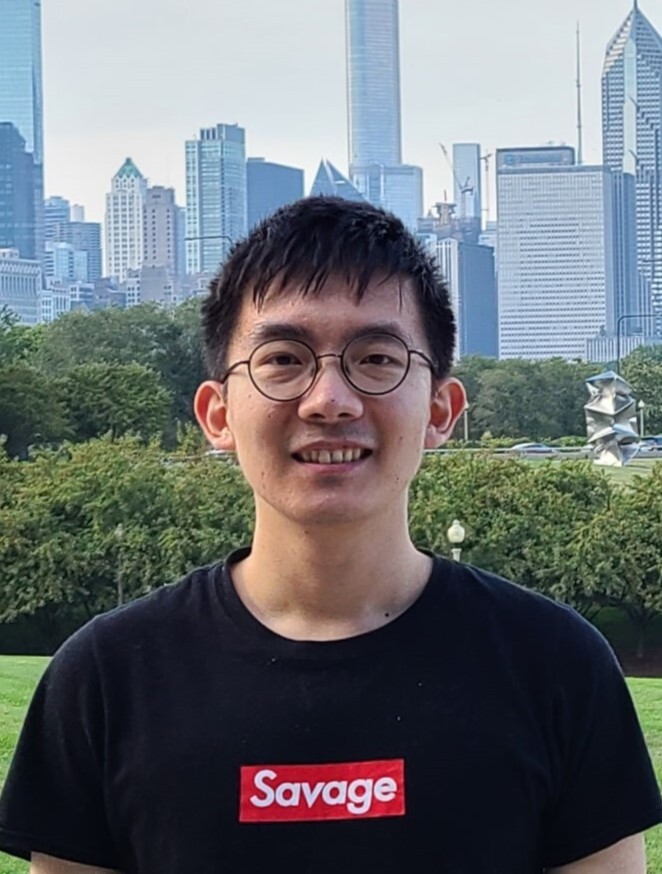 |
Haosu (Susu) Cong |
 |
María Tocora |
 |
Rujuta Vaidya |
 |
Prothama (Pro) Manna |
 |
Gbolahan Anthony Reis |
 |
Mete Yuksel |
Graduate Research Excellence Grants
W.D. Hamilton Award
SSE Presidents' Award for Outstanding Dissertation Paper
Outreach grants
Graduate/Postdoc Travel Awards
International Committee Travel Awards
 |
Shirley Zhang Member 2024-2025 |
||
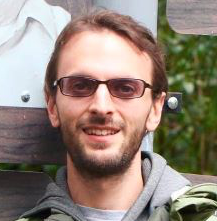 |
Robert Driver Member 2022-2024, Chair 2023 |
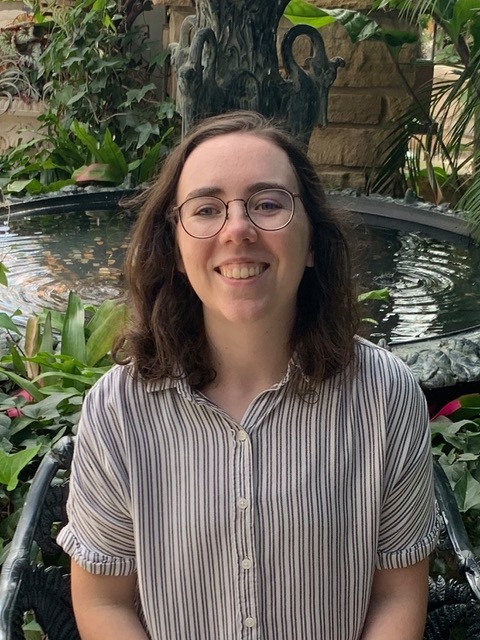 |
Jill Love Member 2023-2024 |
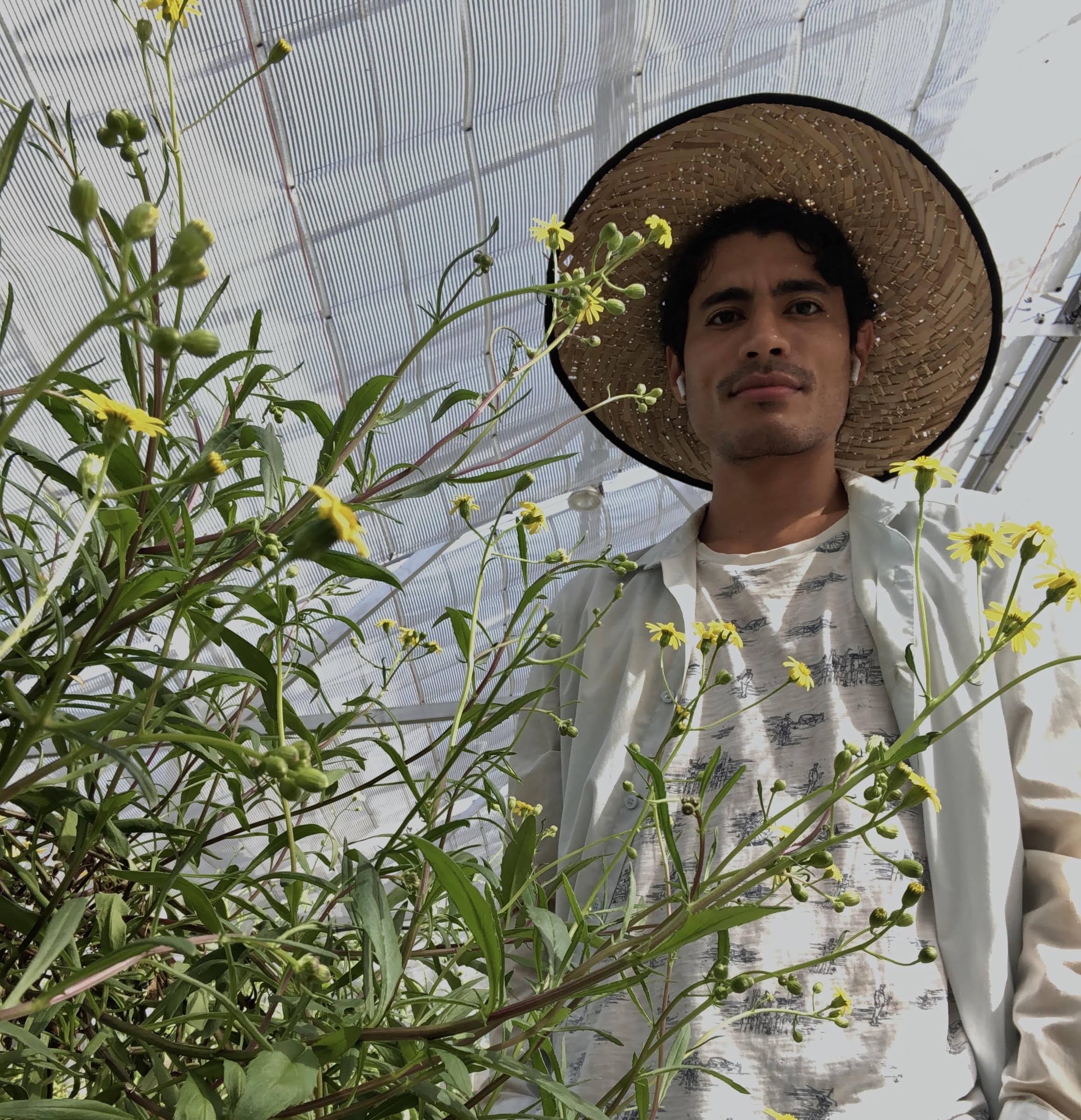 |
Henry Arenas-Castro Member 2021-2023, Chair 2022 |
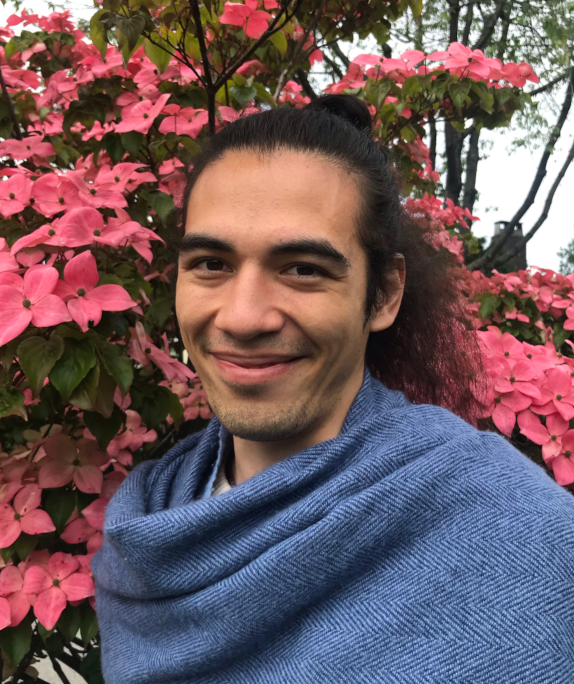 |
Léonard Dekens Member 2022-2023 |
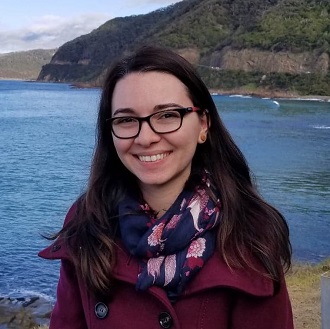 |
Cathy Hernandez Member 2022-2023 |
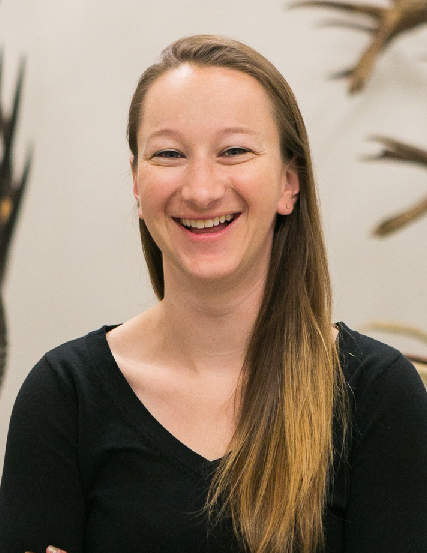 |
Elizabeth Carlen Member 2020-2022, Chair 2021 |
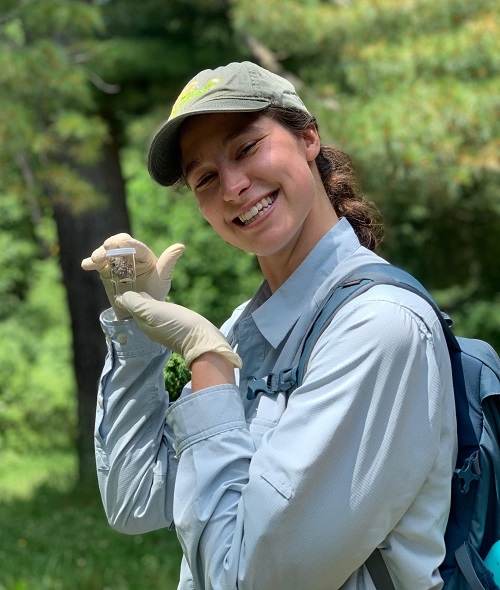 |
Emily Laub |
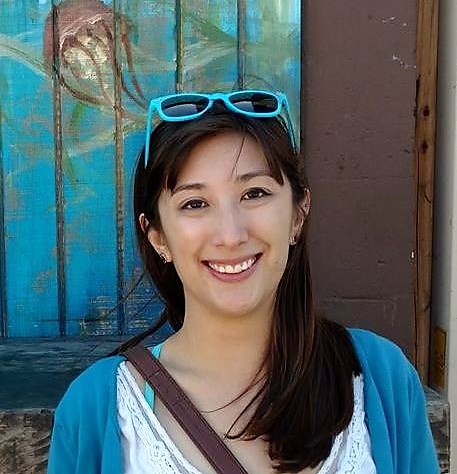 |
Sally Chang Member 2019-2021, Chair 2020 |
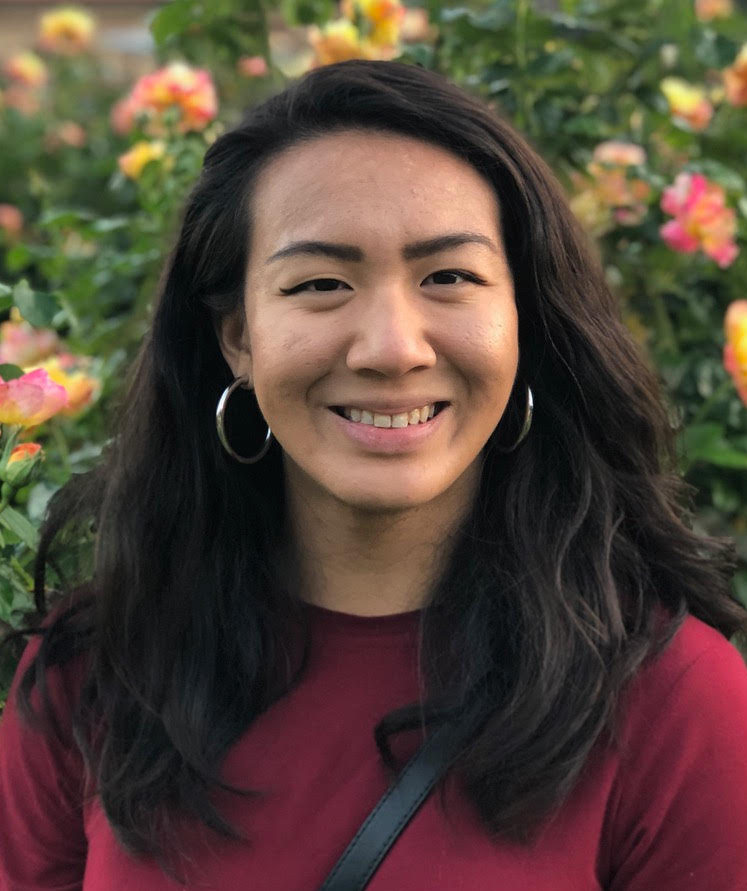 |
Catherine Chen |
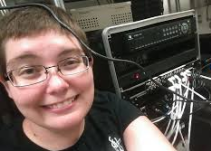 |
Erin Giglio Member 2020-2021 |
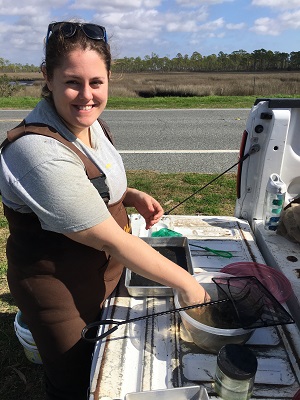 |
Liz Lange |
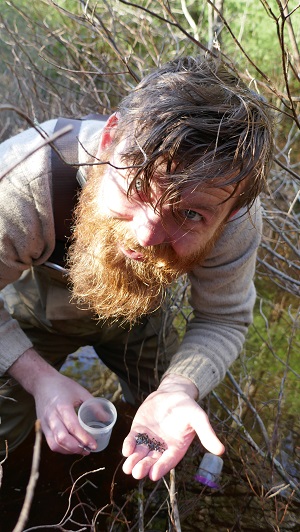 |
Andis Arietta Member 2019-2020 |
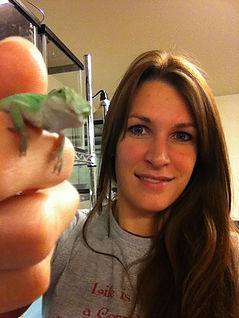 |
Jodie Wiggins |
|
José Cerca Member 2018-2019 |
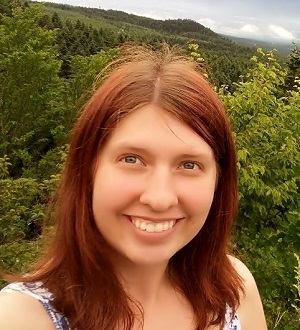 |
Melissa Plakke |
|
Megan Kobiela Member 2016-2018, Chair 2017 |
|
|
Daren Card |
|
Cathy Rushworth Member 2013-2017, Chair 2013-2016 |
|
|
Melissa E. Kemp |
|
Aide Macias Muñoz Member 2016-2017 |
|
|
Karl Grieshop |
|
|
||
|
|
||
|
January 23, 2015
Dear SSE Colleagues:
Welcome to another exciting year as part of this community.
Congratulations and thanks to our newly elected Council members!
President-elect Kim Hughes (Florida State University)
Secretary Cynthia Weinig (University of Wyoming)
Councilor Andrea Case (Kent State University)
Councilor Kristi Montooth (University of Nebraska)
Additionally, special thanks to Maria Servedio (University of North Carolina at Chapel Hill), who will serve as a new Handling Editor for Evolution. You can always find out current list of officers, council and committee members HERE.
 The 2015 SSE Annual Meeting
The 2015 SSE Annual Meeting
Get your passports and VISAs readyfor the next SSE annual meeting which will take place June 26-30, 2015 at theCasa Grande Resort in Guarujá, Brazil. We anticipate that registration and abstract submission will open in early February. Some information is already being posted at theEVOLUTION 2015 meeting site. More information about meeting registration and abstract submission will be coming to your inbox very soon!
SSE Awards Accepting Nominations/Submissions
There are a number of deadlines upcoming for SSE Awards.
Fisher Prize - January 31
Dobzhansky Prize - February 15
Rosemary Grant Research Award - April 1
Travel Stipends for Students Going to Brazil
Consider applying for or encouraging one of your students to apply for the Hamilton Award this year. The W.D. Hamilton Award for Outstanding Student Presentation will be given to a student who has presented an outstanding talk at the annual meeting. Finalists will present their papers during a day-long symposium of Hamilton award candidate talks. This year, finalists will receive a registration waiver and a $500 travel stipend from the SSE. Apply by February 20th to be considered. Learn more and find the link to apply HERE.
In addition to the Hamilton Award, SSE anticipates making approximately 90 Student Travel awards that will include a $500 stipend and free registration to facilitate student attendance at the 2015 annual meetings in Guaruja, Brazil. Awards will be made on a lottery basis from eligible applications completed by the deadline. Eligibility - open to graduate and undergraduate students enrolled in a degree-granting program at the time of registration, students must be presenting original work at the Evolution 2015 meeting and must be a current member of SSE. A short application form must be filled out on the SSE web site. You must log in as a member to view the application form. Deadline is February 12.
Thank you for your continued work and support of our mission.
Best wishes,
Daphne Fairbairn, President
Society for the Study of Evolution

SSE Business Office
PO Box 299 | St. Louis Missouri, 63166
314-577-9566
www.evolutionsociety.org
Congratulations to the recipients of the Student Travel Stipend to attend the Evolution 2015 meeting in Brazil. If you are on the recipients list and unable to attend the meeting, please let us know immediately when you know this, as we will move up the next person on the waiting list.
There are two steps you must take in order to receive the travel stipend.
1) You must complete the online "Evolution 2015 Travel Stipend Recipient Information" form by 9am on Wednesday, April 15th. This form merely asks for your mailing address and the name as it should appear on your check.
2) Participants must email their flight confirmation receipt to Wanda at WLovan@botany.org by noon MDT on Wednesday, April 15th.
Travel checks will be mailed on April 15th.
| First Name | Last Name | Institution | Advisor |
| Stepfanie | Aguillon | Cornell University | Richard G. Harrison & Irby J. Lovette |
| Brett | Aiello | University of Chicago | Dr. Melina Hale |
| Emily | Behrman | University of Pennsylvania | Paul Schmidt |
| Jennifer | Benetti-Longhini | Middle Tennessee State University | Dr. Andrew Brower |
| Moises | Bernal | University of Texas Marine Science Institute | Benjamin Walther |
| Noelle | Bittner | University of California Berkeley | Michael W. Nachman |
| Lisa | Bono | University of North Carolina at Chapel Hill | Christina Burch |
| Clare | Brown | Louisiana State University | Frederick Sheldon |
| Joanna | Bundus | University of Toronto | Asher Cutter |
| Alita | Burmeister | Michigan State University | Richard Lenski |
| Ryan | Calhoun | University of Western Ontario | Amanda Moehring |
| Elizabeth | Carlen | California Academy of Sciences | John P Dumbacher |
| Jason | Cassara | Florida State University | David Houle |
| Logan | Cole | Indiana University | Jeffrey D. Palmer |
| Eve | Culbreth | The Florida State University | Dr. Joseph Travis |
| Mitchel | Daniel | University of Toronto | Dr. Helen Rodd |
| Mitra | Eghbal | University of Pennsylvania | Paul Sniegowski |
| Lauren | Esposito | CUNY Queens College | Dr. John J. Dennehy |
| Benjamin | Freeman | Cornell University | John Fitzpatrick |
| Natalia | Garcia | Museo Argentino de Ciencias Naturales "Bernardino Rivadavia" | Pablo L. Tubaro |
| XINGYUE | GE | University of Arizona | Mike Barker |
| Noah | Gettle | University of Minnesota | Michael Travisano |
| Alannie | Grant | University of Pittsburgh | Susan Kalisz |
| Robin | Green | Fred Hutchinson Cancer Research Center/ University of Washington | Wenying Shou |
| Alex | Hall | The University of Texas at Arlington | Matthew Fujita |
| Alice | Harada | Scripps Institution of Oceanography (University of California, San Diego) | Ronald Burton |
| Brock | Harpur | York University | Amro Zayed |
| Lily | Hughes | George Washington University | Guillermo Orti |
| Annie | Jeong | Duke University | John Willis |
| Rachelle | Kanippayoor | University of Western Ontario | Dr Amanda Moehring |
| Jonathan | Kennedy | University of Copenhagen | Carsten Rahbek |
| Berrit | Kiehl | Uppsala University, EBC, Department of Ecology and Genetics, Evolutionary Biology | Simone Immler |
| Abigail | Kimmitt | Indiana University, Bloomington | Ellen Ketterson |
| Katie | LaBarbera | University of California - Berkeley | Eileen Lacey |
| Pablo | Lavinia | Museo Argentino de Ciencias Naturales "Bernardino Rivadavia" | Dario Lijtmaer |
| Nicholas | Levis | University of North Carolina-Chapel Hill | David Pfennig |
| Christopher | Luszczek | York University | Dr. Roberto Quinlan |
| Maria | Marchan-Rivadeneira | Texas Tech University-UMICH | Dr. Robert J. Baker |
| Gina | Marchini | Portland State University | Mitchell Cruzan |
| Kyle | McCulloch | University of California, Irvine | Adriana Briscoe |
| Matthew | McElroy | University of Washington | Adam Leache |
| Iliana | Medina | Australian National University | Dr. Naomi Langmore |
| Elizabeth | Miller | University of Arizona | John Wiens |
| Grey | Monroe | Colorado State University | John McKay |
| Mauricio | Montano-Rendon | University of Sheffield | Roger K. Butlin |
| Pamela | Morales | Universidad de Chile | Marco Méndez |
| Erin | Morrison | University of Arizona | Alexander Badyaev |
| Trieste | Musial | Emory University | Leslie Real |
| David | Ocampo | Universidad de los Andes | Carlos Daniel Cadena |
| Stephen | Ordway | University of Missouri - St. Louis | Sonya Bahar |
| Isaac | Overcast | City University of New York | Mike Hickerson |
| Kayla | Peck | UNC Chapel Hill | Christina Burch |
| Sydney | Pickett | Case Western Reserve University | Dr. Gavin Svenson |
| Melissa | Plakke | University of Pittsburgh | Dr. Nathan Morehouse |
| Paulo | Pulgarin | Universidad de Los Andes | Carlos Daniel Cadena |
| Joanna | Rifkin | Duke University | Mark D. Rausher |
| Julio | Rivera | University fo Hawaii | Marguerite Butler |
| Kelly | Rooker | University of Tennessee, Knoxville | Dr. Sergey Gavrilets |
| Vanessa | Rossetto Marcelino | University of Melbourne | Heroen Verbruggen |
| Tomoko | Sakishima | University of Hawaii at Hilo | Dr. Elizabeth Stacy |
| Shayla | Salzman | Harvard University | Naomi Pierce |
| Brian | Sanderson | University of Virginia | Edmund D. Brodie III |
| Rena | Schweizer | UCLA | Robert K Wayne |
| Peter | Scott | University of Alabama | Dr. Leslie Rissler |
| Jeff | Shi | University of Michigan | Dan Rabosky |
| Allison | Shultz | Harvard University | Scott Edwards |
| Joel | Smith | University of Chicago | Dick Hudson & John Novembre |
| Peter | Smits | University of Chicago | Michael Foote |
| Taichi | Suzuki | University California Berkeley | Michael Nachman |
| Sumaetee | Tangwancharoen | Scripps Institution of Oceanography,UCSD | Ron Burton |
| Andrew | Thompson | The George Washington University | Guillermo Orti |
| Ken | Thompson | University of Toronto Mississauga - Department of Biology | Marc TJ Johnson |
| James | Titus-McQuillan | University of Texas at Arlington | Dr. Matthew Fujita |
| Gabriela | Toledo | University of Virginia | Edmund D Brodie III |
| Natalia | Trujillo Arias | Museo Argentino de Ciencas Naturales | Gustavo Sebastian Cabanne |
| Mitch | Tucker | University of Missouri | Dr. H. Carl Gerhardt |
| Judit | Ungvari-Martin | University of Florida | Scott Robinson |
| Brandon | Waltz | University of Louisiana at Lafayette | James Albert |
| Emily | Warschefsky | Florida International University | Dr. Eric von Wettberg |
| Ryan | Weaver | Auburn University | Geoffrey Hill |
| Jessica | Weber | University of New Mexico | Joseph Cook |
| Emily | Weigel | Michigan State University | Jenny Boughman |
| Emily | Weiss | Oregon State University | Dee Denver |
| Alexander | White | University of Chicago | Trevor Price |
| Benjamin | Winger | University of Chicago | John Bates |
| Michael | Wiser | Michigan State University | Richard Lenski |
| Corlett | Wood | University of Virginia | Edmund Brodie III |
| Perry | Wood | Brigham Young University | Jack W. Sites Jr. |
| Rosana | Zenil-Ferguson | University of Florida | Jose Miguel Ponciano |
| Daniel | Zydek | University of South Florida | Marc Lajeunesse |
The students on the list below are on a waiting list. If any of the travel award winners declines their award, we will be contacting students from the list below in the order they were selected in the lottery.
| First Name | Last Name | Institution | Advisor |
| Clarissa | Fontes | University of California Berkeley | Todd Dawson |
| Matthew | Galliart | Kansas State University | Loretta Johnson |
| Eva | Salas | UC Santa Cruz | Luiz Rocha |
| Arthur | Porto | Washington University in St Louis | Dr James M. Cheverud |
| Susan | Kennedy | University of California - Berkeley | Rosemary Gillespie |
| Sarah | Sander | University of Georgia | David Hall |
| Margarita | Baquero | Mississippi State University | Dr. Brian A. Counterman |
| Kayce | Bell | University of New Mexico | Joseph Cook |
| Karan | Singh | IISER Mohali | Dr.N.G.Prasad |
| Dawn | King | University of Missouri at St. Louis | Sonya Bahar |
| Pauline | Pantoja | University of Stirling | Mario Vallejo-Marin |
| Lauren | Gonzalez | University of Florida | Pamela Soltis |
| Susan | Finkbeiner | University of California, Irvine | Adriana Briscoe |
| Adrian | Garcia-Rodriguez | Universidade Federal do Rio Grande do Norte, Brazil | Dr. Gabriel Costa |
| Kristin | Winchell | University of Massachusetts Boston | Liam Revell |
| Taylor | Edwards | University of Arizona | Dr. Melanie Culver |
| Jessa | Justen | University of Wisconsin- Madison | Dr. Sean B. Carroll |
| Noah | Burg | CUNY/AMNH | Mark E. Hauber |
| Paul | Chafe | York University | Dr. joel Shore |
| Jessica | Valdes | The University of Texas at Austin | Julia Clarke |
| Shaina | Lu | Swarthmore College | Vince Formica |
| Amber | Paasch | American Museum of Natural History | Eunsoo Kim |
| Willian | Silva | Uppsala University | Simone Immler |
| Sean | Edgerton | California Academy of Sciences | Shannon N. Bennett |
| Renan | Rodrigues Rocha | Universidade Federal de Viçosa - Campus Rio ParanaÃba | Rubens Pazza |
| Gerardo | Serrato-Capuchina | University of North Carolina-Chapel Hill | David Pfennig |
| Aide | Macias Munoz | University of California, Irvine | Adriana Briscoe |
| Madeline | Keleher | Washington University in St. Louis | Jim Cheverud and Jennifer Duncan |
| Adriana | Salcedo | Univeristy of Toronto | Stephen Wright, John Stinchcombe |
| Gideon | Bradburd | UC Davis | Graham Coop |
| Eric | Garcia | University of California Santa Cruz | Dr. Giacomo Bernardi |
| Patrick | Monnahan | University of Kansas | Dr. John Kelly |
To review the "Call for Applications" - click here
To review the "Call for Applications" - click here
The following awards provide funding for travel to the annual Evolution meeting. Travel award recipients are not eligible to volunteer at the conference.
SSE Undergraduate Diversity at Evolution Program
SSE Graduate Student and Postdoc Registration Waiver
SSE International Travel Stipends
SSE Global Membership Assistance Program - Meeting Participation
SSE Caregiver Awards
This travel award brings talented and diverse undergraduates to the meeting to present a poster, receive mentoring and participate in a career-oriented 'Undergraduate Futures in Evolutionary Biology' panel and discussion. The program covers travel, registration, and room and board. For more information and to submit an application visit the UDE webpage.
This program is for graduate students and postdoctoral fellows interested in attending and presenting at the in-person annual Evolution meeting, especially those who need additional financial support in order to attend. This program replaces the SSE Graduate Student and Postdoc Travel Supplement.
Requirements:
*This includes recent graduates who have recently lost their employment and are experiencing a reduction in travel support.
Applicants requiring additional funding to attend the Evolution meeting will be randomly selected. If surplus funding is available, applicants not requiring additional funding will be randomly selected. Awards should be split between graduate students and post docs in the same approximate ratio of applications (i.e. if 20% of applicants are postdocs, 20% of awards go to postdocs).
To apply, please complete this form.
Deadline: March 15, 2025
Recipients will receive a code for free registration for the in-person portion of the Evolution meeting at the early-bird society member student or postdoc rate. In 2025, the in-person portion of the Evolution meeting will be held in Athens, GA, USA from June 20-24. Meeting registration is expected to open in February. Recipients will be selected and notified by March 30 and should be sure to register ahead of the early discount deadline.
These stipends are for students and young scientists to attend the in-person portion of the 2025 Evolution meeting in Athens, GA, USA on June 20-24, 2025. In years where ESEB meets separately from SSE, ASN, and SSB, the award may be used for either meeting.
Eligibility:
Members professionally based in the following countries are not eligible for the travel stipend: Australia, Austria, Belgium, Canada, China, Croatia, Cyprus, Czech Republic, Denmark, Estonia, Finland, France, Germany, Greece, Hungary, Iceland, Ireland, Israel, Italy, Japan, Luxemburg, Malta, Netherlands, New Zealand, Norway, Poland, Portugal, Singapore, Slovakia, Slovenia, South Korea, Spain, Sweden, Switzerland, United Kingdom, United States of America.
NOTE: If you are a graduate student or postdoctoral fellow from a low GDP country, you are eligible to apply for the International Travel Stipend AND the Graduate Student and Postdoc Registration Waiver, though no one will be granted more than one award, as the International Travel Stipend includes a registration waiver.
To apply, please submit the following materials:
Download a template for the budget here. Please include how many days you plan to stay. University dormitories will be one lodging option for meeting registrants; we encourage applicants to plan to use this option. Recipients will receive lodging funding up to the daily rate of the dormitory rate.
The application and budget should be included in a single PDF and emailed to the SSE International Committee Chair at international [at] evolutionsociety.org. The letter of support should be emailed to international [at] evolutionsociety.org by the letter writer.
Deadline: January 31, 2025
Applicants will receive decisions on their applications by the end of February. Recipients will receive a code for meeting registration. All other expenses will be reimbursed after the meeting following submission of receipts. Recipients will receive further instructions for reimbursement from the SSE Treasurer.
SSE is pleased to offer free registration for the virtual portion of the meeting to SSE members who reside in one of the 152 countries and territories eligible for the Global Membership Assistance program. Eligible members should request a discount code using the form on the Membership page. If you are not yet a member of SSE, please join before completing the form. Please apply as soon as possible if you plan to attend the meeting.
The SSE Caregiver Award is meant to assist members who have additional needs and responsibilities that can inhibit participation at the annual Evolution meeting. This award provides up to $500 to SSE members that need assistance in covering caregiver costs while attending the annual Evolution meeting (in person or virtually). A "caregiver" is broadly defined and includes people caring for children or dependent adults (including adult children with a disability or elderly relatives), and people in need of personal assistance; this award can be spent as the awardee wishes to facilitate attendance.
For example, this award can be used (but is not limited) to:
Awardees can spend this money in whatever way will help alleviate the cost of caregiving. All career stages are eligible to apply. Preference will be given to students and postdocs. We anticipate up to 20 awards will be made available, depending on the number of applicants. Apply here.
Deadline: March 15, 2025
The Public Policy Committee was formed in 2017, and advises the Council on issues of science and public policy. The Public Policy Committee monitors changes to policies and laws that impact evolution as a field, the support of scientific research, and/or the research of SSE members.
To bring issues of relevance to the attention of the committee, please contact the Public Policy Committee chair at policy [at] evolutionsociety.org.
How to contact your Congress and House representatives:
Policy Training for Scientists:
The American Institute for Biological Sciences (AIBS) Public Policy Office works at the interface of science and public policy. The office, staffed by science policy professionals, works to promote the use of biological sciences knowledge in our nation's public policy, and to develop and advance science policy that serves the needs of the scientific research and education communities, particularly the biological sciences.
The Fulbright Association organizes a policy day in DC to meet with members of the House and Senate to share their international experiences and urge support: https://fulbright.org/advocacy/fulbright-advocacy-day/
The American Association for the Advancement of Science offers the year-long AAAS Science Policy Fellowship, a great way to network and develop hands on experience: https://www.aaas.org/programs/science-technology-policy-fellowships/overview
The Ecological Society of America lists multiple science policy fellowships here: https://www.esa.org/policy/esa-policy-section/resources/
Organizations engaged in science policy:
The Royal Society provides independent, timely and authoritative scientific advice to UK, European and international decision makers.
The Parliamentary Office of Science and Technology (POST) is Parliament's in-house source of independent, balanced and accessible analysis of public-policy issues related to science and technology.
The Royal Society of Biology engages in policy work and offers policy resources.
The Alliance for Useful Evidence is a network, hosted by the UK’s innovation charity Nesta, that champions the smarter use of evidence in social policy and practice.
Public Policy Training for Scientists:
British Ecological Society Policy Fellowship: With funding of up to £20,000, The BES Policy Fellowship will offer a mid-career ecologist (at least five years post-PhD) the chance to spend up to six months on a placement embedded within Defra or one of its agencies.
Have useful links from the country you live in? Please send them to us! communications@evolutionsociety.org
|
Graduate Research Excellence Grant (GREG) – R. C. Lewontin Early Award |
Graduate Research Excellence Grant (GREG) - Rosemary Grant Advanced Award |
|
| The GREG R. C. Lewontin Early Awards are to assist students in the early stages of their Master's or PhD programs by enabling them to collect preliminary data (to pursue additional sources of support) or to enhance the scope of their research beyond current funding limits (e.g. by visiting additional field sites, or working at other labs). Awards up to $2500. Students need to confirm that the proposed work is outside of funding already held by the student or advisor. |
The GREG Rosemary Grant Advanced Awards are to assist students in the later stages of their PhD programs. Funds can be used to enhance the scope of dissertation research, such as to conduct additional experiments or field work. Awards up to $3500. Only advanced* PhD students whose defense date is more than 12 months from the proposal due date are eligible. Eligibility can be confirmed by the advisor or graduate director stating that the student fulfills these requirements. Students should confirm that the proposed work is outside the scope of other funding currently held by either the student or their advisor. *See full instructions for definition. |
|
NOTE: Indirect costs may not be charged to any of our awards or grants.
R. C. Lewontin Early Award
Benjamin Alston, University of Sheffield. Advisor: Alison Wright
Taylor Black, Texas A&M University. Advisor: Rachel Moran
Laura Blumensaadt, University of Montana. Advisor: Zachary Cheviron
Brendon Byrd, University of Oklahoma. Advisor: Laura Stein
Natalie Dietz, University of Montana. Advisor: Lila Fishman
Soren Johnson, University of Missouri-St. Louis. Advisor: Michi Tobler
Jamie Leonard, Princeton University. Advisor: Jonathan Levine
Ephie Magige, University of Georgia. Advisor: Jill Anderson
Steven Mayer, UNC Chapel Hill. Advisor: Christina Burch
Denise Meier, University of Michigan. Advisor: Liliana Cortes-Ortiz
Thales Moreira de Lima, University of Edinburgh. Advisor: Pete Hollingsworth
Ruby Mustill, Texas A&M University. Advisor: Courtney Fitzpatrick
Naima Okami, Columbia University. Advisor: Peter Andolfatto
Sara Pedraza, University of California, Los Angeles. Advisor: Felipe Zapata
Mikhail Plaza, University of California, Riverside. Advisor: Kieran Samuk
Gbolahan Anthony Reis, Utah State University. Advisor: Zachariah Gompert
Askhan Shametov, University of Kansas. Advisor: Jae Young Choi
Brennan Silva, University of California, Riverside (UCR). Advisor: Kate Ostevik
Alexander Stewart, University of Arizona. Advisor: Michael Barker
Elizabeth Thomas, University of Georgia. Advisor: Jill Anderson
Jair Torres, California State University, Stanislaus. Advisor: Tricia Van Laar
Rosemary Grant Advanced Award
Audrey Arner, Vanderbilt University. Advisor: Amanda Lea
Denis Calandriello Calio, Universidade de São Paulo (USP). Advisor: Tatiana Teixeira Torres
Ridhi Chandarana Rajesh, Dartmouth College. Advisor: Ryan Calsbeek
Alec Chiono, University of Colorado Boulder. Advisor: Nancy Emery
Tristram Dodge, Stanford University. Advisor: Molly Schumer
Claire Evensen, University of California Berkeley. Advisor: Britt Koskella
Anjali Gupta, University of Kansas. Advisor: Robert Unckless
Nadia Haghani, Stanford University. Advisor: Molly Schumer
Emily Kerns, University of Wisconsin-Madison. Advisor: Jesse Weber
Jill Love, Tulane University. Advisor: Kathleen Ferris
Ella Martin, University of Toronto. Advisor: Marc Johnson
R. C. Lewontin Early Award
Nathalie Alomar, Yale University. Advisor: Martha Muñoz
Neil Balchan, Oklahoma State University. Advisor: Guinevere Wogan
Tara Empson, University of Tennessee. Advisor: Elizabeth Derryberry
Anjali Gupta, University of Kansas. Advisor: Robert Unckless
Matthew Hack, University of Michigan. Advisor: Benjamin Winger
Azwad Iqbal, Cornell University. Advisor: Nina Therkildsen
Juliana Jiranek, University of Virginia. Advisor: Amanda Gibson
Gina Lucas, University of California Riverside. Advisor: Kieran Samuk
Jess Lund, University of Cambridge. Advisor: Claire Spottiswoode
Sage Madden, University of California Davis. Advisor: Gail Patricelli
Akshat Mall, University of Idaho. Advisor: Christopher Marx
Quinn McCallum, Louisiana State University. Advisor: Nicholas Mason
Jenna Palmisano, University of Central Florida. Advisor: Anna Savage
Faye Romero, University of Rochester. Advisor: Nancy Chen
Marissa Sandoval, University of California, Davis. Advisor: Santiago Ramirez
Fernando Torres, Johns Hopkins University. Advisor: Gabriel Bever
Wout van der Heide, Cornell University. Advisor: Kerry Shaw
Erica Vong, University of Ottawa. Advisor: Rajendhran Rajakumar
Claire Williams, University of Nevada, Reno. Advisor: Michael Logan
Maximiliano Zuluaga Forero, Cornell University. Advisor: Benjamin Sandkam
Rosemary Grant Advanced Award
Ethan Baldwin, University of Georgia. Advisor: Jim Leebens-Mack
Megan Barkdull, Cornell University. Advisor: Corrie Moreau
Joshua Dominguez, University of California San Diego. Advisor: Jonathan Shurin
Sylvia Durkin, University of California, Berkeley. Advisor: Michael Nachman
Alexis Heckley, McGill University. Advisor: Andrew Hendry
Megan Molinari, University of California, Santa Cruz. Advisor: Suzanne Alonzo
Laura Perez, Pennsylvania State University. Advisor: Mary Shenk
Tymofii Sokolskyi, University of Wisconsin-Madison. Advisor: David Baum
Shelby Tisinai, Washington State University. Advisor: Jeremiah Busch
Brittany Velikaneye, University of Massachusetts Dartmouth. Advisor: Genevieve Kozak
Amanda Vieira da Silva, Federal University of ABC. Advisor: Laura Leal
R. C. Lewontin Early Award
Karla Berg, Portland State University. Advisor: Mitchell Cruzan
Anusha Bishop, University of California, Berkeley. Advisor: Ian Wang
Austin Chipps, Louisiana State University. Advisor: Jake Esselstyn
Danae Diaz, Duke University. Advisor: Stephen Nowicki
Paula Fernandez Begne, University of Chicago. Advisor: Marcus Kronforst
Aidan Harrington, University of Minnesota, Twin Cities. Advisor: David Moeller
Matheus Januario Lopes de Sousa, University of Michigan. Advisor: Daniel Rabosky
Josh Knecht, Binghamton University. Advisor: James Sobel
Danai Kontou, University of Cambridge. Advisor: Andrew Tanentzap
Sebastian Mortimer, Oregon State University. Advisor: Aaron Liston
Autumn Peterson, Georgia Institute of Technology. Advisor: William Ratcliff
Karissa Plum, University of Houston. Advisor: Rebecca Zufall
Verónica Reyes-Galindo, Universidad Nacional Autónoma de México. Advisor: Alicia Mastretta-Yanes
Emma Rhodes, Auburn University. Advisor: Wendy Hood
Fabian C. Salgado Roa, The University of Melbourne. Advisor: Iliana Medina
Sergio Serrato-Arroyo, Arizona State University. Advisor: Silvie Huijben
Keana Tang, University of Kansas. Advisor: Kelly Matsunaga
Emily Terrill, University of Illinois Urbana-Champaign. Advisor: Eva Fischer
Matthew Treaster, University of Georgia. Advisor: Michael White
Robin Waterman, Michigan State University. Advisor: Jeffrey Conner
Rosemary Grant Advanced Award
Grace Burgin, Harvard University. Advisor: Robin Hopkins
Haley Carter, Northwestern University. Advisor: Norm Wickett
Dylan DeBaun, American Museum of Natural History. Advisor: Frank Burbrink
Owen Dorsey, Texas A&M University. Advisor: Charles Criscione
Yasmeen Erritouni, University of Washington. Advisor: Adam Leache
Matías Gómez-Corrales, The University of Rhode Island. Advisor: Carlos Prada
Maggie Grundler, University of California, Berkeley. Advisor: Erica Bree Rosenblum
Sarah McPeek, University of Virginia. Advisor: Edmund Brodie III
Henry North, University of Cambridge. Advisor: Chris Jiggins
Krish Sanghvi, University of Oxford. Advisor: Irem Sepil
Jeremy Summers, University of Rochester. Advisor: Nancy Chen
Rebecca Tarnopol, University of California - Berkeley. Advisor: Noah Whiteman
R. C. Lewontin Early Award in memory of George C. Gilchrist:
Tais Ribeiro, University of Maryland. Advisor: Anahi Espindola
R. C. Lewontin Early Award
Philip Bentz, University of Georgia. Advisor: Jim Leebens-Mack
Austin Calhoun, Illinois State University. Advisor: Ben Sadd
Maria Colt, University of Maryland. Advisor: Heidi Fisher
Danielle De La Pascua, University of California Davis. Advisor: Jennifer Gremer
Erik Iverson, The University of Texas at Austin. Advisor: Justin Havird
Matthew Kelbrick, University of Liverpool. Advisor: Siobhán O’Brien
Laura Leventhal, Stanford University. Advisor: Moises Exposito-Alonso
Jasen Liu, University of California, Davis. Advisor: Santiago Ramírez
Meghan Maciejewski, University of Illinois at Urbana-Champaign. Advisor: Alison Bell
Kelly Martin, University of Idaho. Advisor: Christine Parent
Kelly McCrum, University of Georgia. Advisor: Jill Anderson
Lisa Mesrop, University of California, Santa Barbara. Advisor: Todd Oakley
Kasey Pham, University of Florida. Advisor: Douglas Soltis
Raunak Sen, Cornell University. Advisor: Kerry Shaw
Rebecca Tarnopol, University of California - Berkeley. Advisor: Noah Whiteman
Colton Unger, University of Calgary. Advisor: Campbell Rolian
Veronica Urgiles Penafiel, Utah State University. Advisor: Molly Womack
Athmaja Viswanath, University of Toronto. Advisor: Asher Cutter
Emma Vtipilthorpe, North Carolina State University. Advisor: Seema Sheth
Gabrielle Welsh, University of Denver. Advisor: Robin Tinghitella
Xuening Zhang, Cornell University. Advisor: Anurag Agrawal
Rosemary Grant Advanced Award in memory of George C. Gilchrist:
Derek Denney, University of Georgia. Advisor: Jill Anderson.
Rosemary Grant Advanced Award
Colby Behrens, University of Illinois at Urbana-Champaign. Advisor: Alison Bell.
Ying Chen, Queen's University. Advisor: Stephen Lougheed.
Tanmay Dixit, University of Cambridge. Advisor: Claire Spottiswoode.
Robert Driver, East Carolina University. Advisor: Christopher Balakrishnan.
Santiago Herrera-Álvarez, University of Chicago. Advisor: Joseph Thornton.
Hanna Makowski, University of Virginia. Advisor: Laura Galloway.
Manish Pathak, Indian Institute Of Science Education And Research, Kolkata. Advisor: Sumana Annagiri.
Rozenn Pineau, Georgia Institute of Technology. Advisor: William Ratcliff.
Rosalyn Price-Waldman, Princeton University. Advisor: Mary Caswell Stoddard.
Jill Sanderson, University of Toronto. Advisor: Luke Mahler.
William Thomas, Stony Brook University. Advisor: Liliana Dávalos.
R.C. Lewontin Award in memory of George Gilchrist:*
Makenzie Whitener, University of Georgia. Advisor: Andrea Sweigart
R.C. Lewontin Early Award
McCall Calvert, University of Pittsburgh. Advisor: Corlett Wood
Regan Cross, Queen's University. Advisor: Christopher Eckert
Victor de Brito, Western Michigan University. Advisor: Devin Bloom
Jenna DeCurzio, University of North Carolina at Chapel Hill. Advisor: Christina Burch
Matthew Farnitano, University of Georgia. Advisor: Andrea Sweigart
Samantha Goldman, Cornell University. Advisor: Andrew Moeller
Diler Haji, University of California, Berkeley. Advisor: Noah Whiteman
Kelsie Hunnicutt, University of Denver. Advisor: Erica Larson
Will Jarvis, University of Ottawa. Advisor: Howard Rundle
Sungsik Kong, The Ohio State University. Advisor: Laura Kubatko
Emily Lau, University of California Santa Barbara. Advisor: Todd Oakley
Michelle McCauley, Emory University. Advisor: Levi Morran
Theresa Miorin, University of Georgia. Advisor: Kelly Dyer
Benjamin Moran, Stanford University. Advisor: Molly Schumer
Emily Nonnamaker, The University of Notre Dame. Advisor: Elizabeth Archie
Klara Norden, Princeton University. Advisor: Mary C. Stoddard
Kennedy Omufwoko, Princeton University. Advisor: Sarah Kocher
Ian Rines, Illinois State University. Advisor: Ben Sadd
Srijan Seal, Ashoka University. Advisor: Imroze Khan
Ruben Tovar, The University of Texas at Austin. Advisor: David Hillis
Adrian Troya, Universidade Federal do Parana. Advisor: John Lattke
Mackenzie Urquhart-Cronish, University of British Columbia. Advisor: Amy Angert
*This award was funded by donations to the George Gilchrist Student Support Fund.
Beginning with the 2020 Graduate Research Excellence Grant competitions, SSE requested voluntary demographic information from award applicants in an effort to address bias and promote equity in awarding across multiple axes of diversity. Learn more here.
Rosemary Grant Advanced Awards in memory of George Gilchrist:*
Jessica Aguilar, University of California Berkeley. Advisor: Noah Whiteman
Brandie Quarles, Duke University. Advisor: Kathleen Donohue
Rosemary Grant Advanced Award
Upama Aich, Australian National University. Advisor: Michael Jennions
Giorgia Auteri, University of Michigan. Advisor: L. Lacey Knowles
Henry Ertl, University of Michigan. Advisor: Patricia Wittkopp
Alice Gadau, The Rockefeller University. Advisor: Li Zhao
Benjamin Gerstner, University of New Mexico. Advisor: Ken Whitney
Yuki Haba, Princeton University. Advisor: Carolyn McBride
Michaël Nicolaï, Universiteit Gent. Advisor: Matthew Shawkey
Arjuna Rajakumar, McGill University. Advisor: Ehab Abouheif
Alexus Roberts, University of California, Davis. Advisor: Peter Wainwright
Pamela Santana, Universidade De Sao Paulo. Advisor: Paulo Guimarães Jr.
Xueling Yi, University of Wisconsin-Milwaukee. Advisor: Emily Latch
*These awards were funded by donations to the George Gilchrist Student Support Fund.
SSE is aware that historical and modern-day cultural biases and lack of diversity in an applicant pool may lead to biases in the allocation of grants, prizes, and awards. Beginning with the 2020 Graduate Research Excellence Grant competitions, SSE requested voluntary demographic information from award applicants in an effort to address bias and promote equity in awarding across multiple axes of diversity. Learn more here.
R.C. Lewontin Early Award
Valentina Alaasam, University of Nevada, Reno. Advisor: Jenny Ouyang
Aurora Alvarez-Buylla, Stanford University. Advisor: Lauren O'Connell
Matthew Biddick, Victoria University of Wellington. Advisor: Kevin Burns
Amanda Cicchino, Colorado State University. Advisor: W. Chris Funk
Reena Debray, University of California, Berkeley. Advisor: Britt Koskella
Paul Dougherty, University of Wyoming. Advisor: Matthew Carling
Trevor Faske, University of Nevada, Reno. Advisor: Thomas Parchman
Benjamin Flanagan, University of Southern California. Advisor: Suzanne Edmands
Connor French, City University of New York. Advisor: Michael Hickerson
Kaitlyn Howell, University of Texas at Arlington. Advisor: Matthew Walsh
Abigail Howell, Arizona State University. Advisor: Reed Cartwright
Mounica Kota, University of Minnesota. Advisor: Marlene Zuk
Jose Maldonado, Univeristy of Texas At Arlington. Advisor: Matthew Fujita
Olivia Meyerson, Harvard University. Advisor: Hopi Hoekstra
Libby Natola, University of British Columbia. Advisor: Darren Irwin
Alaina Petlewski, Cornell University. Advisor: Fay-Wei Li
Logan Sauers, Illinois State University. Advisor: Ben Sadd
Daniel Shaw, University of Georgia. Advisor: Michael White
Kayla Stoy, Emory University. Advisor: Nicole Gerardo
Elena Suglia, University of California, Davis. Advisor: Jennifer Gremer
Emilie-Katherine Tavernier, University of Florida. Advisor: Stuart McDaniel
Takuji Usui, University of British Columbia. Advisor: Amy Angert
Brooke Washburn, University of Denver. Advisor: Robin Tinghitella
Jia Zheng, University of Groningen. Advisor: Jan Komdeur
Context statement: We received 157 GREG R.C. Lewontin Early Award applications. The evaluation committee, Chaired by V.P. Tracey Chapman, selected 24 proposals for funding. Based on inferences from given names, 56.7% of Lewontin applicants and 62.5% of the winners are women. The evaluation committee consisted of 6 women and 3 men; 3 reviewers are GSAC members.
Rosemary Grant Advanced Award
Katrina Catalano, Rutgers, the State University of New Jersey. Advisor: Malin Pinsky
Dustin Gannon, Oregon State University. Advisor: F. Andrew Jones
Julia Kreiner, University of Toronto. Advisors: John Stinchcombe and Stephen Wright
Kara Million, Indiana University. Advisor: Curtis Lively
Shivangi Nath, University of Georgia. Advisor: Michael White.
Julianne Pelaez, University of California, Berkeley. Advisor: Noah Whiteman
George Sandler, University of Toronto. Advisors: Aneil Agrawal and Stephen Wright
Kwi Shan Seah, National University of Singapore. Advisor: Vinod Kumar Saranathan
Kate Snyder, Vanderbilt University. Advisor: Nicole Creanza
Paula Vasconcelos, Uppsala University. Advisor: Claus Rueffler
Julian Wagner, California Institute of Technology. Advisor: Joseph Parker
R.C. Lewontin Early Award
Aaron-Jay Alcala, University of Georgia. Advisor: Douglas Menke
Abrar Aljiboury, Syracuse University. Advisor: Jannice Friedman
Christina Balentine, The University of Texas at Austin. Advisor: Deborah Bolnick
Noori Choi, University of Nebraska-Lincoln. Advisor: Eileen Hebets
Derek Filipek, University of Kentucky. Advisor: David Weisrock
Kerry Gendreau, Virginia Tech. Advisor: Joel McGlothlin
Aaron Griffing, Marquette University. Advisor: Tony Gamble
Sonal Gupta, University of Michigan. Advisor: Regina Baucom
Natalia Gutierrez-Pinto, University of Nebraska-Lincoln. Advisor: Jay Storz
Lucas Henry, Princeton University. Advisor: Julien Ayroles
Jessica Hernandez, Virginia Tech. Advisor: Ignacio Moore
Anna Hiller, Louisiana State University. Advisor: Brant Faircloth
Michael Itgen, Colorado State University. Advisor: Rachel Mueller
Deidre Keating, University of Georgia. Advisor: Jill Anderson
Olivia Kosterlitz, University of Washington. Advisor: Ben Kerr
Emily Laub, University of Michigan. Advisor: Elizabeth Tibbetts
Emily Levy, Duke University. Advisor: Susan Alberts
Rachel MacTavish, University of Georgia. Advisor: Jill Anderson
Emily Powell, University of Miami. Advisor: J. Albert C. Uy
Bryan Reatini, University of North Carolina at Chapel Hill. Advisor: Todd Vision
Alexander Shephard, University of Minnesota Twin Cities. Advisor: Emilie Snell-Rood
Ken Thompson, University of British Columbia. Advisor: Dolph Schluter
Rosemary Grant Advanced Award
John Benning, University of Minnesota. Advisor: David Moeller
William Booker, Florida State University. Advisor: Emily Lemmon
Nicole Forrester, University of Pittsburgh. Advisor: Tia-Lynn Ashman
Benjamin Goulet, Harvard University. Advisor: Robin Hopkins
Ryan Greenway, Kansas State University. Advisor: Michael Tobler
Haley Kenyon, Queen's University. Advisor: Paul Martin
Justine Lamperty, Rice University. Advisor: Amy Dunham
Rachel Moran, University of Illinois at Urbana-Champaign. Advisor: Becky Fuller
Victoria Morgan, University of California, Davis. Advisor: Richard Grosberg
William Shoemaker, Indiana University Bloomington. Advisor: Jay Lennon
Brian Tanis, Oregon State University. Advisor: Rebecca Terry
Su'ad Yoon, University of Nevada Reno. Advisor: Matthew Forister
The current version of the GREGs were established in 2018. Previously, only the Rosemary Grant Awards were offered, and were for students in the early stages of their PhD. View previous recipients of those awards here.
The 2025 Evolution meeting, the joint meeting of the Society for the Study of Evolution (SSE), the American Society of Naturalists, and the Society of Systematic Biologists, will be held in two parts: a virtual portion on May 29-30, and an in-person portion on June 20-24 in Athens, GA, USA.
SSE Council invites proposals for two sponsored symposia at the in-person meeting, and one at the virtual meeting. Symposia should highlight new topics, provide new perspectives, and/or generate new syntheses. Each in-person symposium will consist of two 75 minute sessions separated by a coffee break; the virtual symposium schedule will likely be the same or very similar. Applicants have the option to indicate whether they are willing to host their symposium in-person only, virtual only, or either.
SSE Council seriously considers the diversity of participants as a criterion for symposium funding. Symposium organizers are expected to take into account gender, seniority, nationality, and other axes of diversity traditionally underrepresented in Society symposia, and to describe their efforts to do so in the proposal.
The Society provides travel support for organizers and participants in sponsored in-person symposia, up to $7000 USD per symposium. SSE will accept requests for additional funds for dependent care costs if this would allow a speaker to accept an invitation to speak in a sponsored symposium. For the virtual symposium, costs of speaker and organizer virtual-only registration will be covered, if necessary (those attending the in-person meeting get virtual registration included so do not need an extra virtual-only registration).
The deadline to submit a symposium proposal is January 6, 2025. Applicants will be notified by the end of January.
ELIGIBILITY
At least one of the symposium organizers submitting the proposal must be an SSE member. Invited speakers are not required to be SSE members.
Symposium proposals must include:
Proposals must be sent as a single PDF to Howard Rundle (execvp@evolutionsociety.org) with the subject “SSE Symposium Proposal.” Please expect and request confirmation of receipt of the proposal.
DEADLINE
To be assured of full consideration, proposals must be received by January 6, 2025. Decisions will be sent to applicants by the end of January.
2023: Evolution 2023, Albuquerque, New Mexico
2022: Evolution 2022, Cleveland, Ohio
2019: Evolution 2019, Providence, Rhode Island
2018: [Not applicable. Joint meeting with ESEB.]
2017: Evolution 2017, Portland, Oregon
2016: Evolution 2016, Austin, Texas
2015: Evolution 2025, Guarujá, Brazil
2022 |
|
|
|
|
|
|
|
December 2021 |
|
|
|
|
September 2021 |
|
|
|
|
August 2021 |
|
|
|
|
July 2021 |
|
|
|
|
June 2021 |
|
|
|
|
April 2021 |
|
|
|
|
March 2021 |
|
|
|
|
December 2020 |
|
|
|
|
October 2020 |
|
|
|
|
August 2020 |
|
|
|
|
May 2020 |
|
|
|
|
April 2020 |
|
|
|
|
March 2020 |
|
|
|
|
February 2020 |
|
|
|
|
January 2020 |
|
|
|
|
December 2019 |
|
|
|
|
November 2019 |
|
|
|
|
October 2019 |
|
|
|
|
September 2019 |
|
|
|
|
August 2019 |
|
|
|
|
July 2019 |
|
|
|
Dr. Yoav RamDr. Ram is a senior lecturer in the School of Computer Science at IDC Herzliya studying the evolution of processes that generate and transmit variation, both genetic and phenotypic. Read his full profile here. |
June 2019 |
|
|
|
Dr. C. Brandon OgbunuDr. Ogbunu is an assistant professor in the Department of Ecology and Evolutionary Biology at Brown University studying the complex interactions underlying disease phenomena across many scales. Read his full profile here. |
May 2019 |
|
|
Dr. Rachel GermainDr. Germain is an assistant professor in the Department of Zoology & the Biodiversity Research Centre at the University of British Columbia studying the ecology and evolution of species coexistence in spatially-structured landscapes. Read her full profile here. |
Dr. Josef UyedaDr. Uyeda is an assistant professor of evolutionary biology in the Department of Biological Sciences at Virginia Polytechnic and State University studying the drivers of phenotypic evolution at the macroevolutionary scale. Read his full profile here. |
March-April 2019 |
|
|
Dr. Daniel FieldDr. Field is an assistant professor in evolutionary paleobiology in the Department of Earth Sciences at the University of Cambridge studying the macroevolutionary history of birds. Read his full profile here. |
Dr. Fay-Wei LiDr. Li is an assistant professor at the Boyce Thompson Institute on the Cornell University campus studying the evolutionary processes at the gene, genome, and microbiome levels that shaped the plant diversity. Read his full profile here. |
February 2019 |
|
|
Dr. Katie McGheeDr. McGhee is an assistant professor in the Department of Biology at Sewanee: The University of the South studying the role parental effects have in shaping offspring behavior in a variety of fish species. Read her full profile here. |
Dr. Scott A. TaylorDr. Taylor is an assistant professor in the Department of Ecology and Evolutionary Biology at the University of Colorado Boulder studying the genetic architecture of reproductive isolation and the genetic bases of traits relevant to speciation. Read his full profile here. |
January 2019 |
|
|
Dr. Emily B. SessaDr. Sessa is an assistant professor at the University of Florida studying the evolutionary and ecological processes that shape plant diversity. Read her full profile here. |
Dr. Ricardo MallarinoDr. Mallarino is an assistant professor at Princeton University studying the genetic and developmental mechanisms driving the evolution of body form and structure in vertebrates. Read his full profile here. |
November-December 2018 |
|
|
Dr. Melissa KempDr. Kemp is an assistant professor at the University of Texas at Austin in the Department of Integrative Biology studying how environmental perturbations shape vertebrate communities through time and space. Read her full profile here. |
Dr. Anahí EspíndolaDr. Espíndola is an assistant professor in the Department of Entomology at the University of Maryland, College Park studying how the abiotic and biotic environment affects the way species interact and diversify. Read her full profile here. |
October 2018 |
|
Dr. Michael SheehanDr. Sheehan is an assistant professor in the Department of Neurobiology and Behavior at Cornell University studying the causes and consequences of social evolution. Read his full profile here. |
Dr. Aleeza GersteinDr. Gerstein is an assistant professor in the Departments of Microbiology & Statistics at the University of Manitoba studying how different ecological and genomic factors influence the rate and predictability of evolution. Read her full profile here. |
September 2018 |
|
|
|
Dr. Shane Campbell-StatonDr. Campbell-Staton is an assistant professor jointly appointed to the Ecology and Evolutionary Biology Department and the Institute for Society and Genetics at the University of California Los Angeles studying how climate shapes demographic history and adaptation over prehistoric and contemporary time periods. Read his full profile here. |
August 2018 |
|
|
Dr. Emily KaneDr. Kane is an Assistant Professor of Biology at Georgia Southern University. She studies ecological and evolutionary biomechanics; specifically, locomotion, feeding, and the links between those systems. Read her full profile here. |
|
July 2018 |
|
|
Dr. Claudia BankDr. Bank is the Principal Investigator of the Evolutionary Dynamics Group at the Instituto Gulbenkian de Ciencia in Oeiras, Portugal. She studies how populations adapt and diversify, with a specific interest in the role of epistasis during these processes. Read her full profile here. |
Dr. Stacy Krueger-HadfieldDr. Krueger-Hadfield is an Assistant Professor at the University of Alabama at Birmingham. She studies the evolution of sex, using algal and invertebrate models to investigate the mechanisms that underlie the maintenance of life cycle and mating system variation. Read her full profile here. |
June 2018 |
|
|
Dr. Martha MuñozDr. Muñoz is an Assistant Professor in the Department of Biological Sciences at Virginia Tech studying ecological processes and evolutionary patterns related to physiology. Read her full profile here. |
Dr. Michael WhiteDr. White is an Assistant Professor in the Genetics Department at the University of Georgia studying the evolution of sex chromosomes in threespine stickleback fish. Read his full profile here. |
May 2018 |
|
|
Dr. Alison WrightDr. Wright is a NERC Independent Research Fellow at the University of Sheffield studying evolutionary conflicts of interest between males and females and the genomic mechanisms that lead to their resolution. Read her full profile here. |
Dr. Cassie StoddardDr. Stoddard is an assistant professor of biology at Princeton University studying avian vision and coloration and the development and structure of avian eggs. Read her full profile here. |
April 2018 |
|
Dr. Jeremy YoderDr. Yoder is an assistant professor of biology at California State University Northridge studying coevolution and the population genomics of local adaptation. Read his full profile here. |
Dr. Megan Phifer-RixeyDr. Phifer-Rixey is an assistant professor of biology at Monmouth University studying the genetics of adaptation. Read her full profile here. |
|
|
|
March 2018 |
|
|
Dr. Rayna C. BellDr. Bell is a vertebrate research zoologist at the National Museum of Natural History studying the mechanisms that generate ecological and evolutionary diversity in amphibians and reptiles. Read her full profile here. |
Dr. Sarah W. FitzpatrickDr. Fitzpatrick is an assistant professor at the W.K. Kellogg Biological Station at Michigan State University studying how genetic drift, gene flow, and selection interact in small and recently isolated populations in a changing environment. Read her full profile here. |
We welcome nominations (and self-nominations) of SSE members who are within 3 years of starting an independent research position. We wish to highlight the diversity of positions, institutions, study systems, approaches and researchers in SSE. To nominate yourself or someone else, please fill out the nomination form: SSE New Faculty Profiles Nomination Form.
This profile is part of a series of New Faculty Profiles that highlight and introduce up-and-coming PIs in SSE. We invite highlighted faculty to discuss their research, describe how SSE has impacted their career, and share any tips or stories they may have for other researchers.
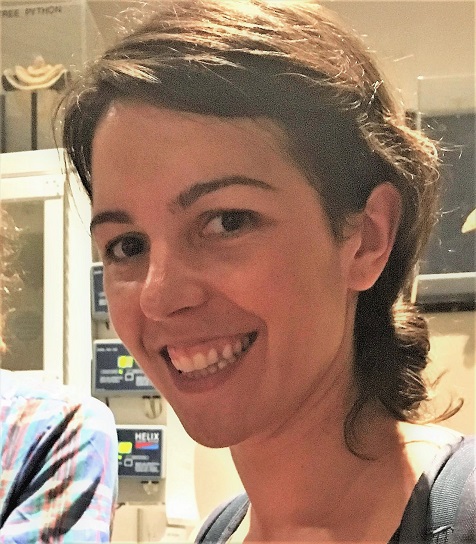 Dr. Rayna C. Bell
Dr. Rayna C. Bell
Research Zoologist, Curator of Amphibians + Reptiles
Department of Vertebrate Zoology
National Museum of Natural History
Smithsonian Institution
www.raynacbell.com
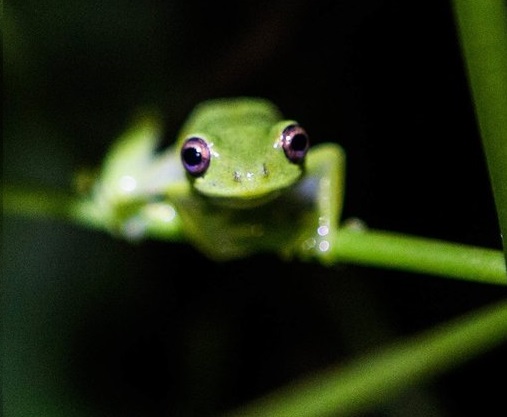
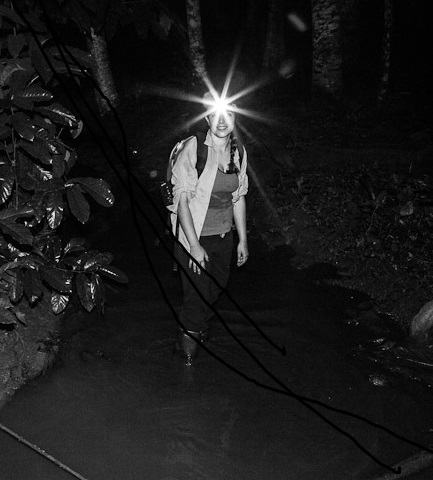
Rayna catching frogs on São Tomé.
Photo by Andrew Stanbridge
This profile is part of a series of New Faculty Profiles that highlight and introduce up-and-coming PIs in SSE. We invite highlighted faculty to discuss their research, describe how SSE has impacted their career, and share any tips or stories they may have for other researchers.
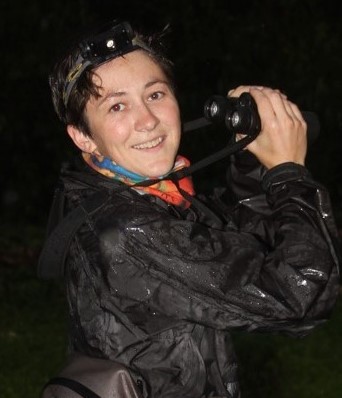 Dr. Sarah W. Fitzpatrick
Dr. Sarah W. Fitzpatrick
Assistant Professor
W.K. Kellogg Biological Station
Department of Integrative Biology
Colorado State University
www.swfitz.com
Started faculty position: January 2017
PhD: Department of Biology, Colorado State University; advisor: Dr. Chris Funk
Postdoc: W.K. Kellogg Biological Station, Michigan State University; advisors: Dr. Jeff Conner & Dr. Gary Mittelbach
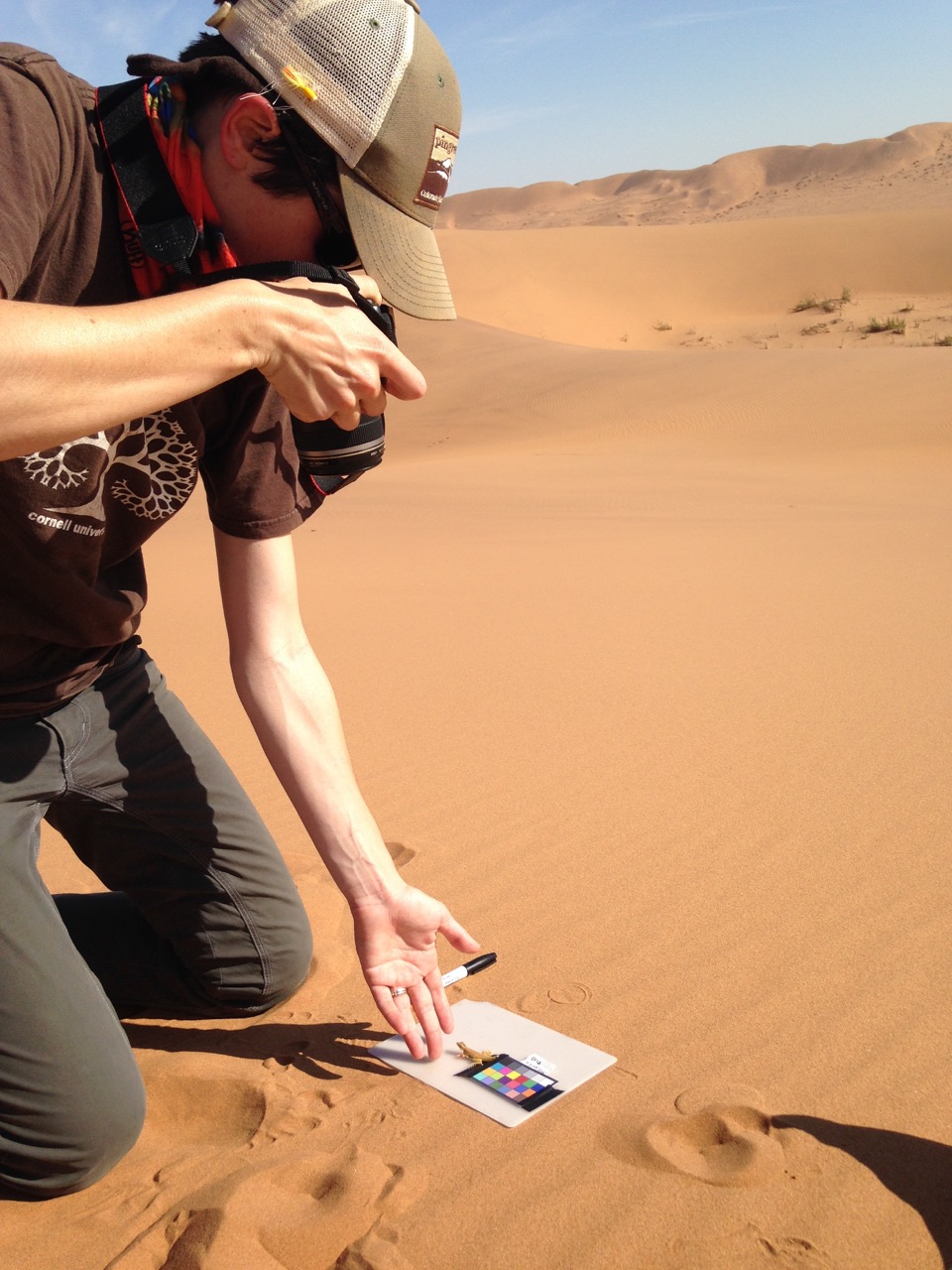
This profile is part of a series of New Faculty Profiles that highlight and introduce up-and-coming PIs in SSE. We invite highlighted faculty to discuss their research, describe how SSE has impacted their career, and share any tips or stories they may have for other researchers.
Dr. Jeremy Yoder
Assistant Professor of Biology
California State University Northridge
http://lab.jbyoder.org
Start Date: August 2017
PhD: University of Idaho, with Olle Pellmyr
Postdoc: University of Minnesota, with Peter Tiffin
Postdoc: University of British Columbia, with Sally Aitken
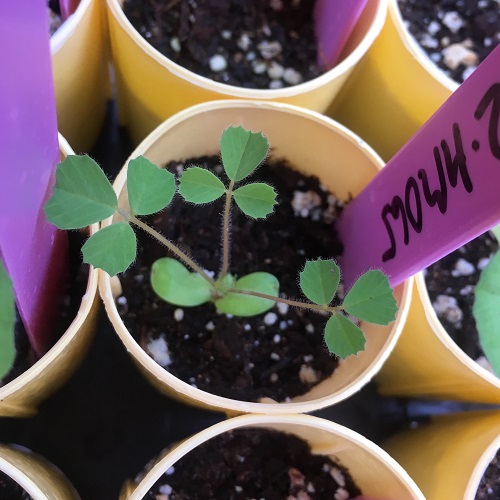

This profile is part of a series of New Faculty Profiles that highlight and introduce up-and-coming PIs in SSE. We invite highlighted faculty to discuss their research, describe how SSE has impacted their career, and share any tips or stories they may have for other researchers.
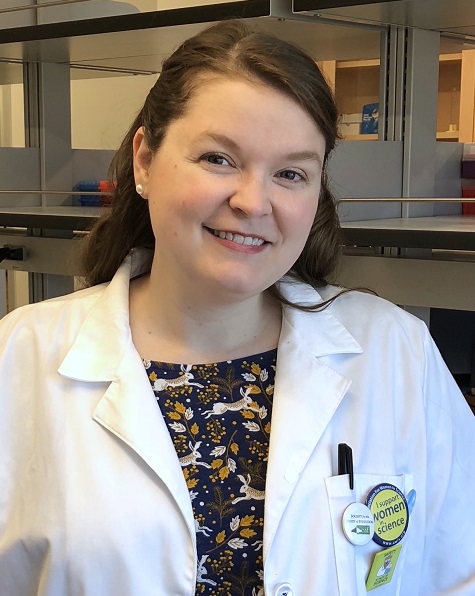 Dr. Megan Phifer-Rixey
Dr. Megan Phifer-Rixey
Assistant Professor
Biology Department
Monmouth University
phiferrixeylab.com
Start Date: Fall 2016
PhD: University of Pennsylvania; mentored by Dr. Paul S. Schmidt
Postdoc: University of Arizona and the University of California, Berkeley, both with Dr. Michael W. Nachman
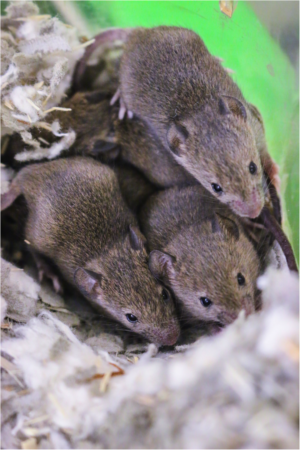
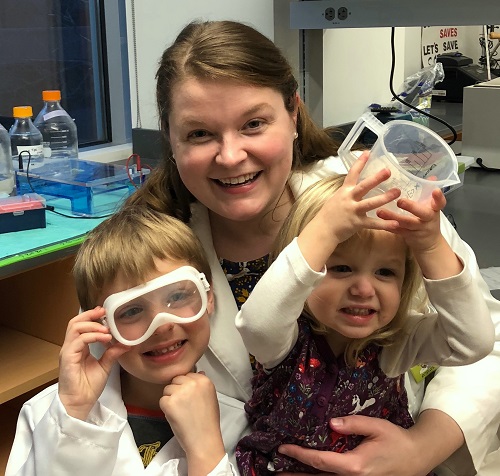
Read the Society for the Study of Evolution Data Privacy and Transparency Policy here.
This profile is part of a series of New Faculty Profiles that highlight and introduce up-and-coming PIs in SSE. We invite highlighted faculty to discuss their research, describe how SSE has impacted their career, and share any tips or stories they may have for other researchers.
 Dr. Alison Wright
Dr. Alison Wright
NERC Independent Research Fellow
Department of Animal and Plant Sciences
University of Sheffield
www.alisonewright.co.uk
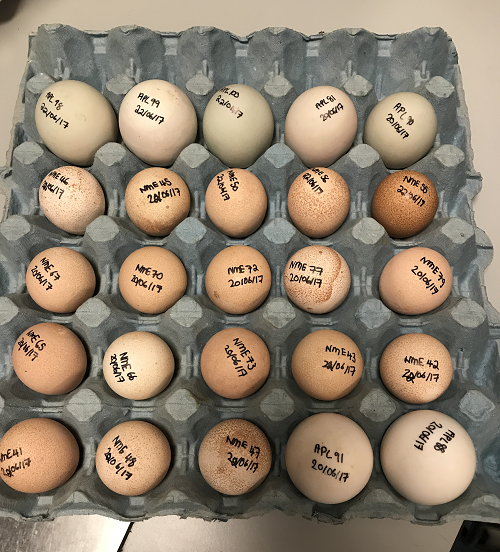
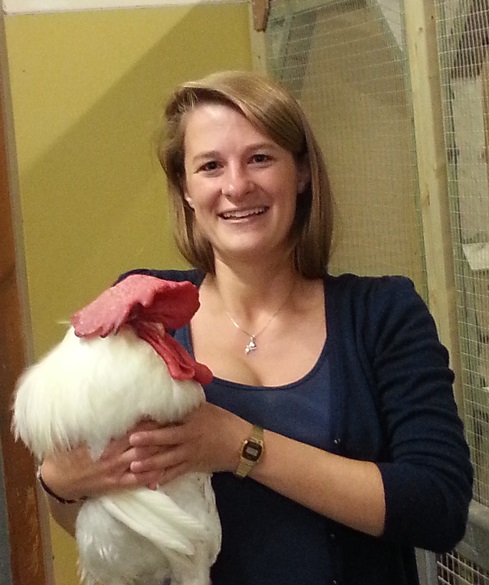
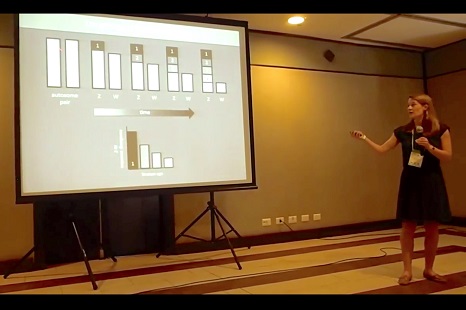
This profile is part of a series of New Faculty Profiles that highlight and introduce up-and-coming PIs in SSE. We invite highlighted faculty to discuss their research, describe how SSE has impacted their career, and share any tips or stories they may have for other researchers.
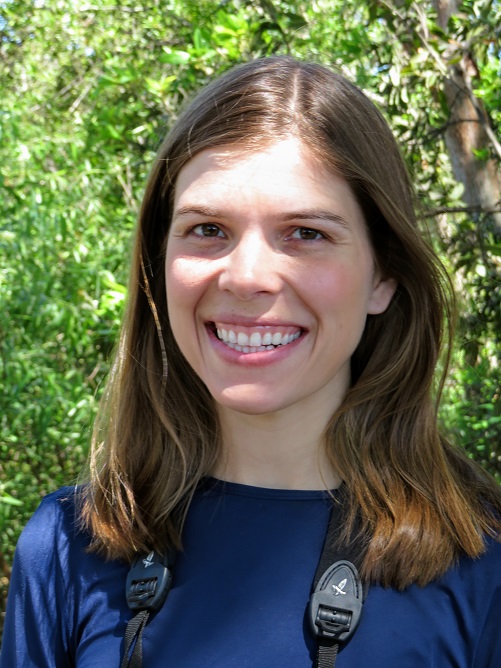 Dr. Mary Caswell (Cassie) Stoddard
Dr. Mary Caswell (Cassie) Stoddard
Assistant Professor
Department of Ecology and Evolutionary Biology
Princeton University
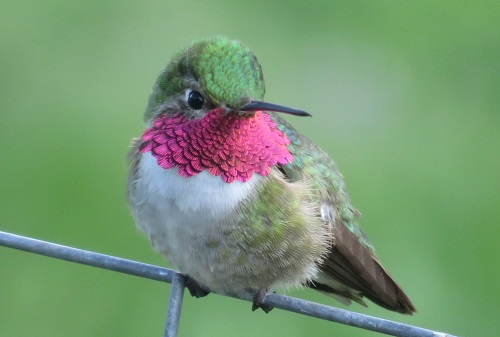
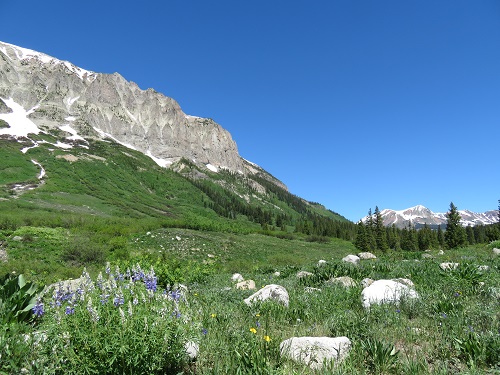
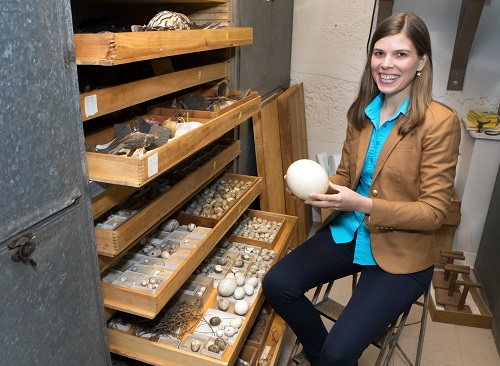
This profile is part of a series of New Faculty Profiles that highlight and introduce up-and-coming PIs in SSE. We invite highlighted faculty to discuss their research, describe how SSE has impacted their career, and share any tips or stories they may have for other researchers.
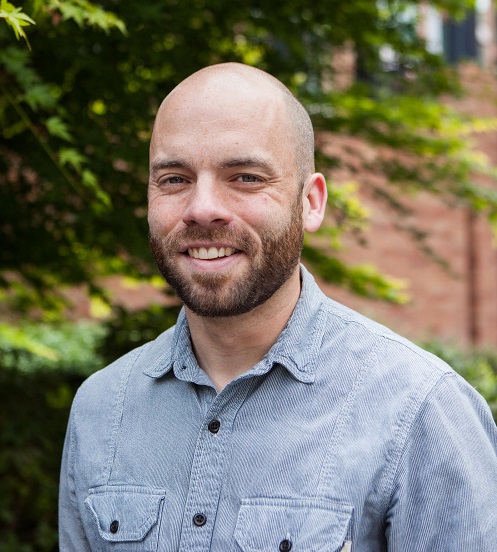
Dr. Michael White
Assistant Professor
Department of Genetics
University of Georgia
http://www.genetics.uga.edu/directory/michael-white
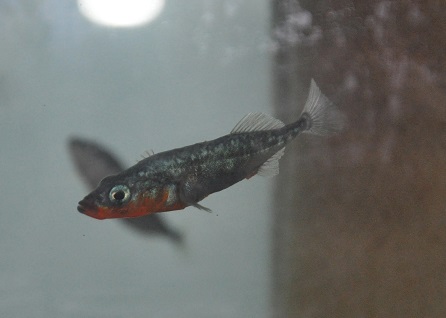
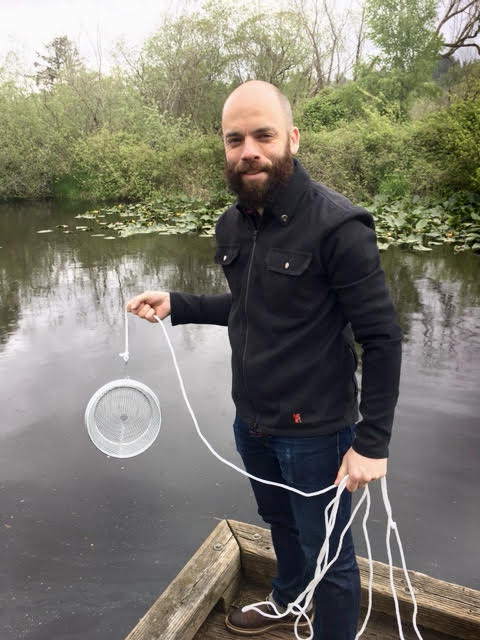
This profile is part of a series of New Faculty Profiles that highlight and introduce up-and-coming PIs in SSE. We invite highlighted faculty to discuss their research, describe how SSE has impacted their career, and share any tips or stories they may have for other researchers.
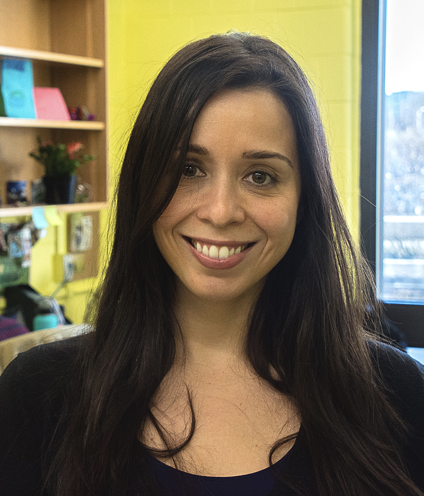 Dr. Martha Muñoz
Dr. Martha Muñoz
Assistant ProfessorDepartment of Biological Sciences
Virginia Tech
https://www.munozlab.biol.vt.edu
Twitter: @Marmmunoz, @MunozLabVT
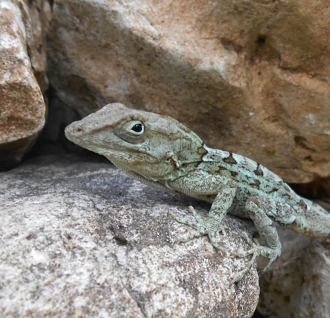
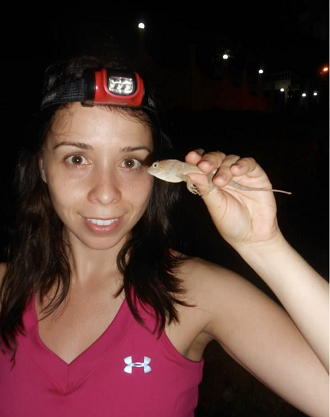
This profile is part of a series of New Faculty Profiles that highlight and introduce up-and-coming PIs in SSE. We invite highlighted faculty to discuss their research, describe how SSE has impacted their career, and share any tips or stories they may have for other researchers.
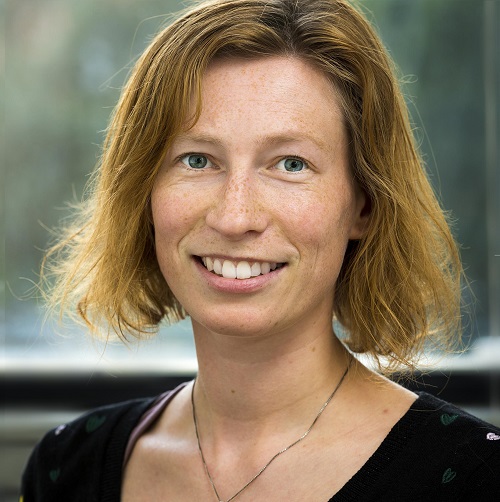 Dr. Claudia Bank
Dr. Claudia Bank
Principal Investigator
Evolutionary Dynamics Group
Instituto Gulbenkian de Ciencia
Oeiras, Portugal
https://evoldynamics.org/
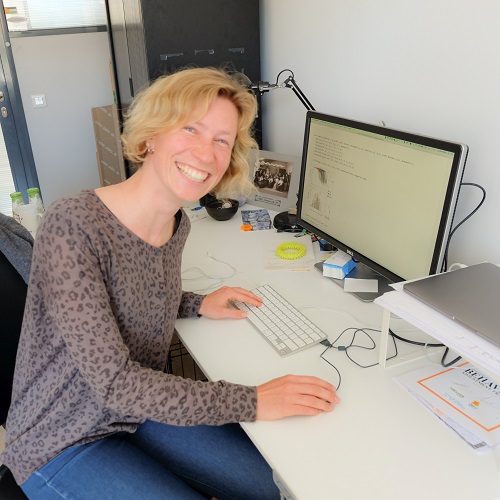
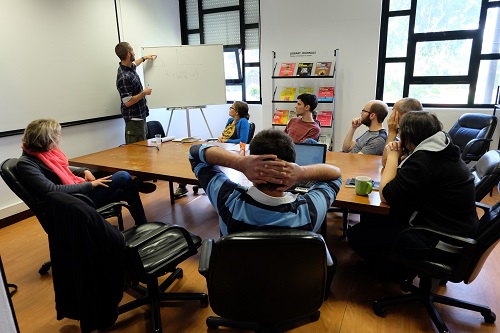
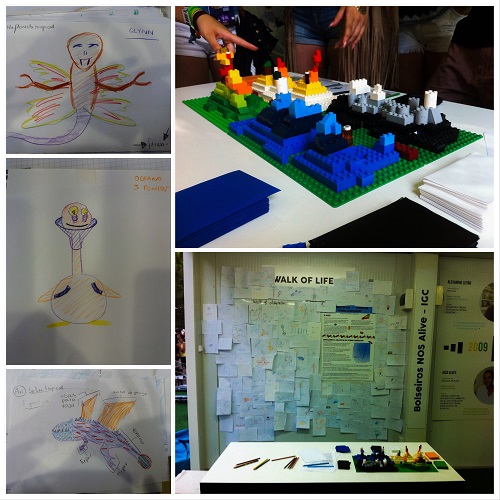
This profile is part of a series of New Faculty Profiles that highlight and introduce up-and-coming PIs in SSE. We invite highlighted faculty to discuss their research, describe how SSE has impacted their career, and share any tips or stories they may have for other researchers.
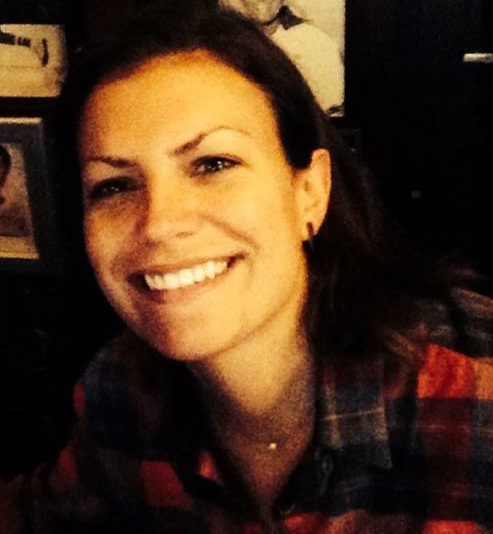 Dr. Stacy A. Krueger-Hadfield
Dr. Stacy A. Krueger-Hadfield
Assistant Professor of Biology
Ray Lankester Investigator at the Marine Biological Association of the United Kingdom (until June 2019)
Phycological Society of America Norma J. Lang Fellow (2018-2021)
University of Alabama at Birmingham (UAB)
1300 University Blvd
Campbell Hall 464
Birmingham, AL 35294
Start date: July 2016
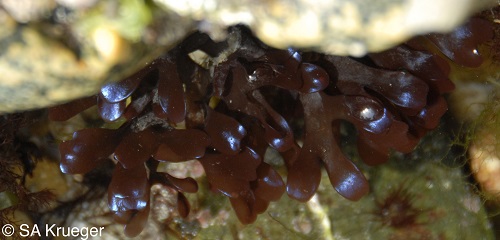
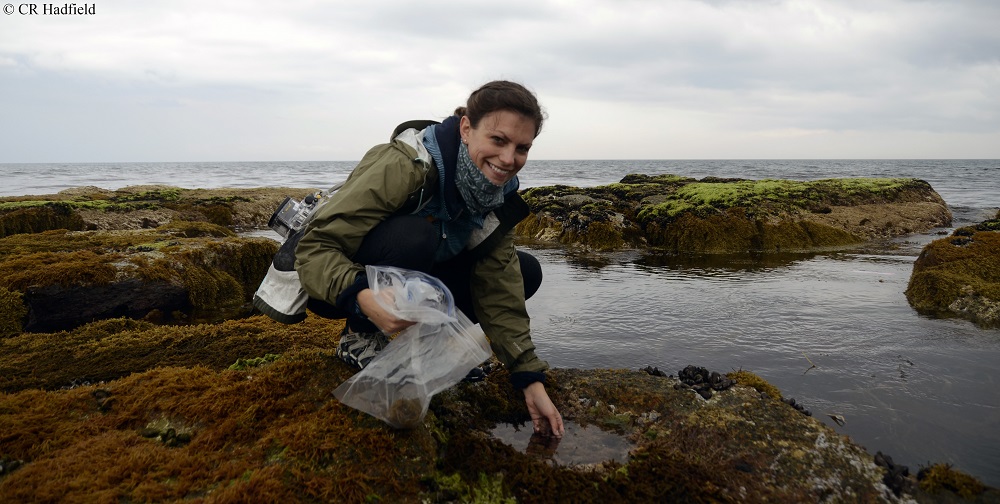
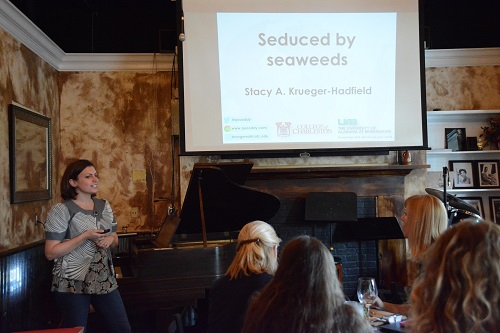
This profile is part of a series of New Faculty Profiles that highlight and introduce up-and-coming PIs in SSE. We invite highlighted faculty to discuss their research, describe how SSE has impacted their career, and share any tips or stories they may have for other researchers.
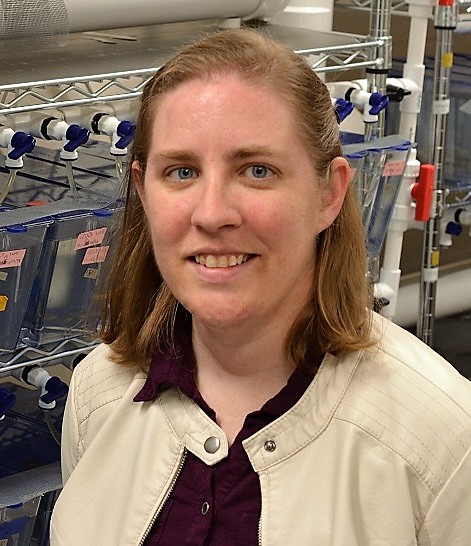 Dr. Emily Kane
Dr. Emily Kane
Assistant Professor of Biology
Georgia Southern University
Statesboro, GA
www.thekanelab.com
Start date: January 2017
Master's: Texas A&M University; advisor: Chris Marshall
PhD: University of California, Riverside; advisor: Tim Higham
Postdoc: Colorado State University; advisor: Cameron Ghalambor
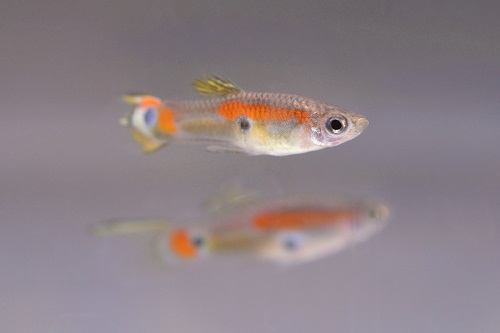
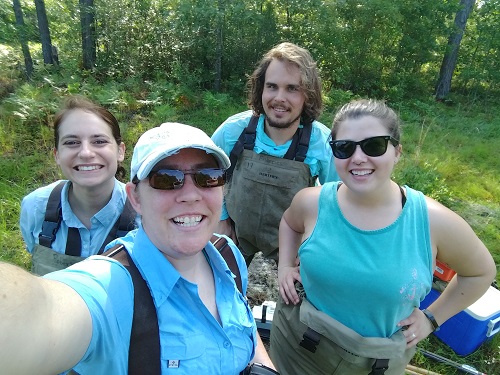
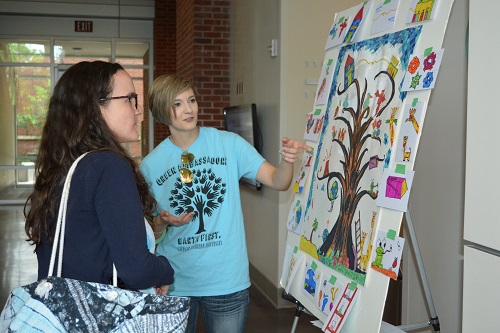
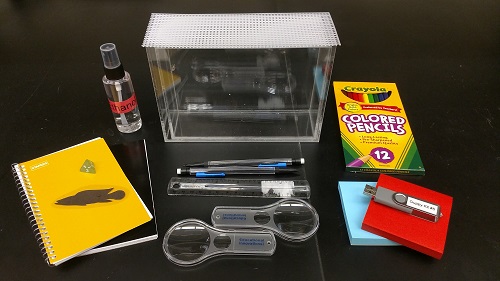
This profile is part of a series of New Faculty Profiles that highlight and introduce up-and-coming PIs in SSE. We invite highlighted faculty to discuss their research, describe how SSE has impacted their career, and share any tips or stories they may have for other researchers.
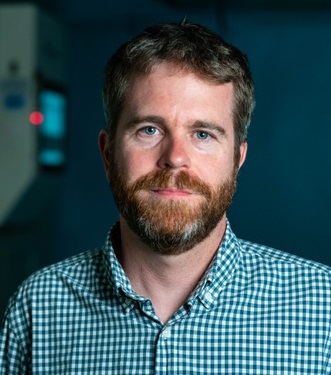 David L. Des Marais
David L. Des Marais
Assistant Professor
Department of Civil and Environmental Engineering
Massachusetts Institute of Technology
Cambridge, MA
http://desmarais-lab.mit.edu
Start date: October 2017
PhD: Department of Biology, Duke University (2008); advisor: Mark Rausher
Post-doc: Department of Integrative Biology, The University of Texas at Austin (2008-2013); advisor: Tom Juenger
Research Scientist: Department of Organismic and Evolutionary Biology, and The Arnold Arboretum, Harvard University (2014-2017)
Photo by Lili Paquette, MIT School of Engineering.
.jpeg)
This profile is part of a series of New Faculty Profiles that highlight and introduce up-and-coming PIs in SSE. We invite highlighted faculty to discuss their research, describe how SSE has impacted their career, and share any tips or stories they may have for other researchers.
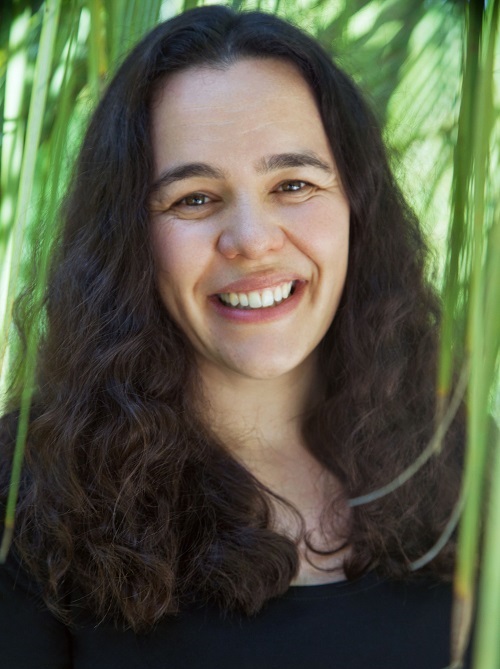 Dr. Sara Branco
Dr. Sara Branco
Department of Microbiology and Immunology
Montana State University
https://saramayerbranco.wixsite.com/brancolab
Start date: August 2017
Ph.D.: Committee on Evolutionary Biology, The University of Chicago; advisor: Dr. Gregory M. Mueller
Postdoc: Biodiversity and Climate Research Center, Frankfurt, Germany; advisor: Dr. Imke Schmitt
Postdoc: Department of Plant and Microbial Biology, University of California, Berkeley; advisors: Dr. Tom Bruns and Dr. John Taylor
Postdoc: Écologie, Systématique et Évolution, Université de Paris Sud; advisor: Dr. Tatiana Giraud
Photo by Krisztina Gat/
Annelaure Pothin.
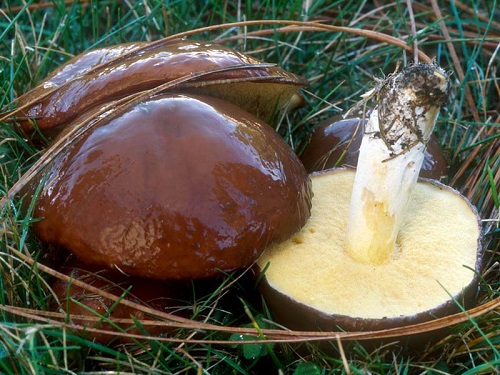
Suillus luteus. Photo by Michael Wood.
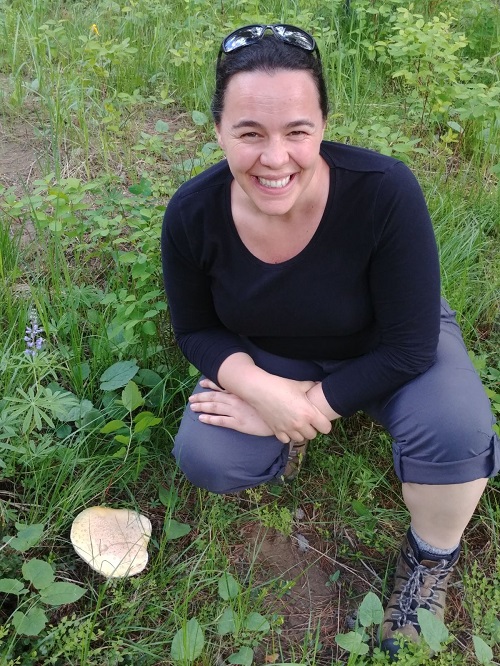
Photo by Niyi Omotoso.
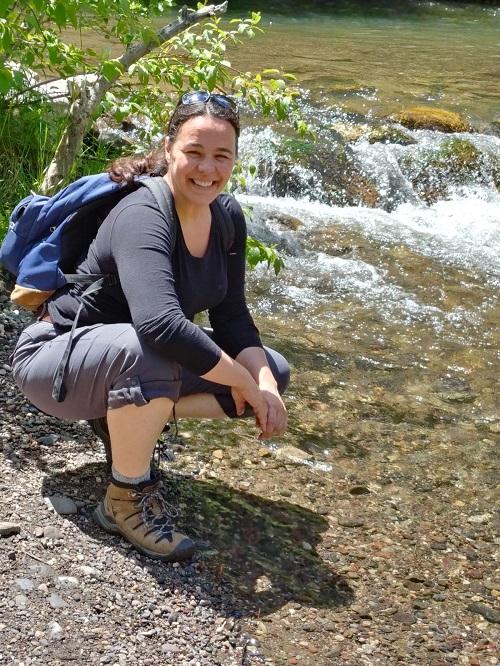
Photo by Niyi Omotoso.
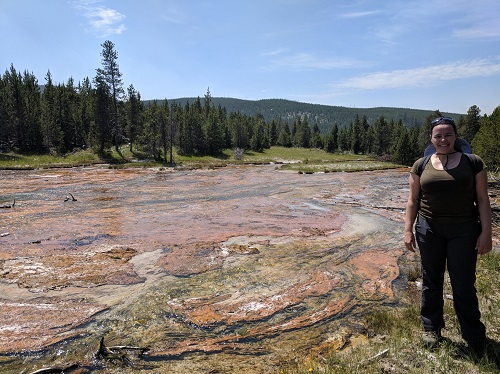
Photo by Niyi Omotoso.
This profile is part of a series of New Faculty Profiles that highlight and introduce up-and-coming PIs in SSE. We invite highlighted faculty to discuss their research, describe how SSE has impacted their career, and share any tips or stories they may have for other researchers.
 Dr. Shane Campbell-Staton
Dr. Shane Campbell-Staton
Assistant Professor
University of California Los Angeles
Start date: July 2018
PhD: Department of Organismic and Evolutionary Biology and Museum of Comparative Zoology, Harvard University; Advisors: Dr. Jonathan Losos and Dr. Scott Edwards
Postdoc: University of Illinois, Champaign-Urbana and University of Montana, Missoula; Advisors: Dr. Zac Cheviron and Dr. Julian Catchen
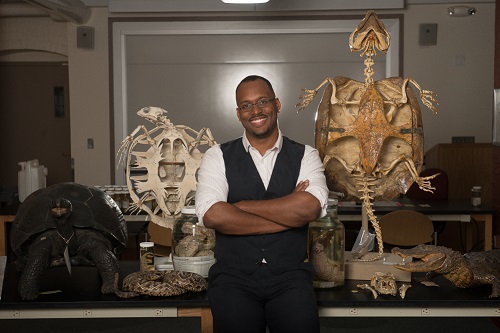
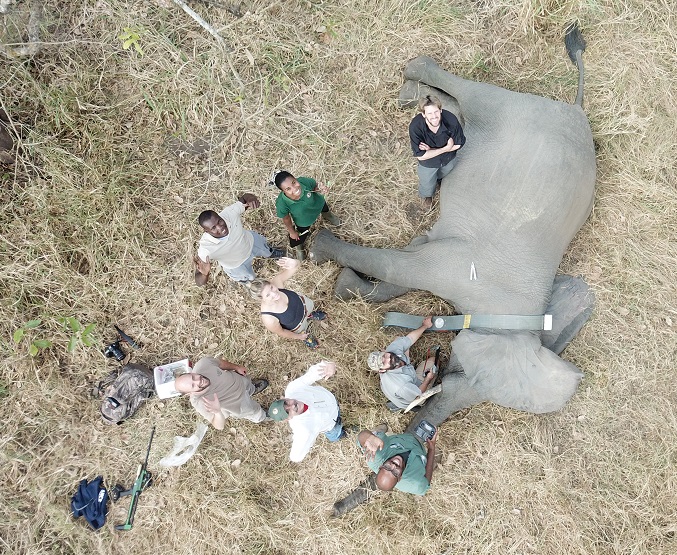
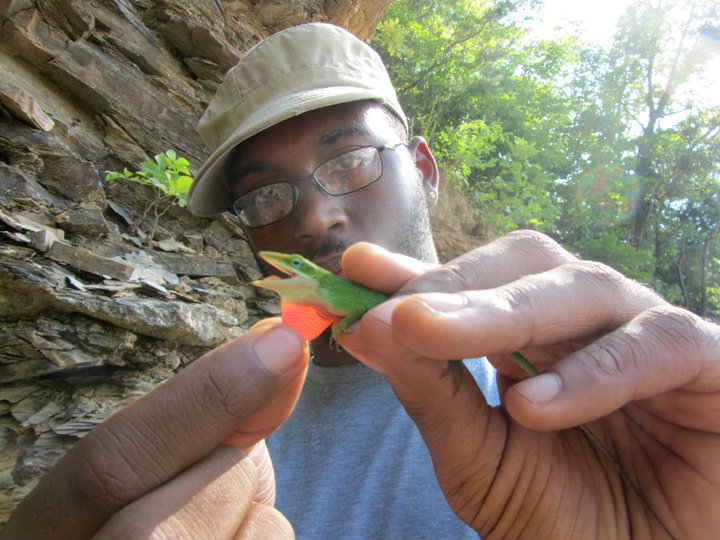
Welcome to the Society for the Study of Evolution’s (“SSE”) website. These are the general terms of use on which you may make use of this website and the sites listed here (which list may be updated from time to time), whether as a guest or a registered user ('you' or 'user').
Please read these terms of use carefully before you start to use this site or any of those referred to above ('our sites'). By accepting these Terms, or by using any of our sites, you agree to be legally bound by these Terms, our Privacy Statement, and any other underlying agreements or terms. If you do not agree to these terms, please do not use our Site. We reserve the right to modify these Terms at any time without prior notice, and your use of the Site binds you to the changes made. We do occasionally update these terms so please refer to them in the future.
You will be able to access most of our Site without having to register any details with us. However, to access certain parts of our Site, you will need to register with the SSE and create an account, and in some circumstances become a member.
Password and Security Portions of the SSE’s websites are secure and may require you to register in order to participate in those areas. User accounts issued for the SSE’s websites are for individual use only and you are solely responsible for maintaining the confidentiality of your user name and password. You agree to provide accurate and complete information about yourself when registering or otherwise providing information regarding your account and to update your account data to keep it accurate. You agree that we may store and use the information you provide for maintaining your account. You also agree not to misrepresent your identity or affiliation with any person or entity, including (but not limited to) using another person's username, password or other account information. Violations of our security systems may result in civil or criminal liability. You agree to notify us immediately of any unauthorized use of your password or account or any other breach of security. We will take every effort to ensure your online security, but cannot and will not be liable for any loss or damage arising from your failure to comply with these provisions.
Our Site, images, data, text, audios, videos, photographs, custom graphics, logos, button icons, descriptions and all other material provided and the collection and compilation and assembly thereof are the exclusive property of the SSE, and are protected by U.S. and international copyright laws.
The contents of our Site may be used for informational purposes only. Any other use of such contents, including the reproduction, modification, distribution, transmission, republication, display or performance of the contents without our prior written consent is expressly forbidden.
Any other trademarks or service marks appearing anywhere on our Site are the property of their respective owners. To the extent any product name or logo does not appear with a trademark (™), it does not constitute a waiver of any and all intellectual property rights that the SSE has established in any of its products, features, or service names or logos.
You may not use, reproduce, modify, transmit, display, publish, sell, create derivative works, or distribute by any means, method, or process whatsoever, now known or hereafter developed, any content of this Site for commercial profit or gain. Nothing in these Terms or on the Site shall be construed as conferring any intellectual property or other proprietary rights to you. You agree to observe copyright and other applicable laws and may not use the content in any manner that infringes or violates the rights of any person or entity. We hold the rights to, or have the right to publish, all of the content on this Site.
As a condition of your use of the Site, you will not use the Site, or any contents or services, for any purpose that is unlawful in any applicable jurisdiction where our Site is being used, or prohibited by these terms, conditions, and notices, and you agree to abide by the terms and conditions set forth in the "User Conduct" section. You may not use the Site contents or services in any manner that could damage, disable, overburden, or impair any of our equipment or interfere with any other party's use and enjoyment of the Site, or any contents or services. You may not attempt to gain access to any portion of the Site, or any of its contents or services, other than those for which you are authorized.
While every effort is made for the timeliness and accuracy of the Site content and services, we make no warranties either express or implied, and assume no liability or responsibility for the completeness, use, accuracy, reliability, correctness, timeliness or usefulness, of any of the results obtained from its use.
We make no representation or warranty, express or implied, with respect to the content of the Site, or links to other websites, including but not limited to accurateness, completeness, correctness, timeliness or reliability. We make no representation or warranty regarding the merchantability or fitness for a particular purpose or use with respect to any content or services whatsoever that may be accessed through this Site, or the results to be obtained from using the Site. We make no representation or warranty that the Site or content is free from defects or viruses. Your use of external links and third-party websites is at your own risk and subject to the terms and conditions of use for such links and websites.
While every effort is made so that all content provided on the Site does not contain viruses and/or harmful materials, you should take reasonable and appropriate precautions to scan for viruses or otherwise protect your computer or device, and you should have a complete and current backup of the applicable items on your computer or device. We disclaim any liability for the need for services or replacing equipment or data resulting from your use of the Site. While every effort is made for smooth and continuous operation, we do not warrant the Site will operate error free.
By submitting a telephone number to the SSE you agree that a representative of the SSE can contact you at the number you provide, potentially using automated technology (including texts/SMS messaging) or a pre-recorded message. Your consent is not an obligation to receive any of our services.
We take all reasonable steps so that our Site is available 24 hours every day, 365 days per year. However, websites do sometimes encounter downtime due to server and other technical issues. Therefore, we will not be liable if this Site is unavailable at any time.
Our Site may be temporarily unavailable due to issues such as system failure, maintenance or repair, or for reasons beyond our control. Where possible, we will try to give our users advance warning of maintenance issues, but shall not be obliged to do so.
Your Submissions to Our Websites We may expressly request or enable you to submit, post, upload, embed, display, communicate or otherwise distribute messages, ideas, concepts, drawings, photographs, graphics, videos, or other material or information through a SSE website ("Submissions"). Please do not make any Submissions to or through our websites that we do not expressly request or enable you to submit. Our policies regarding Submissions apply regardless of whether we request any Submission received on or through our websites.
Some of our websites may contain communications services provided through forums, bulletin board services, chat areas, message boards, news groups, communities, personal web pages, calendars, and/or other message or communication features designed to allow you to communicate with others. You agree to use such communication services only to make and receive Submissions that are related to the particular communication service and in accord with these Terms.
You agree that you will not post, send, publish, or transmit any Submission that:
Violates any copyright, patent, trademark, trade secret, intellectual property or other proprietary or contractual right; orAdvertises any commercial or business endeavor (for example, offering products or services) or otherwise engages in any commercial activity (for example, conducting raffles or contests, displaying sponsorship banners, and/or soliciting goods or services) except as may be specifically authorized by us;Openly seeks, or passively collects, personal or personally identifiable information about or from others; orIncludes programs that contain viruses, worms and/or Trojan horses or any other computer code, files or programs designed to interrupt, destroy or limit the use or enjoyment of any our websites; orOtherwise violates any provision of these Terms.
The SSE does not endorse any Submission and expressly disclaims any and all liability in connection with any Submission. The SSE may refuse or remove any Submission that, in its sole judgment, violates these Terms. You are solely responsible for any Submission you submit to any of our websites.
You should be aware that in some instances, your Submissions are public, not private communications. When you are using the areas of our websites that publicly display Submissions, you should assume that any Submissions you make to these areas also are subject to being made public. You should never post any message that you would not mind seeing on a school or community bulletin board or in the local newspaper. The privacy of others also should be respected at all times. If you need permission to use any photos, writings or other material or any identifying information contained in a Submission, you are responsible for obtaining documentation of such permission before posting the Submission. We may prohibit or remove certain Submissions that have been posted in public areas of our websites, in accord with our policies, but we are under no general duty to monitor the public posting of Submissions in such areas. When you voluntarily disclose any personal information (which is further defined in our Privacy Policy) through any Submission in a public area, that information can be viewed, collected and used by others and may result in unsolicited messages from other people, for which we shall have no responsibility.
By providing Submissions to any of our web sites, you hereby grant the SSE the royalty-free, perpetual, irrevocable, worldwide, non-exclusive right and license to reproduce, use, copy, sell, distribute, create derivative works from, perform, and display all or part of the Submission in any form, media, or technology now known or later developed. Except in the case of certain Submissions by students or teachers participating in any form of online instruction, the SSE will not be required to treat any Submission as confidential. However, we may use any Submission in our business endeavors (including without limitation, for products or advertising) in a manner consistent with our privacy policies, without incurring any liability for royalties or any other consideration of any kind, and will not incur any liability as a result of any similarities that may appear in our future operations.
By providing Submissions to a SSE website, you also represent and warrant that the Submission is your original work, does not violate any agreement between you and a third party, and shall not infringe upon or violate any law, agreement or other rights of any kind, of any third party, without limitation, rights affecting copyright, patent, trademark, unfair competition, contract, defamation, privacy or publicity.
Access to and use of secure areas of SSE sites is considered a privilege provided at the discretion of the SSE. The SSE reserves the right to monitor use of its websites to determine compliance with these Terms, to investigate any reported or apparent violation, and to take any action that we in our sole discretion deem appropriate. We also reserve the right to immediately withdraw access and use of our sites when there is reason to believe that violations of law or our policies have occurred. We also reserve the right at all times to disclose any information as necessary to satisfy any applicable law, regulation, legal process or governmental request, and to edit, refuse to post or to remove any information or materials, in whole or in part, in our sole discretion. Submissions provided to any of our websites may be subject to posted limits on use, reproduction and/or dissemination and you are responsible for abiding by such limitations with respect to any Submissions that you provide, as well as any materials that you may download.
When using our Site, you shall not post or send to or from the Sites:
content which conflicts with our published “Guidelines for Professional Ethics”content that is discriminatory, obscene, pornographic, defamatory, liable to incite racial hatred, in breach of confidentiality or privacy, which may cause annoyance or inconvenience to others, which encourages or constitutes conduct that would be deemed a criminal offense, give rise to a civil liability, or otherwise is contrary to the law in any applicable jurisdiction where our Site is being used;(c) content which is harmful in nature including, and without limitation, computer viruses, Trojan horses, corrupted data, or other potentially harmful software or data.
We will fully cooperate with any law enforcement authorities or court order requiring us to disclose the identity or other details or any person posting materials to our Site in breach of the this Section.
You shall not use our Site while distracted or preoccupied, such as when operating a motor vehicle. You should access our Site only with due regard for your own safety and the safety of others.
Some links furnished on our Site may allow you to leave our Site. These third party websites are not under our control and we disclaim any responsibility for the contents of such linked websites or any link(s) contained in any such linked website(s) or any changes or updates to any of these websites. We further disclaim any responsibility for any form of transmission received from any linked third party website or advertising. We provide these links to you as a convenience to you and inclusion of any link herein shall in no way be construed as an endorsement by us of the website(s).
If you would like to link to our Site, you may only do so on the basis that you link to, but do not replicate, any page of our Site, and subject to the following conditions:
(a) you do not in any way imply that we are endorsing any services or products unless this has been specifically agreed with us;(b) you do not misrepresent your relationship with us or present any false information about us; and(c) your website does not contain content that is offensive, controversial, infringes any intellectual property rights or other rights of any other person or does not comply in any way with the law of the United States of America.
If you choose to link our Site in breach of this Section, you shall fully indemnify us for any loss or damage suffered as a result of your actions.
These Terms of Use constitute an agreement that is effective until terminated by either party.
You are not required to continue use of these services. And, if you are dissatisfied with any aspect of the services, you are encouraged to contact SSE Headquarters to discuss your concerns.
You may ask us to close your account at any time by sending us an email. We reserve the right to terminate this agreement, as well as your access to any or all of our websites and the related services or any portion thereof, at any time, without notice.
Upon termination of this Agreement, you will no longer access or use any part of this website or use any service or software to access or use this website. Your representations, warranties, and agreements with respect to your past access and use will continue in effect (for example, the licenses granted to the SSE for content that you uploaded; and your indemnification against infringement with respect to such materials) but you will incur no new obligations because there will be no future use.
All information on our Site is of a general nature and is furnished for your knowledge and understanding and as an informational resource only. The documents and any related graphics published on this server could include technical inaccuracies or typographical errors. Changes are periodically added to the information contained on our Site. We may make improvements and/or changes to any of the products depicted or described herein at any time. We expressly disclaim any responsibility or liability for any adverse consequences or damages resulting from your use of the Site or reliance on the information from either.
THE SITE IS PROVIDED ON AN "AS IS" AND "AS AVAILABLE" BASIS. WE MAKE NO WARRANTIES, EXPRESS OR IMPLIED, REPRESENTATIONS OR ENDORSEMENTS WHATSOEVER WITH REGARD TO ANY PRODUCTS, INFORMATION OR SERVICE PROVIDED THROUGH THIS SITE, INCLUDING, TITLE, NON-INFRINGEMENT, OR ANY OTHER WARRANTY, CONDITION, GUARANTY, OR REPRESENTATION, WHETHER ORAL OR IN WRITING, OR IN ELECTRONIC FORM.
THE SOCIETY FOR THE STUDY OF EVOLUTION DOES NOT WARRANT OR ASSUME ANY LEGAL LIABILITY OR RESPONSIBILITY FOR THE ACCURACY, COMPLETENESS OR USEFULNESS OF ANY INFORMATION DESCRIBED WITHIN OR DERIVED FROM OUR SITE OR SERVICE.
YOUR USE OF OUR SITE IS ENTIRELY AT YOUR OWN RISK. WE WILL NOT BE RESPONSIBLE TO YOU OR TO ANY THIRD PARTIES FOR ANY DIRECT OR INDIRECT, INCIDENTAL, CONSEQUENTIAL, SPECIAL, OR PUNITIVE DAMAGES OR LOSSES OR INJURY YOU MAY INCUR IN CONNECTION WITH YOUR USE OR INABILITY TO USE THE SITE OR THE SERVICES AND/OR PRODUCTS, OR YOUR RELIANCE ON OR USE OF THE SITE, THE INFORMATION, PRODUCTS OR SERVICES PROVIDED, OR THAT RESULT FROM MISTAKES, OMISSIONS, INTERRUPTIONS, DELETIONS OR ANY FAILURE OF PERFORMANCE, OR ANY OF THE DATA OR OTHER MATERIALS TRANSMITTED THROUGH OR RESIDING ON OUR SITE, REGARDLESS OF THE TYPE OF CLAIM OR THE NATURE OF THE CAUSE OF ACTION, EVEN IF WE HAVE ADVISED OF THE POSSIBILITY OF SUCH DAMAGE OR LOSS.
You agree to defend, indemnify, and hold us, our officers, directors, employees, volunteers, agents, licensors, and suppliers, harmless from and against any claims, actions or demands, liabilities and settlements including without limitation, reasonable legal and accounting fees, resulting from or alleged to result from, your use of and access to the Site or your violation of these Terms or your violation of any third party right, including without limitation any trademark, copyright or other proprietary or privacy right.
These Terms, and any rights and licenses granted hereunder, may not be transferred or assigned by you.
We make no representations that the content or the Site is appropriate or may be used or downloaded outside the United States. Access to the Site and/or the content may not be legal in certain countries outside the United States. If you access the Site from outside the United States, you do so at your own risk and are responsible for compliance with the laws of the jurisdiction from which you access the Site.
Our Site is created in and controlled by laws of the State of Missouri, United States of America. The Site, and its contents, and any disputes arising therefrom shall be construed and interpreted under the laws of the State of Missouri, and applicable United States federal laws. Use of our Site constitutes agreement of the user to the jurisdiction of the state and federal courts located therein.
Our Site is subject to the United States export control laws and regulations, and may be subject to export or import regulations in other countries. You agree to strictly comply with all such laws and regulations and acknowledge that you have the responsibility to obtain authorization to export, re-export, or import of any data on our Site, as may be required.
These Terms, together with the Privacy Policy, other terms or legal notices published by us on the Site, and any other applicable agreements, shall constitute the entire agreement between us concerning use of the Site. If any provision of these Terms is deemed invalid by a court of competent jurisdiction, the invalidity of such provision shall not affect the validity of the remaining provisions of these Terms, which shall remain in full force and effect. No waiver of any term shall be deemed a further or continuing waiver of such term or any other term, and our failure to assert any right or provision under these Terms shall not constitute a waiver of such right or provision. YOU AGREE THAT ANY CAUSE OF ACTION ARISING OUT OF OR RELATED TO THE SITE MUST COMMENCE WITHIN ONE (1) YEAR AFTER THE CAUSE OF ACTION ACCRUES. OTHERWISE, SUCH CAUSE OF ACTION IS PERMANENTLY BARRED.
Society for the Study of Evolution 4475 Castleman Avenue, St. Louis, MO 63110-3201 Voice: 314-577-9566 · FAX: 314-558-9184 · Email: sse-manager@botany.org Effective Date: May 24, 2018
This profile is part of a series of New Faculty Profiles that highlight and introduce up-and-coming PIs in SSE. We invite highlighted faculty to discuss their research, describe how SSE has impacted their career, and share any tips or stories they may have for other researchers.
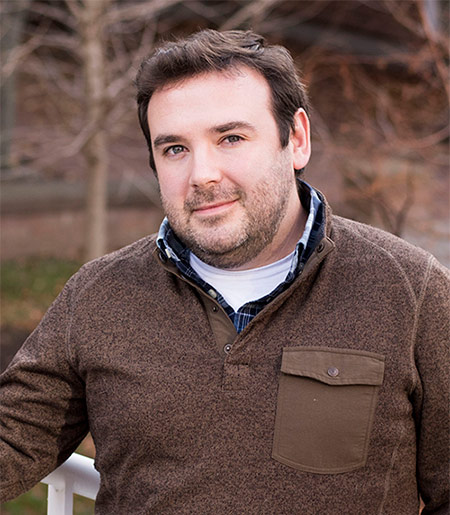 Michael Sheehan
Michael Sheehan
Assistant Professor
Department of Neurobiology and Behavior
Cornell University
https://sheehanlab.weebly.com/
Start date: July 2015
PhD: Department of Ecology and Evolutionary Biology, University of Michigan. Advisor: Elizabeth Tibbetts
Postdoc: Department of Ecology and Evolutionary Biology, University of Arizona; Integrative Biology and the Museum of Vertebrate Zoology, UC Berkeley. Advisor: Michael Nachman
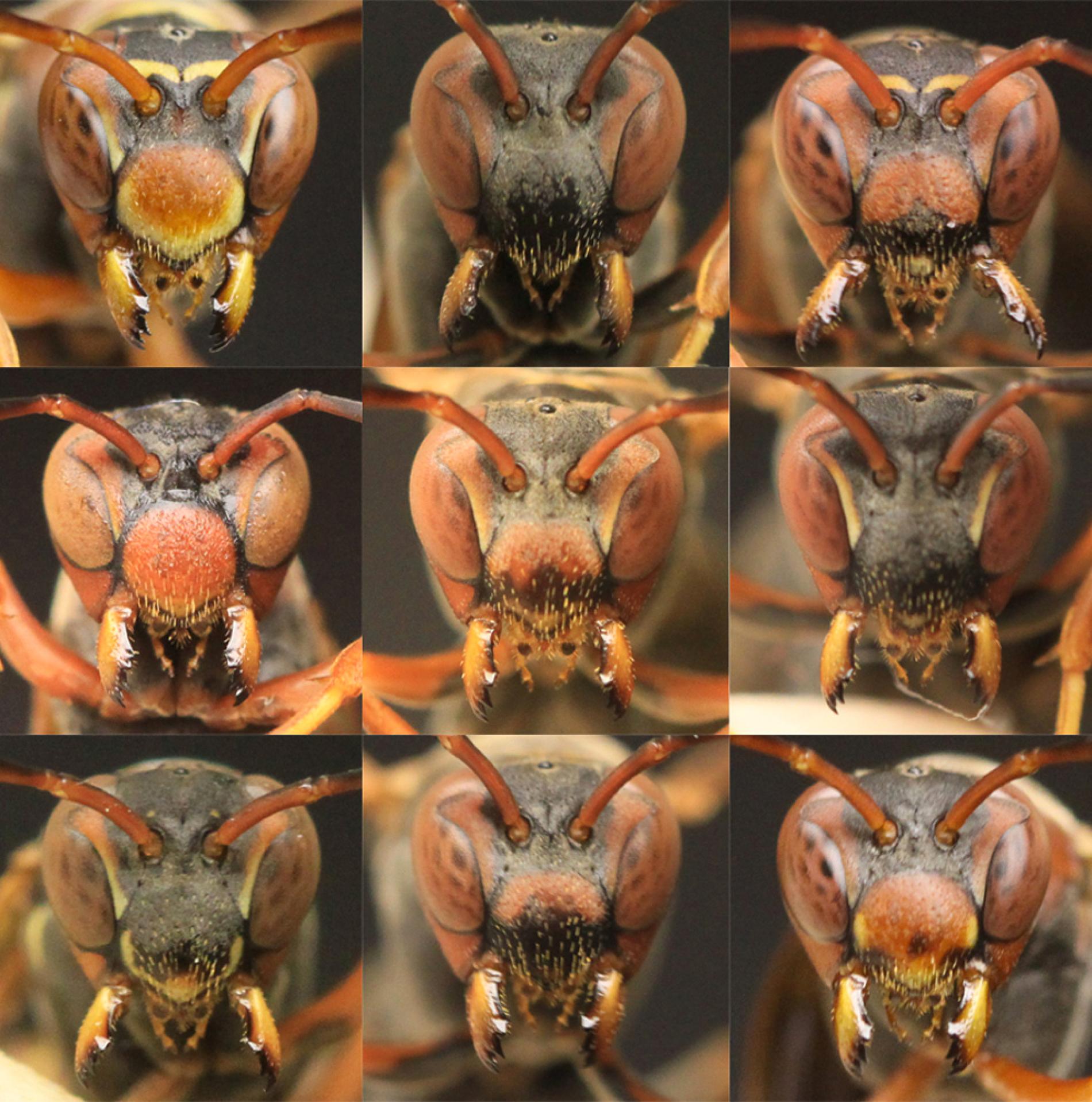
This profile is part of a series of New Faculty Profiles that highlight and introduce up-and-coming PIs in SSE. We invite highlighted faculty to discuss their research, describe how SSE has impacted their career, and share any tips or stories they may have for other researchers.
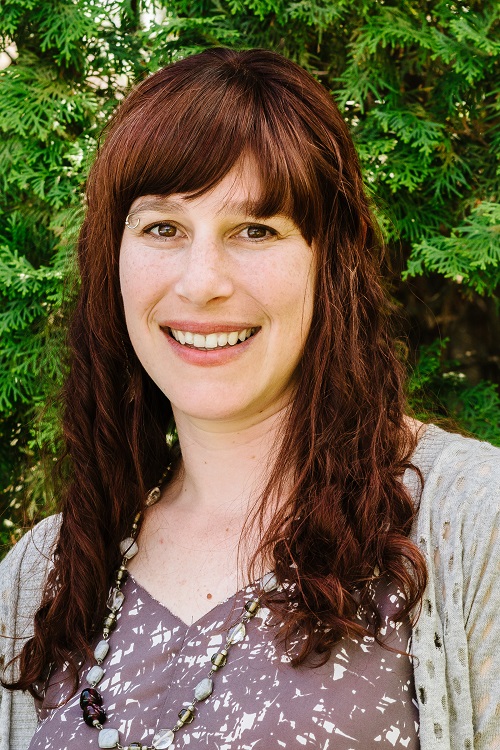 Aleeza Gerstein
Aleeza Gerstein
Assistant Professor, Departments of Microbiology & Statistics
University of Manitoba
https://acgerstein.weebly.com
Start date: September 2018
MSc & PhD: Department of Zoology, The University of British Columbia. Advisor: Sally Otto
Postdoc: Department of Molecular Microbiology & Biotechnology, Tel Aviv University and Department of Genetics, Cell Biology & Development, The University of Minnesota. Advisor: Dr. Judith Berman
Postdoc: Department of Microbiology & Immunology, The University of Minnesota. Advisor: Kirsten Nielsen
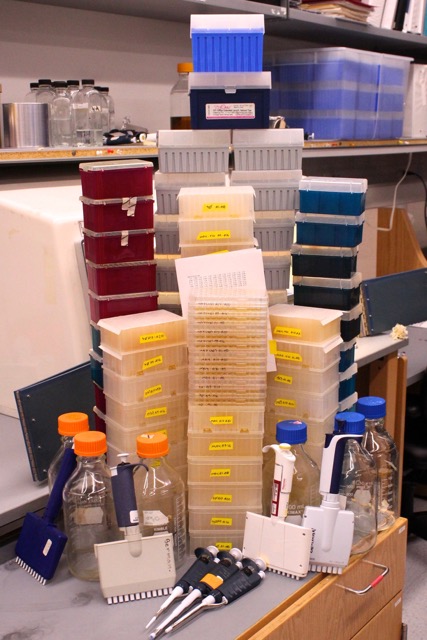
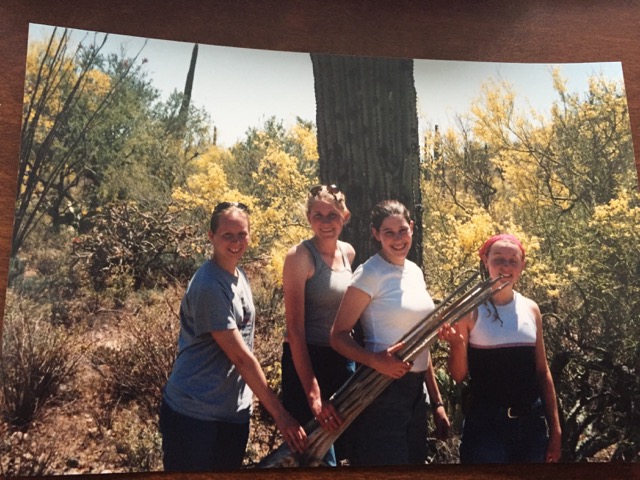
The Society for the Study of Evolution (SSE) is dedicated to promoting a broader understanding of evolutionary biology and its related subfields. We encourage the professional development of our members and support increasing participation and access. At the scientific core of evolutionary biology is a value for and appreciation of biological diversity. Accordingly, we welcome, support, and celebrate the diversity of our members. We are sensitive to the ways that diversity changes and grows in modern society and acknowledge that diversity principles change through time. As a professional society we promote equity, inclusion, and diversity at all levels, and we encourage participation by individuals of all groups. We encourage an inclusive, supportive, and impartial workspace free from discrimination, bigotry, sexual harassment, or violence of any kind. Finally, we strive to facilitate the effective communication of evolutionary principles to the public to foster a broader understanding of evolutionary biology, biological diversity, and cultural inclusion.
The SSE Diversity Committee will promote diversity and inclusiveness to enhance the field of evolutionary biology and foster the career of its developing scientists.
A diverse and inclusive SSE will foster innovation, creativity, and inclusion at all professional levels.
Evolutionary biology as a discipline studies diversity. The SSE Diversity Committee’s goals are: 1) to celebrate and foster the inclusion of all social, racial, and economic groups in the Society and 2) to promote the advancement of the study of evolutionary biology among underrepresented groups by fostering the recruitment and retention of individuals of all identity groups. Our guiding principles are:
Inclusiveness: Improving the inclusion of underrepresented minority scientists in the field of evolutionary biology.
Retention: Devising and implementing strategies for the retention of underrepresented scientists.
Mentorship: Showing by example by pairing early-career scholars with mid-career and advanced career scientists.
Professional development: Supporting scientific and policy leaders through educational opportunities.
Informed decision making: Using data collection initiatives related to diversity to guide decisions that directly or indirectly connect to our values and guiding principles.
The Society for the Study of Evolution (SSE) is dedicated to promoting a broader understanding of evolutionary biology and its related subfields. We encourage the professional development of our members and support increasing participation and access. At the scientific core of evolutionary biology is a value for and appreciation of biological diversity. Accordingly, we welcome, support, and celebrate the diversity of our members. We are sensitive to the ways that diversity changes and grows in modern society and acknowledge that diversity principles change through time. As a professional society we promote equity, inclusion, and diversity at all levels, and we encourage participation by individuals of all groups. We encourage an inclusive, supportive, and impartial workspace free from discrimination, bigotry, sexual harassment, or violence of any kind. Finally, we strive to facilitate the effective communication of evolutionary principles to the public to foster a broader understanding of evolutionary biology, biological diversity, and cultural inclusion.
Statement Against Racism and Racial Injustice
Tri-Society Statement Against AAPI Racism
Learn more about SSE's Commitment to Diversity, Equity, and Inclusion (DEI).
Learn more about the Diversity Committee's founding, actions, and goals in this archived January 2020 blog post.
diversity [at] evolutionsociety.org
See the Committees page for a full list of committee members.
Best Practices - Posters and Oral Presentations
In service to the goals of the annual Evolution meeting's three sponsoring societies (ASN, SSB, and SSE), the conference organizers and the Joint Meeting Committee are committed to providing a welcoming and inclusive environment for all attendees. In 2022, the DC organized the following events, in addition to a series of mixers:
Diversity Symposium
"Field Ethics and Safety in Evolution and Ecology: Expereinces and Tools for Inclusive Practices"
With the American Society of Naturalists and the Society of Systematic Biologists Diversity Committees
Organized by Cathy Rushworth with Nancy Chen, Scott Taylor, Lily Khadempour, Tim Colston, Jessica Ware, and Tracy Heath
Evolution's Rainbow at Evolution 2022
Engaging talks and discussion on evolution’s rainbow, with special guest host Nina West. This event started with a series of talks from experts on the diversity of sex, sexuality, and gender that exist in nature, and ended with a panel discussion on how this diversity fits into a broader evolutionary context and what we as a community can do to support and retain our LGBTQ+ students and colleagues.
Organized by Jenn Coughlan, Cathy Rushworth, Scott Taylor, Arun Sethuraman, and Austin Garner
This award offers free two-year SSE memberships to 100 individuals of any career stage who identify as racial or ethnic minorities, either in their country of origin or their country of residence. This initiative is part of SSE Council’s 2020 commitment to actions to increase inclusion of and support for members of historically excluded groups, particularly individuals who identify as Black, Indigenous, or people of color (BIPOC), in the field of evolutionary biology and through all of the society’s activities and programs. Learn more and apply here.
Asher Coello, Pauline Owusu, Chris Robinson, Ruby Mustill, and Jeremy Yoder present true, personal stories about their experiences in evolutionary biology at the 3rd Joint Congress on Evolutionary Biology in Montreal.
At the Evolution 2019 meeting in Providence, RI, the Diversity Committee hosted a special event by the Story Collider, where five scientists shared their true, personal stories. Listen below. Photos by David Del Poío.
Aparna Agrawal
Patty Brennan
Ambika Kamath
C. Brandon Ogbunu
Scott Taylor
This profile is part of a series of New Faculty Profiles that highlight and introduce up-and-coming PIs in SSE. We invite highlighted faculty to discuss their research, describe how SSE has impacted their career, and share any tips or stories they may have for other researchers.
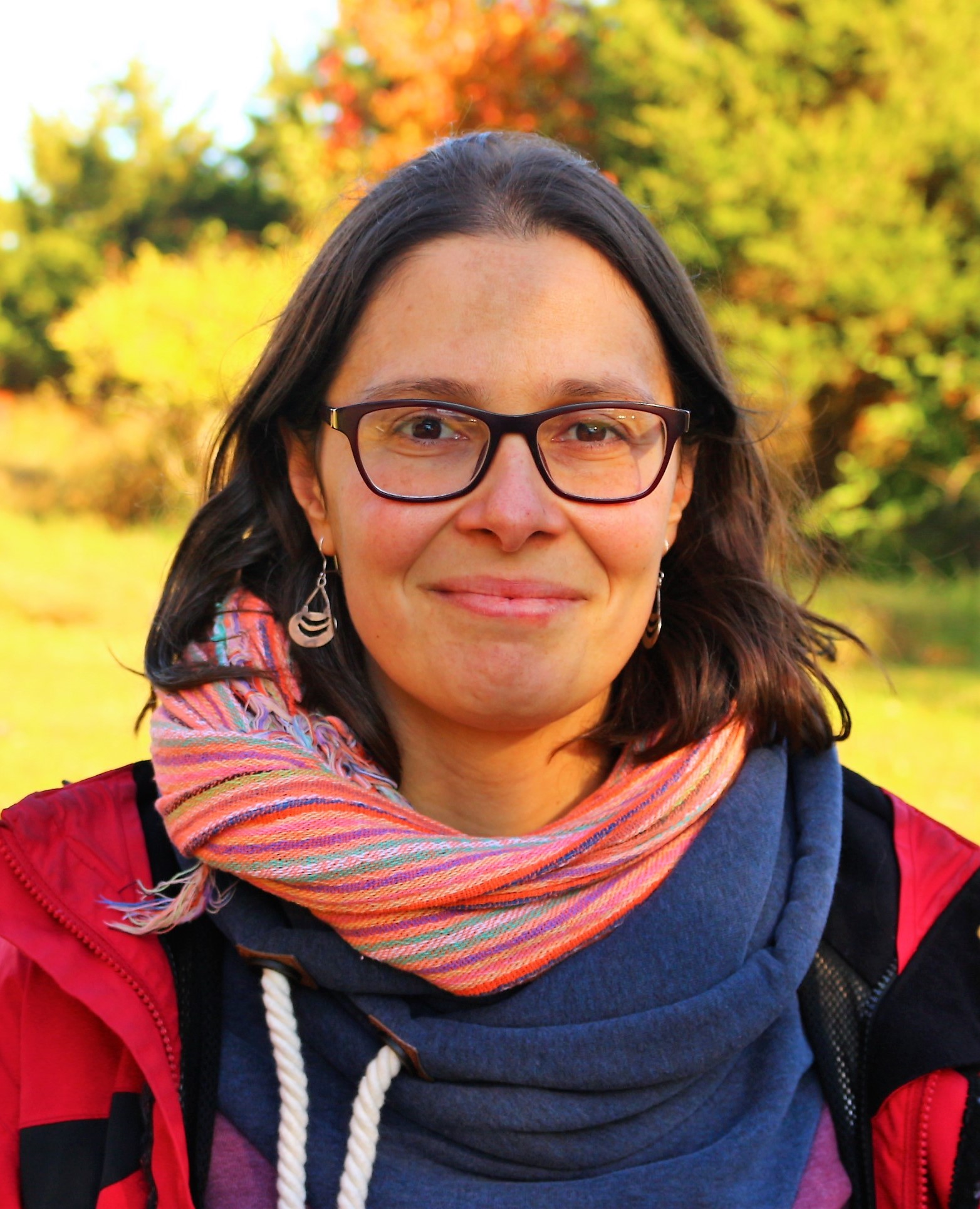 Anahí Espíndola
Anahí Espíndola
Assistant Professor
Department of Entomology
University of Maryland, College Park
http://anahiespindola.github.io
Start date: August 2018
PhD: University of Neuchâtel, Switzerland. Advisors: Dr. Nadir Alvarez, Dr. Martine Rahier.
Post-doc: Department of Biological Sciences, University of Idaho. Advisors: Dr. Scott Nuismer, Dr. Jack Sullivan, Dr. David Tank.
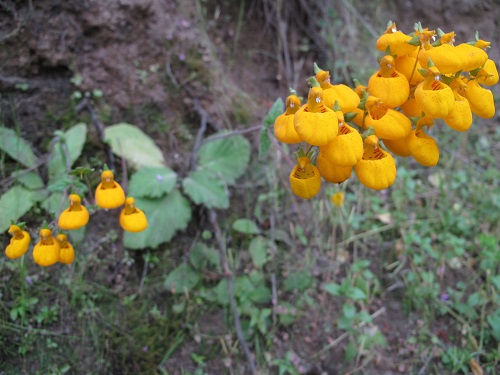
Calceolaria corymbosa
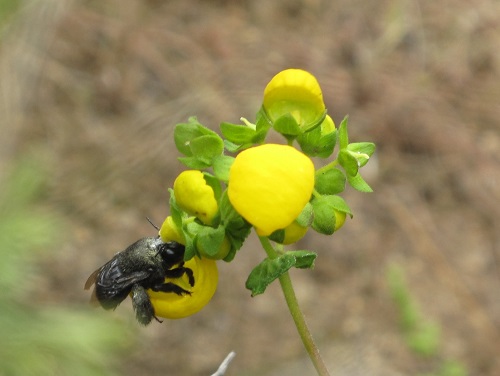
Centris on Calceolaria ascendens
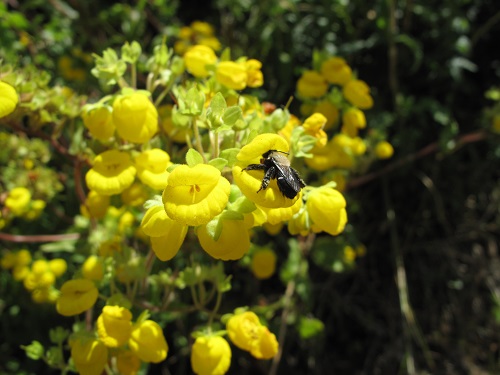
Chalepogenus on Calceolaria dentata
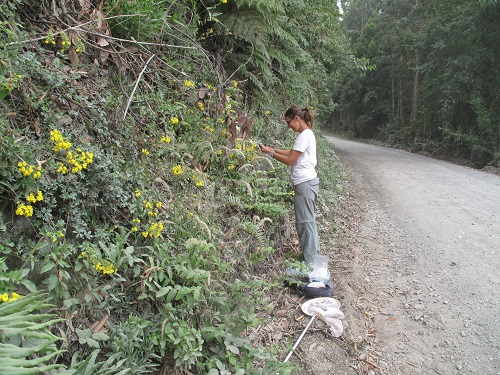
Collecting Calceolaria in Chile
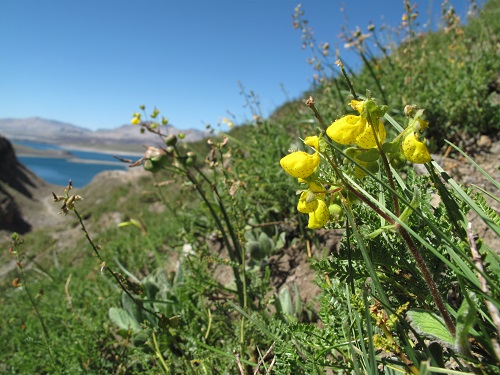
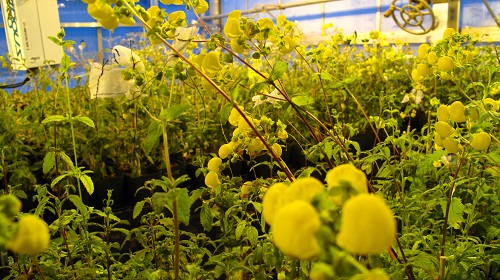
This profile is part of a series of New Faculty Profiles that highlight and introduce up-and-coming PIs in SSE. We invite highlighted faculty to discuss their research, describe how SSE has impacted their career, and share any tips or stories they may have for other researchers.
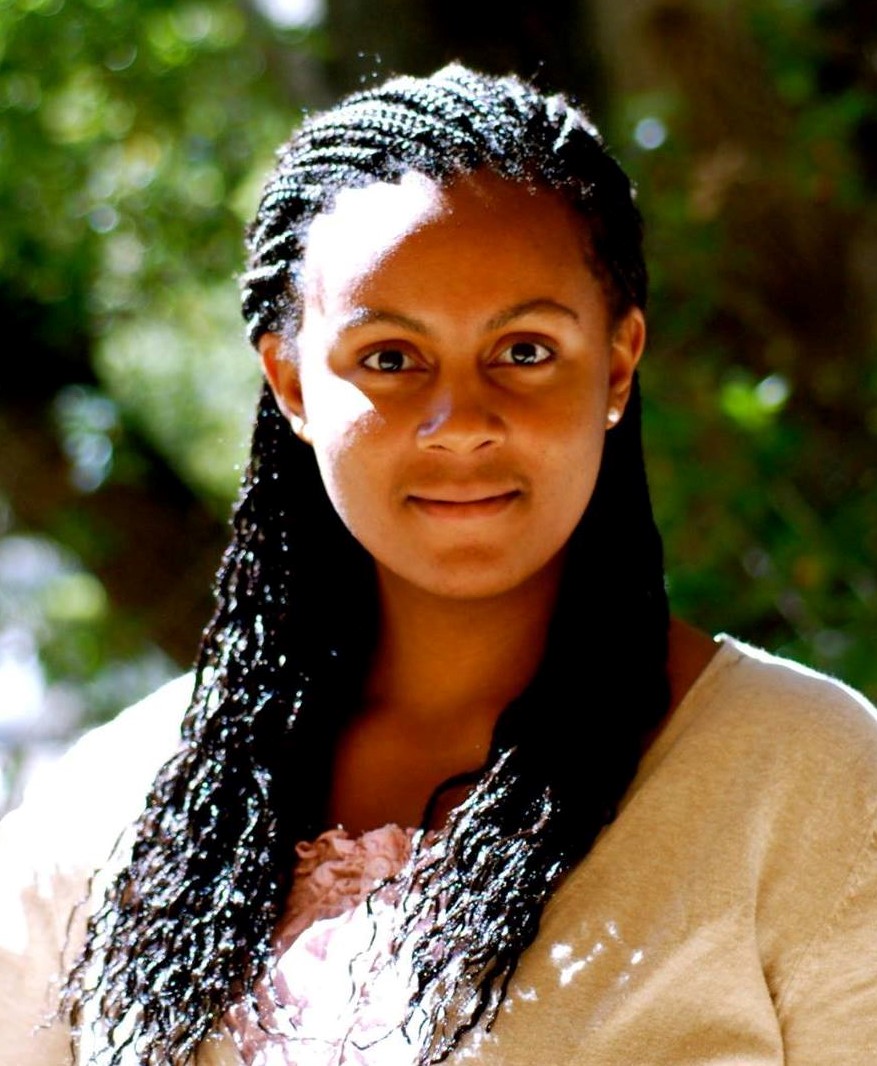 Melissa Kemp
Melissa Kemp
Assistant Professor
Department of Integrative Biology
The University of Texas at Austin
www.melissakemp.com
Start date: September 2018
PhD: Department of Biology, Stanford University. Advisor: Dr. Elizabeth Hadly.
Postdoc: Department of Organismal and Evolutionary Biology, Harvard University. Advisor: Dr. Jonathan Losos.
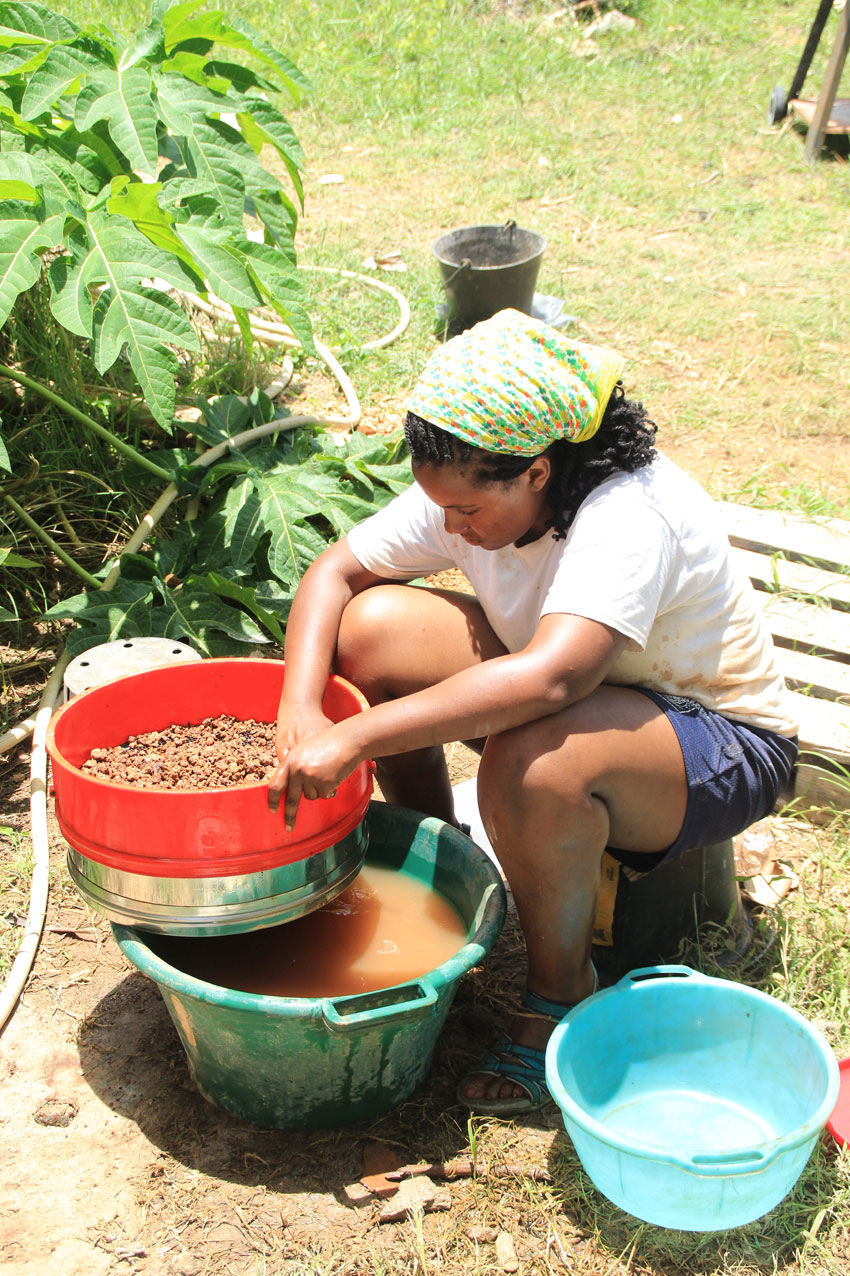
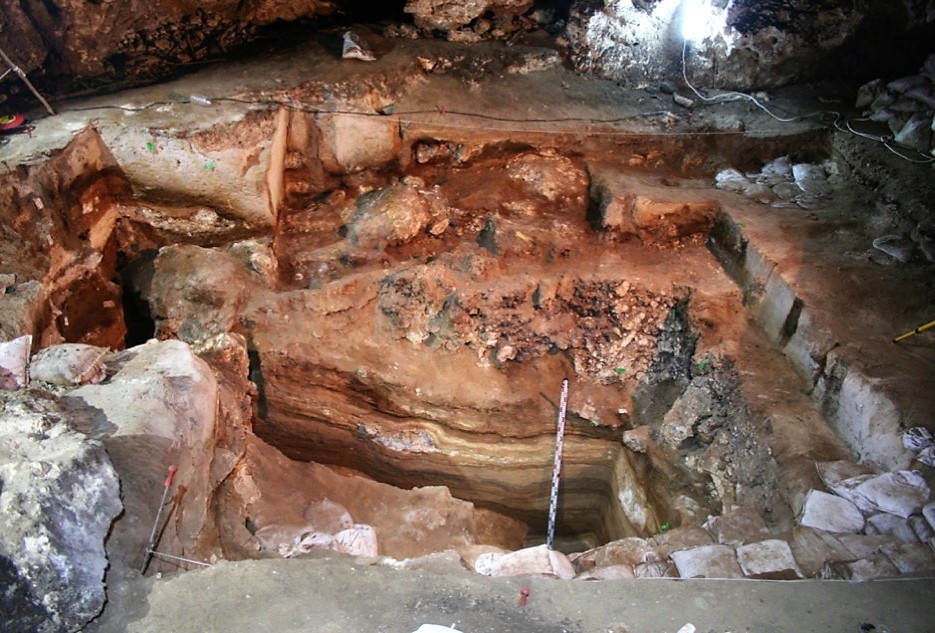
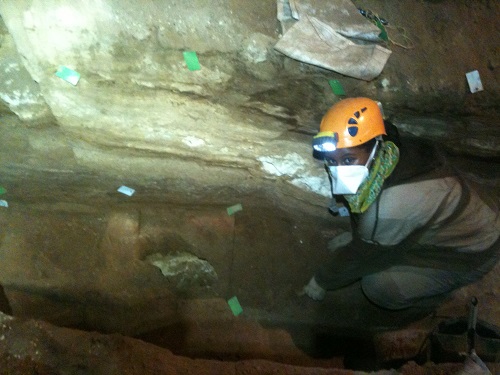
This profile is part of a series of New Faculty Profiles that highlight and introduce up-and-coming PIs in SSE. We invite highlighted faculty to discuss their research, describe how SSE has impacted their career, and share any tips or stories they may have for other researchers.
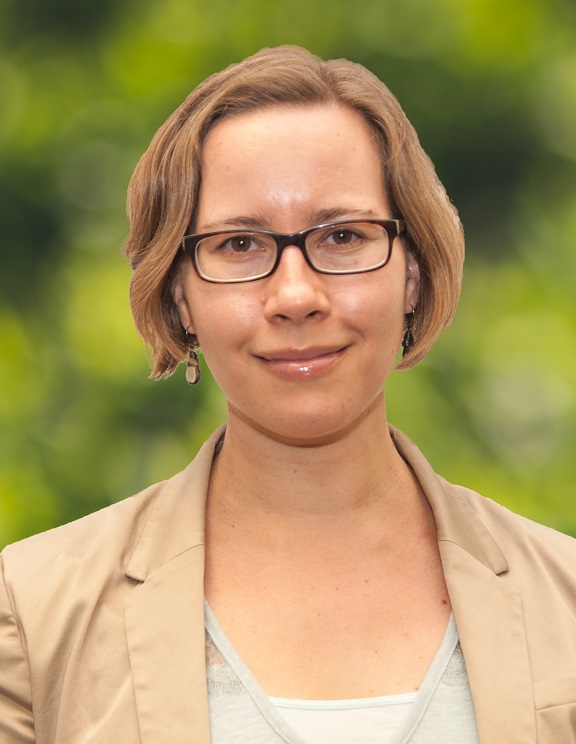 Emily B. Sessa
Emily B. Sessa
Assistant Professor
Biology Department
University of Florida
https://sessalab.biology.ufl.edu
Start date: August 2013
PhD: Department of Botany, University of Wisconsin–Madison. Advisor: Dr. Thomas Givnish.
Postdoc: Department of Ecology and Evolutionary Biology, University of Arizona. Advisor: Dr. Michael Barker.
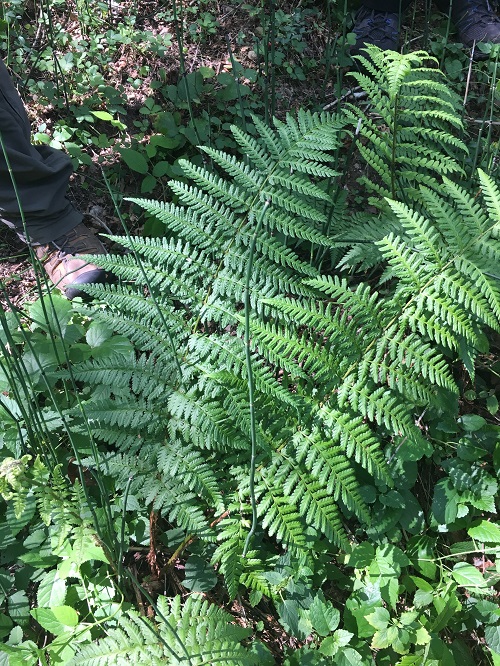
Dryopteris dilatata
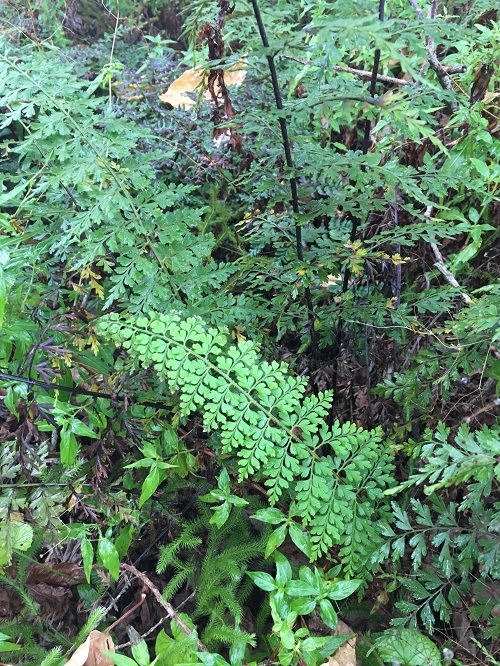
Asplenium aethiopicum
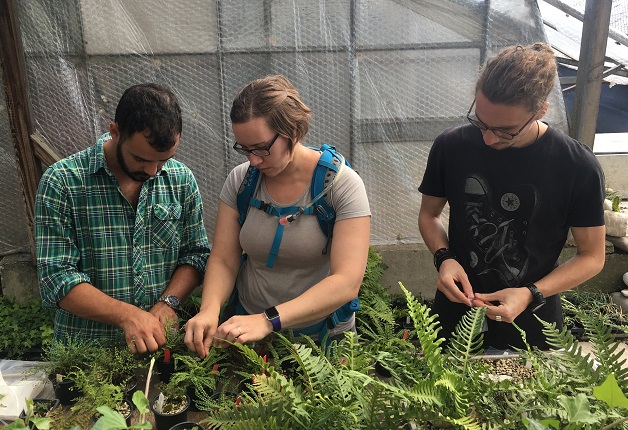
Sampling plants
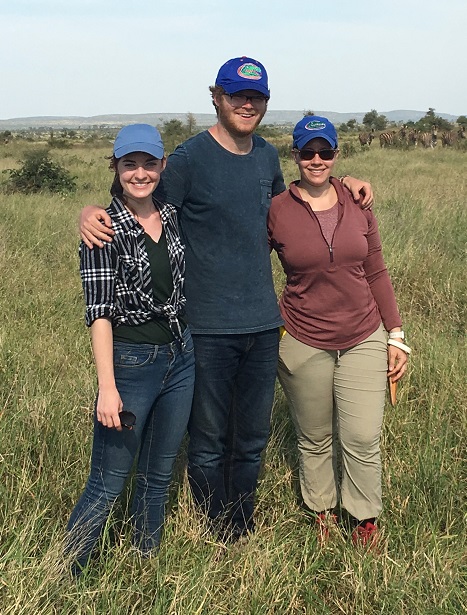
Teaching study abroad
This profile is part of a series of New Faculty Profiles that highlight and introduce up-and-coming PIs in SSE. We invite highlighted faculty to discuss their research, describe how SSE has impacted their career, and share any tips or stories they may have for other researchers.
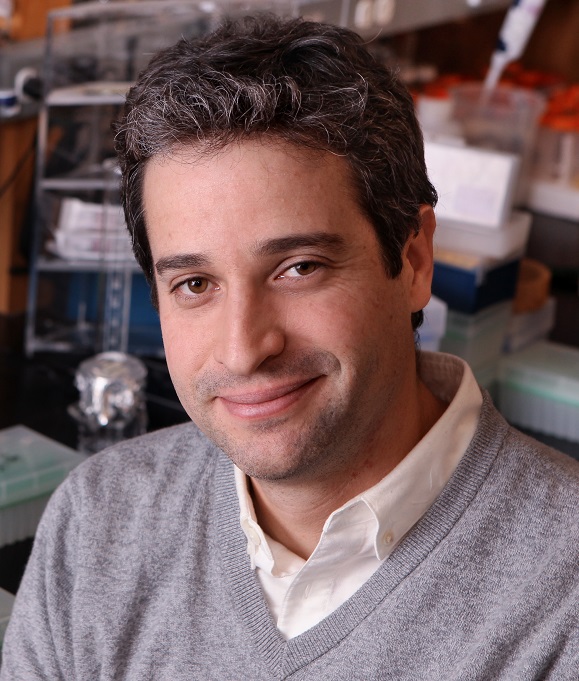 Ricardo Mallarino
Ricardo Mallarino
Assistant Professor
Department of Molecular Biology
Princeton University
Start date: 2018
PhD: Department of Organismic & Evolutionary Biology, Harvard University. Advisor: Dr. Arhat Abzhanov
Postdoc: Departments of Molecular & Cell Biology and Organismic & Evolutionary Biology, Harvard University/Howard Hughes Medical Institute; Advisor: Dr. Hopi Hoekstra.
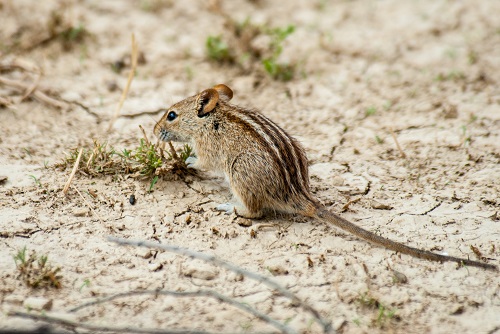
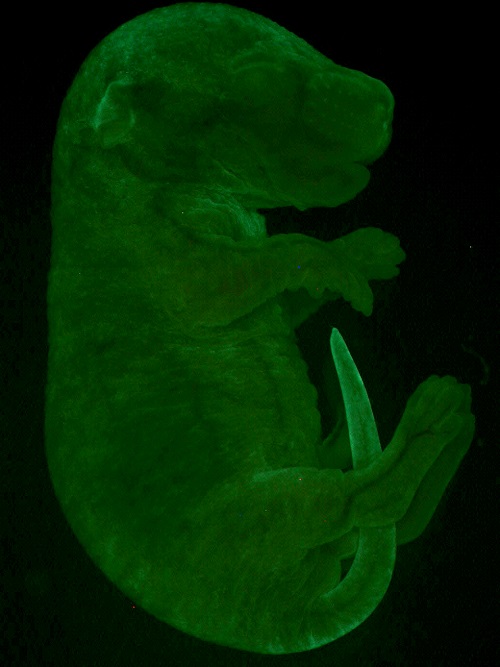

ABOUT | HOW TO APPLY | SELECTION CRITERIA | UDE EVENTS | BE A MENTOR
The Undergraduate Diversity at Evolution (UDE) program sends undergraduate students to the annual Evolution meeting, the joint meeting of the Society for the Study of Evolution (SSE), the Society of Systematic Biologists (SSB), and the American Society of Naturalists (ASN). The program is co-sponsored by the participating societies. This year, the three societies will meet on June 20-24 in Athens, GA, USA.
At the meeting, students will (i) present a poster, (ii) receive mentoring from graduate students, postdocs, and faculty, and (iii) participate in a career-oriented 'Undergraduate Futures in Evolutionary Biology' panel and discussion. Each selected awardee receives:
The application deadline is January 20, 2025 and decisions will be announced in February. Applications are welcomed from all undergraduates, and the admissions goal is to create a diverse pool of students.
Applications consist of:
Submit the application using this form. The letter of recommendation must be submitted in PDF format via email to Dr. Vanessa Koelling (education@evolutionsociety.org). Late applications and recommendation letters will not be accepted.
Deadline: Monday, January 20, 2025
All awardees will be required to attend the entire meeting to maximize their participation.
Previous award recipients are not eligible to receive the award again.
An awardee who requires a visa to travel to the meeting location (Athens, GA) may be unable to obtain one in time for the 2025 meeting. In this case, the awardee will be required to defer their participation to the 2026 meeting.
Awardees will make travel arrangements as communicated to them by email from the Education and Outreach Committee, and they will be expected to attend all UDE events (see below).
The Undergraduate Diversity at Evolution program will host three conference events that all UDE recipients will be expected to attend. More information will be available during conference registration.
*The Professional Development event is open to ANY attending undergraduates or post-baccalaureates, regardless of award status/eligibility, but we kindly request you sign up in advance.
We are also looking for graduate students, postdocs and faculty members who would like to serve as mentors to the undergraduate awardees during the meeting. Mentors meet with pairs of students and attend talks with them, introduce them to colleagues, network and generally make the meeting a welcoming place for them. Mentoring is available to non-awardee students as well, depending on how many mentors sign up. Although costs are not covered for mentors, it is a rewarding experience. Those interested in serving as a mentor can indicate this during meeting registration. Questions may be directed to Dr. Richard Kliman (education@evolutionsociety.org). NOTE: Mentors need to be available to have lunch with their mentees on either the first or second full day of the meeting.
This profile is part of a series of New Faculty Profiles that highlight and introduce up-and-coming PIs in SSE. We invite highlighted faculty to discuss their research, describe how SSE has impacted their career, and share any tips or stories they may have for other researchers.
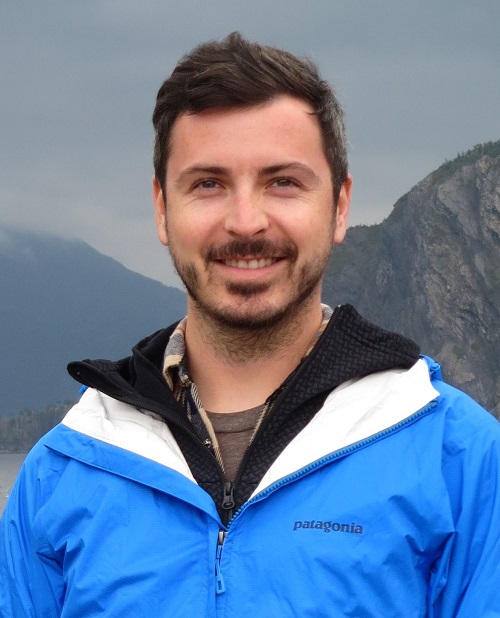 Scott A. Taylor
Scott A. Taylor
Assistant Professor
Department of Ecology and Evolutionary Biology
University of Colorado Boulder
https://www.colorado.edu/lab/taylor/
Start date: August 2016
PhD: Queen’s University, Kingston Ontario. Advisor: Dr. Vicki Friesen.
Postdoc: Cornell Lab of Ornithology / Cornell University, Ithaca NY. Advisor, Dr. Irby Lovette
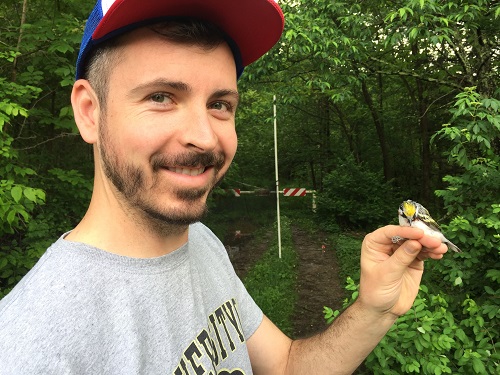
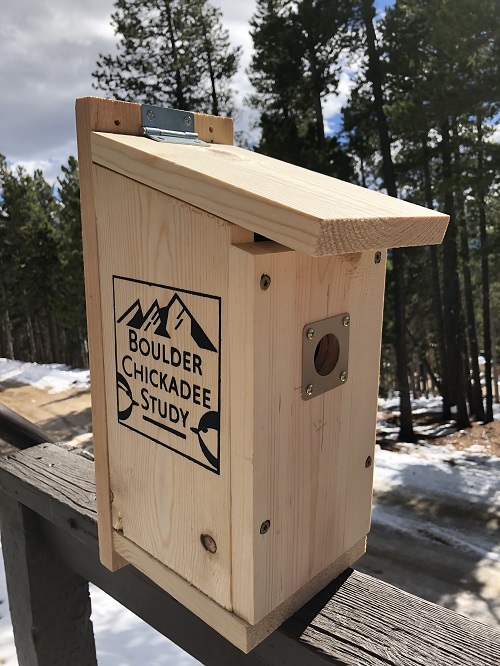
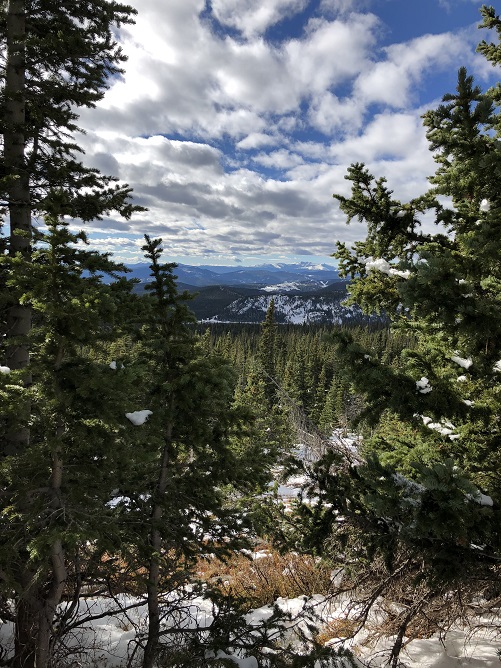
This profile is part of a series of New Faculty Profiles that highlight and introduce up-and-coming PIs in SSE. We invite highlighted faculty to discuss their research, describe how SSE has impacted their career, and share any tips or stories they may have for other researchers.
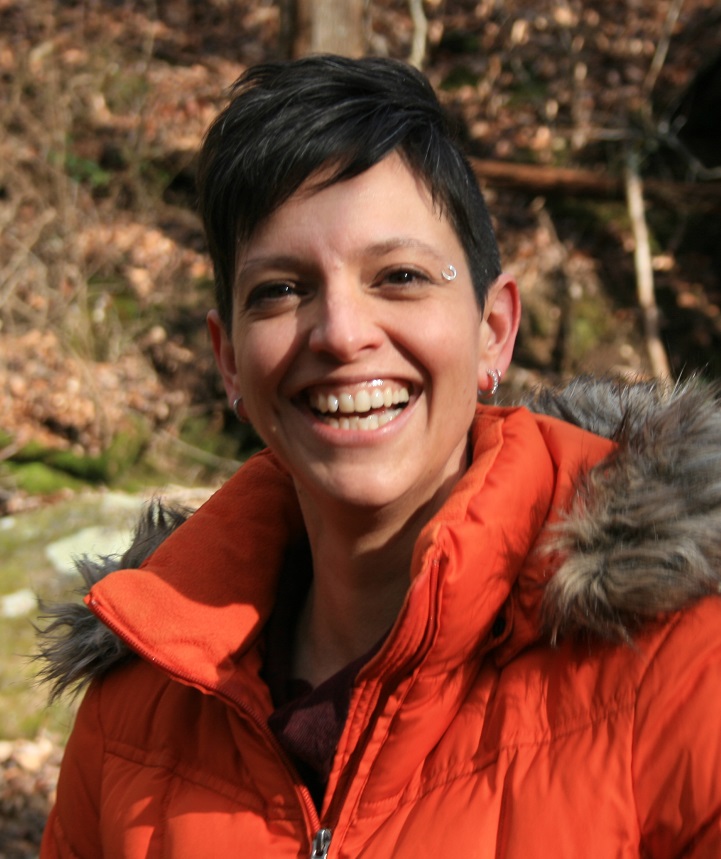 Katie McGhee
Katie McGhee
Assistant Professor
Department of Biology
Sewanee: The University of the South
http://katiemcghee.strikingly.com
Start date: Fall 2015
PhD: Department of Biological Sciences, Florida State University; advisor: Dr. Joseph Travis
Postdoc: Department of Animal Biology, University of Illinois, Champaign-Urbana; advisor: Dr. Alison Bell
Visiting Postdoc: Department of Zoology, University of Cambridge, UK; advisors: Behavioural Ecology Group (hosts: Drs. Rebecca Kilner and Nick Davies)
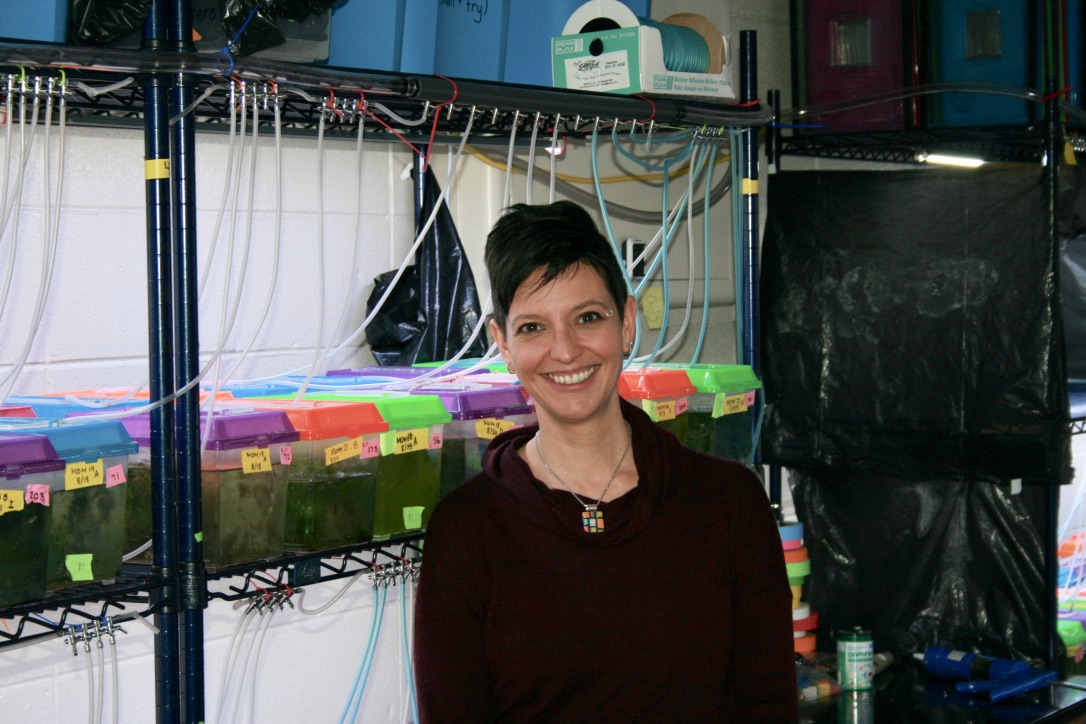
View the Handbook for SSE Council and Committee Members here.
This profile is part of a series of New Faculty Profiles that highlight and introduce up-and-coming PIs in SSE. We invite highlighted faculty to discuss their research, describe how SSE has impacted their career, and share any tips or stories they may have for other researchers.
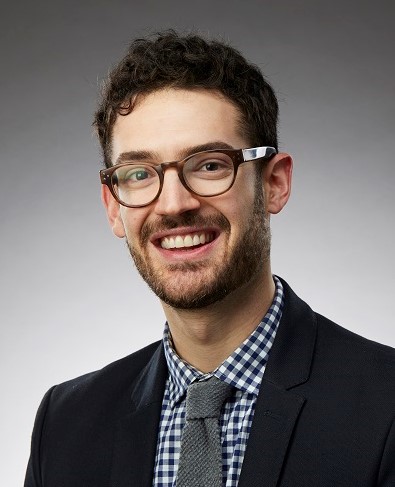 Daniel J. Field
Daniel J. Field
University Lecturer
Department of Earth Sciences
University of Cambridge
www.danieljfield.com
Start date: October 2018
PhD: Department of Geology & Geophysics, Yale University. Advisor: Prof. Jacques Gauthier
Fellowship: 50th Anniversary Prize Fellowship in the Milner Centre for Evolution at the University of Bath
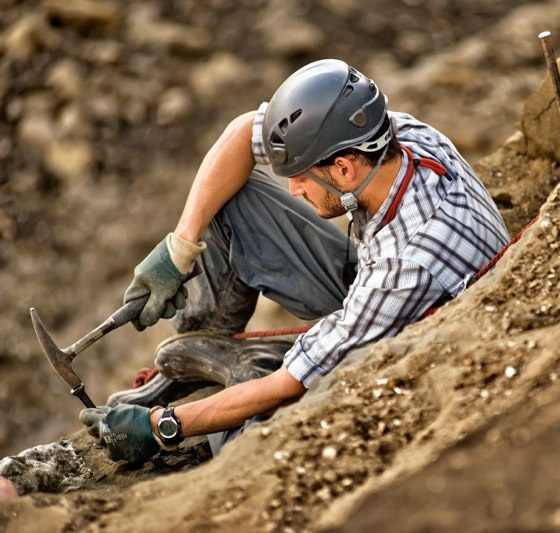
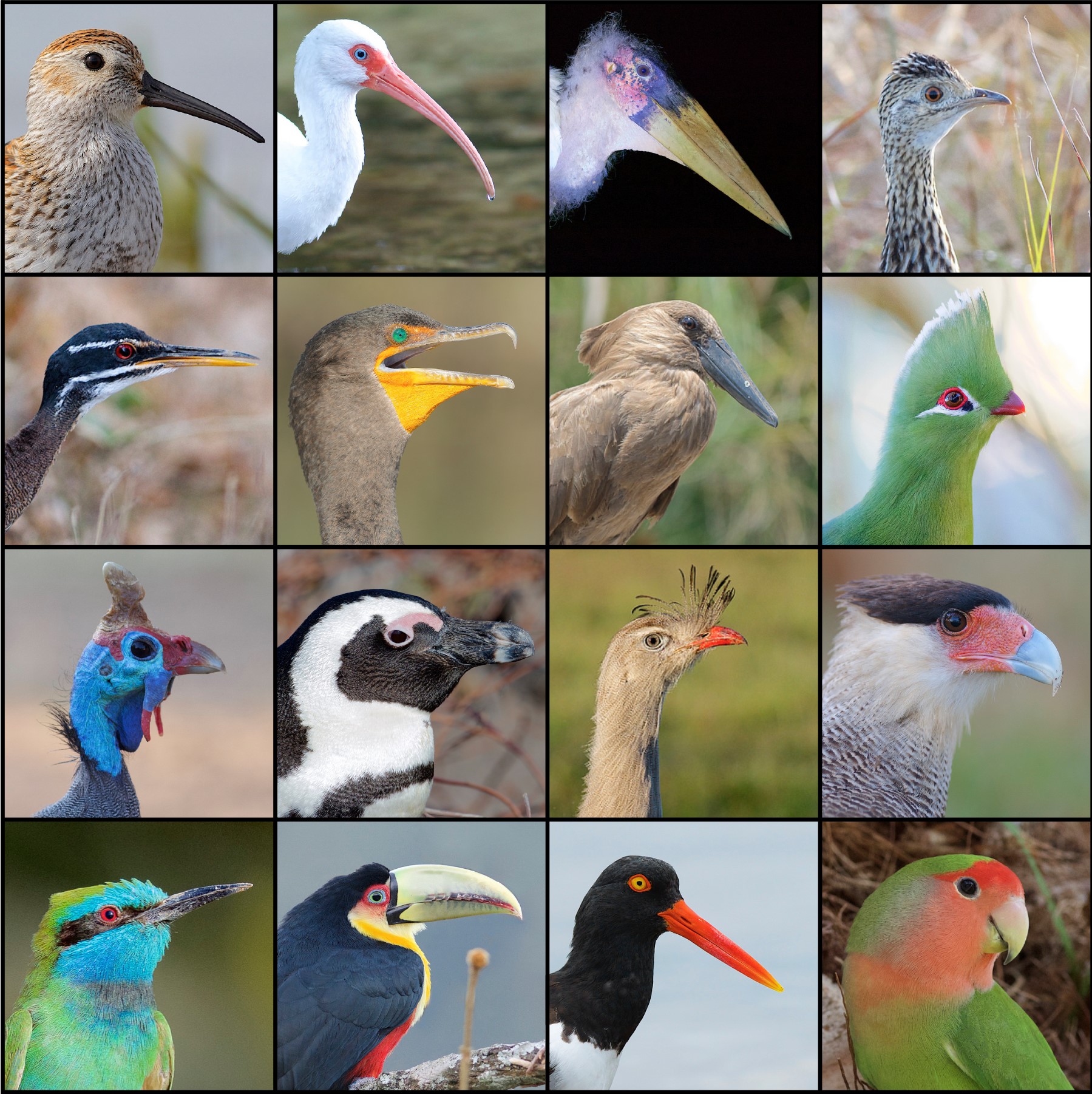
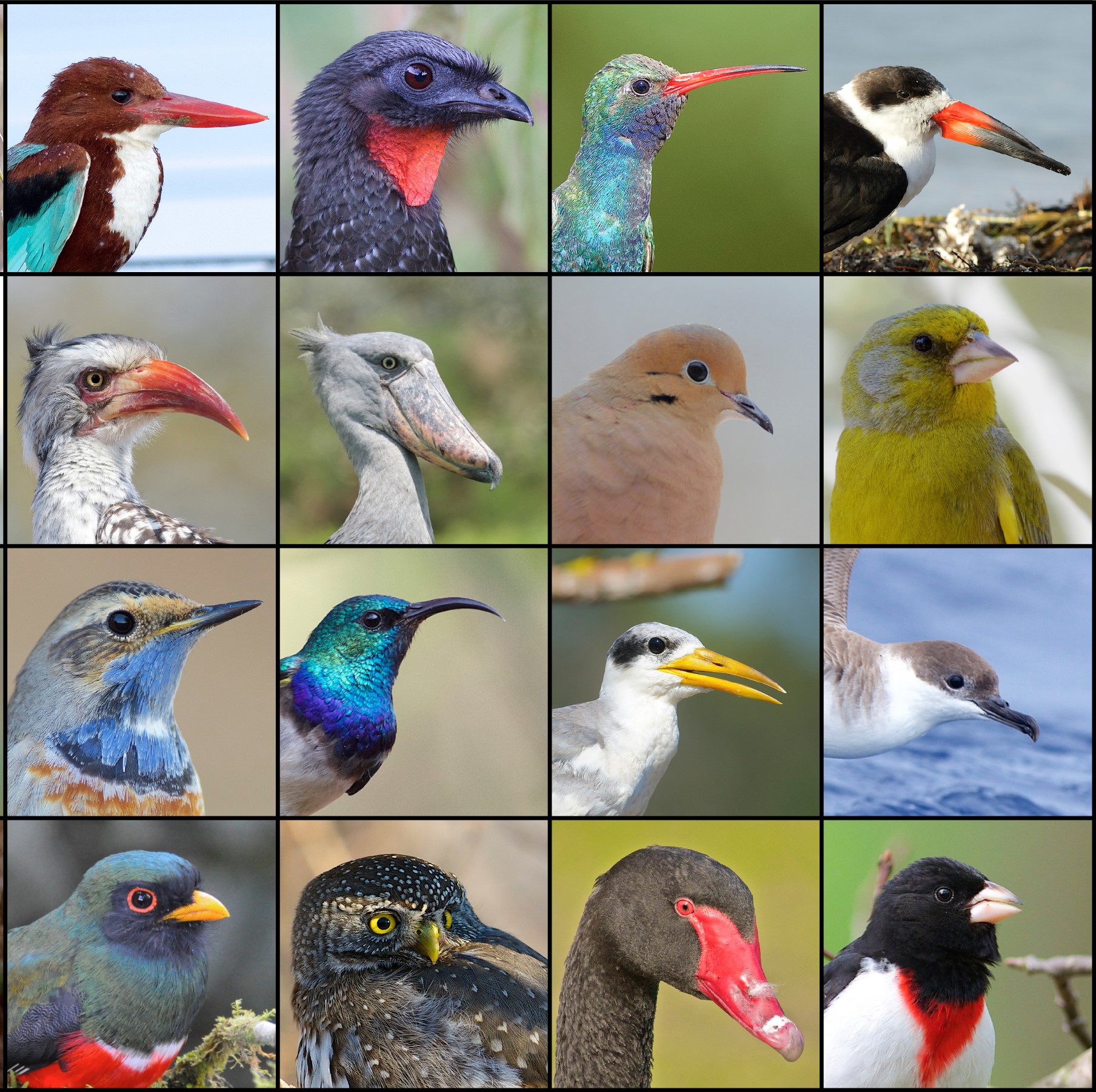
This profile is part of a series of New Faculty Profiles that highlight and introduce up-and-coming PIs in SSE. We invite highlighted faculty to discuss their research, describe how SSE has impacted their career, and share any tips or stories they may have for other researchers.
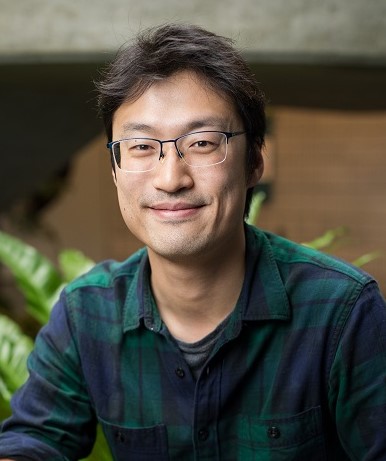 Fay-Wei Li
Fay-Wei Li
Assistant Professor
Boyce Thompson Institute
www.fernway.net
Start date: January 2017
PhD: Department of Biology, Duke University; advisor: Dr. Kathleen Pryer
Postdoc: Department of Biology, Duke University; advisor: Dr. Kathleen Pryer
Postdoc: Department of Integrative Biology, University of California Berkeley; Advisor: Dr. Carl Rothfels
Postdoc: Institute for Systematic and Evolutionary Botany, University of Zurich; Péter Szövényi
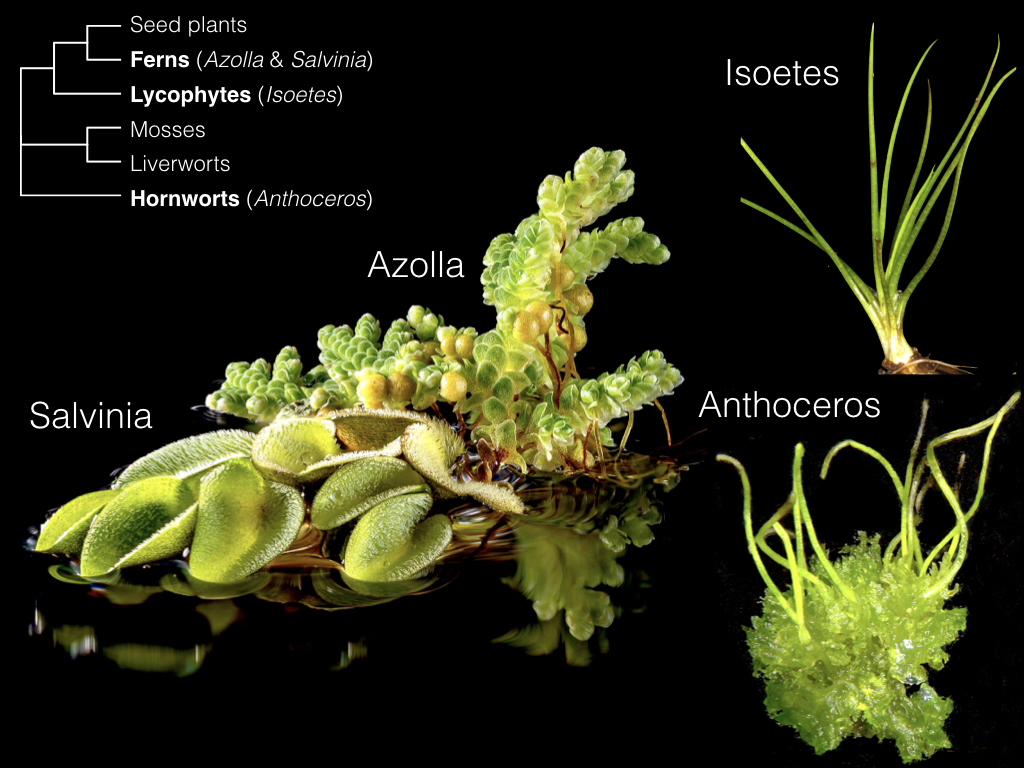
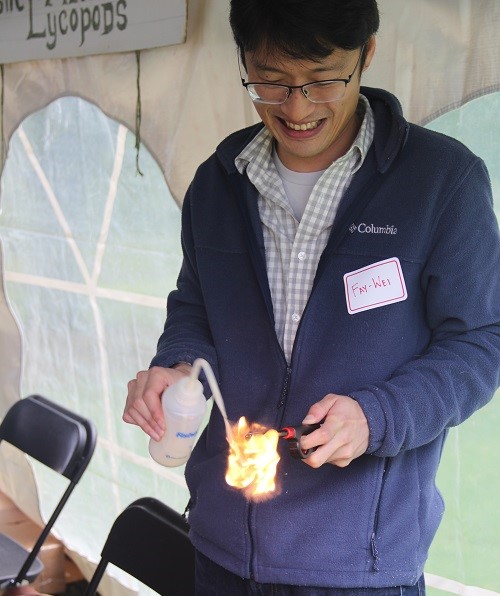
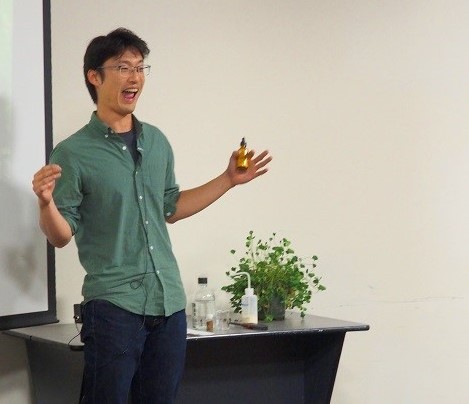
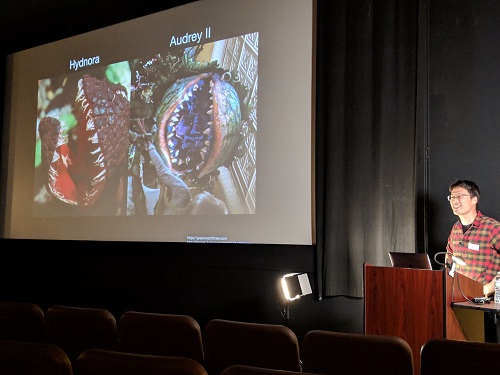
This profile is part of a series of New Faculty Profiles that highlight and introduce up-and-coming PIs in SSE. We invite highlighted faculty to discuss their research, describe how SSE has impacted their career, and share any tips or stories they may have for other researchers.
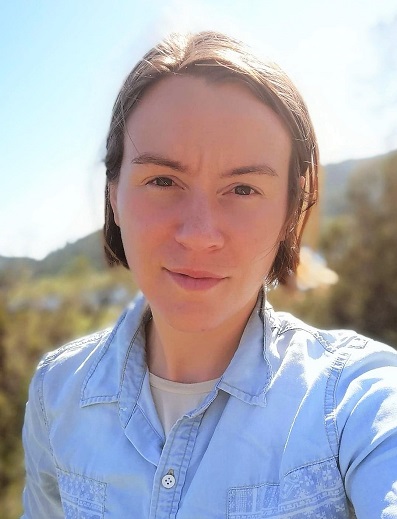 Rachel Germain
Rachel Germain
Assistant Professor
Department of Zoology & the Biodiversity Research Centre
University of British Columbia
www.germainlab.weebly.com
Start date: January 2019
PhD: Department of Ecology and Evolutionary Biology, University of Toronto; advisor: Dr. Benjamin Gilbert.
Postdoc: Departments of Botany and Zoology, University of British Columbia; advisor: mostly an independent postdoc, affiliated with Dr. Amy Angert’s lab.
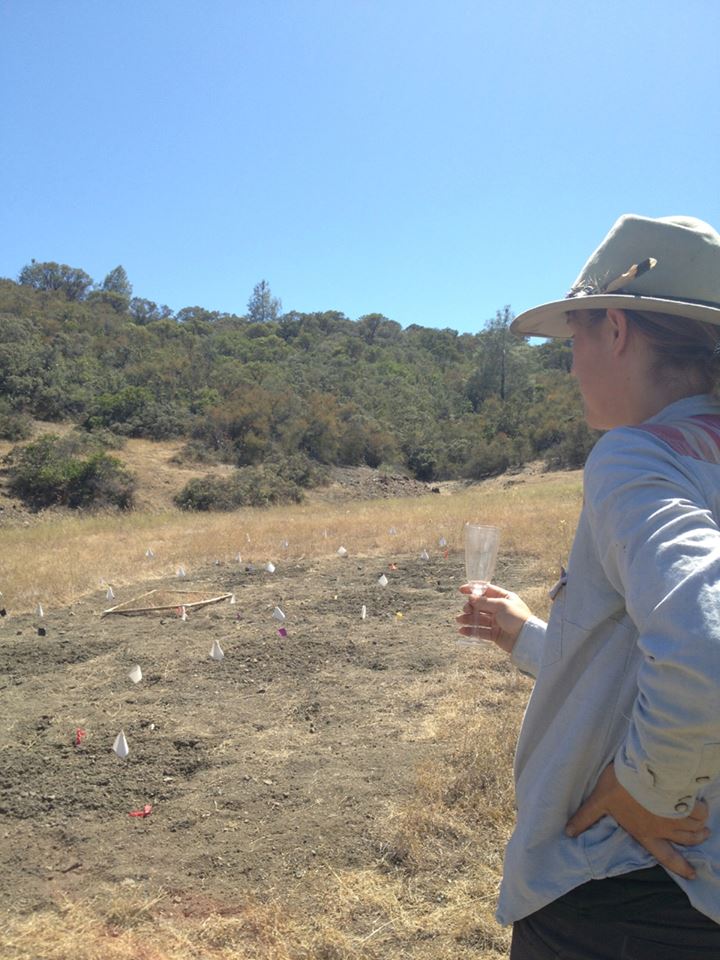
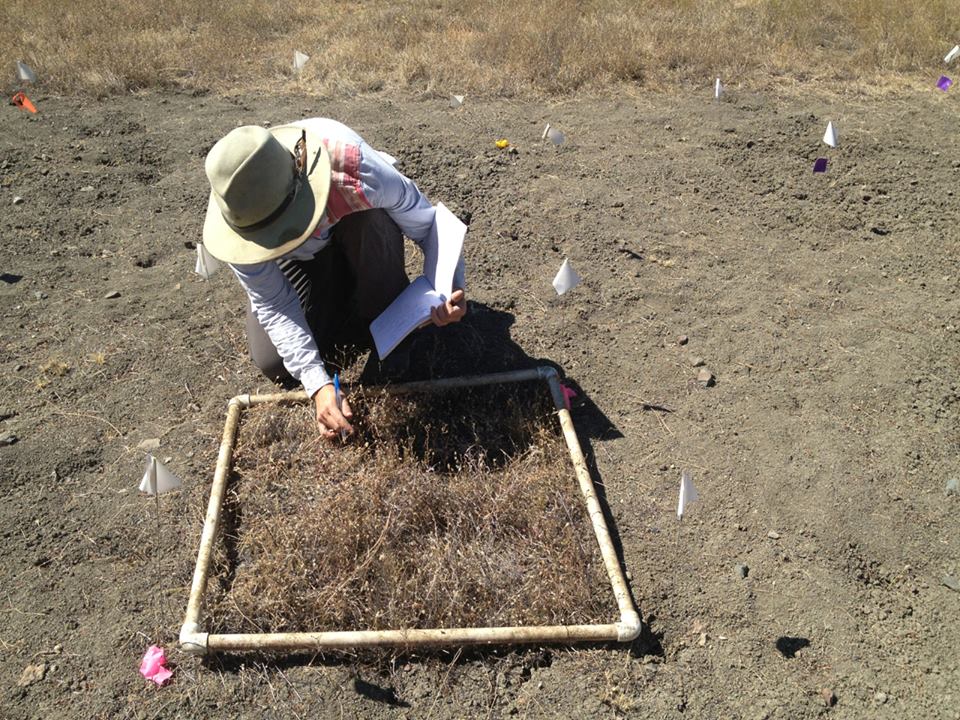
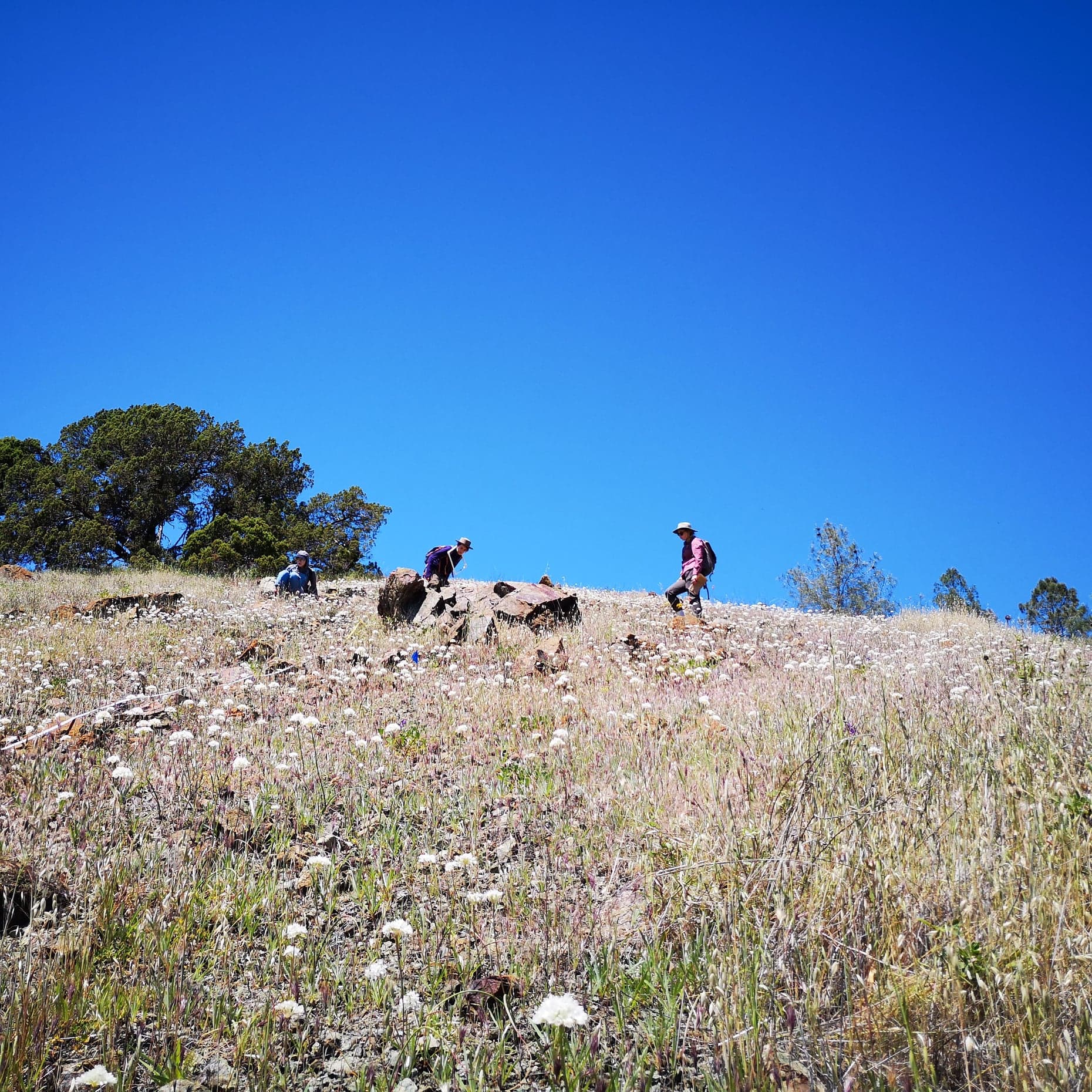
This profile is part of a series of New Faculty Profiles that highlight and introduce up-and-coming PIs in SSE. We invite highlighted faculty to discuss their research, describe how SSE has impacted their career, and share any tips or stories they may have for other researchers.
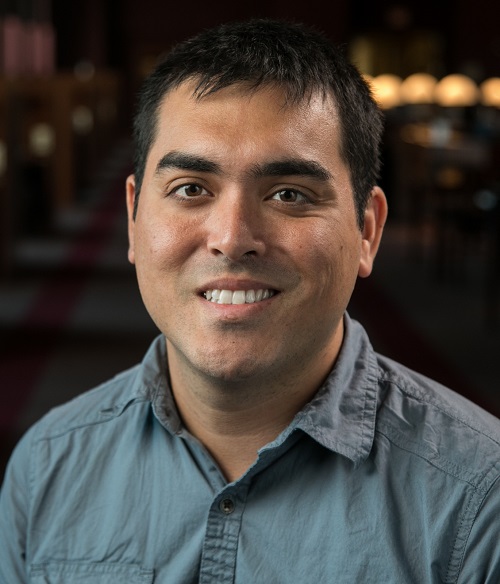 Josef Uyeda
Josef Uyeda
Assistant Professor of Evolutionary Biology
Department of Biological Sciences
Virginia Polytechnic and State University
https://www.uyedalab.com/
Start date: August 2017
PhD: Department of Zoology (now Integrative Biology), Oregon State University; Advisor: Dr. Stevan J Arnold.
Postdoc: Institute for Bioinformatics and Evolutionary Studies (IBEST), University of Idaho; Advisor: Dr. Luke Harmon.
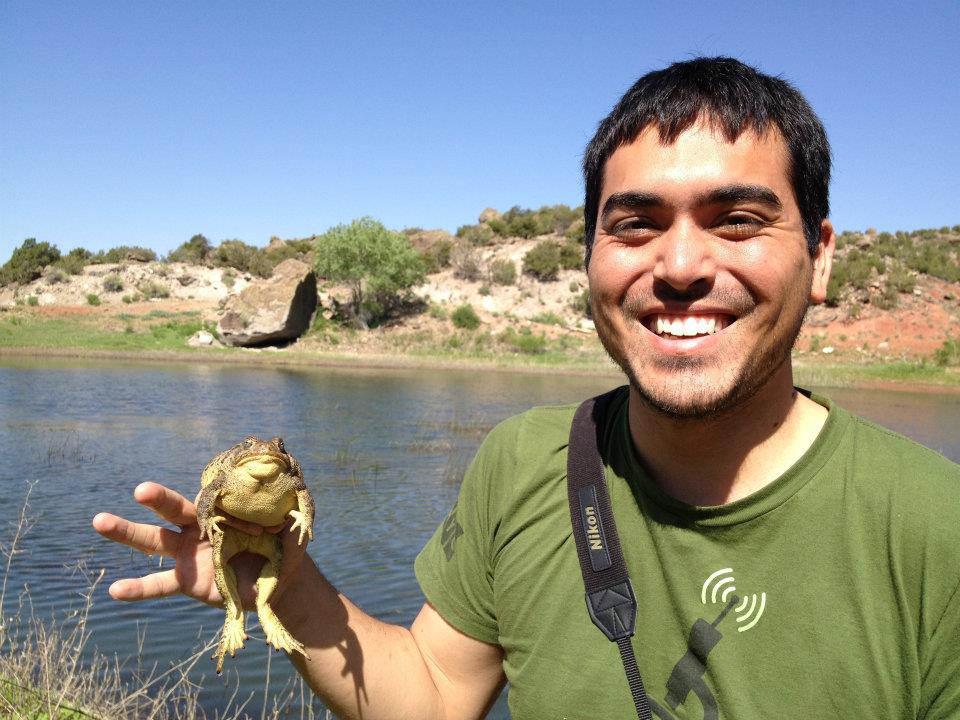
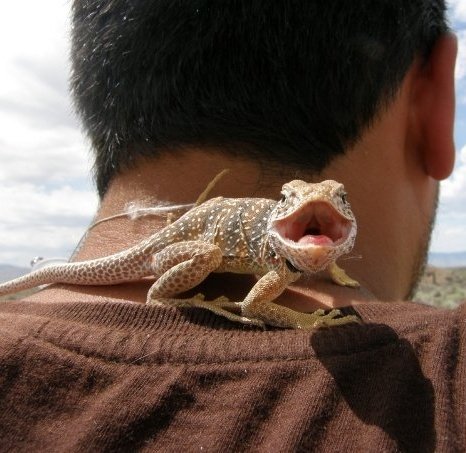
This profile is part of a series of New Faculty Profiles that highlight and introduce up-and-coming PIs in SSE. We invite highlighted faculty to discuss their research, describe how SSE has impacted their career, and share any tips or stories they may have for other researchers.
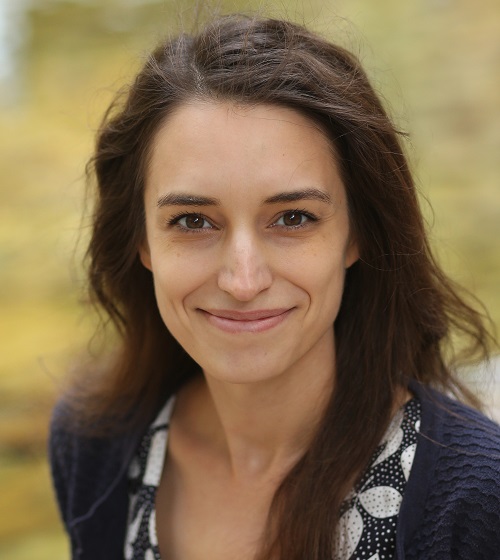 Lauren O'Connell
Lauren O'Connell
Assistant Professor
Department of Biology
Stanford University
oconnell.stanford.edu
Start date: August 2017
PhD: University of Texas at Austin; Advisor: Hans Hofmann.
Postdoc Harvard University; Advisor: Andrew Murray. Bauer Fellow at Harvard; Advisors: Alex Schier, Catherine Dulac, Naomi Pierce, and Jon Clardy.
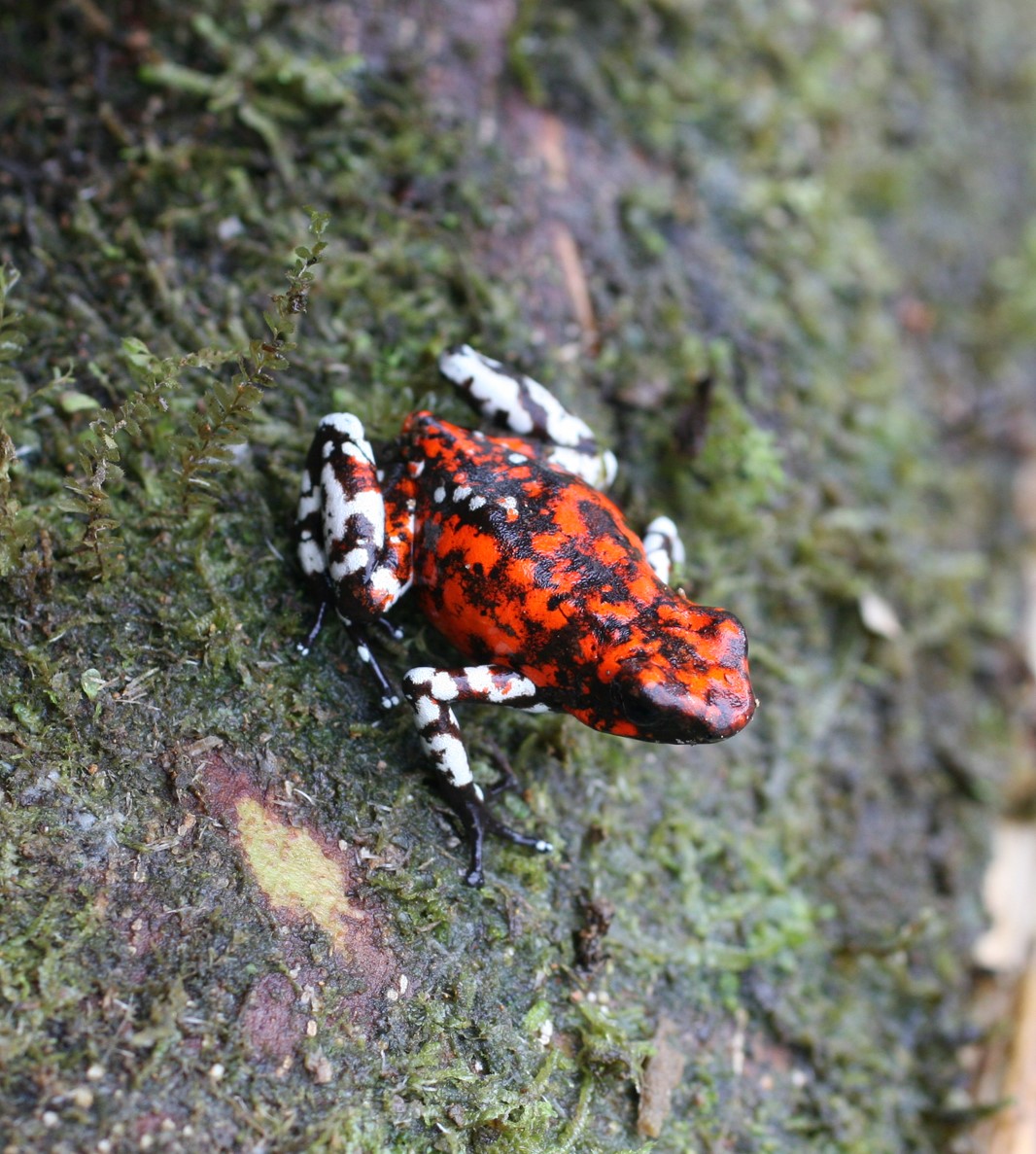
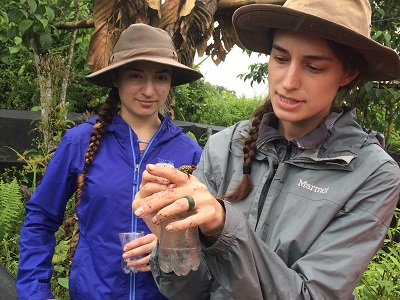
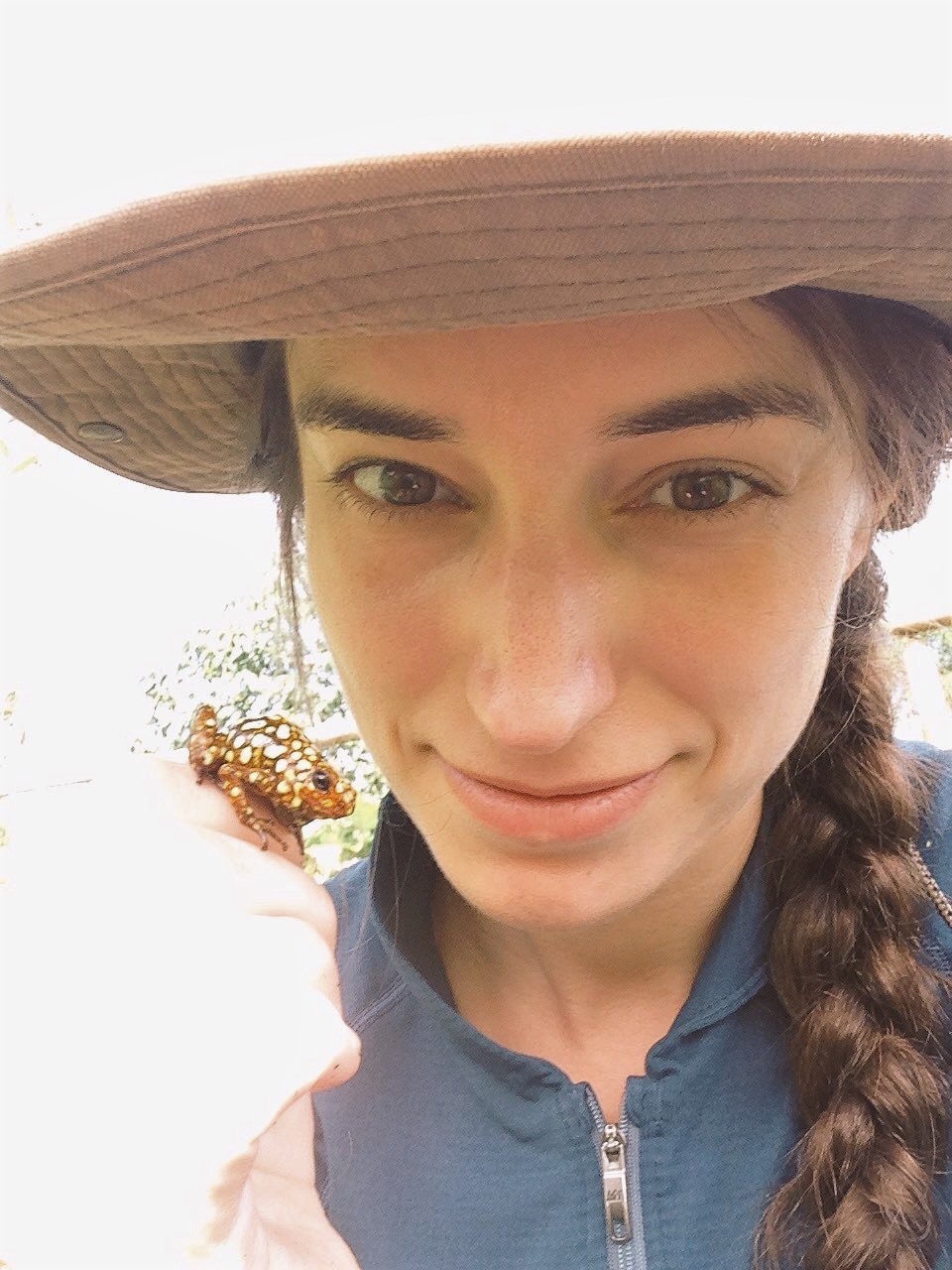
This profile is part of a series of New Faculty Profiles that highlight and introduce up-and-coming PIs in SSE. We invite highlighted faculty to discuss their research, describe how SSE has impacted their career, and share any tips or stories they may have for other researchers.
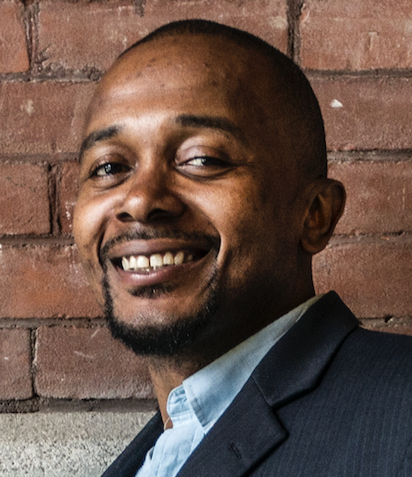 C. Brandon Ogbunu
C. Brandon Ogbunu
Assistant Professor
Department of Ecology and Evolutionary Biology
Brown University
https://medium.com/ogplexus
Start date: July 2018
PhD: Yale University; Advisor: Paul E. Turner.
Postdoc Harvard University/Broad Institute; Advisor: Daniel L. Hartl.
This profile is part of a series of New Faculty Profiles that highlight and introduce up-and-coming PIs in SSE. We invite highlighted faculty to discuss their research, describe how SSE has impacted their career, and share any tips or stories they may have for other researchers.
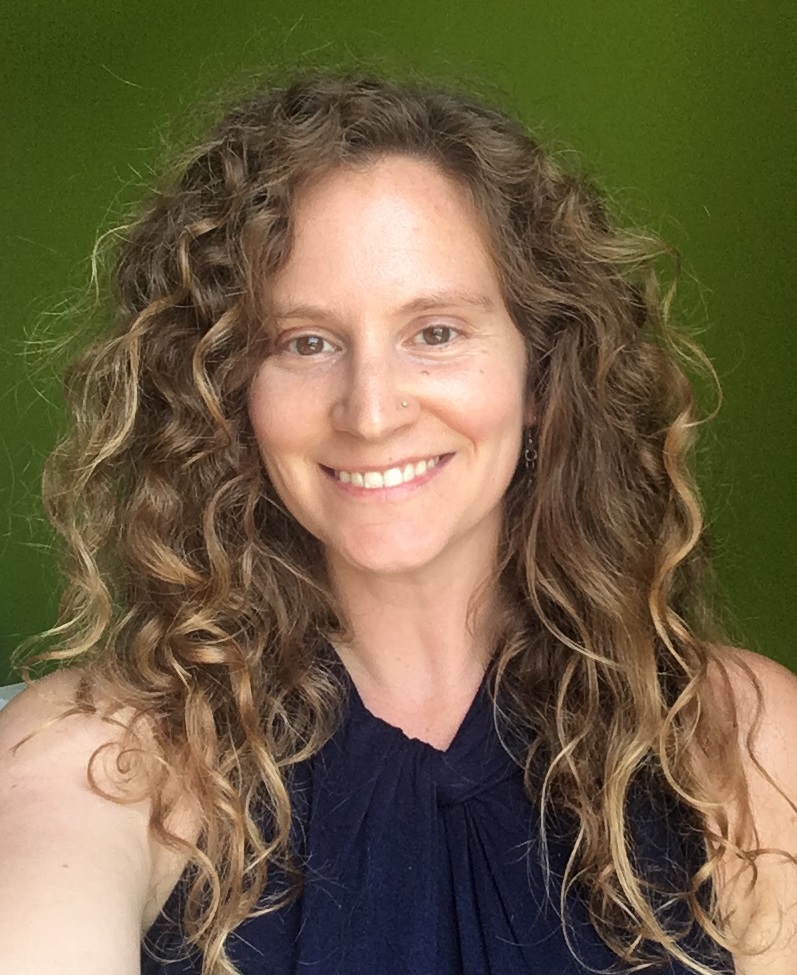 Kathleen Gray Ferris
Kathleen Gray Ferris
Assistant Professor
Ecology and Evolutionary Biology
Tulane University
https://kathleengferristulane.wordpress.com
Start date: July 2018
PhD: Duke University; Advisor: John Willis.
Postdoc UC Berkeley; Advisor: Michael Nachman. Center for Population Biology Post-doctoral Fellow, UC Davis, Advisors: Johanna Schmitt, Graham Coop, and Jeff Ross-Ibarra.
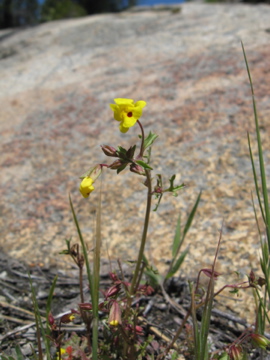
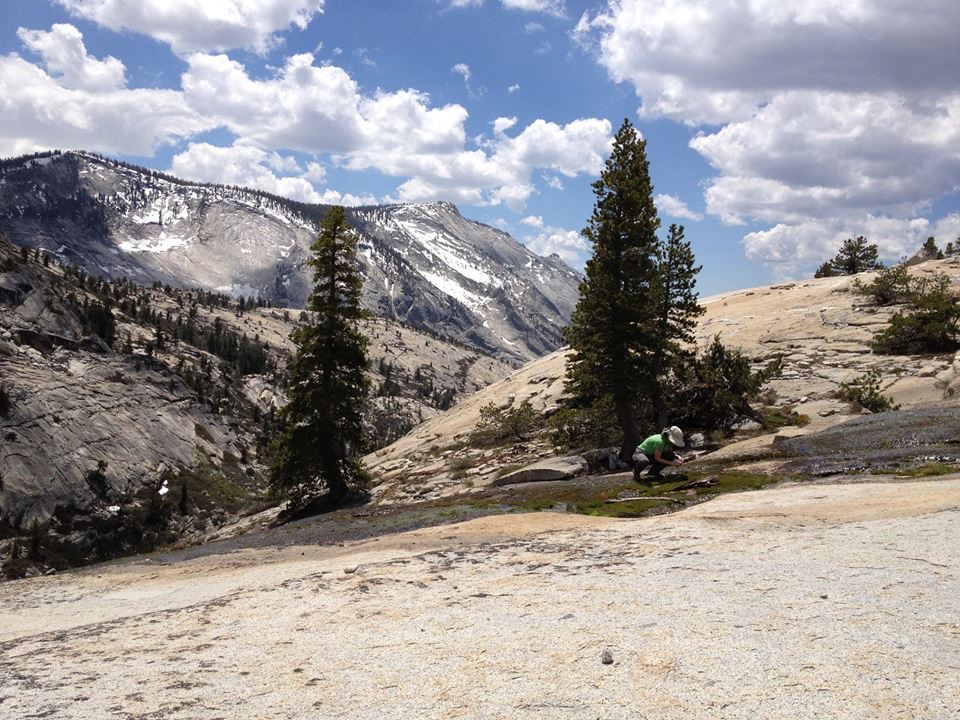
In an effort to be fiscally transparent to SSE members, our income and expenditures are summarized below. In addition, we are posting yearly financial reports that provide a more detailed summary of the Society’s income and expenditures.
View financial reports by year: 2018 | 2019 | 2020 | 2021 | 2022 | 2023
Questions or comments should be directed to Courtney Murren, SSE Treasurer: treasurer [at] evolutionsociety.org.
SSE’s income derives from three sources: dues and donations from members; revenue from our journals (Evolution and Evolution Letters); and returns on our investments. The income from these sources can vary from year to year. However, typical proportions are shown in the figure to the left, with more than half of our income in recent history derived from journal revenue.
In December 2023, SSE had 3,577 members.
SSE’s journal income comes from its contract with Oxford University Press, the publisher of Evolution and Evolution Letters. This income includes royalties, profit sharing, and page charges. Publishing in society journals supports society activities.
SSE’s investment income comes from its endowment. The endowment is managed for SSE by Vanguard (transitioning to Mercer) and overseen by the Treasurer and a Finance committee. In February 2021, SSE adopted a formal investment policy that includes a policy on ethical investing. This policy was developed by the Treasurer and Finance and Policy committees and received council approval. To ensure that the endowment can continue to provide income to SSE in the future, a current component of the financial policy is to spend no more than 3% of the endowment’s average value over the previous 3 years. The finance committee reviews the policy on an annual basis. Read the 2024 financial policy here.
Expenditures can be divided into two major categories: non-discretionary and discretionary.
Non-discretionary expenditures are essential to the general functioning of the Society and represent approximately half of our annual expenditures. Without these expenditures, the Society would not be sustainable. Non-discretionary expenditures fall into two broad categories:
Operating costs (~⅔ of non-discretionary budget)
Publication and editorial costs (~⅓ of non-discretionary budget)
Discretionary expenditures are for activities that support SSE’s mission (“the promotion of the study of organic evolution and the integration of various fields of science concerned with evolution”), and represent the other approximate half of our annual expenditures. Most discretionary expenditures fall into one or more of the broad categories:
Diversity, Equity, and Inclusion expenditures
Education and Outreach expenditures
Public Policy expenditures
Award expenditures
Professional Development expenditures

Congratulations to this year’s recipients!
Savanna Brown, University of Connecticut. Advisor: Elizabeth Jockusch
Meridia Jane Bryant, Cornell University. Advisor: Ben Sandkam
Sivaraj Gangothri, University of California Riverside. Advisor: Kate Ostevik
Daniela Garcia Cobos, Richard Gilder Graduate School/ American Museum of Natural History. Advisor: Frank Burbrink
Miranda Gibson, University of Alabama. Advisor: Benjamin Titus
Dheeraj Halali, University of Cambridge. Advisor: Chris Jiggins
Isabela Hernandez Rodriguez, Yale University. Advisor: Martha Muñoz
Joaquin Lopez Jr., University of California, Irvine. Advisor: Maria Rebolleda-Gomez
Kailey McCain, University of South Florida. Advisor: Lynn Martin
Austin Nguyen, University of Kansas. Advisor: Kelly Matsunaga
Nemo Robles, Stanford University. Advisor: Molly Schumer
Adam Rosso, University of Texas at Arlington. Advisor: Matthew Fujita
Logan Scott, University of Georgia. Advisor: Andrea Sweigart
Julia Soares Parreiras, Cornell University. Advisor: Molly Womack
Walker Stanton, University of Michigan - Ann Arbor. Advisor: Jacinta Beehner
Pei-Wei Sun, Yale University. Advisor: Jenn Coughlan
Ravi Timsina, Illinois State University. Advisor: Ben Sadd
Juan D. Vásquez-Restrepo, Princeton University. Advisor: Tiago Simões
Zachary Vegso, University of Tennessee, Knoxville. Advisor: Benjamin Fitzpatrick
Olivia Weaver, University of Louisville. Advisor: Alycia Lackey
ABOUT | ELIGIBILITY | FUNDING | HOW TO APPLY | EVALUATION CRITERIA | NEXT STEPS | FAQ
The Society for the Study of Evolution (SSE) is pleased to announce the 2025 Graduate Research Excellence Grant (GREG) R. C. Lewontin Award competition. These awards offer up to $2,500 USD to assist students in the early stages of their graduate programs. These grants are part of the Graduate Research Excellence Grants award program.
PhD students in their first two years of their program and Master's students in the first year of their program are eligible. Eligibility can be confirmed by the advisor or graduate director stating that the student is an early-stage doctoral student. Previous applicants to the GREG Rosemary Grant Advanced Award are no longer early in their programs, thus are ineligible to apply to the GREG R. C. Lewontin Early Award.
Student applicants must be members of SSE, and are advised to join SSE, if not already members, as soon as possible to facilitate their applications. To become a member, visit https://payments.evolutionsociety.org/joinsse/.
Previous awardees of either GREG award may not re-apply. Previous applicants to the GREG R. C. Lewontin Award who were not selected for funding are welcome to re-apply if they still meet the other eligibility requirements.
This award is not limited to students in the United States.
Students do not have to be enrolled in an evolutionary biology program to apply, but proposals must address a topic in evolutionary biology.
Please direct any questions about eligibility to communications@evolutionsociety.org.
Funding is not limited to any particular aspect of research (but see FAQs below). Funds can be used to collect preliminary data (to pursue additional sources of support) or to enhance the scope of their research beyond current funding limits (e.g. by visiting additional field sites, or working at other labs). Recipients are not required to use the awarded funds by a certain time, and may deviate from any timeline described in their proposal.
Students should confirm that the proposed work is outside the scope of other funding held by either the student or their advisor.
Awards will range from $1,500 - $2,500 USD.
Indirect costs may not be charged to this award.
You must be a member of SSE to access the application. Join or renew your membership here.
Log in to access the award application here. Use your SSE member username and password. If you have forgotten your username or password, you will be able to reset it.
After you log in, click “Submit a new Proposal for ‘2025 R. C. Lewontin Early Award’” to access the application.
The application will request two documents:
Research Proposal Formatting Requirements:
Budget Requirements:
Please upload your proposal and budget as a single file.
Advisor Letter Requirements
The letter should be signed by your thesis advisor or graduate director. This should include confirmation that the applicant is in the first two years of their PhD program or the first year of their Master’s program.
Sample letter:
Dear Selection Committee,
This letter confirms that [Student Name] is eligible for the SSE GREG - R. C. Lewontin Early Award. I am [Student Name]’s supervisor. [Student Name] is in the first year of their Master's program.
Sincerely,
[Advisor/Graduate Director Name]
Note: This letter is *not* a letter of recommendation. Only include the information requested.
How to Write Your Research Proposal
Your research proposal should include the objectives, methods, significance, and schedule of your project, including how the award would enhance your thesis work. Focus on convincing the selection committee of the importance of the question, how the funds will allow you to reach certain objectives and expand the scope of your thesis work, and how these objectives fit into your overall thesis project.
Proposals will be evaluated anonymously. Do not include your name in the research proposal.
General proposal structure:
Background
- Start with the big picture: What is the context of your proposed research? What is already known about this area of study?
- Summarize previous research in this field: What findings will your work build upon? What are the gaps in our knowledge that your research will try to answer?
Research Objective
- State your specific hypothesis: What is your research question? What will you learn from this study? How will it address a gap in our knowledge of this field?
Methods
- Data collection: What data will you collect, and how?
- Data analysis: How will you analyze your data?
- Connection to research objective: How will collecting these data allow you to answer your research question?
Significance/Impact
- How does this research fit into your overall dissertation?
- What effect will these findings have on the field?
- How will this grant help you achieve your research goals?
References
- References may be submitted in any style or format, as long as it is consistent throughout the proposal.
Other notes:
- Use first-person singular pronouns ("I", "me", and "my", not "we", "us", and"our") to describe what you will do.
- Define any jargon terms that people outside of your specific area of research may not know.
- If possible, have someone else proofread your proposal to check for grammar and spelling errors.
Sample Research Proposals
Links to samples of successfully funded proposals are available on the award application form. Please note that these proposals are not meant to be prescriptive, and are not indicative of what proposals will be funded in this award cycle. They are only meant to be examples of the structure and language used in previously successful proposals. These proposals are posted with permission of the authors.
Demographic Information
The application also requests demographic information. Your answers to these questions will not be visible to the review committee during proposal evaluation. Answering demographic questions is voluntary — each question includes an option not to answer, and you may choose to answer as many or as few questions as you wish. Anonymized, aggregate responses will be used to assess demographic patterns in applicants and awardees and to assess any potential bias in awarding, as part of our efforts to pursue equity in awards and grants.
In an effort to better serve student applicants around the globe, a portion of these awards will be reserved for students whose undergraduate or graduate institution is located in one of the countries eligible for discounted membership through our Global Membership Assistance program.
Learn more about what data will be collected and how they will be used.
Submitting Your Application
At the bottom of the application, you have the option to SAVE or COMPLETE your application. Click SAVE to save your work and come back to it later. Click COMPLETE to submit your application. Your application must be marked as COMPLETE in order to be scored.
After you submit your materials by clicking COMPLETE, you should receive an email confirmation of receipt within 72 hours. If you do not, please contact SSE-Manager@EvolutionSociety.org.
You should receive an email confirmation of receipt of your materials within 72 hours. If you do not, please contact SSE-Manager@EvolutionSociety.org.
Please contact Kati Moore at communications@evolutionsociety.org with any questions about how to apply.
Deadline
February 19, 2025, 5:00 PM Eastern Standard Time (GMT-5:00)
Applications will be reviewed on the following two broad criteria:
1. Proposal structure, logic, and clarity
(A) Motivation of research: How well does the proposal situate the project in the context of the field by stating the big-picture question and/or the broader significance?
(B) Clarity of hypotheses or questions: Are the specific hypotheses or research questions clearly stated? Does the proposal provide sufficient rationale so that the evaluator can understand the logic behind the hypotheses or questions?
(C) Connection between objectives and design: Does the proposal clearly and explicitly tie the hypothesis or research questions and the methods to the broad motivating question? Are the proposed methods appropriate to test the stated hypotheses/research questions?
(D) Explanation of methods / analysis: Does the proposal provide enough explanation of the proposed methods, in language that can be understood by an educated but non-expert reviewer?
2. Scientific contribution
Does the proposed project address an unresolved topic, in a novel or interesting way, that is likely to move the field of evolutionary biology forward?
All applicants will receive decisions on their proposals in May via email and will be able to access reviewer comments via the application portal.
Award recipients will be announced on the SSE website and at the Evolution meeting during the SSE Presidential Address. SSE would be pleased if you consider submitting work funded by the R. C. Lewontin award to Evolution or Evolution Letters. Note that as a student SSE member publishing in Evolution, you would be eligible to apply for the SSE Presidents’ Award for Outstanding Paper in Evolution.
All work published with funds from the award should acknowledge the work as funded by the Graduate Research Excellence Grant - R. C. Lewontin Early Award from SSE. Please send a link to your paper to communications@evolutionsociety.org after publication for our internal records and so that we may promote your work on social media.
Awards are typically subject to 1099 reporting, and thus must be included as income by the recipient. All awardees will need to fill out an IRS W-9 form whether or not they are a US citizen, and whether or not they attend a US university. To avoid paying tax on the award, awardees may have their check deposited in a university research account. This award covers direct costs of research only; institutional indirect costs may not be charged to this award. Non-US citizens and those not filing US tax returns are required to set up a separate university account to receive this award.
Members are encouraged to contribute to the Graduate Research Excellence Grants fund when renewing their membership!
If I get the award, do I have to use the funds by a certain time?
No - there is no fixed timeline for using the funds and there are no formal reporting requirements beyond acknowledgement in a resulting publication.
My faculty advisor isn’t a member of SSE - am I eligible?
Yes, if you meet the other requirements - faculty advisors are no longer required to be members of SSE.
I received an R. C. Lewontin Early Award already. Can I apply for this award again?
No. Previous recipients of the R. C. Lewontin Early Award are ineligible to receive the award again.
I applied for an R. C. Lewontin Early Award last year but didn’t receive it. Can I apply for this award again?
Yes. Previous applicants who were not selected for funding are welcome to re-apply, providing they still meet the eligibility requirements.
I applied for a Rosemary Grant Advanced Award last year but didn’t receive it. Can I apply for the R. C. Lewontin Early Award this year?
No. Previous applicants to the Rosemary Grant Advanced Award are ineligible to apply for the R. C. Lewontin Early Award. We encourage you to apply for the Rosemary Grant Advanced Award in the fall.
If I receive an R. C. Lewontin Early Award, does that make me ineligible to receive a Rosemary Grant Advanced Award?
No. Receiving an R. C. Lewontin Early Award does not preclude you from receiving a Rosemary Grant Advanced Award, as long as you meet the other requirements and at least one year has passed since you received the Lewontin Early Award.
Can I use the award to pay part of my own salary?
No, salaries are not considered a research expense for this award. Awarded funds, can, however, be used to pay hourly wages for student research assistants.
Can I use the award to attend a meeting or workshop?
No. Meeting or workshop attendance and/or travel are not considered research expenses for this award. Funds may be used for other research-related travel, however, including travel and lodging for field collecting or sample analysis.
Can I use the award to purchase a computer?
No. Computers are not considered a research expense for this award.

2024 Rosemary Grant Advanced Awards Competition
The Rosemary Grant Advanced Awards, part of the Graduate Research Excellence Grants, are to assist students in the later stages of their PhD programs. Funds can be used to enhance the scope of dissertation research, such as to conduct additional experiments or field work. Awards up to US $3500 will be granted.
Students are eligible if they are SSE members, will defend after October 15, 2025, and are either 1) in at least their 3rd year of a >4-year doctoral degree program, 2) in the 2nd year of a 3- to 4-year program, or 3) otherwise deemed “advanced” by a letter from their advisor or graduate director. Students should also confirm that the proposed work is outside the scope of other funding currently held by either the student or their advisor.
Application instructions and evaluation criteria will be posted here when available.
Deadline: October 15, 2024, 5:00 PM Eastern
About | Eligibility | Funding | How to apply | Evaluation criteria | Next steps | FAQ
The Society for the Study of Evolution (SSE) is pleased to announce the 2024 Graduate Research Excellence Grant (GREG) – Rosemary Grant Advanced Award competition. These awards are to assist students in the later stages of their PhD programs. These grants are part of the Graduate Research Excellence Grants award program.
Only advanced* PhD students who are more than 12 months from defense date at the proposal due date are eligible. Eligibility can be confirmed by the advisor or graduate director stating that the student fulfills these requirements.
*Advanced PhD students are defined as:
Student applicants must be members of SSE, and are advised to join SSE, if not already members, as soon as possible to facilitate their applications.
Previous applicants to the GREG - Rosemary Grant Advanced Award who were not selected for funding are welcome to re-apply if they still meet the other eligibility requirements.
This award is not limited to students in the United States, and we welcome applications from our international members.
Applicants do not have to be enrolled in an evolutionary biology program to apply, but proposals must address a topic in evolutionary biology.
The applicant's advisor is not required to be a member of SSE in order for the student to apply for this award.
Awards will range from US$2,000 - $3,500 and approximately ten awards will be made. Funds can be used to enhance the scope of dissertation research, such as to conduct additional experiments or field work. Funding is not limited to any particular aspect of research. Students should confirm that the proposed work is outside the scope of other funding held by either the student or their advisor. NOTE: Indirect costs may not be charged to any of our awards or grants.
***The 2024 GREG - Rosemary Grant Advanced Award applications will be due October 15, 2024 at 5:00 PM Eastern Daylight Time.***
1. You must be a member of SSE to access the application. (Join or renew your membership here.)
2. Go to the SSE Awards site.
3. In the top right, log in with your SSE member username and password. If you have trouble loggin in, you can look up your username or reset your password here.
4. Once you are logged in, click the word "here" in "Click here to see your current award options."
5. Click “Submit a new Proposal for ‘2024 Rosemary Grant Advanced Award’" to access the application.
The application will request two documents:
1. Your research proposal and budget (see below for formatting requirements).
2. Signed letter from your thesis advisor or graduate director confirming your eligibility.
Please upload both as PDFs.
Research Proposal Formatting Requirements
Budget Requirements
Please upload your proposal and budget together in a single PDF.
Advisor Letter Requirements
The letter should be signed by your thesis advisor or graduate director. This should include confirmation that:
†If you select "Other" as the reason you meet the "Advanced" criteria, the letter must include an explanation of what makes you an "Advanced" PhD student.
Note: This letter is *not* a letter of recommendation. Include only the information requested.
Sample letter:
Dear Selection Committee,
This letter confirms that [Student Name] is eligible for the SSE GREG - Rosemary Grant Advanced Award. I am [Student Name]’s supervisor. [Student Name] is in the third year of our five year PhD program and is post-candidacy. [Student Name] is more than 12 months from defending their thesis.
Sincerely,
[Advisor/Graduate Director Name]
How to Write Your Research Proposal
Your research proposal should include the objectives, methods, significance, and schedule of your project, including how the award would enhance your thesis work. Focus on convincing the selection committee of the importance of the question, how the funds will allow you to reach certain objectives and expand the scope of your thesis work, and how these objectives fit into your overall thesis project.
Proposals will be evaluated anonymously. Do not include your name in the research proposal.
General proposal structure with approximate length suggestions:
Background (250-500 words)
- Start with the big picture: What is the context of your proposed research? What is already known about this area of study?
- Summarize previous research in this field: What findings will your work build upon? What are the gaps in our knowledge that your research will try to answer?
Research Objective (100-150 words)
- State your specific hypothesis: What is your research question? What will you learn from this study? How will it address a gap in our knowledge of this field?
Methods (250-500 words)
- Data collection: What data will you collect, and how?
- Data analysis: How will you analyze your data?
- Connection to research objective: How will collecting these data allow you to answer your research question?
Significance/Impact (150-300 words)
- How does this research fit into your overall dissertation?
- What effect will these findings have on the field?
- How will this grant help you achieve your research goals?
References
- References may be submitted in any style or format, as long as it is consistent throughout the proposal.
Other notes:
- Use first-person singular pronouns (I, me, and my, not we, us, or our) to describe what you will do.
- Define any jargon terms that people outside of your specific area of research may not know.
- If possible, have someone else proofread your proposal to check for grammar and spelling errors.
Sample Research Proposals
Links to previously funded proposals are available on the application form. Please note that these proposals are not meant to be prescriptive, and are not indicative of what proposals will be funded in this year's award cycle. They are only meant to be examples of the structure and language used in previously successful proposals. These proposals are posted with permission of the authors.
Demographic Information
The application also requests demographic information. Your answers to these questions will not be visible to the review committee during evaluation. Answering demographic questions is voluntary — each question includes an option not to answer, and you may choose to answer as many or as few questions as you wish. Anonymized, aggregate responses will be used to assess demographic patterns in applicants and awardees and to assess any potential bias in awarding, as part of our efforts to pursue equity in awards and grants.
In an effort to better serve student applicants around the globe, a portion of the 2024 Rosemary Grant Advanced awards will be reserved for students whose undergraduate or graduate institution is located in one of the countries eligible for discounted membership through our Global Membership Assistance program.
Learn more about what data will be collected and how they will be used.
Submitting Your Application
At the bottom of the application, you have the option to SAVE or COMPLETE your application. Click SAVE to save your work and come back to it later. Click COMPLETE to submit your application. Your application must be marked as COMPLETE in order to be scored.
After you submit your materials by clicking COMPLETE, you should receive an email confirmation of receipt within 72 hours. If you do not, please contact SSE-Manager@EvolutionSociety.org.
Please email communications@evolutionsociety.org with any questions.
DEADLINE: October 15, 2024, 5:00 PM Eastern Daylight Time (21:00 UTC)![]()
Applications will be reviewed using the following two broad criteria:
1. Proposal structure, logic, and clarity
(A) Motivation of research: How well does the proposal situate the project in the context of the field by stating the big-picture question and/or the broader significance?
(B) Clarity of hypotheses or questions: Are the specific hypotheses or research questions clearly stated? Does the proposal provide sufficient rationale so that the evaluator can understand the logic behind the hypotheses or questions?
(C) Connection between objectives and design: Does the proposal clearly and explicitly tie the hypothesis or research questions and the methods to the broad motivating question? Are the proposed methods appropriate to test the stated hypotheses/research questions?
(D) Explanation of methods / analysis: Does the proposal provide enough explanation of the proposed methods, in language that can be understood by an educated but non-expert reviewer?
2. Scientific contribution
Does the proposed project address an unresolved topic, in a novel or interesting way, that is likely to move the field of evolutionary biology forward?
All applicants will receive decisions on their proposals in December via email and will be able to access reviewer comments on the awards site. In addition, award winners will be announced on the SSE website and at the following year's Evolution meeting during the SSE Presidential Address.
Awards directly to the awardee are typically subject to 1099 reporting, and thus must be included as income by the recipient. All awardees receiving the award directly will need to complete an IRS W-9 or W8-BEN form prior to dispersal of the award. The appropriate form will depend on the awardee's individual tax filing obligations. Alternatively, awardees may have their check deposited in a university research account. This award covers direct costs of research only; institutional indirect costs may not be charged to this award. See more in the FAQ.
Recipients will be invited to present their research in a new virtual GREG Seminar Series hosted by SSE and the SSE Graduate Student Advisory Committee.
Recicipients are encouraged to consider submitting work funded by the Rosemary Grant Advanced Award to Evolution or Evolution Letters. All work published with funds from the award should acknowledge the work as funded by the Graduate Research Excellence Grant - Rosemary Grant Advanced Award from SSE. Please send a link to your paper to communications@evolutionsociety.org after publication for our internal records and so that we may promote your work on social media.
Members are encouraged to contribute to the Graduate Research Excellence Grant award program!
If I get the award, do I have to use the funds by a certain time?
No, there is no deadline for using the funds.
My faculty advisor isn’t a member of SSE - am I eligible?
Yes, if you meet the other requirements - faculty advisors are no longer required to be members of SSE.
I received a Lewontin Early Award already. Does this make me ineligible to receive a Rosemary Grant Advanced Award?
No. Receiving a Lewontin Early Award does not preclude you from receiving a Rosemary Grant Advanced Award, as long as you meet the other requirements and at least one year has passed since you received the Lewontin Early Award. If you received a Lewontin Early Award earlier this year, you may not apply for this round of Rosemary Grant Advanced Awards.
Can I use the award to pay part of my own salary?
No, salaries are not considered a research expense for this award. Awarded funds, can, however, be used to pay hourly wages for student research assistants.
Can I use the award to attend a meeting or workshop?
No. Meeting or workshop attendance and/or travel are not considered research expenses for this award. Travel and lodging for field collecting or sample analysis is permitted.
Can I use the award to purchase a computer?
No. Computers are not considered a research expense for this award.
If you do not see your question here, please contact communications@evolutionsociety.org.
This profile is part of a series of New Faculty Profiles that highlight and introduce up-and-coming PIs in SSE. We invite highlighted faculty to discuss their research, describe how SSE has impacted their career, and share any tips or stories they may have for other researchers.
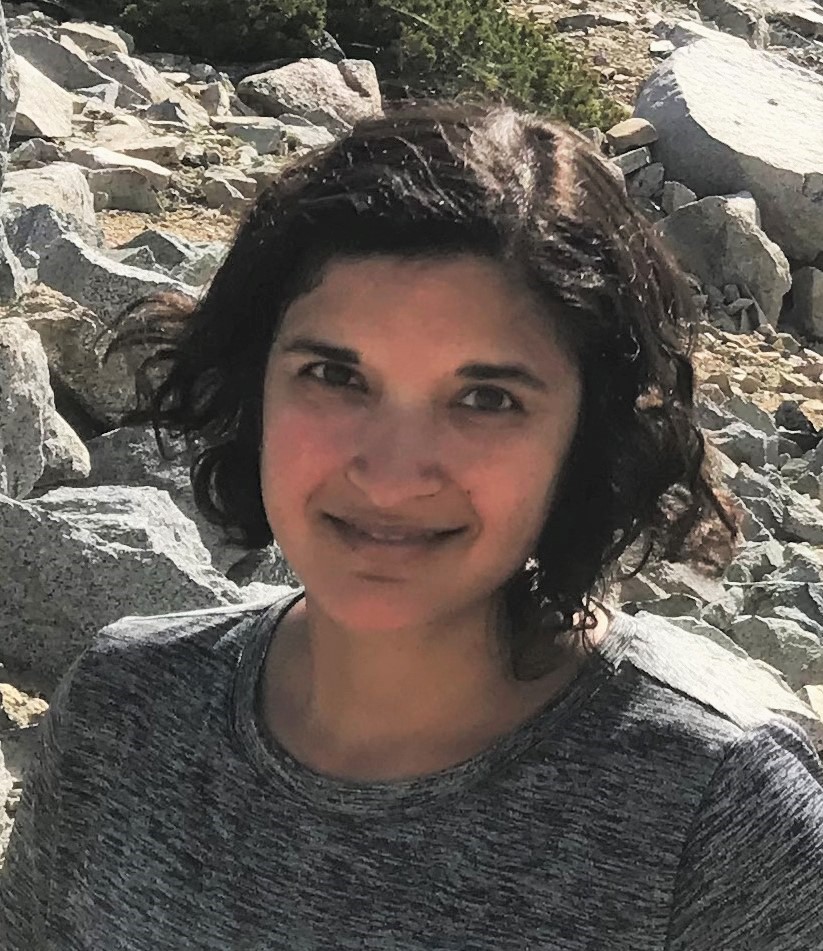 Seema Sheth
Seema Sheth
Assistant Professor
Plant and Microbial Biology
North Carolina State University
www.seemasheth.weebly.com
Start date: January 2018
PhD: Colorado State University; Advisor: Amy Angert.
Postdoc: University of Minnesota; Advisor: Ruth Shaw. Postdoc: UC Berkeley, Advisors: David Ackerly and Bruce Baldwin.
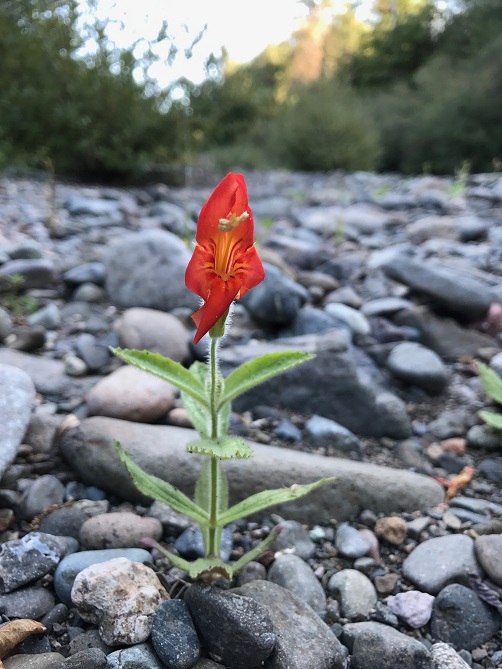
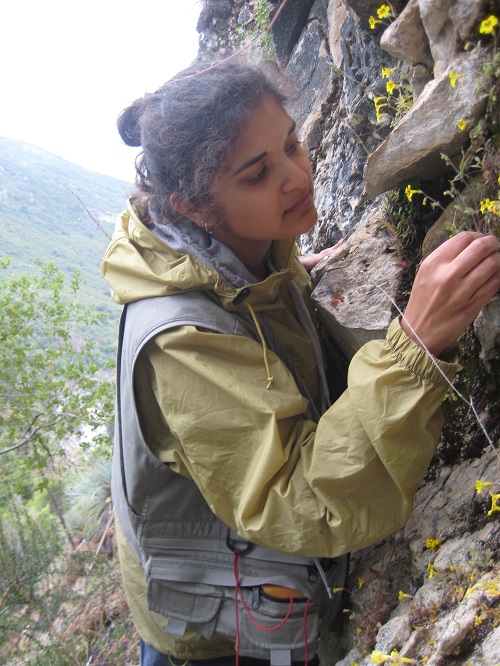
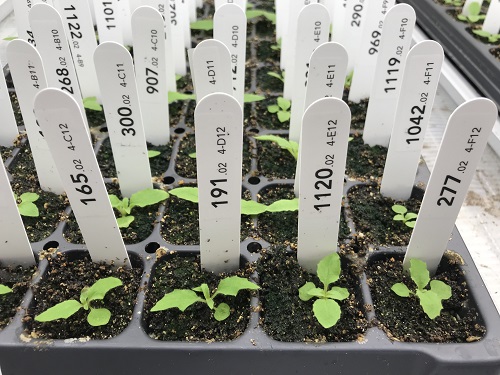
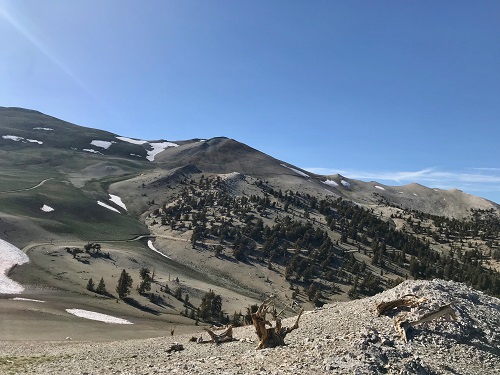
This profile is part of a series of New Faculty Profiles that highlight and introduce up-and-coming PIs in SSE. We invite highlighted faculty to discuss their research, describe how SSE has impacted their career, and share any tips or stories they may have for other researchers.
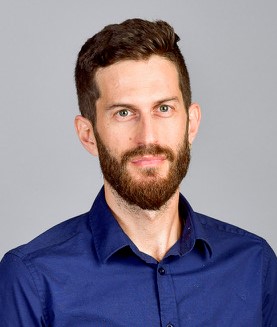 Yoav Ram
Yoav Ram
Senior Lecturer
School of Computer Science
IDC Herzliya
http://www.yoavram.com
Start date: October 2018
PhD: Tel Aviv University; Advisor: Lilach Hadany.
Postdoc: Stanford University; Advisor: Marc Feldman.
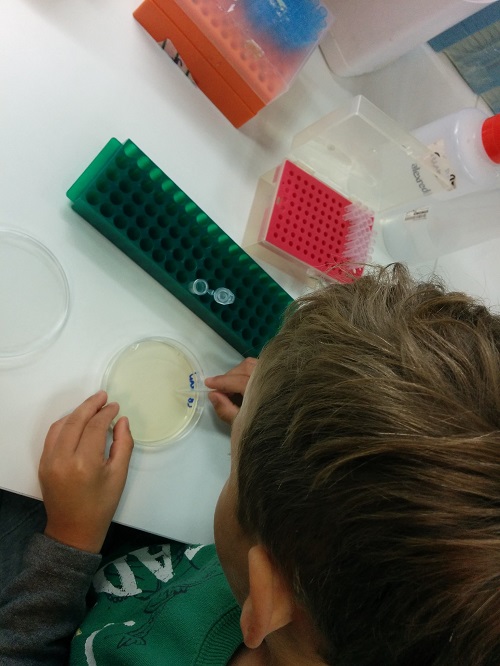
This profile is part of a series of New Faculty Profiles that highlight and introduce up-and-coming PIs in SSE. We invite highlighted faculty to discuss their research, describe how SSE has impacted their career, and share any tips or stories they may have for other researchers.
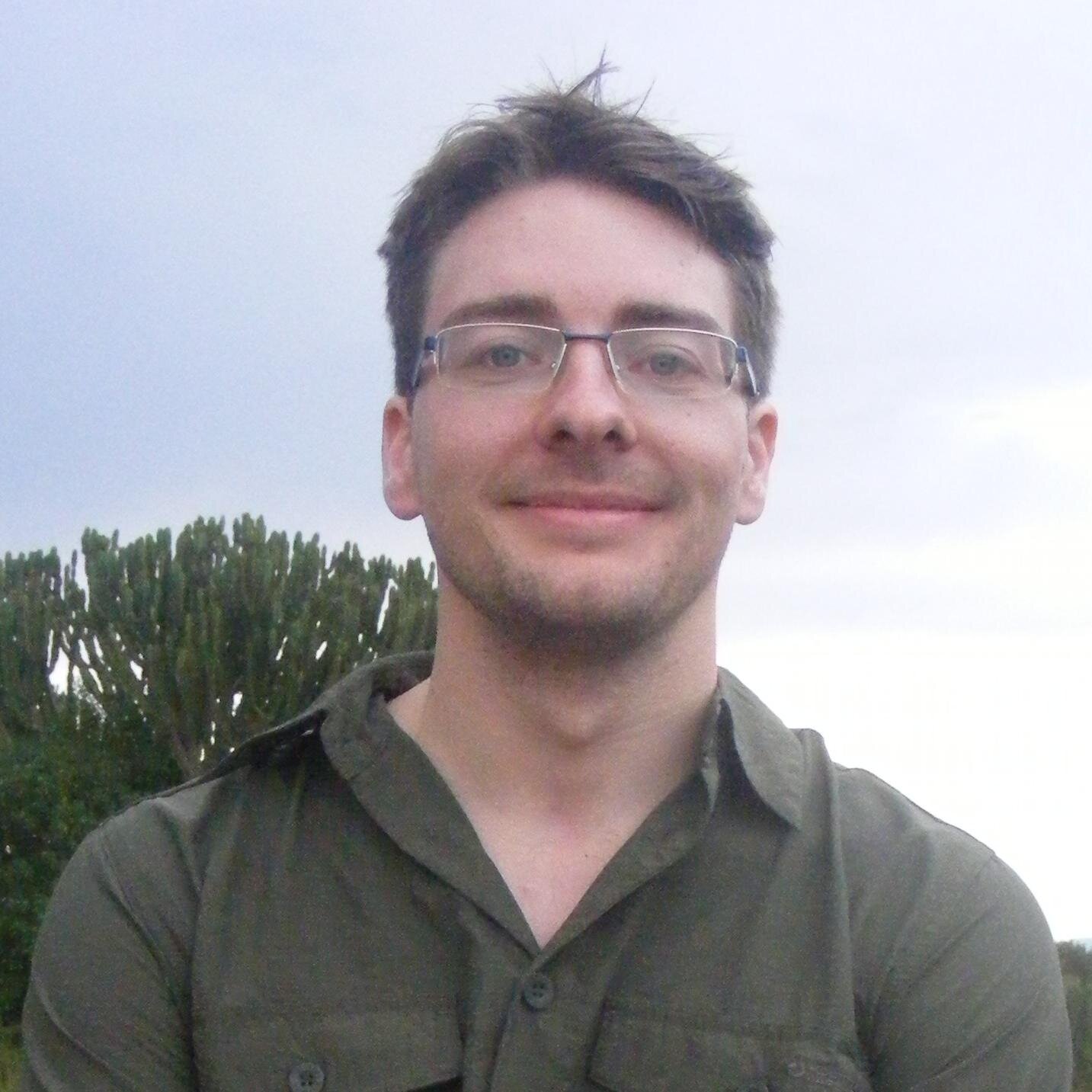 Kevin Arbuckle
Kevin Arbuckle
Lecturer
Department of Biosciences
Swansea University
https://swansea.academia.edu/KevinArbuckle
Start date: October 2016
PhD: University of Liverpool; Advisor: Mike Speed.
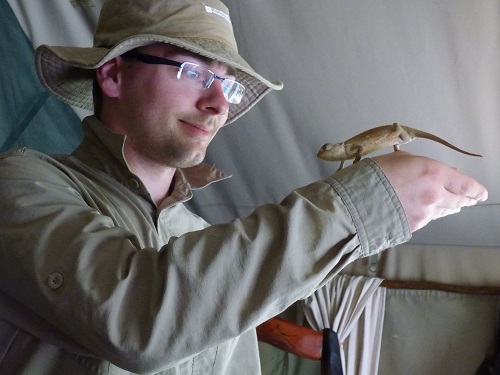
This profile is part of a series of New Faculty Profiles that highlight and introduce up-and-coming PIs in SSE. We invite highlighted faculty to discuss their research, describe how SSE has impacted their career, and share any tips or stories they may have for other researchers.
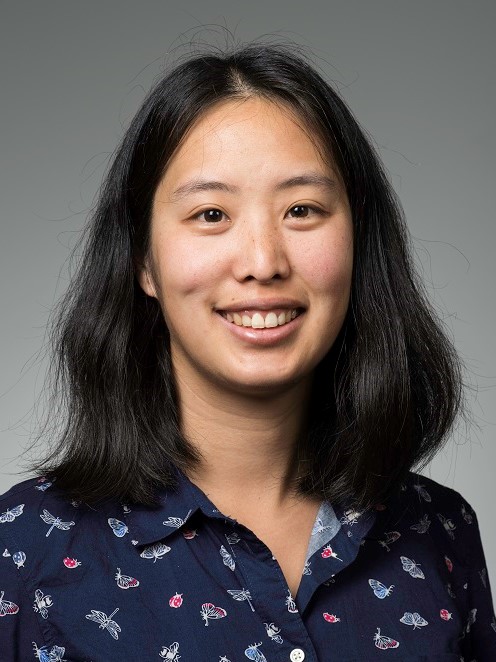 Nancy Chen
Nancy Chen
Assistant Professor
Department of Biology
University of Rochester
https://popgenchenlab.github.io/
Start date: July 2018
PhD: Cornell University; Advisor: Dr. Andrew Clark & Dr. John Fitzpatrick.
Postdoc Cornell University (2014-2015); Advisor: Dr. Andrew Clark & Dr. John Fitzpatrick. University of California, Davis (2015-2018); Dr. Graham Coop.
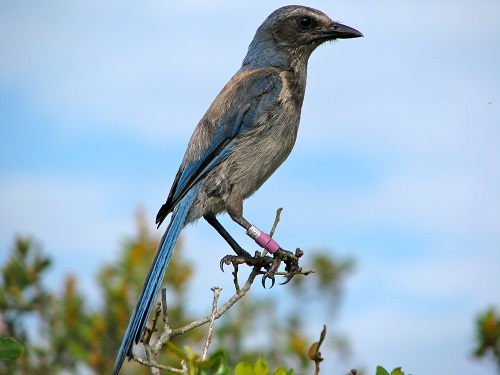
A banded Florida Scrub-Jay from the long-term demographic study at Archbold Biological Station.
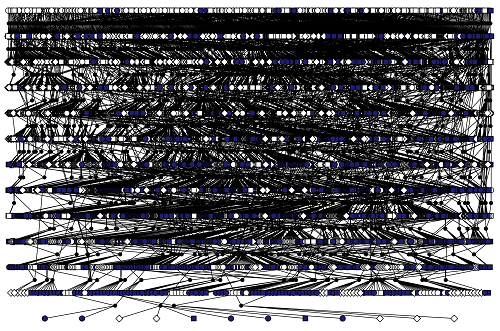
The multigenerational scrub-jay pedigree.
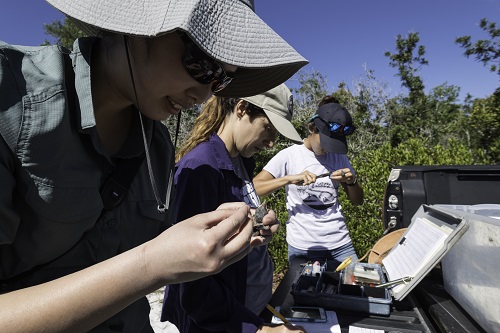
Nancy, Angela Tringali, and Young Ha Suh process 11-day-old nestlings.
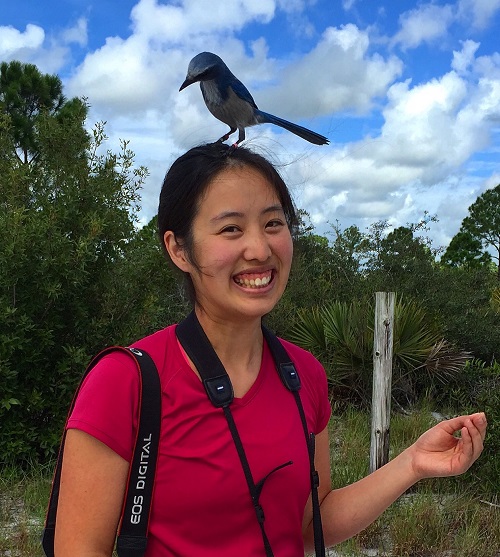
This profile is part of a series of New Faculty Profiles that highlight and introduce up-and-coming PIs in SSE. We invite highlighted faculty to discuss their research, describe how SSE has impacted their career, and share any tips or stories they may have for other researchers.
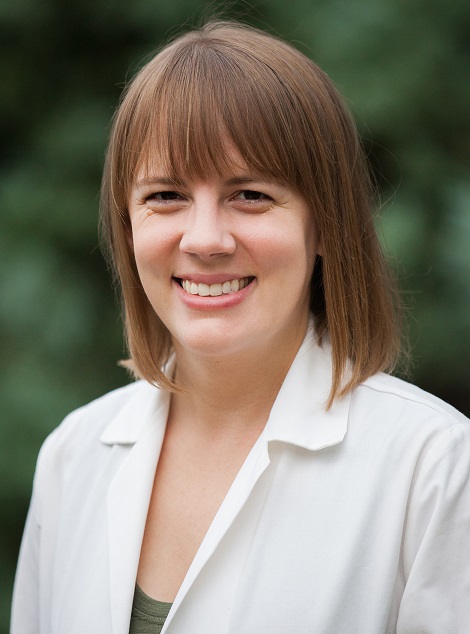 Natalie C. Steinel
Natalie C. Steinel
Assistant Professor
Biological Sciences
University of Massachusetts Lowell
steinellab.com
Start date: September 2018
PhD: University of Pennsylvania, Perelman School of Medicine; Advisor: Craig Bassing.
Postdoc: University of Texas at Austin; Advisor: Daniel Bolnick.
Other position(s): Instructor of Medicine, Dell Medical School, University of Texas at Austin.
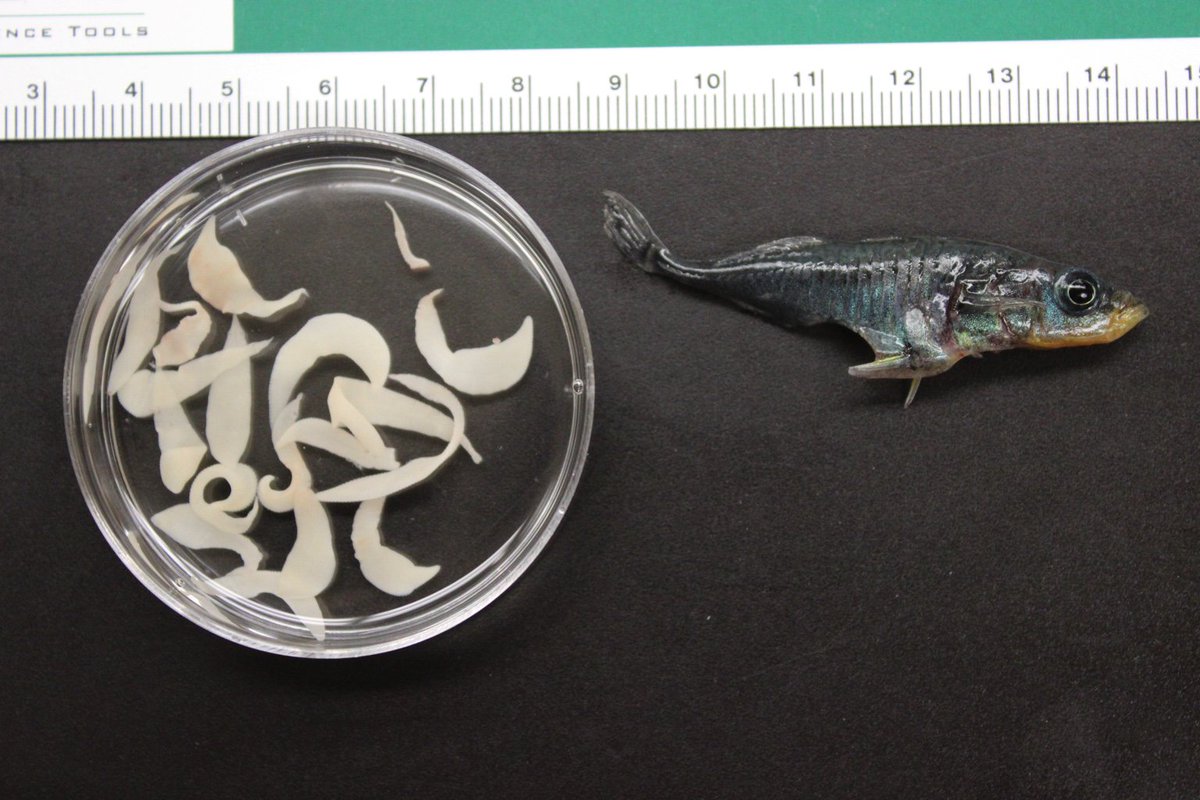
A threespine stickleback that was heavily infected with 20+ Schistocephalus solidus tapeworms.
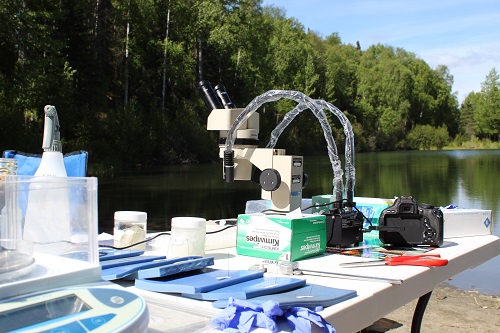
Mobile lab set up on Spirit lake in Alaska. We are studying the evolution of the immune response in recently transplanted wild stickleback populations.
This profile is part of a series of New Faculty Profiles that highlight and introduce up-and-coming PIs in SSE. We invite highlighted faculty to discuss their research, describe how SSE has impacted their career, and share any tips or stories they may have for other researchers.
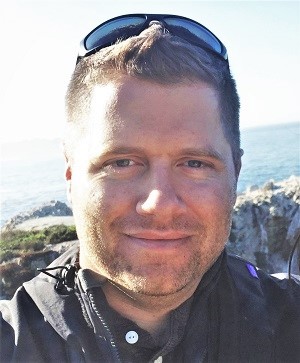 Jonathan Puritz
Jonathan Puritz
Assistant Professor
Biological Sciences
University of Rhode Island
MarineEvoEco.com
Start date: August 2017
PhD: University of Hawaii at Manoa; Advisor: Robert J. Toonen.
Postdocs: Northeastern University; Advisor: Katie E. Lotterhos. Texas A&M University and Texas A&M Corpus Christi; Advisor: John Gold.
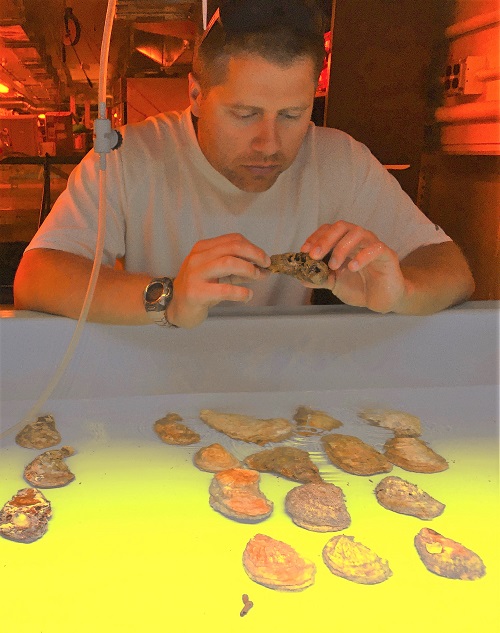
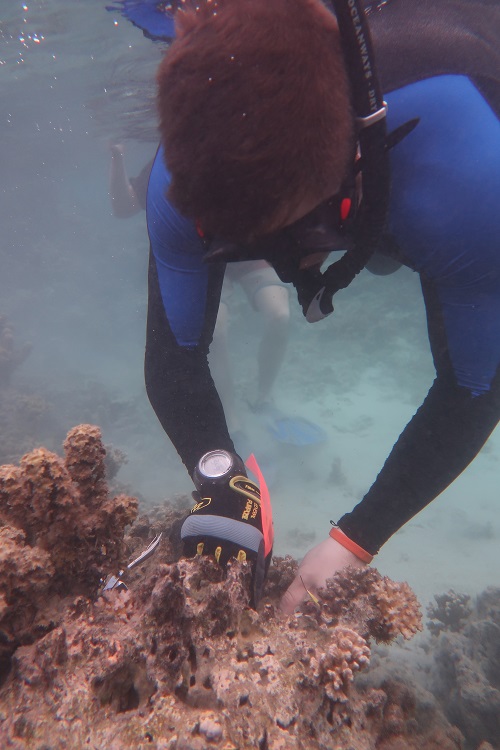
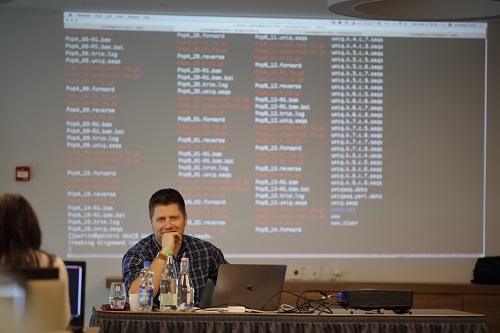
This profile is part of a series of New Faculty Profiles that highlight and introduce up-and-coming PIs in SSE. We invite highlighted faculty to discuss their research, describe how SSE has impacted their career, and share any tips or stories they may have for other researchers.
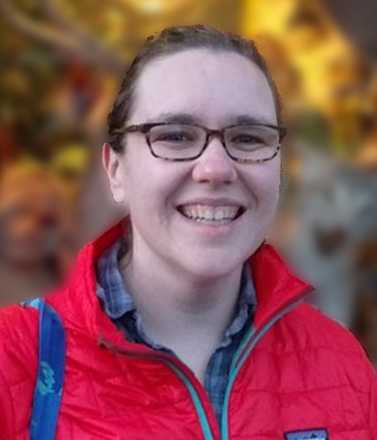 Emily Josephs
Emily Josephs
Assistant Professor
Plant Biology
Michigan State University
http://josephslab.github.io
Start date: January 2019
PhD: University of Toronto; Advisors: John Stinchcombe and Stephen Wright.
Postdoc: University of California, Davis; Advisors: Graham Coop and Jeff Ross-Ibarra.
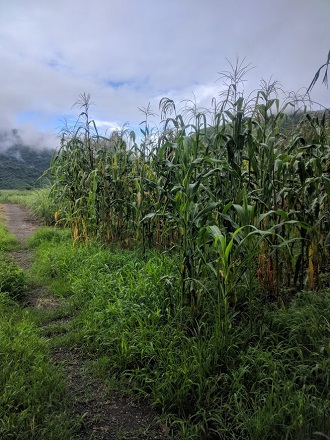
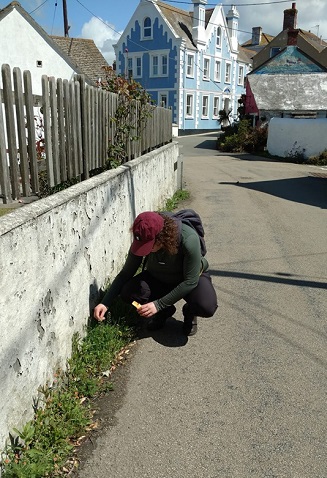
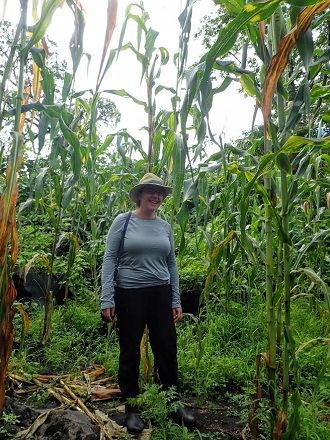
The SSE Education and Outreach Committee is involved in a number of different activities and events. We welcome SSE members interested in serving on the committee or joining one of the following working groups associated with a particular activity or event. To volunteer, please indicate your interest when joining the Society or renewing your membership.
A brief description of each of the activities is below.
Professional Development Workshop for Undergraduate Educators (PDUE)
PDUE was developed to meet the needs of SSE members who are also involved in undergraduate education. The workshop addresses a variety of topics, often with a focus on pedagogy. The workshop is held at the annual Evolution meeting.
Working group members are expected to assist with the following:
Education Symposium
The Education Symposium is a half-day symposium at the annual Evolution meeting for highlighting education-related topics. Working group members are expected to assist with the following:
The Evolution Film Festival is a contest for creative short films about evolution in which the top-ranked films are shown and voted on at the annual Evolution meeting. Working group members will assist Jory Weintraub in organizing and executing the Festival.
Undergraduate Diversity at Evolution (UDE)
UDE is a program for undergraduate students from diverse backgrounds to attend the annual Evolution meeting and includes travel funding, lodging and meeting registration, and participation in various professional development opportunities.
Working group members are expected to assist with the following:
This award named in honor of Darwin's very public supporter T. H. Huxley, was established in 2013 to recognize outreach and education achievement for early and mid career scientists. Winners of this award are provided with support to present on behalf of the Society for the Study of Evolution at the annual meeting of the National Association of Biology Teachers (NABT) as well as $500 for supplies. Working group members are expected to assist with the following:
This program funds local and regional educational outreach activities each year. It is our hope that these projects will lead to ongoing outreach collaboration in future years. Preference will be given to new collaborations, but extensions of previously projects that have evidence of success are allowed. Rob Pennock oversees the grant solicitation and review process together with Sam Scheiner. Working group members are expected to assist with the following:
USA Science and Engineering Festival
SSE participates in this outreach event held in Washington DC every other year. We welcome anyone interested in volunteering. https://usasciencefestival.org/
SSE is aware that historical and modern-day cultural biases as well as lack of diversity in an applicant pool may lead to biases in the allocation of grants, prizes, and awards. Beginning with the 2020 Graduate Research Excellence Grant competitions, SSE will request voluntary demographic information from award applicants in an effort to address bias and promote equity in awarding across multiple axes of diversity.
IMPORTANTLY:
SSE will request information on the following identities:
Starting in 2020 (the first year of implementation), application scores may be used in conjunction with demographic data in a second scoring step. Data are also collected to assess any areas of potential bias in soliciting and distributing awards in these categories, with the possibility of further adjustments to our procedures for advertising, collecting, and evaluating applications and nominations in the future.
DATA PRIVACY STATEMENT: Upon completion of each competition, answers to demographic questions will be anonymized and disassociated with all identifying information. Anonymized responses will be archived in order to analyze the composition of applicant pools over time.
This profile is part of a series of New Faculty Profiles that highlight and introduce up-and-coming PIs in SSE. We invite highlighted faculty to discuss their research, describe how SSE has impacted their career, and share any tips or stories they may have for other researchers.
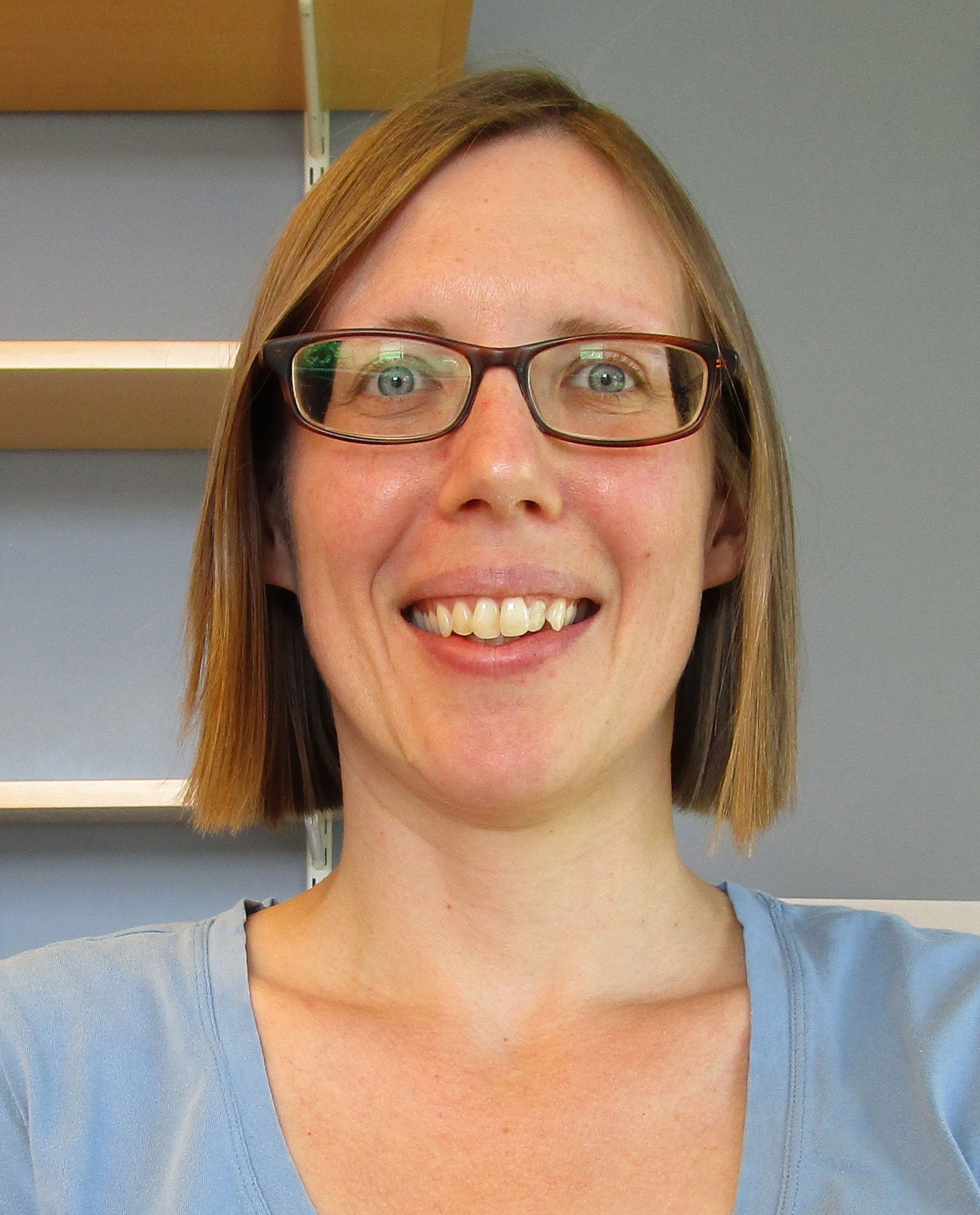 Genevieve Kozak
Genevieve Kozak
Assistant Professor
Biology
University of Massachusetts-Dartmouth
https://kozaklab.weebly.com/
Start date: September 2018
PhD: University of Wisconsin-Madison; Advisor: Dr. Jenny Boughman.
Postdoc: Tufts University; Advisor: Dr. Erik Dopman. Postdoc, University of Illinois Urbana-Champaign, Dr. Becky Fuller.
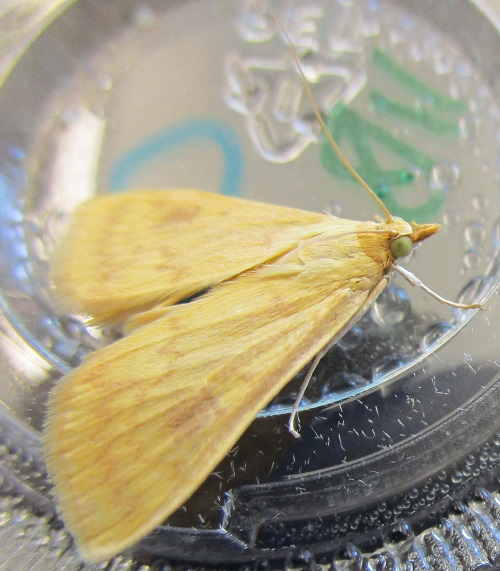
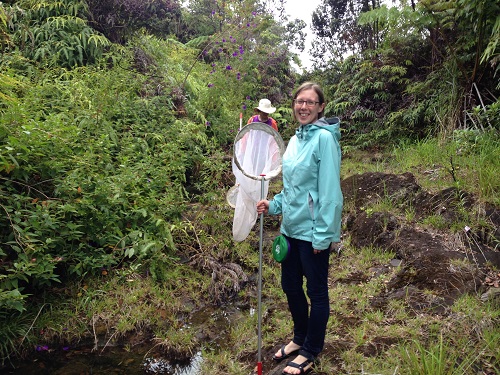
This profile is part of a series of New Faculty Profiles that highlight and introduce up-and-coming PIs in SSE. We invite highlighted faculty to discuss their research, describe how SSE has impacted their career, and share any tips or stories they may have for other researchers.
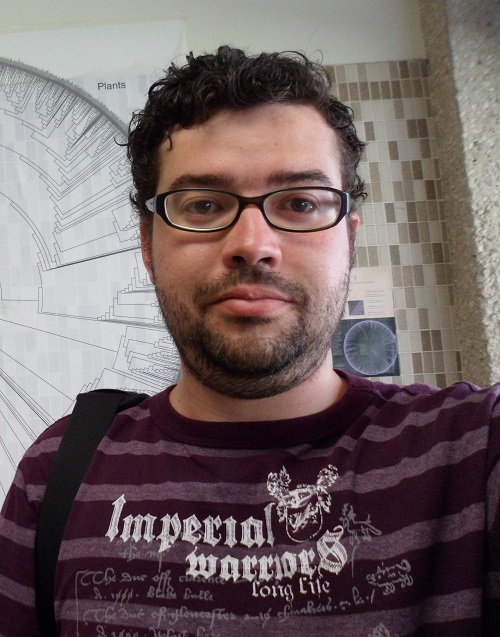 Diogo Borges Provete
Diogo Borges Provete
Assistant Professor
Ecology/Institute of Biosciences
Federal University of Mato Grosso do Sul
http://diogoprovete.weebly.com
Start date: September 2017
Master's advisors: Denise de C. Rossa-Feres and Itamar A. Martins.
PhD: Federal University of Goiás; Advisor: Adriano S. Melo.
Postdoc: Göteborgs Universitet (Sweden) and Federal University of São Carlos at Sorocaba (Brazil); Advisor: Alexandre Antonelli (Sweden) and Fernando R. da Silva (Brazil).
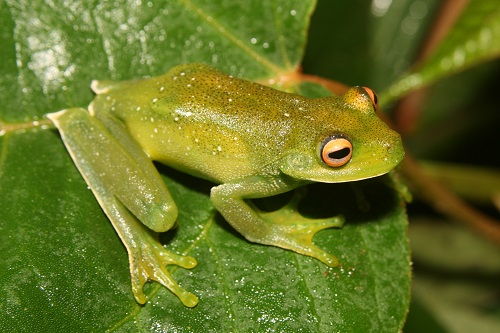
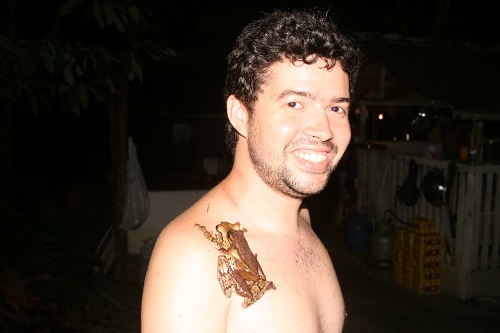
This profile is part of a series of New Faculty Profiles that highlight and introduce up-and-coming PIs in SSE. We invite highlighted faculty to discuss their research, describe how SSE has impacted their career, and share any tips or stories they may have for other researchers.
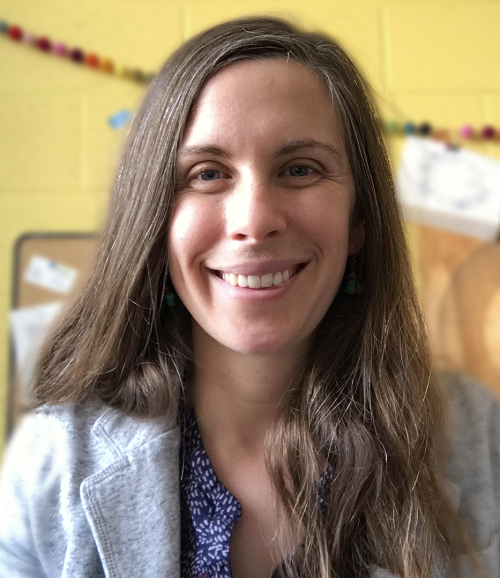 Marjorie Gail Weber
Marjorie Gail Weber
Assistant Professor
Department of Plant Biology & Ecology, Evolutionary Biology, & Behavior Program
Michigan State University
http://www.theweberlab.com/
Start date: August 2016
PhD: Cornell University; Advisor: Anurag Agrawal.
Postdoc: University of California, Davis; Advisor: I had a programmatic fellowship (the CPB Postdoctoral fellowship) with three co-sponsors: Sharon Strauss, Santiago Ramirez, Peter Wainwright.
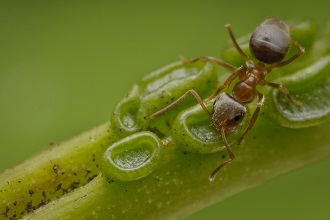
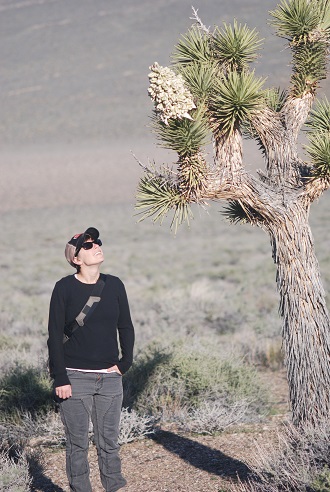
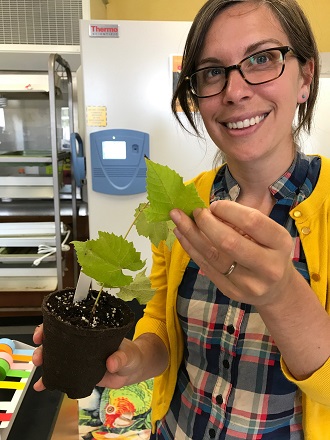
This profile is part of a series of New Faculty Profiles that highlight and introduce up-and-coming PIs in SSE. We invite highlighted faculty to discuss their research, describe how SSE has impacted their career, and share any tips or stories they may have for other researchers.
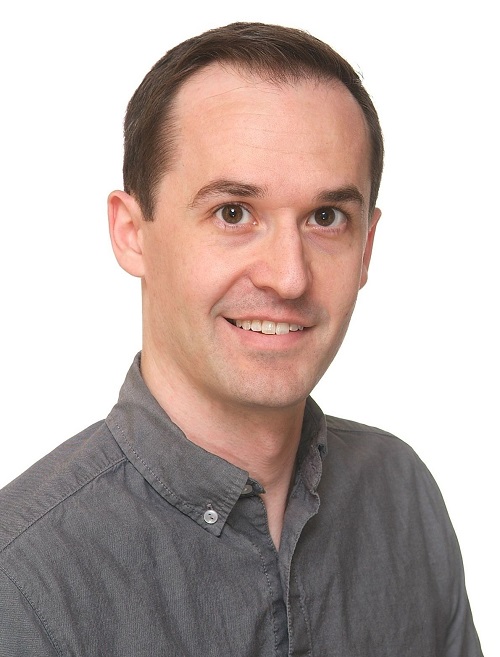 Nathaniel Sharp
Nathaniel Sharp
Assistant Professor
Genetics Department
University of Wisconsin-Madison
https://sharp.genetics.wisc.edu
Start date: February, 2019
PhD: University of Toronto; Advisor: Aneil Agrawal.
Postdoc: University of British Columbia; Advisor: Sally Otto and Mike Whitlock.
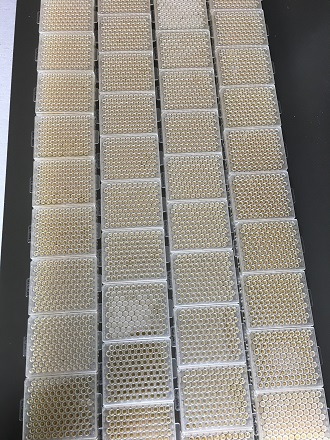
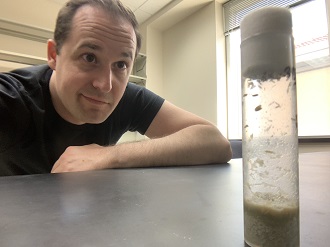
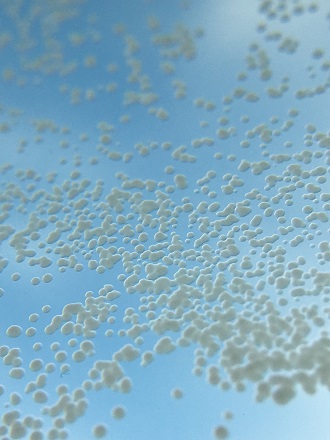
This profile is part of a series of New Faculty Profiles that highlight and introduce up-and-coming PIs in SSE. We invite highlighted faculty to discuss their research, describe how SSE has impacted their career, and share any tips or stories they may have for other researchers.
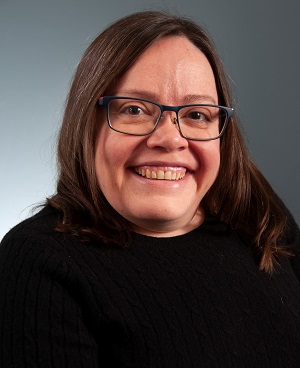 Vanessa Koelling
Vanessa Koelling
Assistant Professor
Biology and Environmental Science
Auburn University at Montgomery
http://www.sciences.aum.edu/profile?email=vkoellin@aum.edu
Start date: August 2018
PhD: University of Georgia; Advisor: Rodney Mauricio.
Postdoc: University of Kansas; Advisor: John Kelly.
Other position(s): Visiting Assistant Professor at the University of Puget Sound.
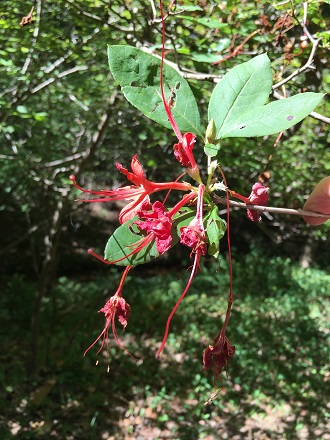
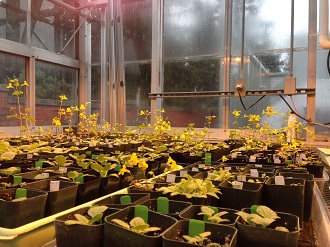
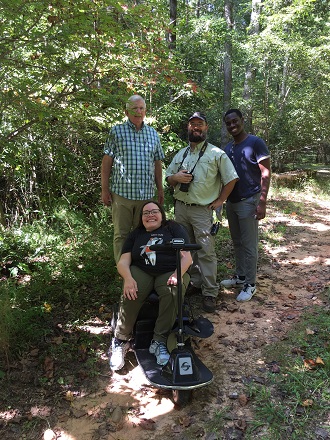
This profile is part of a series of New Faculty Profiles that highlight and introduce up-and-coming PIs in SSE. We invite highlighted faculty to discuss their research, describe how SSE has impacted their career, and share any tips or stories they may have for other researchers.
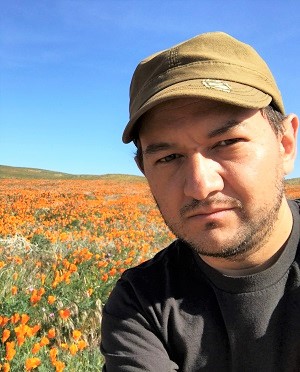 Felipe Zapata
Felipe Zapata
Assistant Professor
Department of Ecology and Evolutionary Biology
University of California, Los Angeles (UCLA)
www.zapatalab.org
Start date: September 2016
PhD: University of Missouri-St. Louis; Advisor: Peter Stevens and Elizabeth (Toby) Kellogg.
Postdocs: Brown University; Advisor: Casey Dunn. UC Berkeley; Advisor: Paul Fine.
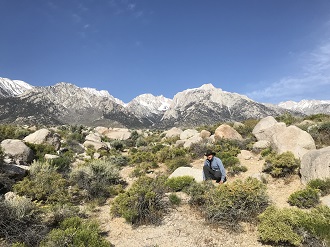
The Lifetime Achievement Award was created to recognize individuals who have made substantial contributions to the study of evolution, who have demonstrated outstanding mentorship of trainees, and/or who have provided noteworthy service to the evolution community.

SSE Council is pleased to announce the recipient of the 2025 Lifetime Achievement Award, Dr. Naomi Pierce!
Naomi Pierce is the Hessel Professor of Biology and Curator of Lepidoptera in the Museum of Comparative Zoology at Harvard University. Her work focuses on the evolution of species interactions, and features a broad range of taxa, including plants, microbes, fungi, and many insect species, especially those that associate symbiotically with ants. Her research combines field work (mainly in Asia, Australia, and Kenya) with laboratory analysis. To make sense of behavioral and ecological information, Pierce has long championed an evolutionary approach, and has accordingly been a core contributor to attempts to reconstruct the phylogeny of major groups of insects, including ants, bees and butterflies. This research has been facilitated by the extensive collections held at Harvard's Museum of Comparative Zoology, including tens of thousands of specimens that Pierce and her students have deposited there as part of their work. Her approach is characterized by an old-fashioned appreciation of natural history analyzed using state-of-the-art molecular and ecological tools. Over her long teaching career at Oxford, Princeton, and Harvard, Pierce has mentored and trained hundreds of undergraduates, PhD students and postdoctoral fellows from around the world.
Dr. Pierce will present her work in the Lifetime Achievement Award talk at the 2026 Evolution meeting.
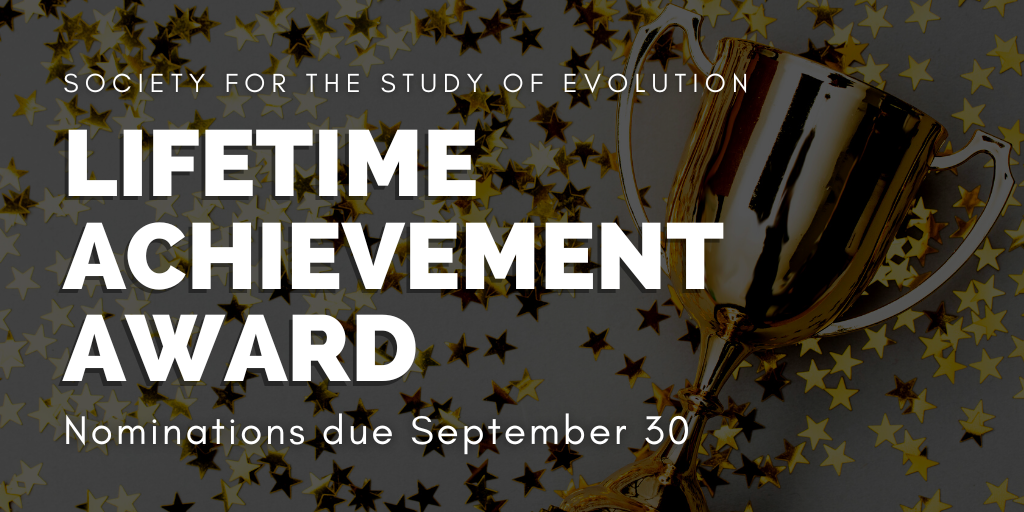
About
The Lifetime Achievement Award recognizes individuals who have made substantial contributions to the study of evolution through conceptual advances, impactful publications, and/or outreach/education. Individuals who have demonstrated outstanding mentorship of trainees, provided noteworthy service to the evolution community, and/or contributed to the diversity and inclusion of the field will also be recognized. The awardee will be presented at the 2025 Evolution meeting. Travel to the meeting, meeting registration, and accommodations during the meeting will be covered by SSE to facilitate attendance. Recipients of this award will be invited to submit an accompanying article to Evolution (primary research, review, insight or commentary, fast-tracked through review and made freely available) within two months of the conference. Published articles would highlight the award obtained.
Nomination Instructions
Complete the form below with your name, the nominee’s name, and two short descriptions of the nominee’s contributions to the field and community. You will also be asked if you would be willing to provide a longer and more detailed nomination letter at a later date. SSE values the contributions of diverse researchers and encourages nominators to consider all potential mentors and colleagues. Self-nominations are welcome. Please submit your nomination by September 30, 2024.
DEADLINE: September 30, 2024
 Dr. Ruth Shaw was selected for her fundamental empirical and conceptual contributions to evolutionary biology and her commitment to SSE. Dr. Shaw has developed foundational methods for statistical inferences about fitness in natural populations. She has implemented these methods in the field to assess fitness in natural populations, such as in The Echinacea Project, studying the long-lived Echinacea angustifolia to evaluate the consequences of habitat fragmentation in tallgrass prairie. Dr. Shaw has also advanced understanding of the fitness effects of de novo mutations, capacity for ongoing evolutionary adaptation, and geographic scale of adaptation in wild populations. Dr. Shaw has served in numerous roles in SSE since 1991, most recently as President in 2020. Watch Dr. Shaw's award talk at Evolution 2024.
Dr. Ruth Shaw was selected for her fundamental empirical and conceptual contributions to evolutionary biology and her commitment to SSE. Dr. Shaw has developed foundational methods for statistical inferences about fitness in natural populations. She has implemented these methods in the field to assess fitness in natural populations, such as in The Echinacea Project, studying the long-lived Echinacea angustifolia to evaluate the consequences of habitat fragmentation in tallgrass prairie. Dr. Shaw has also advanced understanding of the fitness effects of de novo mutations, capacity for ongoing evolutionary adaptation, and geographic scale of adaptation in wild populations. Dr. Shaw has served in numerous roles in SSE since 1991, most recently as President in 2020. Watch Dr. Shaw's award talk at Evolution 2024.
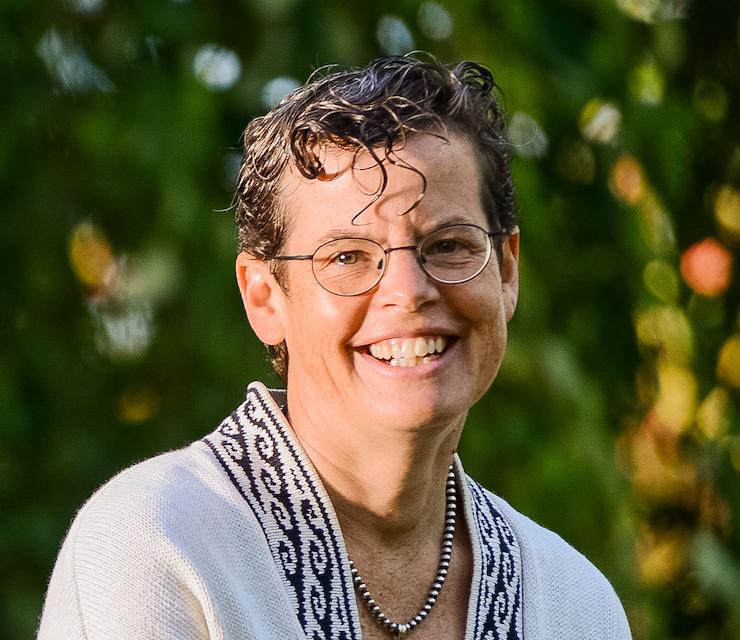 Dr. Sarah "Sally" Otto was selected for her countless important contributions to evolutionary biology as a researcher, mentor, educator, and activist. As an outstanding researcher, Dr. Otto’s empirical and theoretical work on the evolution of ploidy, sex, and recombination has moved the field forward. As a mentor and educator, she has provided rigorous and accessible training to the next generation of biologists. As a member of the scientific community and citizen of the world, she has served in leadership roles for several scientific societies (the American Society of Naturalists (ASN), the European Society for Evolutionary Biology, the American Genetic Association, and SSE), co-founded the Canadian Society of Ecology and Evolution, and directs the Liber Ero Fellowship Program. At every level, Dr. Otto has worked towards bettering the environment—scientifically and globally, individually and collaboratively. Her achievements have been recognized with a number of awards (including the Darwin-Wallace Medal from the Linnean Society, the Sewall Wright Award from ASN, the MacArthur Foundation "genius grant", National Academy of Sciences membership, and Fellow of the Royal Society of Canada), and we are delighted to honor her with the Lifetime Achievement Award for 2023. Watch Dr. Otto's award talk at Evolution 2023.
Dr. Sarah "Sally" Otto was selected for her countless important contributions to evolutionary biology as a researcher, mentor, educator, and activist. As an outstanding researcher, Dr. Otto’s empirical and theoretical work on the evolution of ploidy, sex, and recombination has moved the field forward. As a mentor and educator, she has provided rigorous and accessible training to the next generation of biologists. As a member of the scientific community and citizen of the world, she has served in leadership roles for several scientific societies (the American Society of Naturalists (ASN), the European Society for Evolutionary Biology, the American Genetic Association, and SSE), co-founded the Canadian Society of Ecology and Evolution, and directs the Liber Ero Fellowship Program. At every level, Dr. Otto has worked towards bettering the environment—scientifically and globally, individually and collaboratively. Her achievements have been recognized with a number of awards (including the Darwin-Wallace Medal from the Linnean Society, the Sewall Wright Award from ASN, the MacArthur Foundation "genius grant", National Academy of Sciences membership, and Fellow of the Royal Society of Canada), and we are delighted to honor her with the Lifetime Achievement Award for 2023. Watch Dr. Otto's award talk at Evolution 2023.
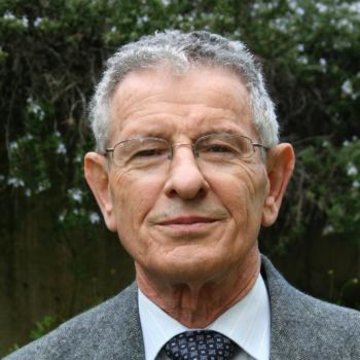 Dr. Marcus Feldman is the Burnet C. and Mildred Finley Wohlford Professor of Biology, founder and director of the Morrison Institute for Population and Resource Studies, and co-director of the Center for Computational, Evolutionary and Human Genomics at Stanford University. His innovative research has contributed to our understanding of the evolution of recombination and sex, human population genetics, niche construction, and evolutionary theory. With Dr. Luca Cavalli-Sforza, Dr. Feldman also developed a new field termed cultural evolution, which studies how genetic and cultural variation can interact and affect one another. Over the course of his career, he has mentored numerous trainees, from high school students to postdocs, and was awarded the Allan V. Cox Medal for Fostering Undergraduate Research at Stanford and the Stanford Biosciences Excellence in Mentoring and Service Award. In 1970, he co-founded the journal Theoretical Population Biology. He was also the Editor of The American Naturalist from 1984 to 1990. Dr. Feldman was named the Dan David Laureate in Evolution in 2011, and received the Motoo Kimura Prize in Human Evolution in 2016.
Dr. Marcus Feldman is the Burnet C. and Mildred Finley Wohlford Professor of Biology, founder and director of the Morrison Institute for Population and Resource Studies, and co-director of the Center for Computational, Evolutionary and Human Genomics at Stanford University. His innovative research has contributed to our understanding of the evolution of recombination and sex, human population genetics, niche construction, and evolutionary theory. With Dr. Luca Cavalli-Sforza, Dr. Feldman also developed a new field termed cultural evolution, which studies how genetic and cultural variation can interact and affect one another. Over the course of his career, he has mentored numerous trainees, from high school students to postdocs, and was awarded the Allan V. Cox Medal for Fostering Undergraduate Research at Stanford and the Stanford Biosciences Excellence in Mentoring and Service Award. In 1970, he co-founded the journal Theoretical Population Biology. He was also the Editor of The American Naturalist from 1984 to 1990. Dr. Feldman was named the Dan David Laureate in Evolution in 2011, and received the Motoo Kimura Prize in Human Evolution in 2016.
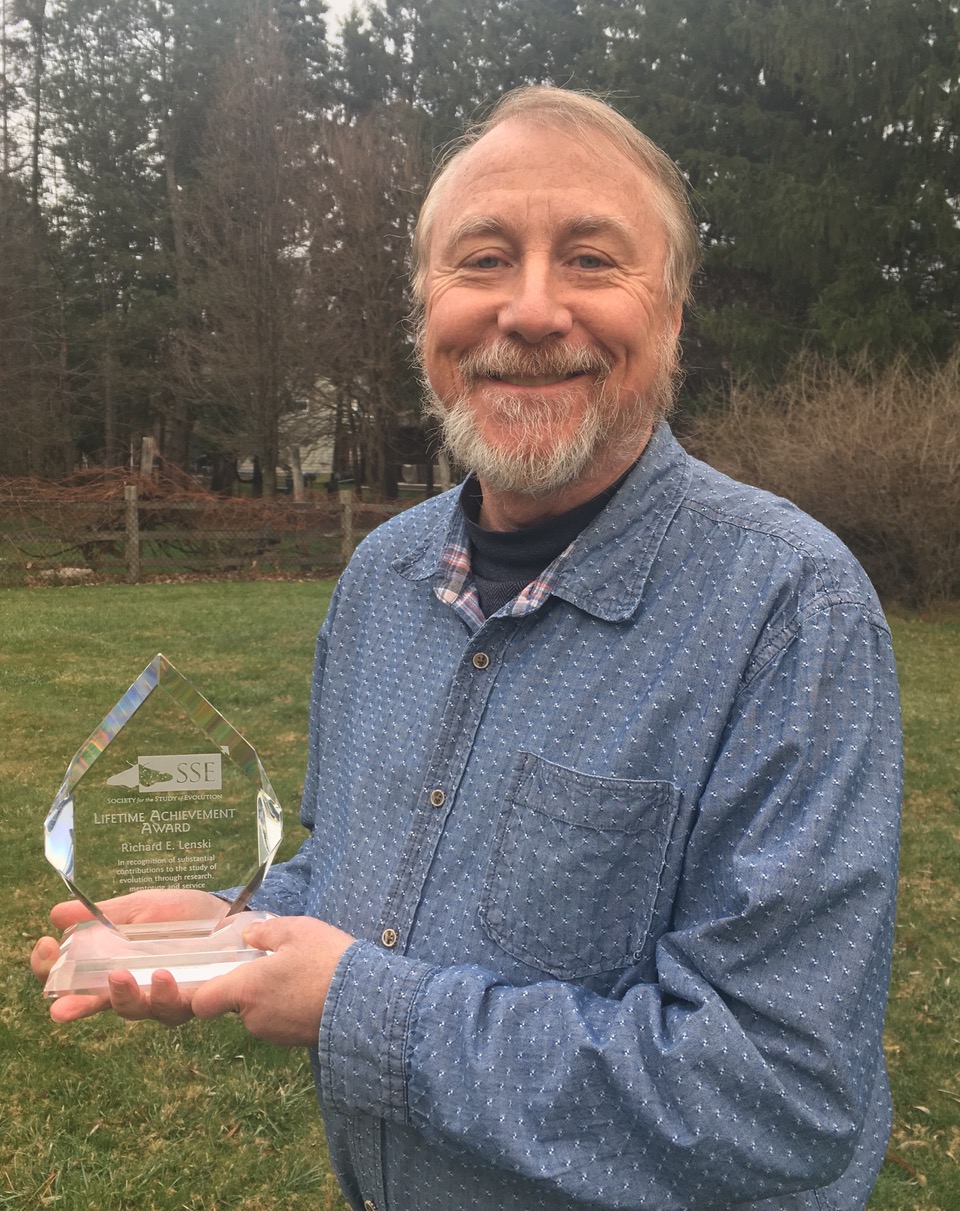 Dr. Richard E. Lenski is the John Hannah Distinguished Professor of Microbial Ecology at Michigan State University (MSU). For more than 30 years, he has directed one of the most significant experiments in evolutionary biology, the E. coli Long Term Evolution Experiment (LTEE). He is one of the founding members of the BEACON Center for the Study of Evolution in Action at MSU, and today serves on its executive committee. Dr. Lenski has previously received a Guggenheim Fellowship and a MacArthur Fellowship, and has been elected to the American Academy of Microbiology, the European Molecular Biology Organization, the American Academy of Arts and Sciences, and the National Academy of Sciences. In addition to his outstanding research contributions, he is known for being an exceptional mentor and role model for up and coming evolutionary biologists. He also served the community as President of SSE in 2013.
Dr. Richard E. Lenski is the John Hannah Distinguished Professor of Microbial Ecology at Michigan State University (MSU). For more than 30 years, he has directed one of the most significant experiments in evolutionary biology, the E. coli Long Term Evolution Experiment (LTEE). He is one of the founding members of the BEACON Center for the Study of Evolution in Action at MSU, and today serves on its executive committee. Dr. Lenski has previously received a Guggenheim Fellowship and a MacArthur Fellowship, and has been elected to the American Academy of Microbiology, the European Molecular Biology Organization, the American Academy of Arts and Sciences, and the National Academy of Sciences. In addition to his outstanding research contributions, he is known for being an exceptional mentor and role model for up and coming evolutionary biologists. He also served the community as President of SSE in 2013.
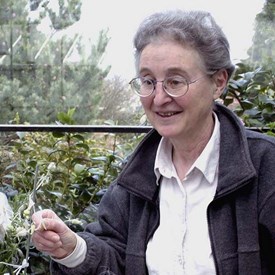 Dr. Deborah Charlesworth has been a key champion for the field of evolutionary biology. Her wide-ranging work has led to crucial insights into some of the most important outstanding evolutionary questions. She has also shown a tireless commitment to mentorship and encouragement of young scientists in evolutionary biology as an exemplary mentor and role model. Furthermore, she has served the evolution community as president of both the Society for Molecular Biology and Evolution and the European Society for Evolutionary Biology.
Dr. Deborah Charlesworth has been a key champion for the field of evolutionary biology. Her wide-ranging work has led to crucial insights into some of the most important outstanding evolutionary questions. She has also shown a tireless commitment to mentorship and encouragement of young scientists in evolutionary biology as an exemplary mentor and role model. Furthermore, she has served the evolution community as president of both the Society for Molecular Biology and Evolution and the European Society for Evolutionary Biology.
For more on Dr. Charlesworth's work, see "When and how do sex-linked regions become sex chromosomes?" (Charlesworth, 2021) and "Deborah Charlesworth, winner of the society for the study of evolution's inaugural lifetime achievement award: Evolutionary biology for the genomics era" (Wright, 2021).
This profile is part of a series of New Faculty Profiles that highlight and introduce up-and-coming PIs in SSE. We invite highlighted faculty to discuss their research, describe how SSE has impacted their career, and share any tips or stories they may have for other researchers.
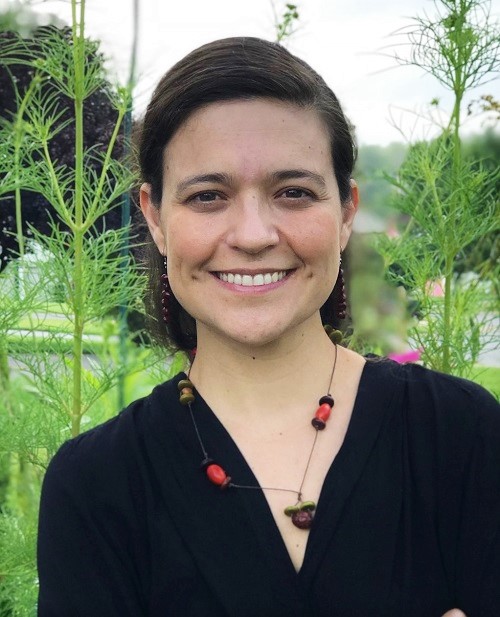 Margarita Lopez-Uribe
Margarita Lopez-Uribe
Assistant Professor
Entomology
Penn State University
https://lopezuribelab.com/
Start date: October 2016
PhD: Cornell University; Advisor: Bryan Danforth.
Postdoc: NC State University; Advisor: Rob Dunn, David Tarpy, Steve Frank.
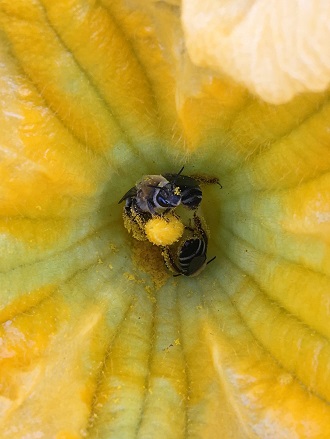
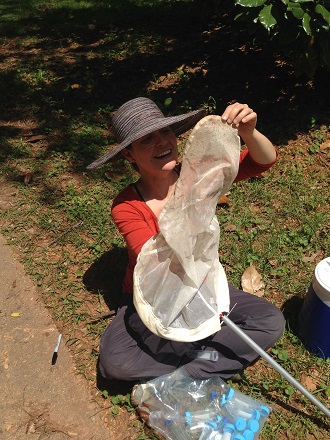
This profile is part of a series of New Faculty Profiles that highlight and introduce up-and-coming PIs in SSE. We invite highlighted faculty to discuss their research, describe how SSE has impacted their career, and share any tips or stories they may have for other researchers.
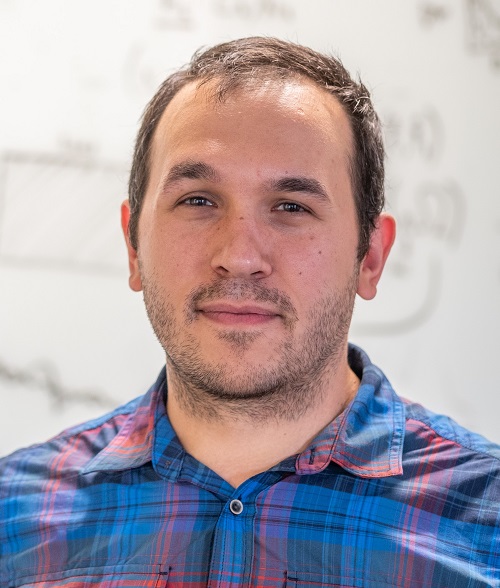 Gideon Bradburd
Gideon Bradburd
Assistant Professor
Integrative Biology
Michigan State University
genescape.org
Start date: August 2017
PhD: UC Davis; Advisor: Graham Coop and Brad Shaffer.
Postdoc: UC Berkeley; Advisor: Michael Nachman and Bree Rosenblum.

2024 IDEA Award Winner: Dr. Jeremy Yoder
Congratulations to the recipient of the 2024 IDEA Award, Dr. Jeremy Yoder!
Dr. Yoder was selected for his foundational work recognizing, celebrating, and promoting the inclusion of LGBTQ+ professionals in STEM fields. In 2013, he spearheaded a large-scale study with the nonprofit Out to Innovate to survey more than 1,400 LGBTQA researchers around the world about their experiences in STEM fields. This work produced three papers which together have been cited almost 300 times, have inspired new projects and research, and are used as educational resources. Yoder has presented seminars on inclusion on LGBTQ inclusion and experiences in STEM, and served on panels to review policies for the advancement of LGBTQ+ people in STEM careers. In 2024, he spoke about his career studying Joshua trees in the Story Collider event at the annual Evolution meeting, where he previously helped organize LGBTQ+ meetups and mixers for several years. Learn more about his work on his lab website.
Dr. Yoder will present his work during the IDEA Award Plenary at the in-person portion of the Evolution 2025 meeting in Athens, GA in June 2025. This event will also be live-streamed for all meeting registrants.
ABOUT | ELIGIBILITY | SUBMIT A NOMINATION | EVALUATION CRITERIA | AWARD | PAST RECIPIENTS
The American Society of Naturalists, the Society for the Study of Evolution, and the Society of Systematic Biologists announce the call for nominations for the ASN/SSE/SSB Inclusiveness, Diversity, Equity, and Access (IDEA) Award. The IDEA Award will be given to a person at any career stage who has strengthened the ecology and evolutionary biology community by promoting inclusiveness and diversity in our fields. The award can also be presented to a group. The recipient(s) will be invited to present a plenary lecture at the annual Evolution meeting. Each recipient will also receive a plaque and a $1000 honorarium (shared among recipients if more than one).
No contemporary officer, editor, member of diversity committee, or meeting organizer of the three societies is eligible for the award. Membership in any of the three societies is not required to nominate someone or be nominated for this award.
Nominations should be submitted by October 25, 2024.
Nomination packages should include:
We welcome re-submissions (with or without updates) of previous nominees who were not selected for the award.
Please contact committee chair Jessica Light at jessica.light [at] ag.tamu.edu with any questions.
Or click here to access the application.
The committee will consider the following criteria while evaluating nominations:
Successful nominees need not excel in all categories. The award has previously been made to the founders of new groups as well as career DEI professionals.
The recipient(s) will be invited to present a plenary lecture at the annual Evolution meeting. Each recipient will also receive a plaque and a $1000 honorarium (shared among recipients if more than one).
2023: Corey Welch
Congratulations to the recipient of the 2023 IDEA Award, Dr. Corey Welch! Dr. Welch was selected for his wide range of work to broaden participation of students and professionals from diverse backgrounds in all areas of STEM. Using the latest research on student success and his training in vertebrate ecology and evolution, he established and now directs an award-winning undergraduate training program, the STEM Scholars Program at Iowa State University. During his work with the Society for the Advancement of Chicanos/Hispanics and Native Americans in Science (SACNAS), where he served on the board of directors for six years, Dr. Welch launched an ongoing mentoring program at the society’s annual meeting and has served as a facilitator for the Linton-Poodry SACNAS Leadership Institutes. In addition to this work, Dr. Welch has led more than 40 seminars and presentations, mainly at biology and EEB departments, on how to improve DEI in STEM. Most recently, Dr. Welch founded the Sharon Farr Welch Northern Cheyenne Tribal Scholarship program for students from his own Northern Cheyenne community to pursue higher education.
Dr. Corey Welch presented his work during the IDEA Award Plenary at the in-person portion of the Evolution 2024 meeting.
2022: Suchinta Arif and Melanie Duc Bo Massey
Congratulations to the recipients of the 2022 IDEA Award, PhD candidates Suchinta Arif and Melanie Duc Bo Massey, cofounders of the scientific outreach organization Diversity of Nature (DoN). Arif and Massey founded Diversity of Nature at Dalhousie University (Nova Scotia, Canada) in 2020. DoN is specifically designed to be led by BIPOC scientists and aimed at BIPOC youth, with the goal of increasing BIPOC representation in the natural sciences. DoN’s array of inclusive programming includes panels, workshops, and an annual field camp, all free of charge to participants. Arif and Massey have also led publications on actionable guidance for supporting and retaining underrepresented students in evolution and ecology and accrued impressive portfolios of additional teaching, outreach, and DEI-related activities. Thank you Suchinta and Melanie for your dedication to increasing BIPOC representation in the natural sciences!
2021: Adriana Briscoe
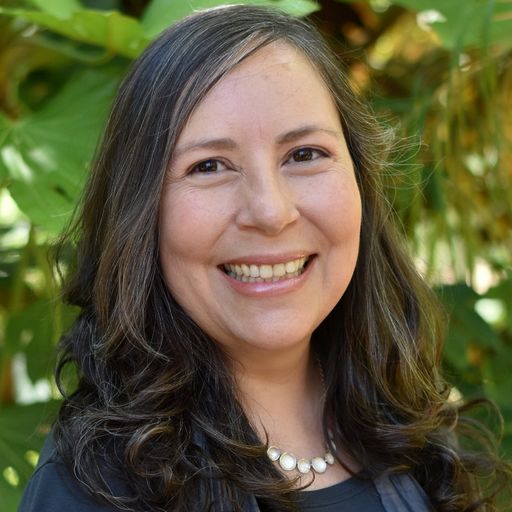 Congratulations to Dr. Adriana Briscoe, recipient of the second annual ASN/SSE/SSB Inclusiveness, Diversity, Equity, and Access (IDEA) Award. Over her entire career, Dr. Briscoe has shown a commitment to diversity, equity and inclusion that has resulted in the recruitment and retention of diverse scientists in the evolution workforce at all professional levels. Dr. Briscoe also contributes to international inclusion, regularly publishing research with co-authors from global south countries. Her DEI work also includes published scholarship and popular media related to her outreach. Dr. Briscoe has also been recognized for her research excellence and contributions to education by the largest STEM diversity organization in the country, the Society for the Advancement of Chicanos/Hispanics and Native Americans in Science (SACNAS). Thank you to Dr. Briscoe for your commitment and contributions to the community!
Congratulations to Dr. Adriana Briscoe, recipient of the second annual ASN/SSE/SSB Inclusiveness, Diversity, Equity, and Access (IDEA) Award. Over her entire career, Dr. Briscoe has shown a commitment to diversity, equity and inclusion that has resulted in the recruitment and retention of diverse scientists in the evolution workforce at all professional levels. Dr. Briscoe also contributes to international inclusion, regularly publishing research with co-authors from global south countries. Her DEI work also includes published scholarship and popular media related to her outreach. Dr. Briscoe has also been recognized for her research excellence and contributions to education by the largest STEM diversity organization in the country, the Society for the Advancement of Chicanos/Hispanics and Native Americans in Science (SACNAS). Thank you to Dr. Briscoe for your commitment and contributions to the community!
2020: Scott Edwards and Richard Kliman
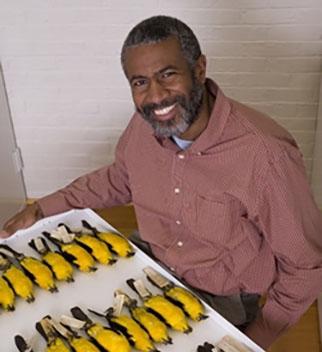
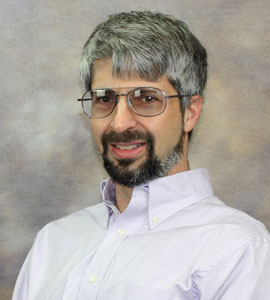 The recipients of the inaugural IDEA Award were Dr. Scott Edwards and Dr. Richard Kliman. Dr. Edwards and Dr. Kliman were selected for their steadfast commitment to increasing diversity, equity, and inclusion of underrepresented minorities in evolutionary biology. In 2001, they started the Undergraduate Diversity at Evolution (UDE) program to provide funding and mentorship for students to attend the annual Evolution meeting. Since its inception, nearly 250 US and international undergraduates have had the opportunity to participate. Thank you to Dr. Edwards and Dr. Kliman for your commitment and contributions to the community!
The recipients of the inaugural IDEA Award were Dr. Scott Edwards and Dr. Richard Kliman. Dr. Edwards and Dr. Kliman were selected for their steadfast commitment to increasing diversity, equity, and inclusion of underrepresented minorities in evolutionary biology. In 2001, they started the Undergraduate Diversity at Evolution (UDE) program to provide funding and mentorship for students to attend the annual Evolution meeting. Since its inception, nearly 250 US and international undergraduates have had the opportunity to participate. Thank you to Dr. Edwards and Dr. Kliman for your commitment and contributions to the community!
This profile is part of a series of New Faculty Profiles that highlight and introduce up-and-coming PIs in SSE. We invite highlighted faculty to discuss their research, describe how SSE has impacted their career, and share any tips or stories they may have for other researchers.
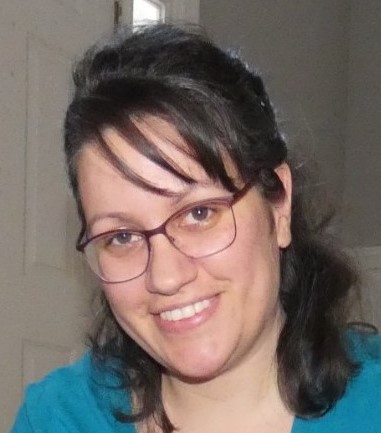 Susana M. Wadgymar
Susana M. Wadgymar
Assistant Professor
Biology Department
Davidson College
smwadgymar.weebly.com
Start date: June 2018
PhD: University of Toronto; Advisor: Arthur Weis.
Postdoc: University of Georgia; Advisor: Jill Anderson.
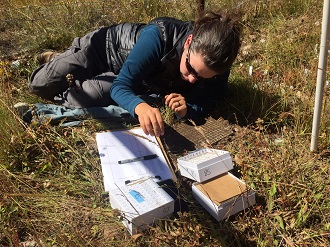
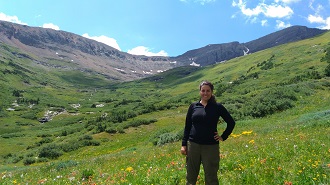
This profile is part of a series of New Faculty Profiles that highlight and introduce up-and-coming PIs in SSE. We invite highlighted faculty to discuss their research, describe how SSE has impacted their career, and share any tips or stories they may have for other researchers.
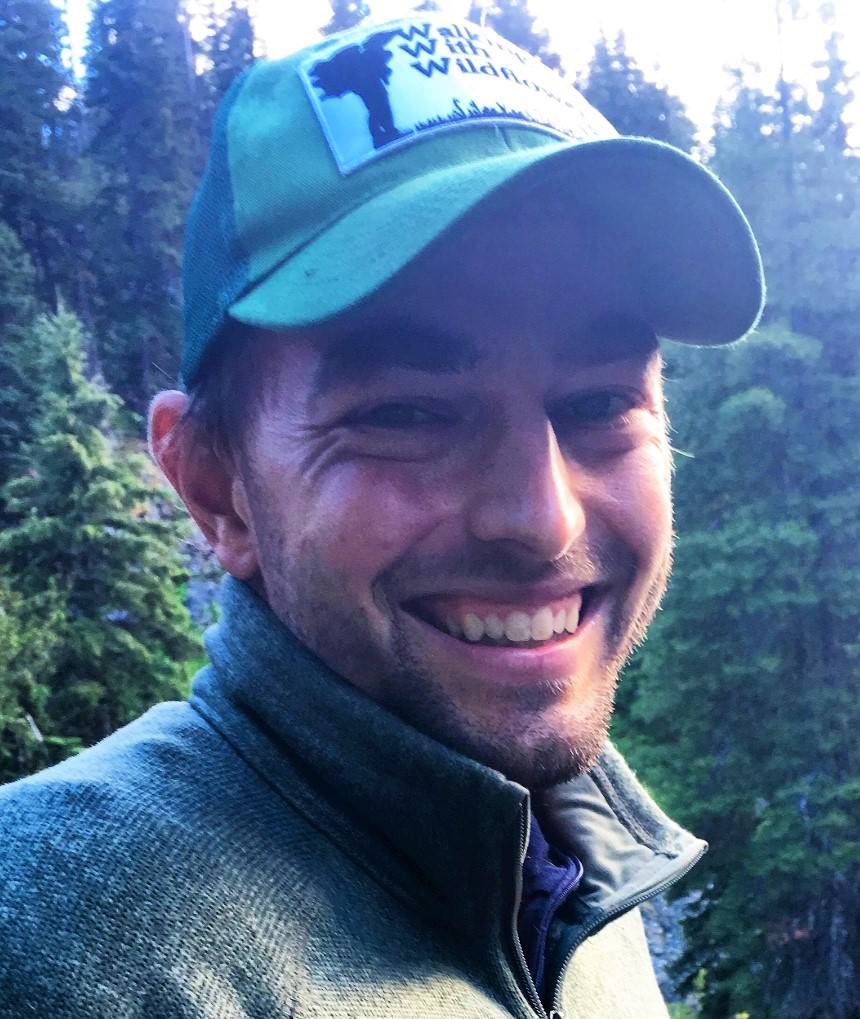 Nicholas Kooyers
Nicholas Kooyers
Assistant Professor
Department of Biology
University of Louisiana, Lafayette
www.plantadaptation.com
www.invasiongenomics.com
Start date: August 2018
PhD: Washington University in St. Louis; Advisor: Kenneth Olsen.
Postdoc: University of Virginia; Advisor: Benjamin Blackman.
Other positions: University of California, Berkeley (Postdoctoral Researcher; Benjamin Blackman); Research Scientist (University of South Florida; No Advisor).
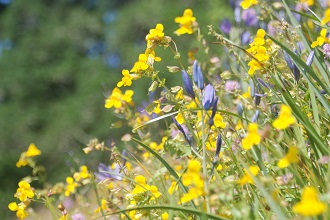
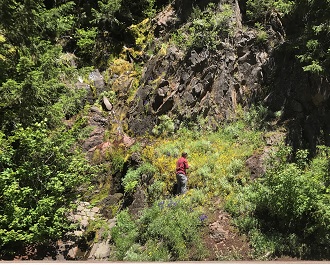
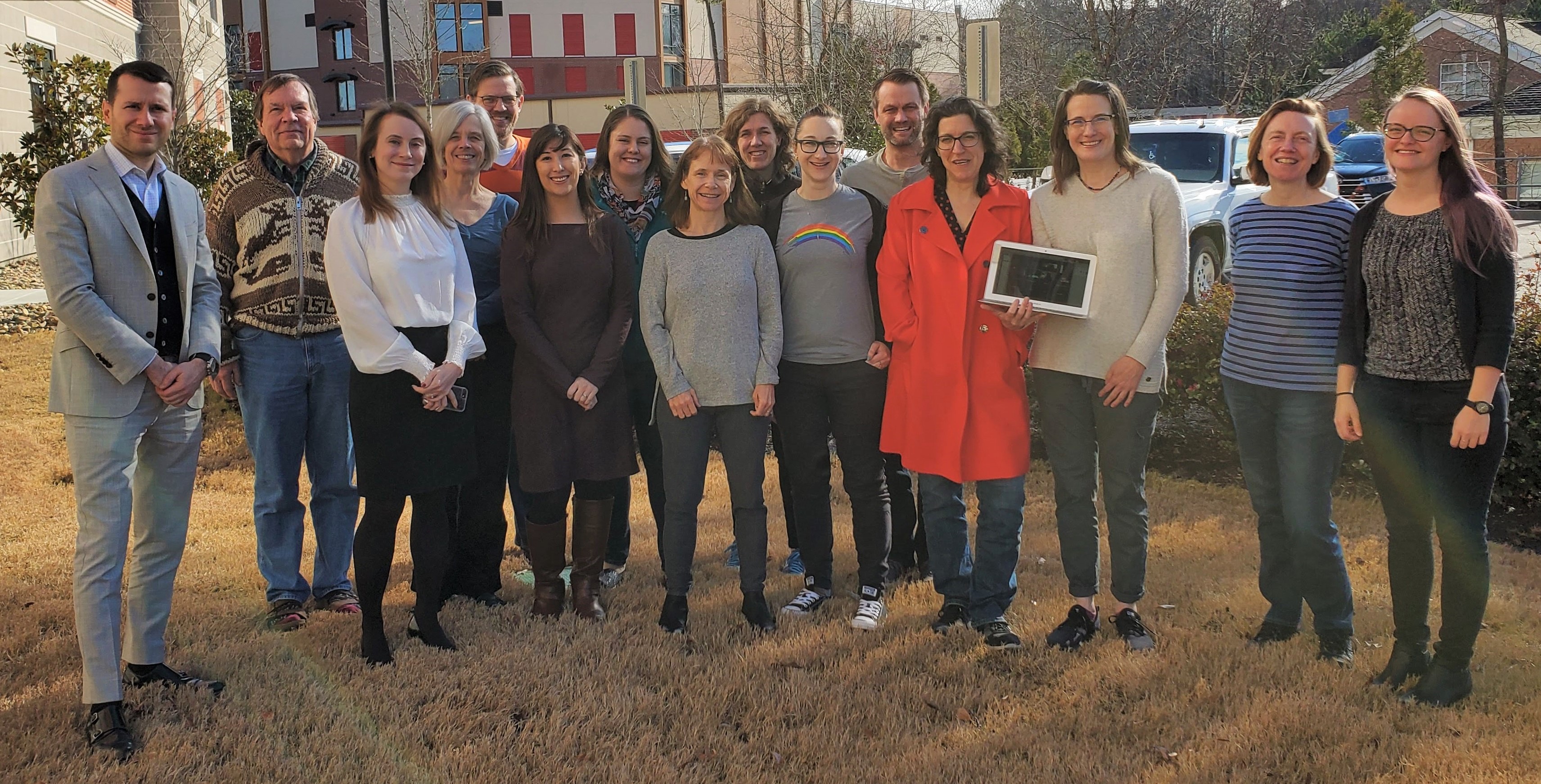
Earlier this year, the SSE Council met in Raleigh, NC for our semi-annual meeting. We welcomed our new leaders Lynda Delph (President-Elect), Ophélie Ronce (Non-North American Vice President), Chris Caruso (Treasurer), Elizabeth Carlen (GSAC Chair-Elect), Joel McGlothlin (Councilor), and Nicole Valenzuela (Councilor).
We reported, discussed, and voted on a variety of existing and upcoming initiatives, outlined below. We heard from each of our committees, as well as from our Business Office about our finances and membership statistics, and from our journal publisher Wiley about the progress of our journals Evolution and Evolution Letters in terms of reach, readership, and influence. We hope you’ll take a moment to look through this summary and follow the links to learn more about areas where SSE is having an impact. New programs and initiatives are marked with an asterisk.
Topics we covered at the meeting included:
[Note: Given the recent cancellation of the 2020 Evolution meeting, plans are now in the works for adjustments to the 2021 meeting and possible virtual events later this year.]
We thank you all for the opportunity to serve you. We welcome any thoughts, inputs, and feedback you have for us. Please feel free to reach out via email (communications@evolutionsociety.org), Twitter (;@sse_evolution), or Facebook (;@SSE.evolution).
This profile is part of a series of New Faculty Profiles that highlight and introduce up-and-coming PIs in SSE. We invite highlighted faculty to discuss their research, describe how SSE has impacted their career, and share any tips or stories they may have for other researchers.
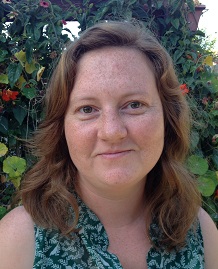 Tory Hendry
Tory Hendry
Assistant Professor
Department of Microbiology
Cornell University
https://toryhendry.weebly.com/
Start date: February 2018
PhD: University of Michigan; Advisor: Paul Dunlap.
Postdoc: University of Arizona; Advisor: David Baltrus.
Postdoc: University of California Berkeley. Advisors: Steven Lindow and Nicholas Mills.
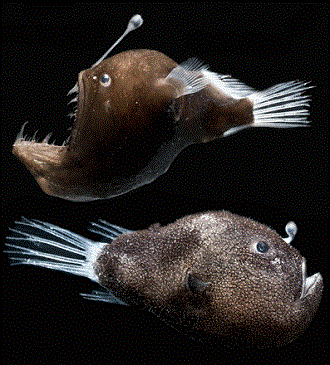
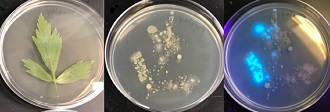
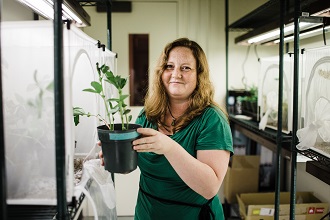
This profile is part of a series of New Faculty Profiles that highlight and introduce up-and-coming PIs in SSE. We invite highlighted faculty to discuss their research, describe how SSE has impacted their career, and share any tips or stories they may have for other researchers.
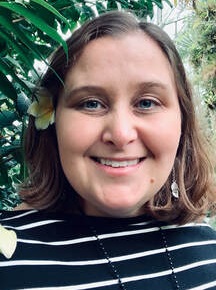 Laura Lagomarsino
Laura Lagomarsino
Assistant Professor & Herbarium Director
Biological Sciences
Louisiana State University
http://www.lauralago.net/
Start date: August 2017
PhD: Harvard University; Advisor: Charles Davis.
Postdoc: Missouri Botanical Garden & University of Missouri- St. Louis; Advisor: Nathan Muchhala.
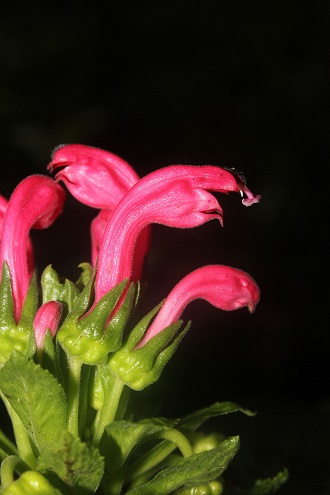
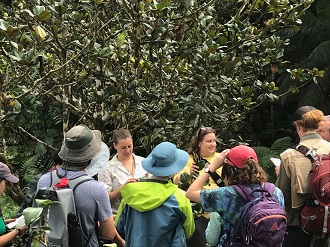
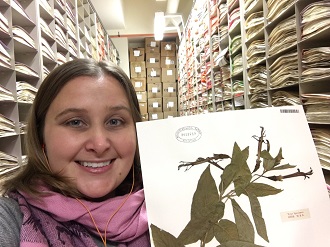
Curricula
Avid-Ed digital evolution application
Simulators
Auto-Adaptive Genetic Organization System simulator
Model of cancer evolution along an oxygen gradient
SimBio remote learning options
Textbooks
Openstax free science textbooks
Phylogenetics in the Genomic Era
Videos
JoVE Faculty Resource Center (videos free to access through June 15)
Other
QUBES Teaching Quantitative Biology Online
Long Term Animal Research Seminars
Meiosis in Quarantine weekly webinar
Simple Homemade Tools to Handle Fruit Flies
Steam Squad videos and lessons on evolution, ecology, and more
Have you found or created a resource we should include? Send it to us here.
The Evolution Highlights series highlights some of the interesting and varied papers published within the last few years in Evolution. The goal of these Evolution Highlights is to let our readers learn more about how the highlighted study came into existence, and to invite the authors to share stories and tips from the perspective of a recently published author. We welcome nominations and self-nominations for the Evolution Highlights. Find out how to submit a paper here.
October 2021 |
||
|
|
||
May 2021 |
||
|
|
||
September 2020 |
||
|
|
||
May 2020 |
||
|
|
||
Each month, the Evolution Highlights series will highlight some of the interesting and varied papers published within the last few years in Evolution. The goal of these Evolution Highlights is to let our readers learn more about how the highlighted study came into existence, and to invite the authors to share stories and tips from the perspective of a recently published author. We welcome nominations and self-nominations for the Evolution Highlights. Find out how to submit a paper here.
How mountains shape biodiversity: The role of the Andes in biogeography, diversification, and reproductive biology in South America’s most species-rich lizard radiation (Squamata: Liolaemidae)
Damien Esquerré, Ian G. Brennan, Renee A. Catullo, Fernando Torres‐Pérez, & J. Scott Keogh
https://onlinelibrary.wiley.com/doi/abs/10.1111/evo.13657
Abstract:
Testing hypotheses on drivers of clade evolution and trait diversification provides insight into many aspects of evolutionary biology. Often, studies investigate only intrinsic biological properties of organisms as the causes of diversity, however, extrinsic properties of a clade’s environment, particularly geological history, may also offer compelling explanations. The Andes are a young mountain chain known to have shaped many aspects of climate and diversity of South America. The Liolaemidae are a radiation of South American reptiles with over 300 species found across most biomes and with similar numbers of egg-laying and livebearing species. Using the most complete dated phylogeny of the family, we tested the role of Andean uplift in biogeography, diversification patterns, and parity mode of the Liolaemidae. We find that the Andes promoted lineage diversification and acted as a species pump into surrounding biomes. We also find strong support for the role of Andean uplift in boosting the species diversity of these lizards via allopatric fragmentation. Finally, we find repeated shifts in parity mode associated with changing thermal niches, with live-bearing favored in cold climates and egg-laying favored in warm climates. Importantly, we find evidence for possible reversals to oviparity, an evolutionary transition believed to be extremely rare.
Evolution Highlight by Damien Esquerré
Ecology and Evolution, Research School of Biology, The Australian National University
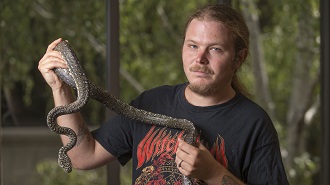
Damien Esquerré
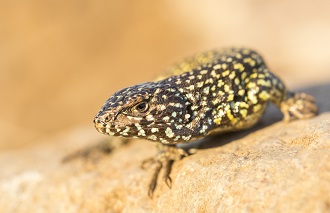
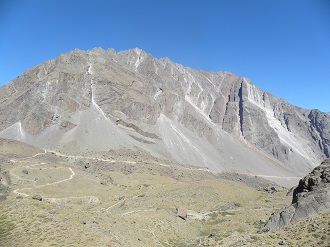
Each month, the Evolution Highlights series will highlight some of the interesting and varied papers published within the last few years in Evolution. The goal of these Evolution Highlights is to let our readers learn more about how the highlighted study came into existence, and to invite the authors to share stories and tips from the perspective of a recently published author. We welcome nominations and self-nominations for the Evolution Highlights. Find out how to submit a paper here.
Differential introgression of a female competitive trait in a hybrid zone between role-reversed species
Sara E. Lipshutz, Joana I. Meier, Graham E. Derryberry, Matthew J. Miller, Ole Seehausen, Elizabeth P. Derryberry
https://onlinelibrary.wiley.com/doi/abs/10.1111/evo.13675
Abstract:
Mating behavior between recently diverged species in secondary contact can impede or promote reproductive isolation. Traditionally, researchers focus on the importance of female mate choice and male–male competition in maintaining or eroding species barriers. Although female–female competition is widespread, little is known about its role in the speciation process. Here, we investigate a case of interspecific female competition and its influence on patterns of phenotypic and genetic introgression between species. We examine a hybrid zone between sex‐role reversed, Neotropical shorebird species, the northern jacana (Jacana spinosa) and wattled jacana (J. jacana), in which female–female competition is a major determinant of reproductive success. Previous work found that females of the more aggressive and larger species, J. spinosa, disproportionately mother hybrid offspring, potentially by monopolizing breeding territories in sympatry with J. jacana. We find a cline shift of female body mass relative to the genetic center of the hybrid zone, consistent with asymmetric introgression of this competitive trait. We suggest that divergence in sexual characteristics between sex‐role reversed females can influence patterns of gene flow upon secondary contact, similar to males in systems with more typical sex roles.
Evolution Highlight by Sara Lipshutz
Biology - Ecology, Evolution, Behavior, Indiana University
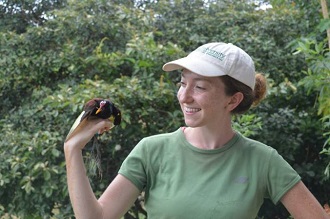
Sara Lipshutz
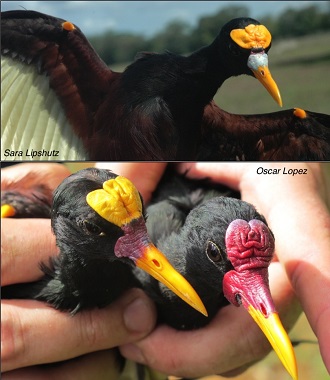
Top: Northern Jacana (Jacana spinosa). Note yellow, tri-lobate frontal shield and chestnut-brown plumage.
Bottom left: Northern x Wattled Jacana hybrid. Note yellow frontal shield with reduced wattles.
Bottom right: Wattled Jacana (Jacana jacana). Note red, bi-lobate frontal shield, red hanging wattles, and black plumage.
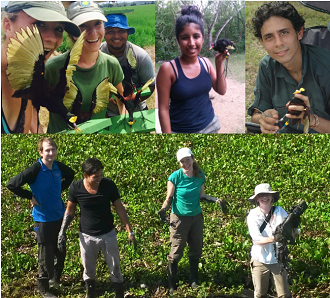
Field assistants
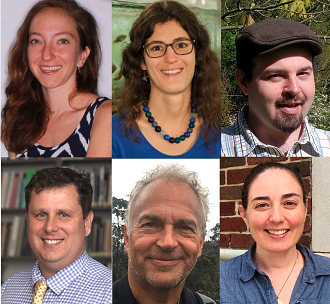
Top row from left: Sara Lipshutz, Joana I. Meier, and Graham E. Derryberry
Bottom row from left: Matthew J. Miller, Ole Seehausen, and Elizabeth P. Derryberry
This profile is part of a series of New Faculty Profiles that highlight and introduce up-and-coming PIs in SSE. We invite highlighted faculty to discuss their research, describe how SSE has impacted their career, and share any tips or stories they may have for other researchers.
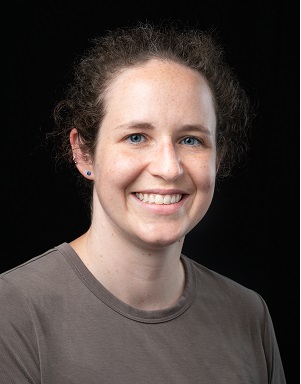 Clare Scott Chialvo
Clare Scott Chialvo
Assistant Professor
Biology Department
Appalachian State University
Website: https://sites.google.com/appstate.edu/scott-chialvo-lab
Twitter handle: ScottChialvoLab
Start date: August 2019
PhD: University of Florida; Advisor: Marc Branham.
Postdoc: University of Alabama; Advisor: Laura Reed.
Postdoc: Purdue University; Advisor: Jennifer Zaspel.
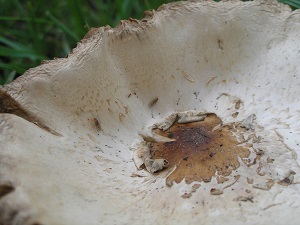
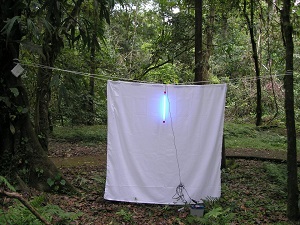
This profile is part of a series of New Faculty Profiles that highlight and introduce up-and-coming PIs in SSE. We invite highlighted faculty to discuss their research, describe how SSE has impacted their career, and share any tips or stories they may have for other researchers.
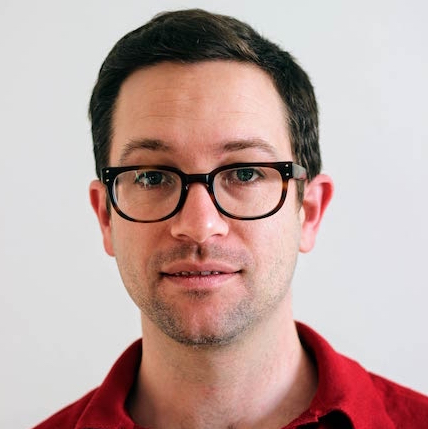 Michael Landis
Michael Landis
Assistant Professor
Department of Biology
Washington University in St. Louis
Website: landislab.org
Twitter handle: landismj
Start date: July 2019
PhD: UC Berkeley; Advisor: John Huelsenbeck.
Postdoc: Iowa State University; Advisor: Tracy Heath.
Postdoc: Yale University; Advisor: Michael Donoghue.
June 2, 2020
Dear SSE Community,
I am writing to you from my home just 10 km from the site in Minneapolis where police killed George Floyd, the latest in a long series of atrocities against Black Americans. This and other tragic events are set against a backdrop of anxiety, fear, and grief owing to the global Covid-19 pandemic, which has disproportionately affected Black people, Indigenous people, Latinx people, and others in already marginalized groups. The Society for the Study of Evolution mourns these losses and condemns racism, harassment, and discrimination in any form.
To our members in the Black community, we extend our heartfelt sympathy and abiding support at this especially difficult time. To this community, and to all biologists of color: we hear you, and we see you. We will listen to and amplify your voices. We are striving to learn how to do better, and we will continue to work toward inclusion and equity in all of our activities.
SSE’s mission is to promote the study of evolutionary biology. The scientific core of evolutionary biology is valuing and appreciating biological diversity. Likewise, we welcome, support, and celebrate the diversity of our members. Like many fields of science, the field of evolutionary biology has lacked diversity, with Black people and people of African descent being particularly underrepresented (Graves 2019). Centuries of inequity and racism, suffered severely by Black communities, have resulted in barriers to participation in STEM that we must all work to break down. We promote equity, inclusion, accessibility, and diversity at all levels, and we encourage participation by individuals of all identities.
We also acknowledge that concepts central to evolutionary biology, especially heredity and natural selection, have historically been misused to justify egregious manifestations of racism, and that even today, co-options of evolutionary biology are being used to support racist ideologies. As evolutionary biologists, we must confront this disinformation.
We encourage the SSE community to recognize, amplify, and celebrate the contributions that Black scientists have made, and continue to make, to the field of biology despite myriad barriers. This week, we have an excellent opportunity to do this. A group of Black biologists, collected under ;@BlackAFInStem on Twitter, started the Black Birders Week initiative, which is highlighting Black birders and naturalists. We wholeheartedly support these efforts and encourage you to follow the conversations and contributors this week on Twitter, Facebook, and Instagram at #BlackBirdersWeek and #BlackInNature, and to be on the lookout for similar future initiatives.
In the wake of last week’s painful events, I encourage all of us to examine acutely how privilege manifests in our daily lives and our work, to take steps to mitigate the resulting harm, to examine our own tendencies to stereotype, to call out racist or exclusionary statements, and to consider ways to act and provide support.
In solidarity,
Ruth Shaw
President, Society for the Study of Evolution
This profile is part of a series of New Faculty Profiles that highlight and introduce up-and-coming PIs in SSE. We invite highlighted faculty to discuss their research, describe how SSE has impacted their career, and share any tips or stories they may have for other researchers.
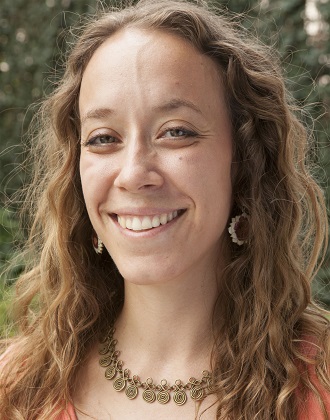 Rebecca Tarvin
Rebecca Tarvin
Assistant Professor & Assistant Curator
Department of Integrative Biology & Museum of Vertebrate Zoology
University of California, Berkeley
www.tarvinlab.org
Twitter: @frogsicles
Start date: July 2019
PhD: University of Texas at Austin; Advisor: David Cannatella & Harold Zakon.
Postdoc: University of Texas at Austin; Advisor: David Cannatella. Miller Fellow, Miller Institute for Basic Research in Science.
About the department:
The Integrative Biology Department at UCB houses a dynamic group of biologists and museums, encompassing pieces of what used to be Zoology, Botany, Physiology- Anatomy, Paleontology, and Genetics departments (until 1989). Aside from being an Assistant Professor in IB, I am an Assistant Curator at the Museum of Vertebrate Zoology, which is an inspirational and warm environment for pursuing evolutionary biology, field research, and working with non-model systems. We have a shared molecular lab, which I love!
About the research:
Research in my lab integrates studies of natural history with genomics and phylogenetics. Specifically, our research aims to elucidate causal genetic mechanisms underlying novel traits, to characterize phenotypic diversification at macro and micro-evolutionary scales, and to identify factors that promote and constrain biodiversity. Projects tend to focus on the evolution of chemical defenses; current systems include poison frogs, toads, salamanders, flies, and snakes. Although most of our work is directed at non-model systems in the Bay Area and South America, we are working to get an experimental evolution model with Drosophila up and running in the lab.
What has been the biggest challenge as a new PI so far?
In graduate school I had three major burn-outs from over-working myself, so I've been careful to try to balance the time I spend working with my personal life. This means that I need to heavily prioritize my day-to-day tasks, which can be challenging when everything seems important. I think for me it's been most difficult to reconcile that some things that aren't that important to me are important to other people, and to accept that I can't please everyone all the time.
What has been the biggest surprise so far about being a new PI?
I was surprised to realize how much I love mentoring (even more than I thought I already did). It's a true reward to work with such talented students and to see them grow in skills and confidence over time.
Do you remember your first publication in Evolution or Evolution Letters (acceptance or rejection)?
Yes! I'm actually still working on a paper that was rejected by Evolution in 2016, which was pretty disheartening at the time. Looking back, it was not ready to be published, and the reviews I received played an important part in how I'm revising the analyses now.
How do you think evolutionary research benefits society?
Part of why I got into research was because I'm a very curious person. I love that evolution has the answers to a lot of our "why" questions, and for that reason find this job not only intellectually satisfying but also personally satisfying. Thus, I think that anyone who wants to know more about the world around them can benefit from evolutionary research simply because it fulfills these curiosities. Case in point: "Does it Fart?" was a NYT best seller.
Do you have a time management tip to share?
A colleague of mine said that she spends the first two hours every day on her own research. I've adopted this practice and found that it helps me maintain research (rather than email or other things) as a priority. I block out these time-slots from meetings or any other tasks. It has made a huge difference in how I spend my time day to day. Previously, it was easy to spend an hour or two on email in the mornings before tending to anything else. I have also tried to schedule intensive tasks (like research and reading) for my more productive morning hours while scheduling more time-filling tasks (like meetings or paperwork) in the afternoons.
What one piece of advice would you give to a starting graduate student?
Read widely. Then, as you begin research try to maintain several projects at different stages so you can be gathering data for one, analyzing another, and writing up the third. Whatever you do, do not wait until your fourth or fifth year to begin writing. In general, do what works for you; don't feel so pressured to adhere to what people tell you to do. There is no one pathway to success. Ask for and listen to people's advice, but be most willing to follow the advice from those who you want to emulate rather than those who seem successful but are not people you want to be. In any case, don't underestimate your own intuition and opinions -- it's ok to be different.
How was your first faculty meeting?
The first faculty meeting I attended had a controversial topic on the agenda. Afterwards, several colleagues came up to me to apologize for the controversial discussion. I thought it was kind of funny because I hadn't seen the meeting as overly controversial. Since then, I've been impressed with how members of our faculty speak their minds and don't shy away from broaching difficult topics.
What is something most people don’t know about you?
With my herpetology background, I've long shied away from birding, but now I'm VERY into back-yard birding and I keep a house list. I get very excited when I can snap a photo of a new bird, add it to iNaturalist, and then I'll allow myself to add it to the official house list. I'm up to 17!
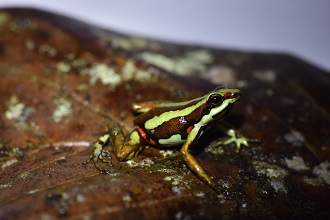
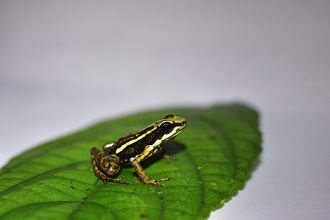
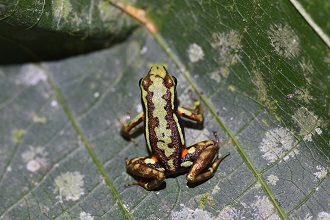
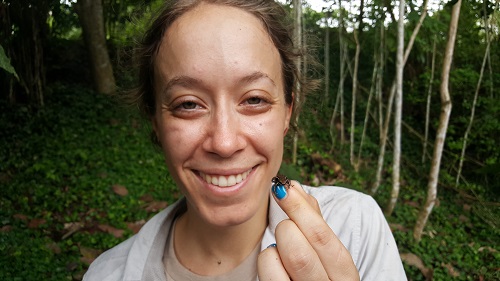
This profile is part of a series of New Faculty Profiles that highlight and introduce up-and-coming PIs in SSE. We invite highlighted faculty to discuss their research, describe how SSE has impacted their career, and share any tips or stories they may have for other researchers.
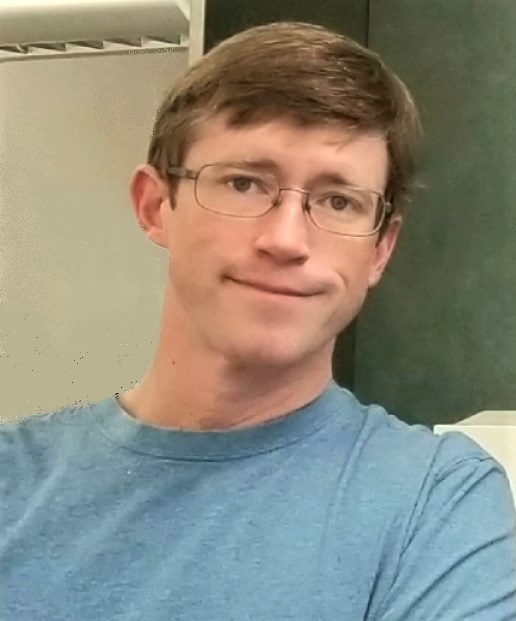 Jesse N. Weber
Jesse N. Weber
Assistant Professor
Department of Integrative Biology
University of Wisconsin-Madison
adaptationmatters.wixsite.com/home
Twitter: ;@EvolEmpiricist
Start date: August 2020
PhD: Harvard University; Advisor: Hopi Hoekstra.
Postdoc: University of Texas at Austin; Advisor: Daniel Bolnick. Postdoc: University of Montana, Doug Emlen.
Previous faculty position: Assistant Professor, Biological Sciences, University of Alaska Anchorage
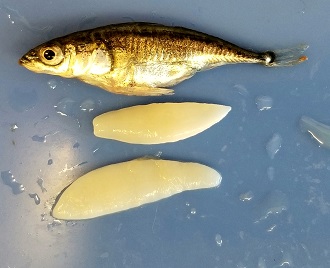
The tapeworms can weigh as much as the host, and the only fish this parasite infects are threespine stickleback, suggesting there is strong reciprocal selection in this system.
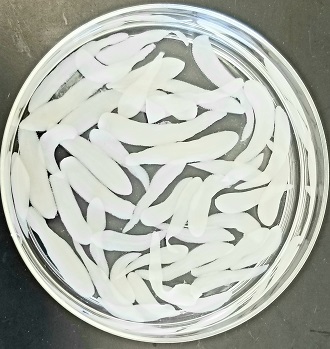
We love being able to sample large numbers of parasites from many environments because it really helps us to measure population genetic parameters.
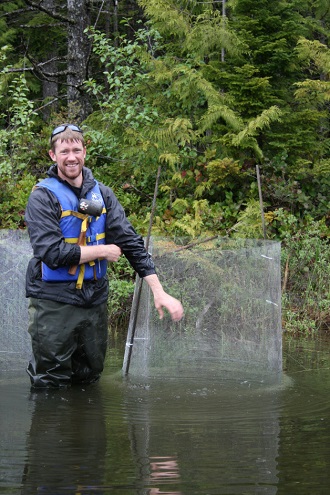
Some of the best things about stickleback research are the field sites. This picture was taken in a remote part of Vancouver Island.
SSE is aware that historical and modern-day cultural biases and lack of diversity in an applicant pool may lead to biases in the allocation of grants, prizes, and awards. Beginning with the 2020 Graduate Research Excellence Grant competitions, SSE requested voluntary demographic information from award applicants in an effort to address bias and promote equity in awarding across multiple axes of diversity.
Answering demographic questions was voluntary—each question was required but included a “Prefer not to say” option. Answers to the demographic questions were not available to the evaluation committee during the first step of the evaluation process—the scoring and ranking of application materials (described here). The demographic data were used to assess the diversity of the applicant pool and the differences between the composition of the applicant pool and the recipient population.
We do not yet have demographic data on our membership, and so were unable to assess differences between the diversity of the applicant pool or recipient population and our total membership during this round of awards. The SSE Diversity Committee is discussing gathering demographic data on the membership as well as efforts to increase award proposals from underrepresented groups. This year, in an effort to assist students with less experience submitting proposals, we provided samples of previously funded proposals to applicants.
In the 2020 GREG - R.C. Lewontin Early Award competition, the R.C. Lewontin Early Award Committee received 210 applications. Each application was assigned to two evaluators from the evaluation committee, who scored the applications on five criteria (see Evaluation Criteria). All application scores were standardized within evaluators to account for scoring variation among evaluators, then ranked across the entire pool of applications. The top-ranked applications were sent into a second round of evaluation with three evaluators each.
The SSE Diversity Committee assessed the percentage of applicants from different institution locations and types, as well as the responses to six demographic questions (see tables below). The highest-ranked applications from under-represented areas were selected for the second round of evaluation. Additional highly ranked applications selected by the Diversity Committee made the demographics of the recipients more representative of the applicant pool (see tables below).
34 applications were sent into the second round of evaluation; 23 applications were selected as recipients.
DATA PRIVACY STATEMENT: Upon completion of each competition, answers to demographic questions were anonymized and disassociated with all identifying information. Anonymized responses will be archived in order to analyze the composition of applicant pools over time.
The GREG R.C. Lewontin Award budget allowed for funding of 20 applications. Three additional grants were funded by donations to the George W. Gilchrist Student Support Fund, donations to the GREG awards fund, and funds from the SSE President’s discretionary annual budget allocation.
| Institution Location | Applicant Pool | Recipients | |
| U.S. or Canada | 88.57% | 91.30% | |
| International | 11.43% | 8.70% |
| Institution Type* | Applicant Pool | Recipients | |
| R1 | 80.00% | 78.26% | |
| non-R1 | 14.29% | 13.04% | |
| International | 5.71% | 8.70% |
*US institutions are classified as R1 or Non-R1 by their research activity according to The Carnegie Classification of Institutions in Higher Education. All institutions outside the US are included in the International category here.
| Which best describes your racial/ethnic identity? Choose all that apply. | Applicant Pool | Recipients | |
| White/non Hispanic | 65.71% | 60.87% | |
| Latinx or Hispanic | 12.38% | 13.04% | |
| Black or African American | 1.43% | 4.35% | |
| American Indian/Alaskan Native/First Nations/Indigenous/Aboriginal | 0.00% | 0.00% | |
| South Asian/East Asian/Southeast Asian | 10.95% | 13.04% | |
| Native Hawaiian/Pacific Islander | 0.00% | 0.00% | |
| Multi-racial | 0.00% | 0.00% | |
| Other | 0.95% | 4.35% | |
| Prefer not to say | 1.43% | 0.00% |
| With which gender do you identify? | Applicant Pool | Recipients | |
| Man | 44.29% | 52.17% | |
| Woman | 53.81% | 47.83% | |
| Non-binary/genderqueer/agender | 1.43% | 0.00% | |
| Other | 0.00% | 0.00% | |
| Prefer not to say | 0.48% | 0.00% |
| Is your gender identity the same as the gender you were assigned at birth? | Applicant Pool | Recipients | |
| Yes (I am cisgender) | 98.10% | 95.65% | |
| No (I am transgender) OR Prefer not to say | 1.90% | 4.35% |
| Which best describes your sexual orientation? | Applicant Pool | Recipients | |
| Heterosexual | 71.43% | 69.57% | |
| LGBTQ+ OR Prefer not to say | 28.57% | 30.43% | |
| Gay | 3.33% | ||
| Lesbian | 0.48% | ||
| Bisexual | 11.43% | ||
| Queer | 4.29% | ||
| Pansexual | 1.43% | ||
| Asexual | 2.38% | ||
| Prefer not to say | 5.24% |
| Do you have any disabilities? Please check all that apply. | Applicant Pool | Recipients | |
| Checked one or more | 18.10% | 17.39% | |
| None | 77.14% | 73.91% | |
| Prefer not to say | 4.76% | 8.70% |
| Were you the first of your family to graduate from college/university (often called a “first generation” college graduate)? | Applicant Pool | Recipients | |
| Yes | 24.76% | 17.39% | |
| No | 74.76% | 86.36% | |
| Prefer not to say | 0.48% | 0.00% |
The Evolution Highlights series will highlight some of the interesting and varied papers published within the last few years in Evolution. The goal of these Evolution Highlights is to let our readers learn more about how the highlighted study came into existence, and to invite the authors to share stories and tips from the perspective of a recently published author. We welcome nominations and self-nominations for the Evolution Highlights. Find out how to submit a paper here.
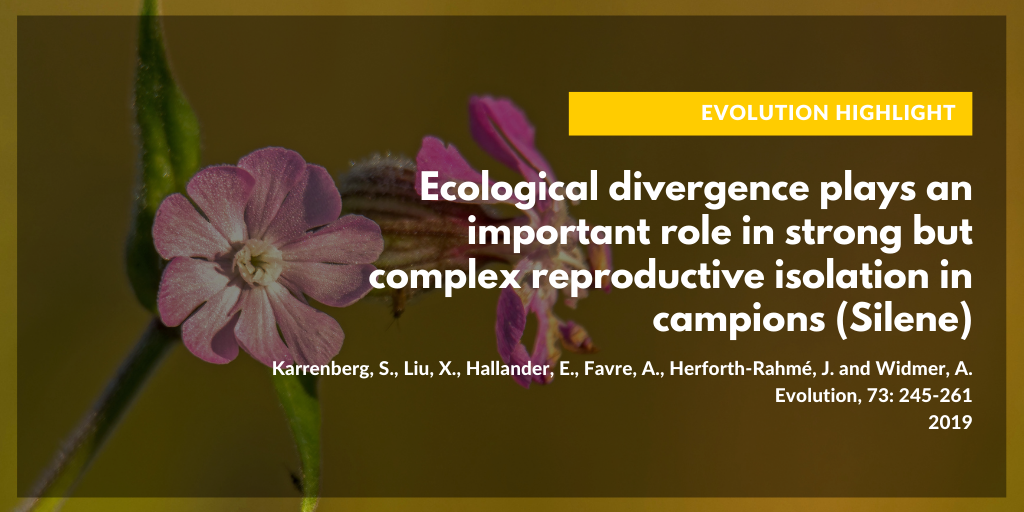
Ecological divergence plays an important role in strong but complex reproductive isolation in campions (Silene)
Karrenberg S, X Liu, E Hallander, A Favre, J Herforth‐Rahmé, A Widmer
https://onlinelibrary.wiley.com/doi/abs/10.1111/evo.13652
Abstract:
New species arise through the evolution of reproductive barriers between formerly interbreeding lineages. Yet, comprehensive assessments of potential reproductive barriers, which are needed to make inferences on processes driving speciation, are only available for a limited number of systems. In this study, we estimated individual and cumulative strengths of seven prezygotic and six postzygotic reproductive barriers between the recently diverged taxa Silene dioica (L.) Clairv. and S. latifolia Poiret using both published and new data. A combination of multiple partial reproductive barriers resulted in near‐complete reproductive isolation between S. dioica and S. latifolia, consistent with earlier estimates of gene flow between the taxa. Extrinsic barriers associated with adaptive ecological divergence were most important, while intrinsic postzygotic barriers had moderate individual strength but contributed only little to total reproductive isolation. These findings are in line with ecological divergence as driver of speciation. We further found extensive variation in extrinsic reproductive isolation, ranging from sites with very strong selection against migrants and hybrids to intermediate sites where substantial hybridization is possible. This situation may allow for, or even promote, heterogeneous genetic divergence.
Evolution Highlight by Sophie Karrenberg
Department of Ecology and Genetics, Uppsala University
What gave you the idea for this study?
Realizing that reproductive isolation can be complex (a long time ago).
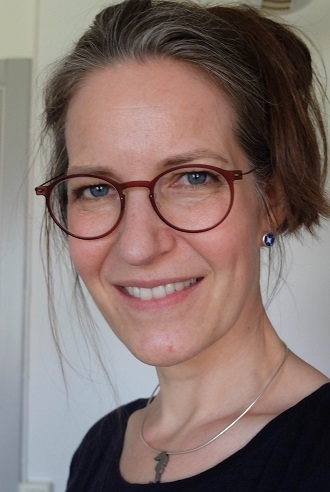
Dr. Sophie Karrenberg
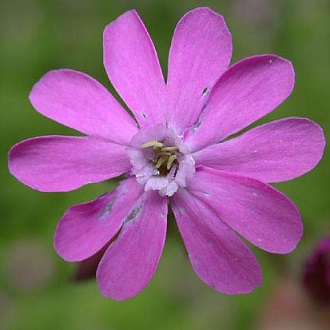
Silene dioica
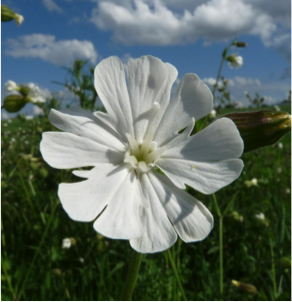
Silene latifolia
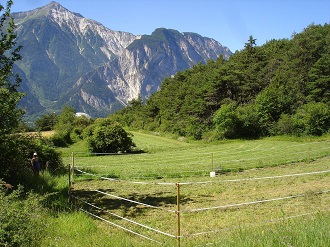
Transplant site near Leuk, Valais, Switzerland
The Evolution Highlights series highlights some of the interesting and varied papers published within the last few years in Evolution. The goal of these Evolution Highlights is to let our readers learn more about how the highlighted study came into existence, and to invite the authors to share stories and tips from the perspective of a recently published author. We welcome nominations and self-nominations for the Evolution Highlights. Find out how to submit a paper here.
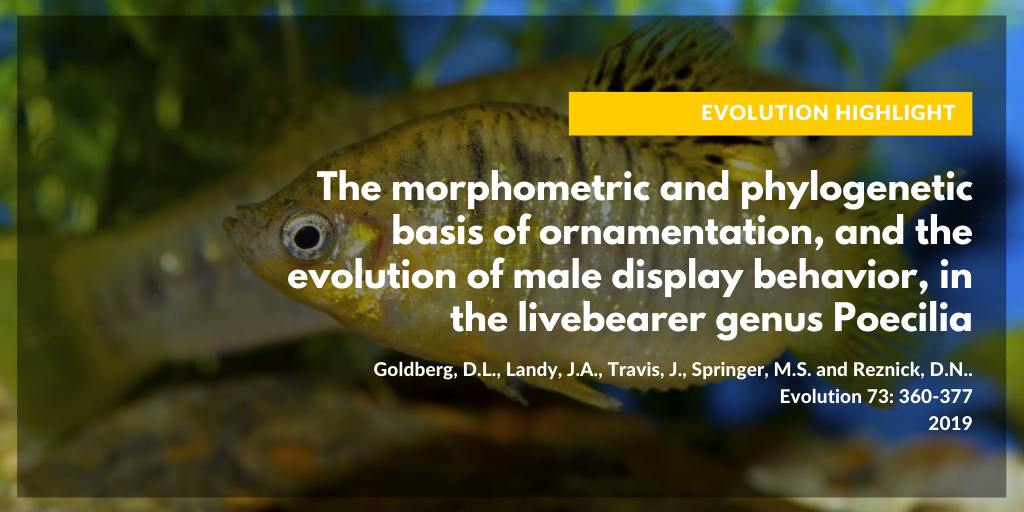
In love and war: The morphometric and phylogenetic basis of ornamentation, and the evolution of male display behavior, in the livebearer genus Poecilia.
Goldberg, D.L., Landy, J.A., Travis, J., Springer, M.S. and Reznick, D.N.
https://onlinelibrary.wiley.com/doi/10.1111/evo.13671
Abstract:
Exaggerated male traits under sexual selection are often used for both competition and courtship, raising the question of whether ornaments evolved simultaneously for both functions, or if use in one context preceded use in another. Here, we apply a phylogenetic approach to study the evolution of ornamental dorsal fins in male poeciliid fish of the subgenera Mollienesia and Limia, which exhibit convergent development of an enlarged dorsal fin, and often direct erect‐fin displays to male and female conspecifics. Unlike prior categorical assessments of poeciliid adornments, we measure dorsal fin exaggeration with a continuous index of ornamentation. Phylogenetic logistic and generalized least squares regression analyses indicate that high index values are significantly associated with the use of two component postures of courtship and aggressive displays, dorsal fin erection and body curvature, but not with the presence of sexual dichromatism. Male displays initially evolved for male–male aggression in the common ancestor of Mollienesia and Limia, suggesting that this signal originated for competition, then became co‐opted for courtship. These results support the armament‐ornament hypothesis for evolution of exaggerated male traits, and are consistent with an evolutionary shift in the predominant mechanisms of sexual selection from intra‐ to intersexual.
Evolution Highlight by Daniel Lorenz Goldberg
School of Biological Sciences, Illinois State University
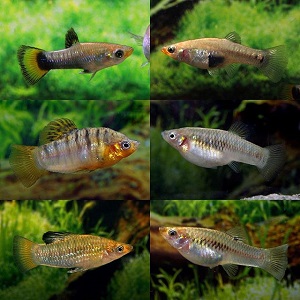
Courting Limia species
This profile is part of a series of New Faculty Profiles that highlight and introduce up-and-coming PIs in SSE. We invite highlighted faculty to discuss their research, describe how SSE has impacted their career, and share any tips or stories they may have for other researchers.
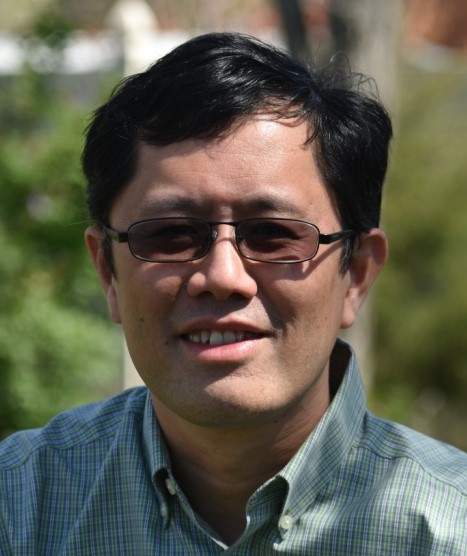 Haw Chuan Lim
Haw Chuan Lim
Assistant Professor
Department of Biology
George Mason University
https://sites.google.com/view/gmuevogen/home
Twitter: @hawchuan
Start date: August 2017
PhD: Louisiana State University; Advisor: Frederick Sheldon.
Postdoc: Smithsonian Institution; Advisor: Michael Braun, Robert Fleischer. Postdoctoral Fellow (University of Illinois, Sydney Cameron).
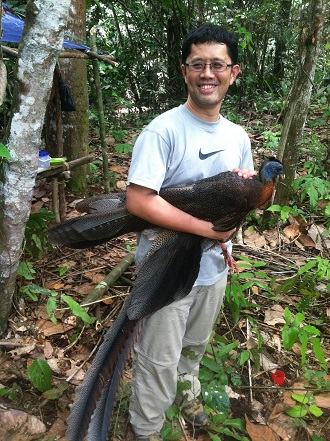
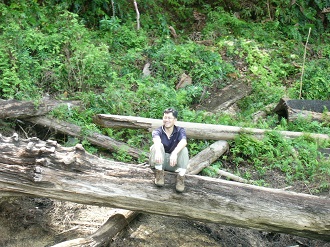
This profile is part of a series of New Faculty Profiles that highlight and introduce up-and-coming PIs in SSE. We invite highlighted faculty to discuss their research, describe how SSE has impacted their career, and share any tips or stories they may have for other researchers.
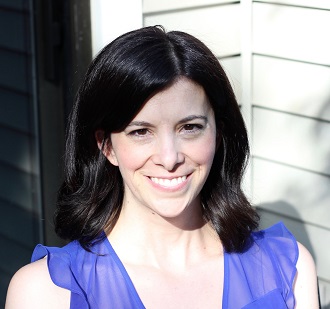 Alison Pischedda
Alison Pischedda
Assistant Professor
Department of Biology
Barnard College
https://www.pischeddalab.com
Twitter: @AlisonPischedda
Start date: July 2017
Masters: Queen's University (Canada). Advisor: Adam Chippindale.
PhD: University of California, Santa Barbara; Advisor: Bill Rice.
Postdoc: University of California, Santa Barbara; Advisor: Tom Turner.
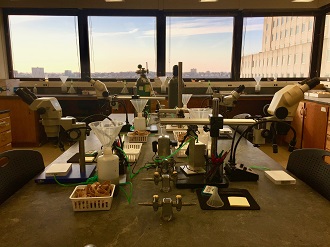
The Society for the Study of Evolution announces the election of the SSE President-Elect to be in place on January 1, 2021. The election will be conducted online from December 7 to December 21, 2020. You can learn more about the President-Elect's duties and responsibilities in the SSE Officers Handbook.
Click each candidate's name to jump to their statement and a link to their CV. Once you have made your choice, access the ballot to cast your vote by clicking the "Vote Now" button or clicking this link. Thank you for your participation!
SSE President-Elect: Laura F. Galloway, Emília P. Martins
Or click here to view the ballot.
Deadline: December 21, 2020
--------------------------------------------------------------------------------------------------------------
Laura F. Galloway, Department of Biology, University of Virginia
I am honored to be considered for the office of President of the Society for the Study of Evolution. SSE has been important to me throughout my career, providing a platform for my first national research presentation and the first publication from my dissertation. SSE is my scientific home and community. I consider service to academic societies an essential part of my professional life, and have been pleased to give back to this society through service as a member of Council, North American Vice President, Associate Editor for Evolution, reviewer of countless Rosemary Grant proposals, and as a member of the Dobzhansky and Gould award committees. I have also served as an Editor or Associate Editor for New Phytologist, Ecology and Proceedings for the Royal Society B, as well as Treasurer and Executive Committee member for the Botanical Society of America, and member of several American Society of Naturalist committees. My research has long used ecological and quantitative genetics to explore mechanisms and patterns of evolution in natural plant populations. Recently, I have been working to understand the contribution of cytonuclear interactions to incipient speciation, as well as the causes of range-wide patterns of mating system variation in a phylogeographic context.
What challenges does SSE face today? To maintain our leading role and vitality, SSE must be relevant to the next generation of evolutionary biologists. Our ability to recruit and support evolutionary biologists from across socioeconomic, racial, ethnic, identity, and national backgrounds will broaden the study of evolution as well as lead to greater interest in the field by the public. I embrace SSE’s action plan for enhancing diversity, equity and inclusion. As President, my priority will be building institutional machinery to increase diversity both in our membership and our leadership. I have been, and will continue to be, a champion of initiatives supporting early-career members by promoting networking, professional development and career awareness, particularly non-academic careers. I appreciate the Graduate Student Advisory Council’s efforts in this area, and commit to increasing our portfolio of these activities at the Evolution meeting and SSE social media outlets.
As President, I will also work to make sure that SSE is open and inviting to the full breadth of research in evolutionary biology, that our meetings are a platform for sharing this research, and that our journals are sought-after outlets for publication. To do this, I will work with the society leadership and our publisher to ensure that Evolution maintains its status as a premier journal given the increasing number of outlets for the publication of evolutionary research. In addition, innovations to meetings as a result of the pandemic present an opportunity to expand the scope of our meeting by carrying forward successful on-line elements. We also have the opportunity to employ new formats to help us engage more members when we meet in person. I will work with the organizers to keep the Evolution meeting a forward-looking and open venue with a variety of platforms for sharing science.
SSE is a vibrant scientific society with a strong membership, journal, annual meeting and an active, engaged early-career community. As President, I will work to maintain and expand upon these strengths by undertaking initiatives to position SSE as a “must join” society for evolutionary biologists across a broadening field, and by making sure we are a welcoming professional community for an increasingly diverse group of scientists.
--------------------------------------------------------------------------------------------------------------
Emília P. Martins, School of Life Sciences, Arizona State University
I am honored to have been nominated to serve as President of the SSE. I first joined SSE as a graduate student nearly 30 years ago, when I published my first paper in Evolution and attended the first of many SSE conferences. Since then, I’ve also served once on the SSE Council and twice on the Evolution editorial board. With each of these and many more interactions, I’ve benefited tremendously from SSE’s historic goal of crossing disciplinary barriers and bringing together diverse perspectives. I’m ready now to help ensure that SSE continues that tradition into the future.
If elected, my primary goal will be to help SSE develop initiatives that engage and foster the careers of a more diverse community of evolutionary biologists, including especially Indigenous, Black, Latinx, and other people of color from around the world. I am deeply and personally committed to increasing diversity in the sciences, and over the years, have designed and directed several initiatives to broaden participation. I am pleased that SSE has taken recent steps towards equity and inclusion, building on the long-standing UDE program with a new diversity committee, awards, and financial priorities. However, much work remains to be done. We need to listen actively to diverse voices, to educate ourselves about racism in the history of evolutionary biology, and to take decisive action to correct the damage. We need to set tangible goals, and to put reliable systems for assessing progress into place.
These are challenging times, and evolutionary biologists are uniquely positioned to contribute to global discussions on health disparities, evolving pathogens, genetic manipulation, climate change, and biodiversity. In addition to maintaining an outstanding journal, building community, and fostering the careers of its junior members, SSE has an opportunity to play a leadership role in shaping future visions and policies. I welcome an opportunity to participate in this effort, especially in strengthening links to other societies and agencies. Together, we can do much more than we can alone.
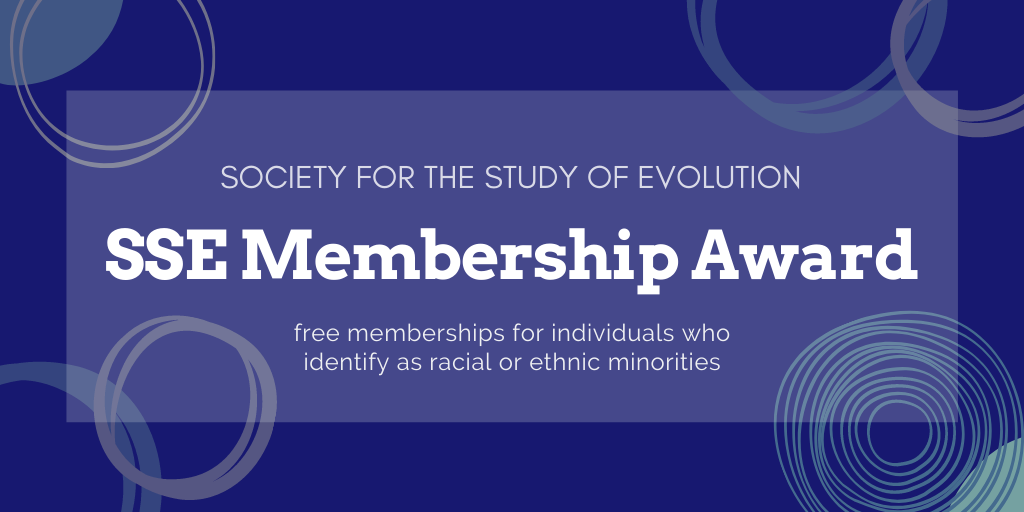
SSE recognizes that the society membership is not reflective of the diversity in the field of evolutionary biology, and that professional societies have played a role in excluding underrepresented scientists from STEM as a whole. The SSE Council has committed to sweeping action to increase inclusion of and support for members of historically excluded groups, particularly individuals who identify as Black, Indigenous, or people of color (BIPOC), in all of the Society’s activities and programs and in evolutionary biology as a whole.
As a first step in increasing support, the SSE Membership Award offered free two-year SSE memberships to 100 individuals of any career stage who identify as racial or ethnic minorities, either in their country of origin or their country of residence. This target was reached in 2025, and the program was renewed for 100 additional memberships. Learn more about the brief application process and apply here: https://forms.gle/xBWqKfjDsWXeYbGq9
Why are society memberships a relevant first step in building support? Membership offers opportunities for networking and community-building, eligibility for other societal awards, access to journal articles and special conference events, and reduced publication and conference registration fees. We realize this is just one step of many, and we are committed to making sure our community is welcoming and supportive of scientists from all backgrounds and identities.
Eligibility and evaluation: Successful applicants will identify as members of racially or ethnically underrepresented communities, either in their country of origin or their current country of residence. SSE strongly believes that every member has a unique perspective to add to the society, enriching the community as a whole. The application process includes a 500-word statement on how a membership in SSE would benefit the applicant and any circumstances that have previously prevented the applicant from joining, as well as highlighting the unique perspective or background that affect the applicant's approach to science. Individuals currently eligible for free membership via the Global Membership Assistance (GMA) Program are not eligible for this award.
We appreciate your patience as your application is reviewed. If you have any questions, please contact either the SSE Diversity Committee (diversity@evolutionsociety.org) or SSE Communications (communications@evolutionsociety.org).
This award, formerly called the R. A. Fisher Prize, was renamed the SSE Presidents’ Award for Outstanding Dissertation Paper in Evolution in June 2020. This prize, first established in 2006, is awarded annually for an exceptional PhD dissertation paper published in the journal Evolution. The award comes with a $1000 honorarium. Nominations are due in January of each year. Learn more about the award here.
The original name of the prize was chosen to acknowledge Fisher’s extensive, foundational contributions to the study of evolution, particularly through his development of population genetic and quantitative genetic theory. Alongside his work integrating principles of Mendelian inheritance with processes of evolutionary change in populations and applying these advances in agriculture, Fisher established key aspects of theory and practice of statistics.
Fisher, along with other geneticists of the time, extended these ideas to human populations and strongly promoted eugenic policies—selectively favoring reproduction of people of accomplishment and societal stature, with the objective of genetically “improving” human societies. Fisher and other geneticists, ignoring logical flaws certain to undermine the efficacy of this program, were highly influential in promoting eugenic policies. Fisher in particular maintained his support for these ideas even after others had abandoned them. The eugenics movement was founded in racist ideologies, and although eugenics has been repudiated by the evolution community, the field of population genetics continues to carry the mark of its historical connections to eugenics (read more here), causing harm to Black, Indigenous, Latinx and other communities of color. We sincerely regret that authors of color may have chosen not to submit their work for consideration for this award because of its name.
For these reasons, the SSE Council voted in 2020 to change the name of the award, shifting its focus to the scholarly achievements of the awardee. The name also acknowledges that the winning paper is chosen by the three current society presidents. Going forward, SSE recognizes the need to continue to invest significant effort toward making our Society and our field more inclusive and more equitable. The Diversity Committee, established in 2017, has galvanized SSE’s major strides towards this goal, and welcomes input and involvement from the membership in prioritizing and carrying out its initiatives (read more here).
In September 2020, SSE Council approved a suite of actions proposed by the Diversity Committee to increase inclusion of and support for members of historically excluded groups in the field of evolutionary biology and through all of the activities of SSE. Updates on the progress of these actions can be found on the SSE website.
Further reading:
Bodmer, W., Bailey, R.A., Charlesworth, B. et al. The outstanding scientist, R.A. Fisher: his views on eugenics and race. Heredity 126, 565–576 (2021). https://doi.org/10.1038/s41437-020-00394-6
"Ronald Fisher Is Not Being ‘Cancelled’, But His Eugenic Advocacy Should Have Consequences" by Eric Michael Johnson
SSE is aware that historical and modern-day cultural biases and lack of diversity in an applicant pool may lead to biases in the allocation of grants, prizes, and awards. Beginning with the 2020 Graduate Research Excellence Grant competitions, SSE requested voluntary demographic information from award applicants in an effort to address bias and promote equity in awarding across multiple axes of diversity. Answering demographic questions was voluntary—each question was required but included a “Prefer not to say” option. Answers to the demographic questions were not available to the evaluation committee during the first step of the evaluation process—the scoring and ranking of application materials (described here). The demographic data were used to assess the diversity of the applicant pool and the differences between the composition of the applicant pool and the recipient population.
We are still in the process of gathering demographic data on our membership, and so were unable to assess differences between the diversity of the applicant pool or recipient population and our total membership during this round of awards. As part of SSE’s commitment to diversity, equity, and inclusion, the GREG Award Committees are working with the SSE Diversity Committee to pursue equity in awarding, as well as efforts to increase award proposals from those who identify as belonging to historically excluded groups. In 2020, in an effort to assist students with less experience submitting proposals, we provided samples of previously funded proposals to applicants.
Demographic information is not part of the evaluation process and is not available to reviewers at any time during the proposal review process. Anonymized information is used by the SSE Diversity Committee to assess the demographic composition of the applicant pool and of the pool of awardees, and when necessary, the Diversity Committee recommends additional awards to better align the awardee pool with the applicants. Only staff working on behalf of the society—not in academic science—have access to identifiable demographic data for the sake of reporting. All data are stored securely in keeping with the SSE Data Privacy Policy. We welcome any comments or concerns you might have about this process.
In the 2020 GREG - Rosemary Grant Advanced Award competition, the award committee received 107 applications. Each application was randomly assigned, avoiding conflicts of interest, to three evaluators from the evaluation committee, who scored the applications on five criteria (see Evaluation Criteria). All application scores were standardized within evaluators to account for scoring variation among evaluators, then ranked across the entire pool of applications. Thirteen projects were chosen as awardees based on application scores and demographic data.
DATA PRIVACY STATEMENT: Upon completion of each competition, answers to demographic questions were anonymized and disassociated with all identifying information. Anonymized responses will be archived in order to analyze the composition of applicant pools over time.
The GREG Rosemary Grant Advanced Award budget allowed for funding of 10 applications. Two additional grants were funded by donations to the George W. Gilchrist Student Support Fund, and one additional grant was funded in part by the SSE President’s discretionary annual budget allocation.
| Institution Location | Applicants | Recipients |
| United States | 78.50% | 69.23% |
| Canada | 4.67% | 7.69% |
| International | 16.82% | 23.08% |
| InstitutionType* | Applicants | Recipients |
| R1 | 64.49% | 61.54% |
| Non-R1 | 14.02% | 15.38% |
| International | 21.50% | 30.77% |
*US institutions are classified as R1 or Non-R1 by their research activity according to The Carnegie Classification of Institutions in Higher Education. All institutions outside the US are included in the International category here.
| Which best describes your racial/ethnic identity? Choose all that apply. | Applicants* | Recipients* |
| White/non Hispanic | 66.36% | 38.46% |
| Latinx or Hispanic | 13.08% | 15.38% |
| Black or African American | 1.87% | 15.38% |
| Indian/Alaskan Native/First Nations/Indigenous/Aboriginal | 0.00% | 0.00% |
| South Asian/East Asian/Southeast Asian | 14.95% | 30.77% |
| Native Hawaiian/Pacific Islander | 0.93% | 0.00% |
| West Asian or North African (also called Middle Eastern) | 1.87% | 0.00% |
| Multi-racial | 3.74% | 15.38% |
| Other (write in) | 0.93% | 0.00% |
| Prefer not to say | 1.87% | 0.00% |
*Percentages do not sum to 100% because applicants were able to select multiple options.
| With which gender do you identify? | Applicants | Recipients |
| Man | 42.06% | 30.77% |
| Woman | 56.07% | 61.54% |
| Non-binary/genderqueer/agender OR Prefer not to say* | 1.87% | 7.69% |
*These options have been pooled to preserve anonymity.
| Is your gender identity the same as the gender you were assigned at birth? | Applicants | Recipients |
| Yes (I am cisgender) | 98.13% | 92.31% |
| No (I am transgender) OR Prefer not to say* | 1.87% | 7.69% |
*These options have been pooled to preserve anonymity.
| Which best describes your sexual orientation? | Applicants | Recipients |
| Heterosexual | 75.70% | 84.62% |
| Asexual OR Bisexual OR Queer OR Lesbian OR Gay* | 17.76% | 15.38% |
| Prefer not to say | 6.54% | 0.00% |
*These options have been pooled to preserve anonymity.
| Do you have any disabilities? These may include: impairments related to hearing, visual processing, learning, mobility/orthopedics; physiological disabilities; mental health-related disabilities. | Applicants | Recipients |
| Yes | 9.35% | 0.00% |
| No | 86.92% | 100.00% |
| Prefer not to say | 3.74% | 0.00% |
| Were you the first of your family to graduate from college/university (often called a “first generation” college graduate)? | Applicants | Recipients |
| Yes | 24.30% | 23.08% |
| No | 74.77% | 76.92% |
| Prefer not to say | 0.93% | 0.00% |
This profile is part of a series of New Faculty Profiles that highlight and introduce up-and-coming PIs in SSE. We invite highlighted faculty to discuss their research, describe how SSE has impacted their career, and share any tips or stories they may have for other researchers.
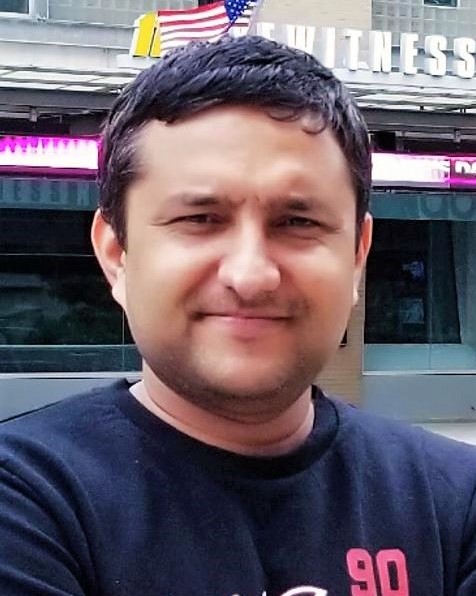 Dr. Sangeet Lamichhaney
Dr. Sangeet Lamichhaney
Assistant Professor
Department of Biological Sciences
Kent State University
https://theomicslab.wordpress.com/
Twitter: @meetsangeet
Start date: August, 2019
PhD: Uppsala University, Sweden; Advisor: Prof. Leif Andersson.
Postdoc: Harvard University; Advisor: Prof. Scott Edwards.
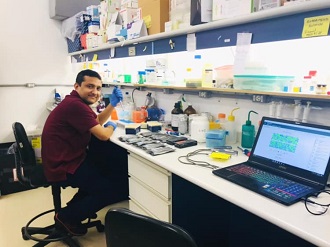
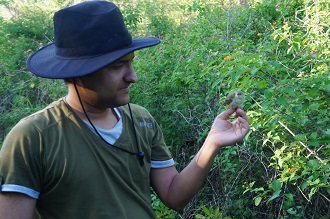
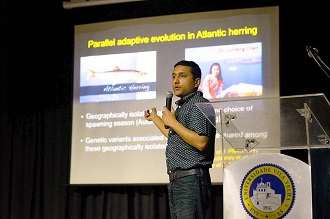
This profile is part of a series of New Faculty Profiles that highlight and introduce up-and-coming PIs in SSE. We invite highlighted faculty to discuss their research, describe how SSE has impacted their career, and share any tips or stories they may have for other researchers.
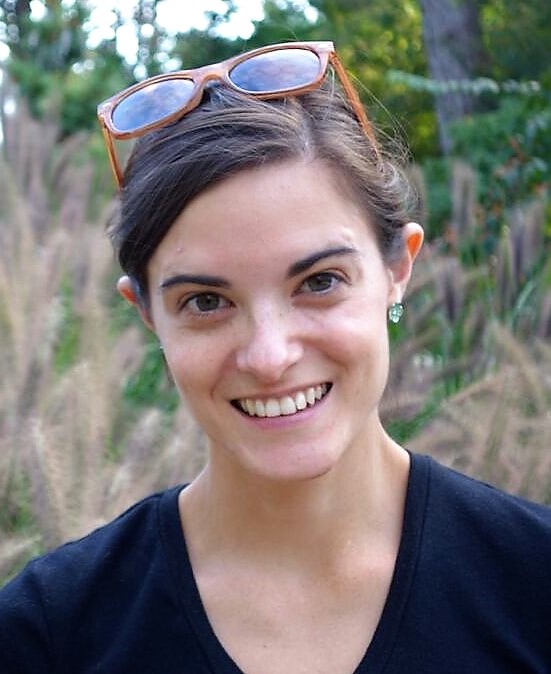 Corlett Wood
Corlett Wood
Assistant Professor
Biology
University of Pennsylvania
https://www.the-wood-lab.net/
Twitter: @corlettwwood
Start date: July 2020
PhD: University of Virginia; Advisor: Butch Brodie.
Postdoc: University of Toronto; Advisor: John Stinchcombe.
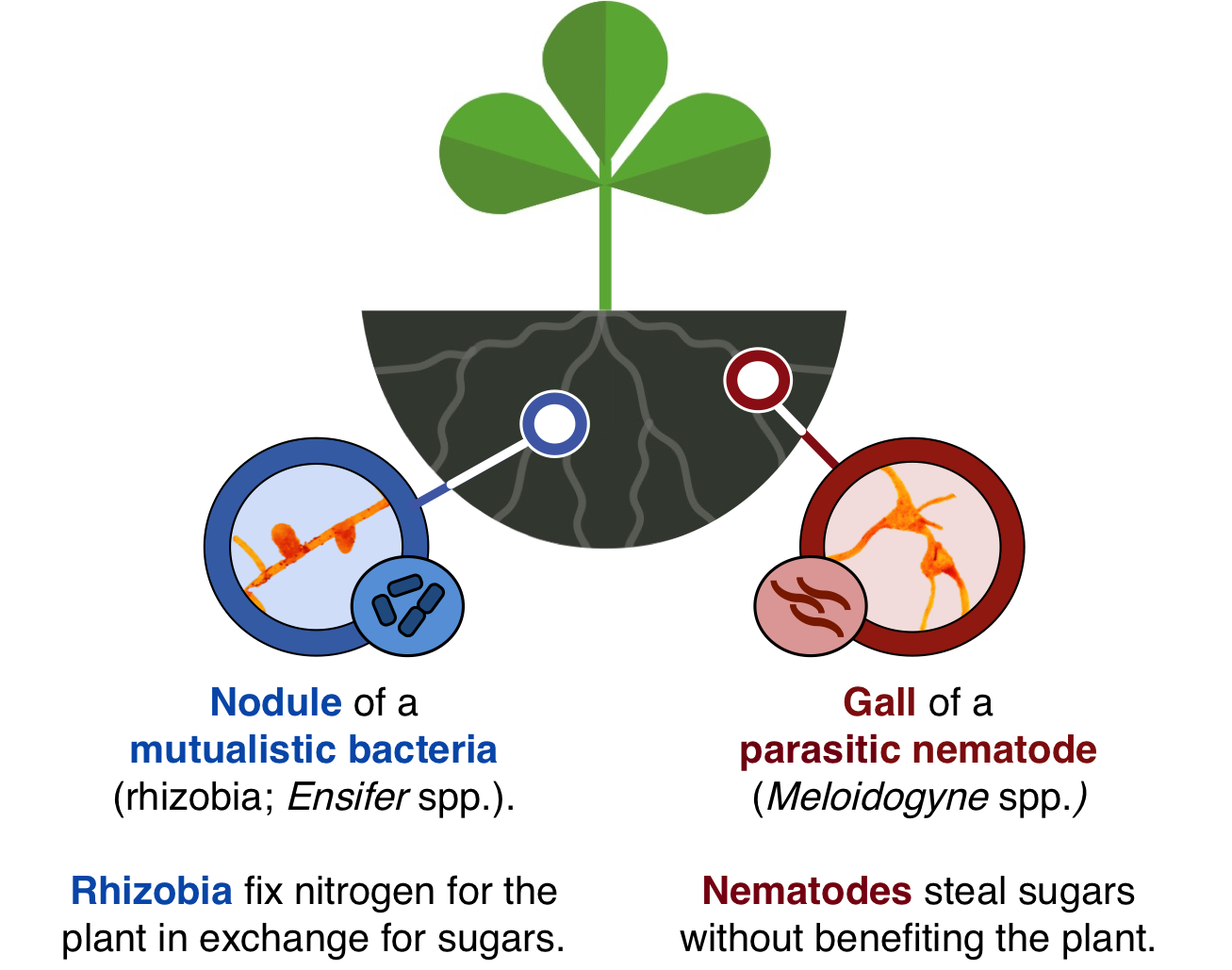
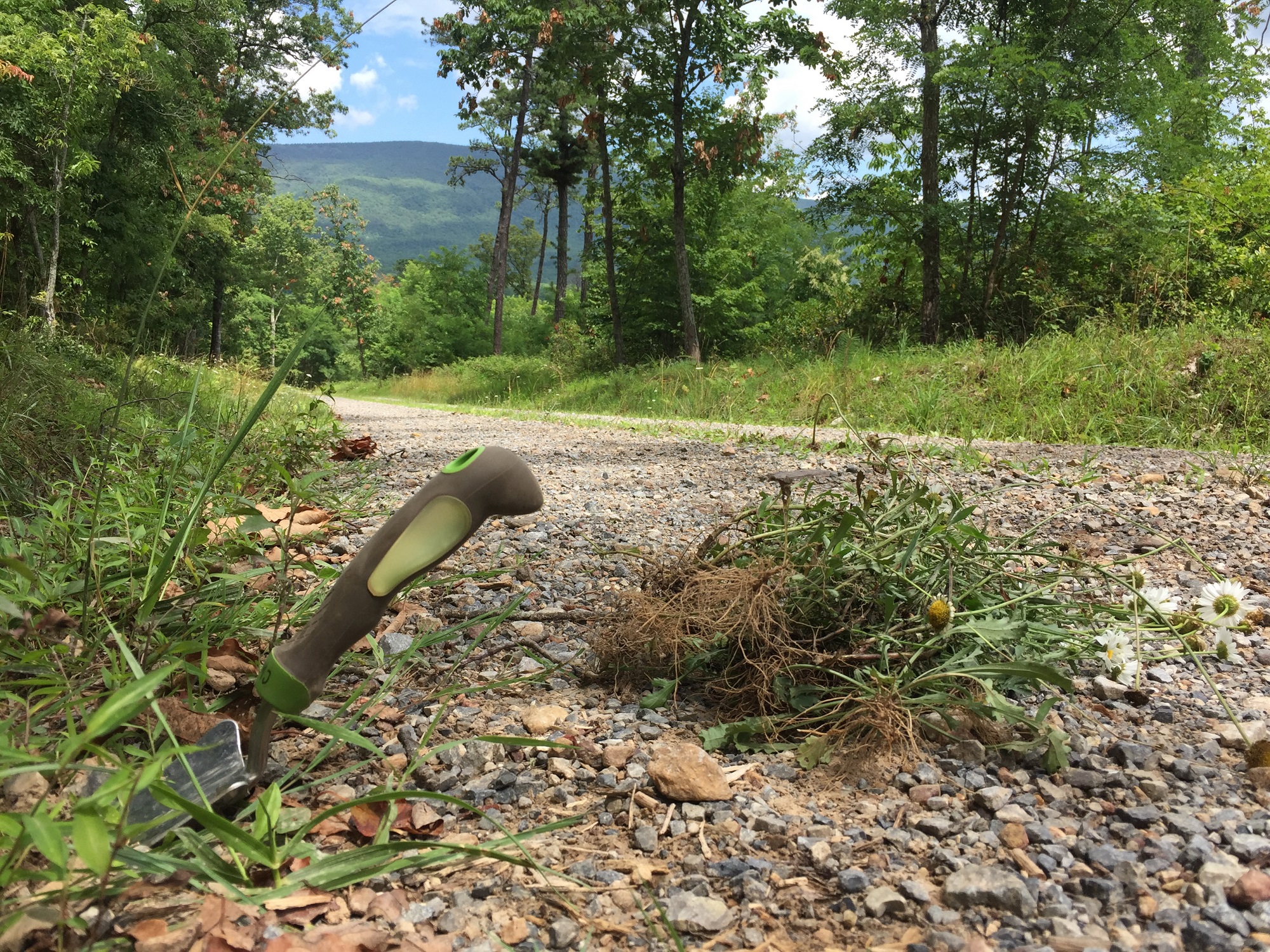
This profile is part of a series of New Faculty Profiles that highlight and introduce up-and-coming PIs in SSE. We invite highlighted faculty to discuss their research, describe how SSE has impacted their career, and share any tips or stories they may have for other researchers.
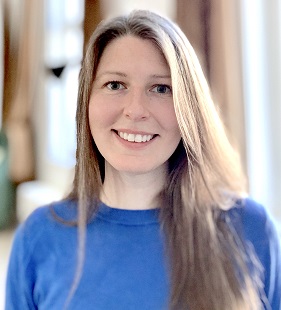 Jacqueline Sztepanacz
Jacqueline Sztepanacz
She/her/hers
Assistant Professor
Ecology and Evolutionary Biology
University of Toronto
Website: https://sztepanacz.eeb.utoronto.ca/
Twitter: ;@jsztepanacz
Start date: July 2019
Masters: University of Ottawa; Advisor: Howard Rundle.
PhD: University of Queensland; Advisor: Mark Blows.
Postdoc: Florida State University; Advisor: David Houle and Thomas F. Hansen (University of Oslo).
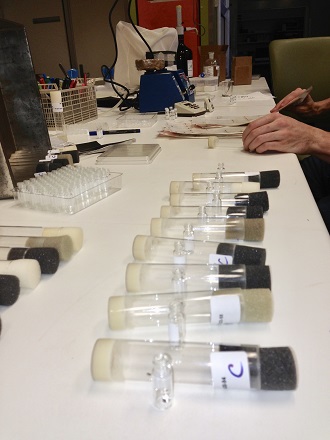
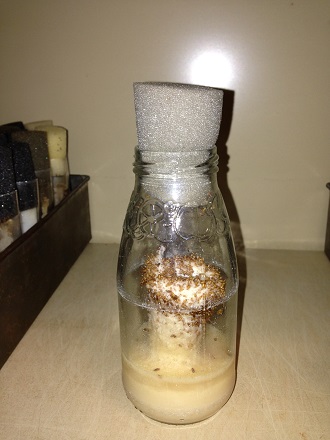
This profile is part of a series of New Faculty Profiles that highlight and introduce up-and-coming PIs in SSE. We invite highlighted faculty to discuss their research, describe how SSE has impacted their career, and share any tips or stories they may have for other researchers.
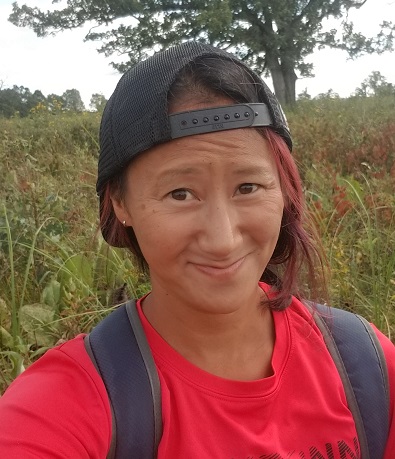 Nora Mitchell
Nora Mitchell
She/her/hers
Assistant Professor
Biology
University of Wisconsin - Eau Claire
Website: noramitchell.weebly.com
Twitter: @nora_flora10
Start date: September 2019
Undergraduate: Williams College; Advisor: Joan Edwards.
PhD: University of Connecticut; Advisor: Kent Holsinger.
Postdoc: University of New Mexico; Advisor: Ken Whitney.
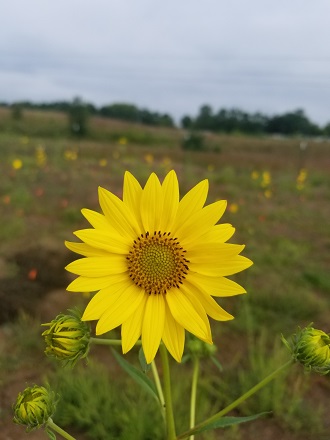
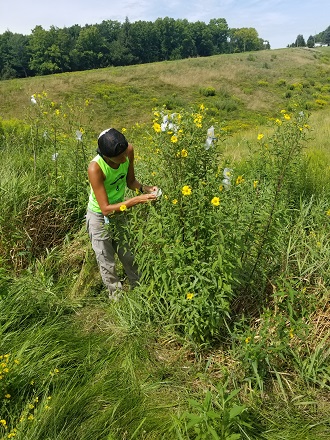
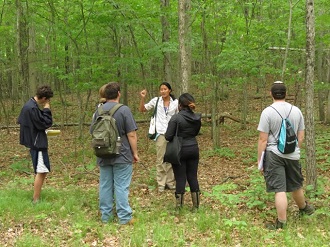
The Evolution Highlights series highlights some of the interesting and varied papers published within the last few years in Evolution. The goal of these Evolution Highlights is to let our readers learn more about how the highlighted study came into existence, and to invite the authors to share stories and tips from the perspective of a recently published author. We welcome nominations and self-nominations for the Evolution Highlights. Find out how to submit a paper here.
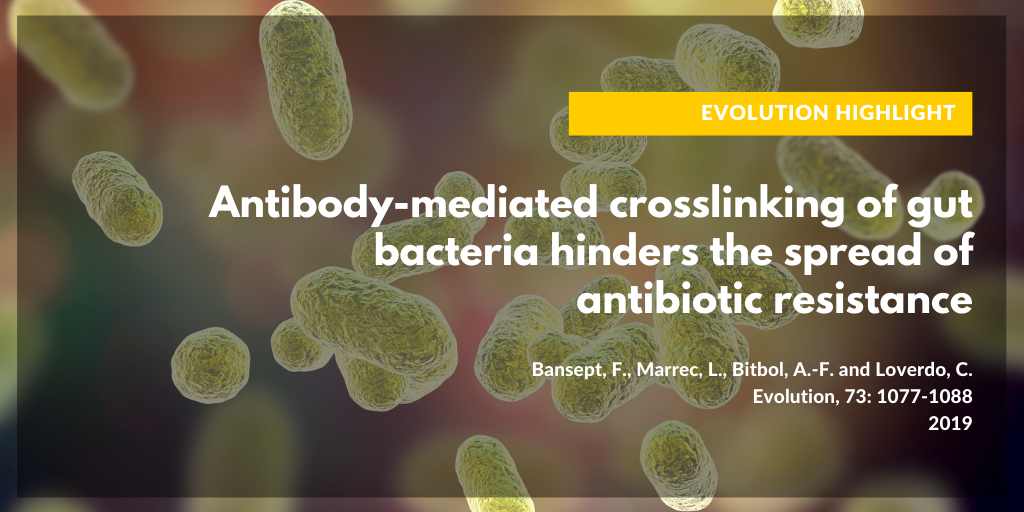
"Antibody-mediated crosslinking of gut bacteria hinders the spread of antibiotic resistance"
Evolution 73-6: 1077-1088 (2019)
https://onlinelibrary.wiley.com/doi/abs/10.1111/evo.13730
Abstract:
The body is home to a diverse microbiota, mainly in the gut. Resistant bacteria are selected by antibiotic treatments, and once resistance becomes widespread in a population of hosts, antibiotics become useless. Here, we develop a multiscale model of the interaction between antibiotic use and resistance spread in a host population, focusing on an important aspect of within‐host immunity. Antibodies secreted in the gut enchain bacteria upon division, yielding clonal clusters of bacteria. We demonstrate that immunity‐driven bacteria clustering can hinder the spread of a novel resistant bacterial strain in a host population. We quantify this effect both in the case where resistance preexists and in the case where acquiring a new resistance mutation is necessary for the bacteria to spread. We further show that the reduction of spread by clustering can be countered when immune hosts are silent carriers, and are less likely to get treated, and/or have more contacts. We demonstrate the robustness of our findings to including stochastic within‐host bacterial growth, a fitness cost of resistance, and its compensation. Our results highlight the importance of interactions between immunity and the spread of antibiotic resistance, and argue in the favor of vaccine‐based strategies to combat antibiotic resistance.
Evolution Highlight by Anne-Florence Bitbol and Claude Loverdo (joint interview)
Institute of Bioengineering, School of Life Sciences, EPFL (Anne-Florence Bitbol)
Laboratoire Jean Perrin, Institut de Biologie Paris-Seine, CNRS & Sorbonne Universite (Claude Loverdo)
The Evolution Highlights series highlights some of the interesting and varied papers published within the last few years in Evolution. The goal of these Evolution Highlights is to let our readers learn more about how the highlighted study came into existence, and to invite the authors to share stories and tips from the perspective of a recently published author. We welcome nominations and self-nominations for the Evolution Highlights. Find out how to submit a paper here.
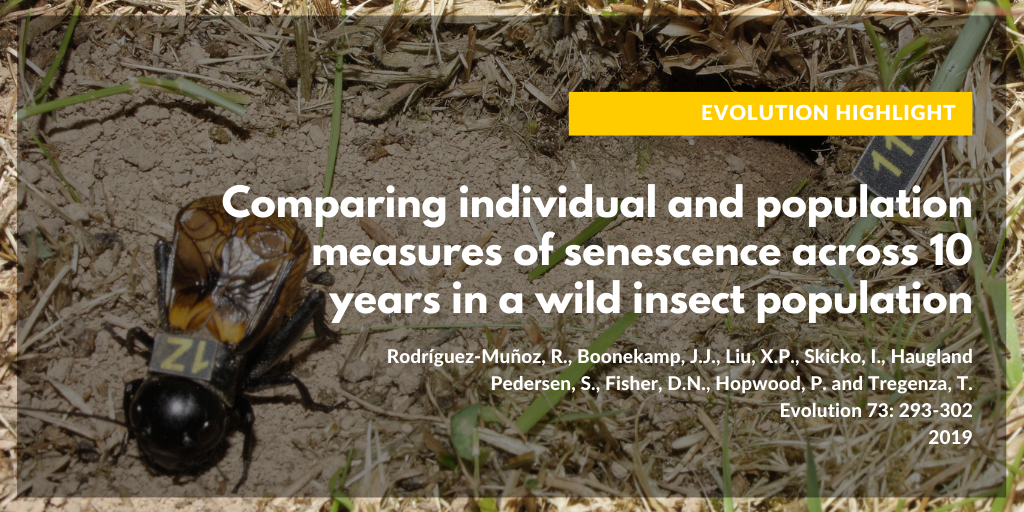
"Comparing individual and population measures of senescence across 10 years in a wild insect population"
Rodríguez‐Muñoz, R., Boonekamp, J.J., Liu, X.P., Skicko, I., Haugland Pedersen, S., Fisher, D.N., Hopwood, P. and Tregenza, T. (2019), Comparing individual and population measures of senescence across 10 years in a wild insect population. Evolution, 73: 293-302. doi:10.1111/evo.13674
https://onlinelibrary.wiley.com/doi/full/10.1111/evo.13674
Abstract:
Declines in survival and performance with advancing age (senescence) have been widely documented in natural populations, but whether patterns of senescence across traits reflect a common underlying process of biological ageing remains unclear. Senescence is typically characterized via assessments of the rate of change in mortality with age (actuarial senescence) or the rate of change in phenotypic performance with age (phenotypic senescence). Although both phenomena are considered indicative of underlying declines in somatic integrity, whether actuarial and phenotypic senescence rates are actually correlated has yet to be established. Here we present evidence of both actuarial and phenotypic senescence from a decade‐long longitudinal field study of wild insects. By tagging every individual and using continuous video monitoring with a network of up to 140 video cameras, we were able to record survival and behavioral data on an entire adult population of field crickets. This reveals that both actuarial and phenotypic senescence vary substantially across 10 annual generations. This variation allows us to identify a strong correlation between actuarial and phenotypic measures of senescence. Our study demonstrates age‐related phenotypic declines reflected in population level mortality rates and reveals that observations of senescence in a single year may not be representative of a general pattern.
Evolution Highlight by Tom Tregenza
Centre for Ecology and Conservation, University of Exeter, Pernyn Campus
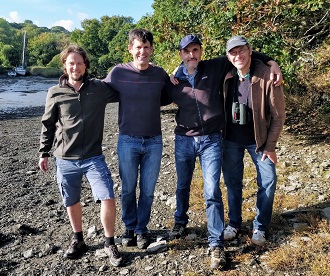
WildCrickets research group
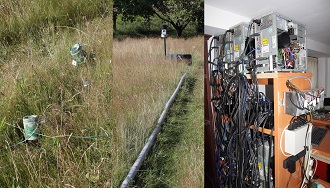
Data collection
This profile is part of a series of New Faculty Profiles that highlight and introduce up-and-coming PIs in SSE. We invite highlighted faculty to discuss their research, describe how SSE has impacted their career, and share any tips or stories they may have for other researchers.
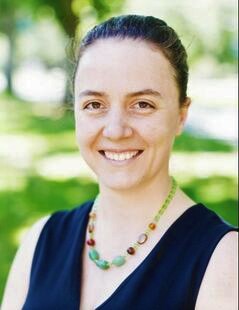 Brook T. Moyers
Brook T. Moyers
Assistant Professor
Biology
University of Massachusetts Boston
http://moyerslab.science/
@brooklebee
Start date: January 2019
PhD: University of British Columbia; Advisor: Loren Rieseberg.
Postdoc: Colorado State University; Advisor: John McKay.
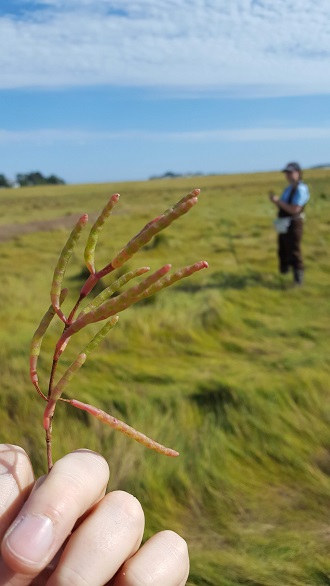
This profile is part of a series of New Faculty Profiles that highlight and introduce up-and-coming PIs in SSE. We invite highlighted faculty to discuss their research, describe how SSE has impacted their career, and share any tips or stories they may have for other researchers.
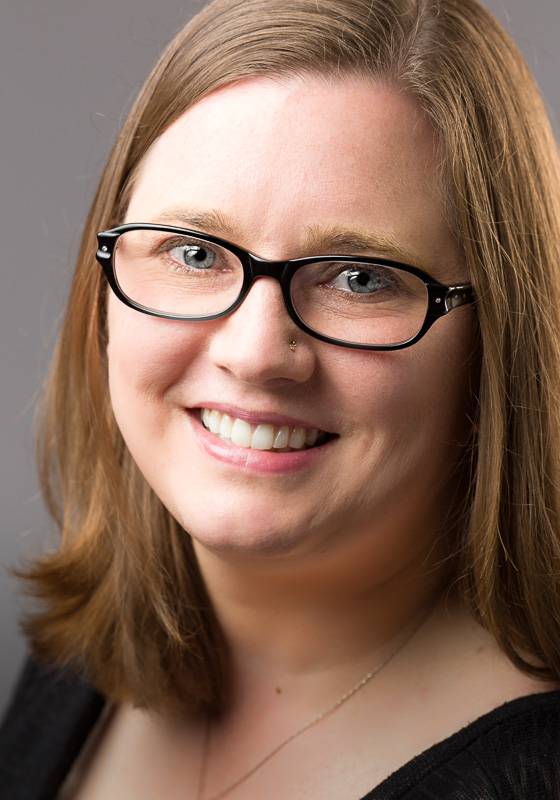 Janna Willoughby
Janna Willoughby
she/her
Assistant Professor
School of Forestry and Wildlife Sciences
Auburn University
http://wp.auburn.edu/willoughbylab/
;@JannaWilloughby
Start date: August, 2019
PhD: Purdue University; Advisor: Andrew DeWoody.
Postdoc: Purdue University; Advisor: Mark Christie.
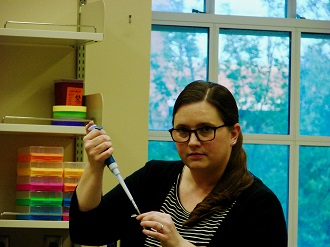
This profile is part of a series of New Faculty Profiles that highlight and introduce up-and-coming PIs in SSE. We invite highlighted faculty to discuss their research, describe how SSE has impacted their career, and share any tips or stories they may have for other researchers.
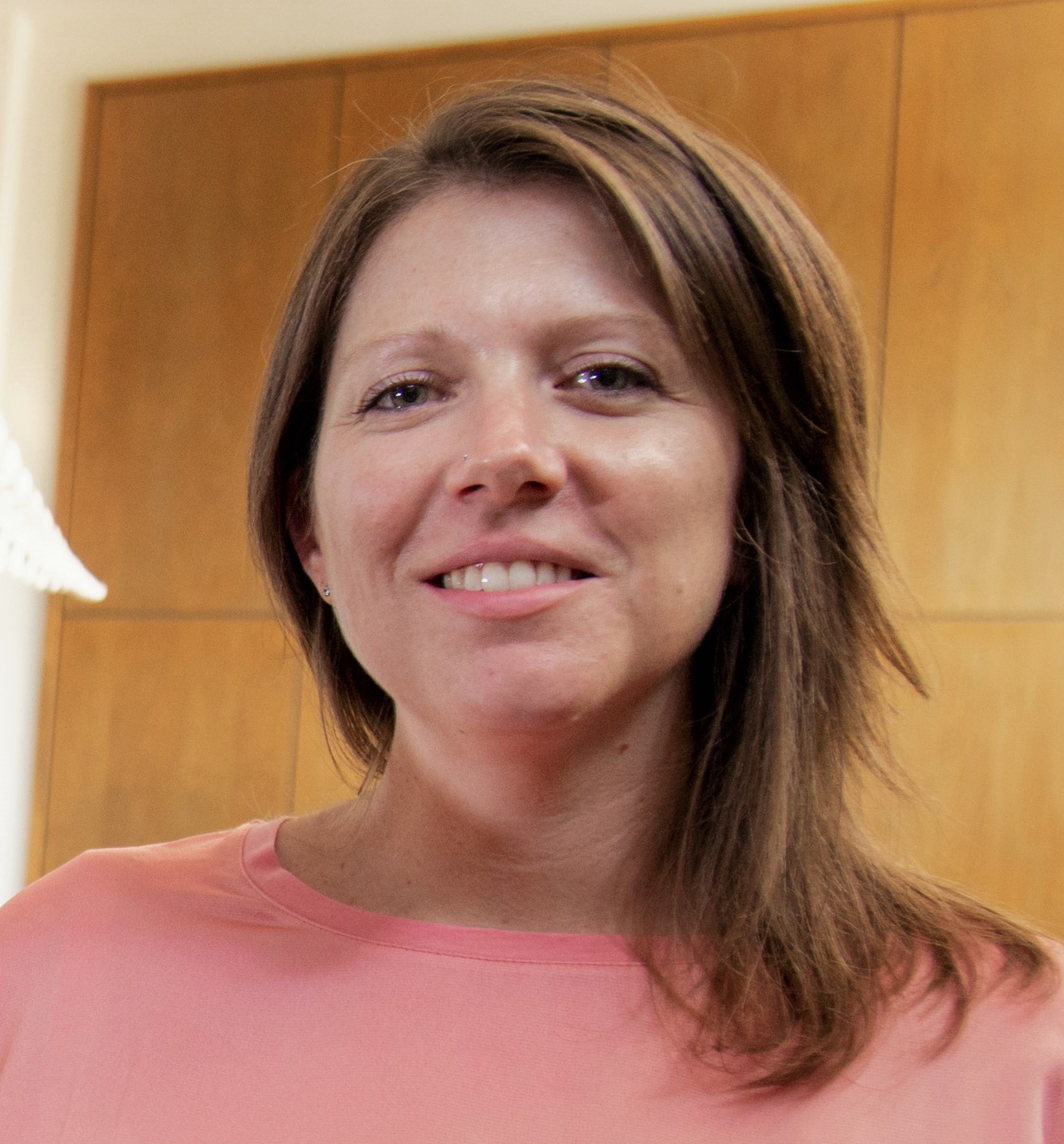 Kate Laskowski
Kate Laskowski
she/her
Assistant Professor
Evolution & Ecology
University of California Davis
;@KateLaskowski
https://laskowskilab.faculty.ucdavis.edu/
Start date: September 2019
PhD: University of Illinois; Advisor: Alison Bell.
Postdoc: Leibniz Institute of Freshwater Ecology & Inland Fisheries; Advisor: Max Wolf, Jens Krause, Thomas Mehner.
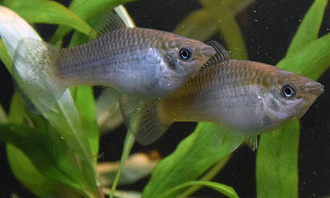
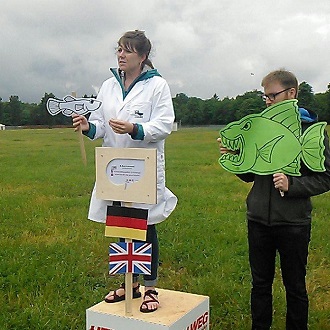
The Society for the Study of Evolution announces the election of officers and Council members to be in place on January 1, 2022. The election will be conducted online from September 15 through September 29. You can learn more about each position's duties and responsibilities in the SSE Officers Handbook.
Click each candidate's name to jump to their statement and a link to their CV. Once you have made your choices, access the ballot to cast your vote by clicking the "Vote Now" button or clicking this link. Thank you for your participation!
President-Elect: Victoria Sork, Kelly Zamudio,
Non-North American Vice President: Hanna Kokko, Enrico Rezende
Treasurer: Courtney J. Murren
Councilors: Robin Tinghitella, Noah Whiteman, Christopher Balakrishnan, Regina Baucom, Daniel Bolnick, Angélica Cibrián-Jaramillo
DEADLINE: September 29, 2021 at 11:59 PM EDT (UTC-4:00)
Victoria Sork, Department of Ecology and Evolutionary Biology and Institute of the Environment, University of California Los Angeles
View CV
It is an extreme honor to be nominated to serve as President of the Society for the Study of Evolution, a society that is about to observe its 75th Anniversary. Its title captures its mission and its journal published high quality articles in all areas of evolutionary biology. Early in my career, I decided that this society offered me the scientific identity that underlies my research in plant conservation, evolutionary ecology, and evolutionary genomics. Its annual meetings are the ones where I felt the most community, and its council members, executives, and presidents have included my closest colleagues and friends. The society governance has always been effective in advancing excellence in research evidenced by high quality journals and annual meetings and expanding membership. Over the years, the role of the President has expanded from a focus on scientific leadership to one of social responsibility. Like other areas of the academia, especially in the sciences, the demographic composition of our community does not represent that of society and I am proud that SSE is engaged in an agenda of diversity, equity and inclusion (DEI). It is equally important that SSE leadership join other societies to participate in public discourse on the social crises of our day, such as rapid climate change, spread of endemic diseases, and loss of biodiversity. Somehow, we need to play a role in enhancing public respect for science-based policies around these and other issues where evolutionary insight is so central. The next President of SSE must be committed to these challenges, and I would be privileged to assume that responsibility.
As SSE President, I would prioritize three areas. First, the society has many ongoing activities and standing committees. I would engage with these efforts to ensure that we are making progress. In particular, I would review the editorial priorities for the journals and the breadth of high-quality papers but represents both the emerging areas of evolutionary biology and also those provide the scientific evidence for addressing societal problems where evolutionary insight will enhance public policy. Second, I would review the recently established DEI activities to assess their effectiveness and explore new practices to enhance the demographic composition of evolutionary biologist in academic and other professional careers. Third, I would work with leadership in other evolutionary and biological professional society to promote the use of evolutionary biology in the development of public policy and public discourse. The anti-intellectual attitudes of a significant portion of our society and leadership has undermined our effectiveness in reducing the human causes of climate change and the spread of COVID19. In addition, I would also utilize the networks of the American Academy of Arts and Sciences to promote SSE’s contribution to Professional societies must collaborate with other professional societies that are lobbying for evidence-based policies as well as funding for evolutionary research that provides the foundations for understanding nature and its conservation.
During my career, I have benefitted from many experiences that I would bring to the position. In the past, I served on the editorial board of Evolution, was Treasurer for the American Society of Naturalist, and participated in numerous NSF review panels. I am a Senior Associate Editor for Molecular Ecology and editor for Molecular Biology and Evolution. My current research integrates landscape and evolutionary genomics with quantitative genetics of phenotypic traits to understand how local adaptation and phenotypic plasticity shape response of oak populations to rapidly warming climates. This research has let to my concern about evolutionary applications and science policy. As Dean of Life Sciences at UCLA for eleven years, I led several successful initiatives to promote diversity and equity and build inclusive classrooms. During this time, the number and percent of African-American and Latinx undergraduate biology majors, bioscience graduate students, and life science faculty has increased significantly at UCLA. As a fundraiser, I have learned communication skills needed to articulate the societal impact of biological research. Realizing that everyone nominated for leadership positions at SSE has a unique set of experiences that will advance the goals of SSE, I have humbly accepted this nomination in the event that my particular background would be helpful at this time when our professional societies must engender an agenda of social engagement as well as academic excellence.
Back to top
Kelly R. Zamudio, Department of Integrative Biology, University of Texas, Austin
View CV
I am honored to be considered for the Presidency of the Society for the Study of Evolution (SSE). The SSE serves an engaged and highly active group of researchers and educators, and I would be proud to serve this community. More than ever, scientific societies play vital roles in supporting research communities, promoting and streamlining inclusive participation in science, and in publicizing the importance of science to society at large.
My past service provides me with the experience and skills to effectively work toward these goals in SSE. My previous professional service has included serving as a Program Officer at NSF, where I helped with granting in the Systematics and Biodiversity Cluster, but also work on programmatic efforts to enhance funding in interdisciplinary and international research. The NSF has re-doubled their efforts in promoting cultural change in academia through societies – and this is an excellent time to be thinking about big ways in which SSE can make that difference. I also currently serve as the President of the American Genetic Association (AGA) and have served on its Council. I served on the AGA EECG Research Awards committee (awarded to graduate students and postdocs), and on the AGA DEI committee, and I am currently organizing the President’s Symposium for 2021. Additionally, I have a long history of actively supporting diversity and inclusion efforts. I have dedicated much of my service effort toward improving our workplaces and increasing opportunities for a diverse community. In 2017 the three evolution societies founded the Code of Conduct Committee, and as a founding member, I helped produce a set of standards and response procedures that now have been vetted by society leadership and implemented at annual meetings. We now have a series of events, outreach, and explicit norms and expectations all aimed at making our meetings welcoming to all attendees. I also served on the DEI committee of the Society for Systematic Biologists (SSB) and was the SSB representative to the Joint Meeting Council that oversees decisions about our joint annual meetings and policies/procedures implemented there.
As a long-time member of SSE, I would be most honored to use these experiences and skills in service to our society. Thank you for your consideration.
Back to top
Hanna Kokko,Department of Evolutionary Biology and Environmental Studies, University of Zurich, Switzerland
View CV
I felt very honored when I was asked to consider running for the role of the non-North American Vice President in the 2021 elections of the SSE. It feels a particularly important year to consider this role, as the pandemic challenges have made researchers much more sedentary when it comes to international travel — on the other hand, we are getting used to connecting via means that have already existed for a long time, but somehow never felt like the default option until now. I can imagine that the role of a person who does not reside in North America (and has actually never done so, but has nevertheless acquired a lot of scientific friends on that continent) would be to strengthen the global aspect of the SSE.
There are obviously other aspects to a role like that, and bringing in a (partial) ‘outsider’ view. There’s tremendous and welcome emphasis on diversity in our field at the moment, and I could very well bring in expertise that I have gained both as a supervisor and in my various roles in grant funding agencies such as the European Research Council (until 2017, including being the panel chair towards the end of my 8-year period there) and the Swiss National Council, where right now changes and discussions are taking place to ensure that evaluation of scientific careers in competitive settings are as fair and balanced as possible.
One could also extend the relevant discussions to how science might value different topics and approaches, e.g., by having a good healthy discussion of the role of long-term data collection, best open science practices, and taxonomic diversity in our study choices (I have published on these topics, see references below). Generally, what I love about evolutionary biology is that it combines the appreciation of unity of all life – there are processes that take place in every cell, and every life cycle, and can be best understood with model organisms – with an astonishing capacity of evolution to produce diversity. It would be great if our scientific approaches could, when viewed as a whole, embrace these different aspects of what we could study.
Kokko, H. 2017. Give one species the task to come up with a theory that spans them all: what good can come out of that? Proceedings of the Royal Society of London B 284: 20171652.
Meirmans, S., Butlin, R.K., Charmantier, A., Engelstädter, J., Groot, A., King, K.C., Kokko, H., Reid, J.M. & Neiman, M. 2019. Science policies: How should science funding be allocated? An evolutionary biologists’ perspective. Journal of Evolutionary Biology 32: 754-768.
Back to top
Enrico Rezende, Pontifical Catholic University of Chile
View CV
With regards to my priorities and how I may contribute to the SSE as non-North American Vice President, I believe the main contribution would be integration at several levels:
Overall, my impression is that I can contribute with the SSE by establishing a communication bridge with Latin America and, hopefully, by providing a valuable role model and high standards of excellence for young Latin American researchers. Being able to bring international researchers to do field work in South America would also be crucial to improve the quality of the education of young researchers. Finally, stronger academic voices are currently needed in South America given the current political scenario (e.g., last year I helped remove one of Bolsonaro's Minister of Education following a plagiarism scandal, links in the CV), and the association with the SSE provides a degree of respectability that may be important for the general public and/or policymakers around here.
Back to top
Courtney J. Murren, Department of Biology, College of Charleston
View CV
I am honored to have been nominated for the Treasurer position at the Society for the Study of Evolution (SSE). As a non-profit organization, the Society for the Study of Evolution can effect change and provide leadership in science through connecting members across institutions and organizations that vary in their emphasis in research, education and outreach.
I am interested in serving as SSE Treasurer, as I have experience serving on campus faculty-senate budget and compensation committees at my public institution. I contributed to evaluation of policy and assessed how budgets align with overall institution strategic plans. I have also had the privilege to serve on committees for the annual Evolution conference and the liaison committee for American Society of Naturalists. Both committees included budgetary aspects and budget parameters contributed to decision making. Budgets reflect many aspects of institutional mission and provide opportunities for evaluation of organization priorities as well as to institute change in accordance with the mission.
The SSE Treasurer position is an opportunity to give back to my professional society. This includes contributing to organization health by following SSE financial policies and procedures, and by reporting on budget activities and their alignment with SSE strategic goals. This also includes expanding ongoing efforts of the society by developing budget policies furthering support for students and early-career scholars, and by furthering activities that enhance inclusive, diverse, and climate-informed actions. Finally, I would maintain responsible financial stewardship established by prior society officers.
Back to top
Robin M. Tinghitella, Department of Biological Sciences, University of Denver
View CV
I am delighted to be nominated to serve as a Council Member for the Society for the Study of Evolution (SSE). Professional societies play a pivotal role in career development and advancement, help us to communicate and publicize important work and its policy implications, and promote connection and collaboration among diverse groups of scientists. I am pleased to say that the SSE has felt like home to me throughout my career, as I’ve attended meetings to share my own work as a graduate student, postdoc, and now a faculty member and mentor. I would be honored to give back to a society that has shown its continued support of early career researchers and commitment to inclusivity and equity. As a member of the Council, I would love to work with and learn from SSE officers and committee members, especially the Graduate Student Advisory Committee, the Education and Outreach Committee, the Diversity Committee, the International Committee, and others. My experiences as a student at a primarily undergraduate institution and as a faculty member at the University of Denver (DU) will allow me to share the perspectives of and advocate for society members who are from less established research universities and programs, but still do awesome things for our field.
As a member of the SSE Council, I would be particularly interested in continuing to expand the successful work being done to foster the careers of budding evolutionary biologists and to promote justice, equity, diversity, and inclusion (JEDI) in evolutionary biology. For me, personally, the most impactful SSE programs have been SAFE Evolution, the Story Collider events, the small grant programs for graduate students, and the Undergraduate Diversity at Evolution program. As part of the SSE Council, I will work to develop ways in which the Society can expand and broaden its support for early career scientists, for instance through peer-to-peer mentorship programs for graduate students, postdocs (who unfortunately often fall through the cracks!), and early faculty. I will also advocate for society-wide initiatives that will improve climate for marginalized groups in evolutionary biology. I would like to see the SSE continue to center accessibility and inclusivity in all discussions. For instance, while I’ve desperately missed seeing friends and colleagues at in-person meetings over the last two years, it seems there is something important we can learn about accessibility from the increased international and student participation at the recent Virtual Evolution meetings. Finally, I am passionate about science communication and recently founded a science communication program aimed specifically at broadening participation. For our work to make a difference at national and global levels we need to foster an early interest in effective science communication and to provide a platform for early career scientists to engage with policy makers and educators. As a Council member I would be interested in finding ways to foster science communication training and practice at Evolution meetings and in offering opportunities for students to share their work with diverse types of audiences.
What qualifications will help me make a meaningful contribution to the SSE?
Contributions to Professional Societies: Over the years I have enjoyed contributing to my academic societies by serving as an Associate Editor for two society journals (including Evolution), volunteering as a mentor for undergraduate and graduate students at meetings, judging student talks and posters (including for the SSE’s W. D. Hamilton Award), reviewing graduate student grants, organizing symposia, and serving on scientific advisory committees. My own lab has benefited immensely from awards like the RC Lewontin Early Award, the Rosemary Grant Award, and Small Grants for Local and Regional Outreach offered through SSE.
Leadership and Service: My primary leadership positions as a faculty member have focused on undergraduate/graduate education, mentorship, and JEDI issues. I served on our Graduate Committee from 2014-19 and Undergraduate Honors Committee from 2014-16, becoming chair of this committee in January 2019. In 2017 I was also elected to the university’s Honors Council. I recently became an inaugural member of DU’s Equity and Racial Justice committee and was one of five hand-picked faculty on a committee charged with developing DU’s first ever faculty mentorship program.
JEDI: My commitment to justice, diversity, equity, and inclusion in life and work is evident in all major areas of my CV: professional appointments, funding, publications, teaching, mentorship, and service and community engagement. I have worked extensively in K-12 classrooms (see Science Education below), sought numerous opportunities to mentor minoritized students through programs like NSMentoring, DU Day of Action, and the E-STEM program of the Colorado-Wyoming Alliance for Minority Participation, co-founded a free summer camp for low-income and minoritized middle school girls, secured NSF funding to support attendance of 20 diverse early-career scientists at an international meeting, mentored a postdoctoral researcher whose work focused exclusively on inequity in STEM, contributed to the writing of a funded ADVANCE grant, and founded a science communication program aimed explicitly at broadening participation in the sciences.
Science Education: As a postdoc, I was project manager for two NSF Graduate Fellows in K-12 Research grants at Michigan State University. Both programs paired graduate students with teachers and K-12 students at underserved rural schools to provide K-12 students with authentic science experiences and improve science communication and teaching skills of graduate student Fellows. These years instilled a strong commitment to science communication as an avenue to engage with my community and exposed me to severe inequities in access to STEM education. Since then, I have continued science education work by publishing case studies and Data Nuggets for use in ecology and evolution courses, establishing an interinstitutional CURE based on my research on the evolution of animal communication (see Ingley et al. in press), and researching how girls’ interest in careers in STEM, perception of science, and scientific self-efficacy are impacted by informal STEM experiences.
Back to top
Noah K. Whiteman, Department of Integrative Biology, University of California Berkeley
View CV
I am honored to be running for the Council of the Society for the Study of Evolution, a society that has played a fundamental role in shaping me as a scientist. The long-standing policy of the SSE that all meeting attendees, including students, are able to have a speaking slot is an example of why it holds such an important place in my scientific heart. Giving junior researchers a voice is the best way to encourage interest in our field and create long-term bonds to the society.
My research group at UC-Berkeley follows from Charles Darwin and Alfred Russell Wallace, who focused on the evolution of new traits shaped by ecological interactions between organisms, whether within or between species. Such interactions are an evolutionary crucible in which new adaptations are forged, increasing the fitness of their bearers. Species interactions can also drive the evolution of reproductive isolation, resulting in the origin of new species. Lately, our work has tended to focus on understanding how toxins mediate species interactions—specifically, how toxins evolve, how they are perceived, resisted and even co-opted by animals. Toxins of biological origin can become keystone molecules, supporting the evolution and integration of diverse phenotypic modules in animals. The evolution of toxicity transforms animals from cryptic to conspicuous, nocturnal to diurnal, small to big, fast to slow, solitary to social, local to widespread, neglectful to doting parents and short- to long-lived. But toxicity is not only restricted to gaudy animals. A parallel transformation unfolded as cells of the animal immune system became armed with an arsenal of novel toxins that we also study.
I was raised deep in the Sax-Zim bog of northern Minnesota, not far from the tiny Finnish township of Toivola, on the “Arctic Riviera.” I attended a K-12 public school with 125 other students in a district spanning hundreds of square miles. I then went to a small college in Minnesota and worked on co-evolutionary genetics of Galápagos hawks and their parasites for my dissertation research with Professor Patricia Parker in St. Louis. I was trained in genomics and molecular biology with Professors Naomi Pierce and Fred Ausubel at Harvard as an NIH NRSA postdoc. Once there, I began to develop a genomic model herbivore of Arabidopsis—a drosophilid fly called Scaptomyza flava that I found in a park living in wild mustards. We continue to study how these flies have adapted to feeding on these mustard oil-bearing plants.
I am running for the SSE Council position because, in addition to all of the exciting science the society supports, I see an opportunity to give back to an organization that I believe has been on the forefront of making biology a more inclusive space. SSE has been a leader in transforming itself into a more equitable and diverse scientific society. Over the past three years, I have been working closely with Genetics Society of America as the first Chair of the GSA Equity and Inclusion (E&I) Committee. As my term comes to an end on that committee, I am excited about the potential to transfer my skills and knowledge to SSE. As part of a new program created by the GSA’s E&I Committee, we recently invited our first cohort of Presidential Members, most of whom will be linked up with the Early Career Leadership Program. The goal is to wholeheartedly welcome and provide career support for junior scientists from historically excluded backgrounds. From grappling with the history of eugenics in our field to the challenges minoritized scientists face at all levels of the academic hierarchy, we have our work cut out for us. I would be very excited to help implement and support similar membership efforts at SSE.
Why am I so passionate about inclusion? I was the first out LGBTQIA+ tenured faculty member in my department at the University of Arizona and the same is true in my home department at the University of California, Berkeley. This may be a little surprising to you—but it isn’t to me. The data show that LGBTQIA+ drop out of STEM majors at higher rates while undergrads. The reasons are manifold, but role modeling is known to help these scientists stay the course. Academia has given me an amazing life. I share here details of my journey simply to provide hope for those who might be able to relate to some aspects of it. It isn't necessarily fun to talk about some of these things. But role models were very important to me as a budding scientist. We need more of them. And if elected to the SSE Council, I hope to continue to be a role model for LGBTQIA+ and first-generation scientists in our community.
Back to top
Christopher N. Balakrishnan, Department of Biology, East Carolina University
View CV
I am honored to have been nominated for the Council of the Society for the Study of Evolution (SSE). I have been a member of the SSE since graduate school and the society has been central to my development as a scientist. At the same time, early in my career I found academic societies difficult to navigate, with somewhat cryptic inner-workings. With this perspective, as a council member I would look forward to cultivating an SSE that continues to support and welcome the next generation of evolutionary biologists.
The covid19 pandemic has caused massive global suffering and the full scope of the impacts won’t be known for some time. The pandemic has, however, uniquely placed evolutionary biology in the public eye. Throughout my career I have sought to improve the public understanding of evolution and science more broadly. As a member of SSE Council I would strive to develop new ways for the society to connect with the public and to amplify the benefits of a robust public understanding of evolutionary biology. As a graduate student, I founded Nerd Nite, now an international series of light-hearted and somewhat irreverent lectures on science and other topics. While I recognize the limitations of Nerd Nite (and other similar events) in terms of the types of audiences they reach, I place an emphasis on thinking creatively about how we can remove barriers to public engagement with evolutionary science.
Over the last two years I have served the evolutionary biology community as a Program Officer at the National Science Foundation. In this position I have had the opportunity to think deeply about the challenges and opportunities for our discipline. During a time of reckoning for the academic community and society at large, it has been inspiring to try to develop new programs to foster a more equitable evolutionary biology and think about how our science can engage a broader community. I have served on Diversity & Inclusion committees at the NSF, my home institution, East Carolina University, and my other primary academic society, the American Ornithological Society. I’d look forward to bringing this experience with me to the council of the SSE.
Back to top
Regina S. Baucom, Ecology and Evolutionary Biology Department, University of Michigan
View CV
I am honored to be nominated for the Society for the Study of Evolution council. I am a long time member of SSE and am deeply appreciative of the role that the society has played during the development of my career as well as the cornerstone role the society plays in the promotion and support of evolutionary research more broadly. The Society for the Study of Evolution has long supported fantastic evolutionary biologists across a variety of subdisciplines, and I am excited by the prospect of serving this community.
The support and promotion of evolutionary biology during extraordinary times. The covid19 pandemic has dealt unparalleled stress to researchers of every career stage but especially to junior scientists. As a community we have experienced dramatic reductions in access to our study sites, our labs, and in the very important day-to-day interactions with other scientists and students. The last year was marked by loss, stress, political strife in the US, and clear and horrible examples of the outright racism that Black and Brown scientists endure. As a community we will need to think very strategically on how best to support scientists that have been especially impacted by the pandemic and social inequities. I am particularly interested in developing mechanisms that will act to retain women in the field who may have shouldered additional care responsibilities in the last year, and scientists from minority backgrounds who may have experienced great losses and extreme stress from pandemic-related events. I am also deeply concerned about the effect that a lack of early formative research experiences may have on undergraduates, especially those from PUIs. As a council member I will think very carefully about how to maintain and promote the study of evolution for everyone while also working to provide access and support for researchers most affected by covid19.
Every stress and problem, however, presents opportunity. The covid19 pandemic provides a highly relevant axis upon which evolutionary biologists can communicate and promote the study of evolution. Whereas the acceptance of evolution by the public is crucial for basic scientific literacy, the recent pandemic provides evolutionary biologists a vehicle through which we can promote our science more generally. As a council member I will support outreach to the public as well as primary and secondary school systems on general evolutionary themes but likewise see a unique role that the society can play in communicating evolutionary science specific to the pandemic.
Promoting equity, inclusion, and justice in the society. SSE has responded in a remarkable way in recent years in efforts to promote and retain scientists from diverse backgrounds. The society enacted initiatives aimed to make meetings a safe place for everyone, and in the last year has made important initial steps to recognize how the historical support of eugenics among notable evolutionary biologists affects who feels welcome in the community. There is still much work to be done, especially with regards to attracting and retaining Black and Brown scientists, supporting members from the global south, and in engineering a climate that feels supportive, welcoming, and comfortable for POC, LGBTQIA, and disabled scientists. As a council member I will center BIPOC voices while continuing to push the evolution community to address structural and societal barriers that influence who enters the field, and additionally who feels most supported and appreciated.
I bring a strong record of society service and past initiatives that have helped to shift the evolution community into a more diverse, just, inclusive, and equitable society. I am the co-creator and maintainer of DiversifyEEB, which is a public list highlighting ecologists and evolutionary biologists who are women and/or underrepresented minorities. The list, begun by myself and Meghan Duffy in 2014, is used by symposium organizers, award and search committees, among others, to identify ecologists and evolutionary biologists who might diversify their candidate pools. Notably, the list was previously used to diversify the pool of associate editors serving the Evolution journal. Additionally, I served as the first chair of the Diversity, Equity and Inclusion committee for the American Society of Naturalists in 2018/2019, and served in the capacity of a committee member from 2019-2021. During this time, I helped develop Safe Evolution (including the meeting Code of Conduct) for the tri-societies (SSE, SSB, ASN), to ensure our meetings are a welcoming and safe atmosphere for all attendees. I also played a key role in bringing the Story Collider to the meetings, and additionally proposed the idea for a society diversity, equity, and inclusion award, which developed into the tri-society IDEA (Inclusiveness, Diversity, Equity, Access) award. I am currently a council member for the American Genetics Association and in this capacity have served on the bylaws committee as well as chair for the EECG Research Awards committee, which are research funds awarded to graduate students and postdocs.
As a long-time member of the Society for the Study of Evolution, I would be thrilled to serve on council and in so doing would focus on ways to strengthen and maintain the study of evolution, especially in the context of current and future stresses stemming from the covid19 pandemic. Thank you for your consideration.
Back to top
Daniel I. Bolnick, Department of Ecology and Evolutionary Biology, University of Connecticut
View CV
The Society for the Study of Evolution (SSE) plays an essential role in facilitating scientific research, inclusive education and career building, and public outreach. I am eager for the chance to serve the society, and the diverse community that it represents, in facilitating these goals. Below, I outline some ideas for how I might serve these goals, and my qualifications for the position.
Promoting research. The SSE already plays key roles in promoting innovative research. The society advocates for federal funding of evolution, and provides its own grants to support early-career scientists (graduate students). It creates spaces for scientists to disseminate their findings at the annual conferences, and through publication in Evolution and affiliated journals. Maintaining these excellent services is a core function of the society. However, there is always room for improvement:
Research ethics training is often left to individual faculty, and often missing from undergraduate and graduate curricula. Some recent high-profile cases of research misconduct in data collection, data archiving, and publishing have highlighted the grave consequences of ethical lapses for the community as a whole. The society, as both a funder and publisher of research, has the opportunity to take a leading role in promoting more extensive and effective education about research ethics. If I were elected to the council, I would make it my priority to establish a program to promote training in research ethics in organismal biology, through conference events or virtual classes made available globally.
Research funding is perpetually a limiting resource, especially after the elimination of the NSF Doctoral Dissertation Improvement Grants (DDIG). I would like to serve as an advocate to the NSF for either restoration of the DDIG, or creative alternative strategies to fill that vital means of supporting graduate student innovation. Increased research funding and salary for undergraduates is also a key to drawing a diverse pool of students into evolutionary science.
Inclusive education and career building. The field of evolutionary biology has a grim history, with its deep connections to eugenics and biological racism. The SSE has made great strides in recent years to counter this legacy, including concrete steps to make its conferences safer and more welcoming (e.g., training of EvoAllies, a role I’ve served at each Evolution and ASN conference since the program began), the outstanding Story Collider series at the meetings, and mentoring programs for minority students at the meetings. There are many paths the society can take to move further in these directions.
One that I am especially passionate about, is making the annual conferences more accessible to a broader array of participants. These meetings are a crucial venue for networking for jobs, and learning about cutting-edge intellectual trends in the field. But, many researchers are cut out of participating due to the cost of attendance, compounded by geographical distance. This exclusion is most severe for individuals with limited funding for travel, or family obligations, who are most likely to be from historically excluded groups or nations. To be inclusive, we need to be creative about rethinking conferences using the lessons learned from the COVID pandemic, to create hybrid models that offer both irreplaceable in-person interactions, and the opportunity for non-attendees to still participate.
Another goal is to use conferences and society-sponsored workshops to promote a more expansive vision of the range of career trajectories. We are a predominantly academic society attended mostly by students and university faculty. Yet, evolutionary biology touches on many applied topics ranging from agriculture to medicine to conservation. Without losing sight of our core goal of research advances, we can do a better job of encouraging a wider array of career paths at our conferences and helping our members learn about and pursue those paths.
Public outreach. Anti-science sentiment is widespread today, and presents a major barrier to sound public policy to deal with many crises that we face today, whether climate change or emerging infectious diseases. Evolution has long been a target of anti-science activists, and our collective experience and lessons learned from this history can be applied to more effectively address anti-science sentiment more broadly. It is crucial that SSE and the individual scientists it represents take a strong stance in advocating for better science education from grade-school through college, and public outreach through media and entertainment. We must engage with influencers and policy makers to address misconceptions, allay concerns, and promote understanding and appreciation of the value of science broadly. Doing this effectively means thinking beyond the bounds of evolutionary biology alone, and establishing collaborative programs with other scientific disciplines facing related challenges.
I first joined the SSE shortly after graduating from college, while I was an education volunteer for the US Peace Corps in Tanzania (1996-98). While there I read every issue of Evolution that made its way to my mailbox, cover to cover. I’ve been a member ever since, and became a prepaid lifetime member about five years ago. I’ve published more articles in Evolution than any other journal (yes, much more even than The American Naturalist). But although I’ve been a devoted member of the society, I’ve devoted far more service to The American Society of Naturalists over the years. I’ve served SSE as an Associate Editor briefly (pausing to serve as Editor of The American Naturalist), and have been trained and served as an EvoAlly at the Evolution meetings. In contrast, I’ve served the ASN extensively as Associate Editor from 2008-2018, Secretary from 2010-2012, Past secretary from 2013-2015, organizer of the first ASN Asilomar meeting in 2014, and Editor-In-Chief from 2018-2022. This service to ASN has frequently brought me into contact with both the SSE council and Evolution’s editorial board, at joint council meetings and other events almost every year for over a decade. But until now I’ve been there to represent ASN. As my term as Editor of The American Naturalist winds down, I am eager to have the opportunity to serve the SSE.
Back to top
Angélica Cibrián-Jaramillo, Ecological and Evolutionary Biology Lab, LANGEBIO, CINVESTAV, Mexico
View CV
I felt greatly honored when I received the invitation to participate as a candidate for the
Council of the Society for the Study of Evolution (SSE). I was also immediately reminded of the strength and solidarity of the SSE academic community. Even in one of the most complicated and challenging years of our generation, the SSE moves forward despite a pandemic, and continues to strengthen the academic community interested in advancing evolutionary studies. As an evolutionary biologist by training and by self-recognition, I am thrilled for the possibility of contributing to advance knowledge in evolution-related research via my Council duties. There is no doubt that the SSE has an exceptional history in this effort. It provides support to scientists in their early formative years as PhD candidates and throughout their trajectory, including early-career scientists. The various awards given by the SSE have significant and positive impact in the trajectories of evolution scholars worldwide and are recognized by all of us even as early and wide-eyed graduate students, as greatly important. As an early scholar (Fulbright and others) from my native Mexico to conduct evolutionary studies at Columbia University, I know that support during graduate school can go a long way.
If elected as a member of the Council, I would support the SSE in favoring education and training that provide early exposure to on-the-ground fieldwork, and hands-on laboratory and bioinformatic work. Early exposure at the undergraduate level and as early as middle school, is critical to build a scientific mind frame and facilitate a deeper understanding of the methods that are used in evolutionary research studies. This is even more important in marginalized academic environments. I have trained and graduated Master and PhD students, and undergrads and high-school students that earned nationallevel recognition in the US.
In terms of early training, in Mexico I headed an effort to incorporate middle school teenagers in understanding how the scientific method is carried out by organizing a lab-based experience. followed by the review process of scientific papers in evolutionary topics that were submitted by established Mexican scientists. The collection of reviewed papers was later published as a special issue in an international journal and kids were able to see their effort in contributing to evolutionary studies. As part of the Tiny-Earth project in the US, and other smaller efforts to incorporate scientific and evolutionary thinking in youth that I participate in, I have learned that a fun, cooperative, hands-on experience is perhaps the best conduit to advance scientific learning over time, and would bring that in my duties in the Council.
In terms of promoting diversity, I would build from my own experience as a Latin- American woman of color who carried out her own research in a welcoming multicultural environment while based in the US. I will promote and advocate for mechanisms that recognize and support bright enthusiastic scholars of diverse backgrounds and institutions. Embedded in each person’s own language and culture is a different and complementary interpretation of nature. A community with a diverse cultural background will therefore result in multiple views of the evolutionary history of organisms and the phenomena that leads to that history. This can only lead to novel scientific discoveries that cannot take place in the absence of diversity. In return, underrepresented peoples’ scientific trajectories can change significantly with the support of, and inclusion in, a research community like the one in SSE. I am grateful to SSE for inviting me to participate as a candidate for the Council, adding to an already diverse society.
I am passionate about changing academia to eliminate and prevent gender violence. I am currently working with an international group of researchers (led by Mandë Holford, CUNY-NYC) to promote and protect women and minorities in STEM. I have begun working on raising awareness in all members of our academic community in my home institution of the great loss to all, when women are marginalized, excluded, or suffer violence within academia. I would hope to continue to promote safe academic spaces for women and change negative gender roles, as a member of the Council.
The recurrent challenge for us evolutionary biologists is that of transmitting the value of evolutionary thinking to society. The COVID19 pandemic has brought evolutionary thought and tools forward into the public light, in particular the relevance of molecular biology and genomics of the Sars-Cov2 virus. Today we have a very interesting and powerful window of opportunity as the conversations about the evolution of genomic variants in a virus leave the halls of academia and enter people’s homes. In 2020, I placed most of my research lines on hold and devoted the entire year to describe the evolutionary genomics of Sars-Cov2 in Mexico to my peers, friends, and neighbors. I had a first-hand experience of emergency outreach of evolution via social media, in seminars, and in person. With more time and planning through the SSE, such efforts jointly with the SSE experience, can become an important component of outreach for evolutionary thinking.
My current and previous professional services in collection-based institutions focused on research and outreach, and my experience coordinating various interdisciplinary international consortia. My work during a decade based in Mexico, and now temporarily based in the Netherlands, have given me enough skills and insight to be able to conduct my duties as a member of the Council Class and service our Society.
I thank you in advance for your consideration, and I would be happy to answer any additional questions or doubts that you may have.
Back to top
This profile is part of a series of New Faculty Profiles that highlight and introduce up-and-coming PIs in SSE. We invite highlighted faculty to discuss their research, describe how SSE has impacted their career, and share any tips or stories they may have for other researchers.
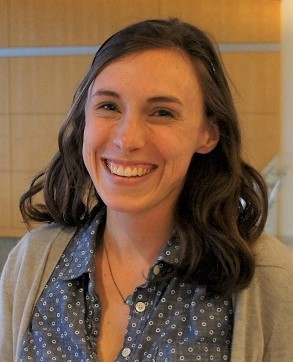 Caiti Smukowski Heil
Caiti Smukowski Heil
she/her/hers
Assistant Professor
Biological Sciences
North Carolina State University
www.heillab.com
Twitter: @caitismuheil
Start date: March 2019
PhD: Duke University; Advisor: Mohamed Noor.
Postdoc: University of Washington; Advisor: Maitreya Dunham.
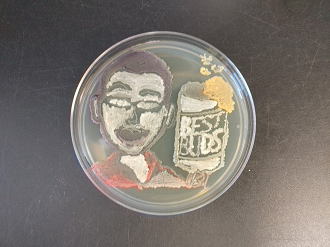
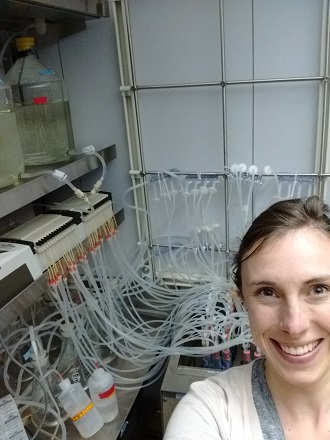
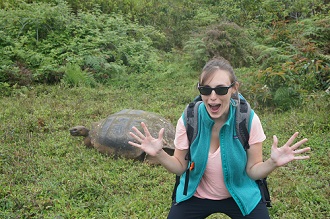
Each month, the Evolution Highlights series will highlight some of the interesting and varied papers published within the last few years in Evolution. The goal of these Evolution Highlights is to let our readers learn more about how the highlighted study came into existence, and to invite the authors to share stories and tips from the perspective of a recently published author. We welcome nominations and self-nominations for the Evolution Highlights. Find out how to submit a paper here.
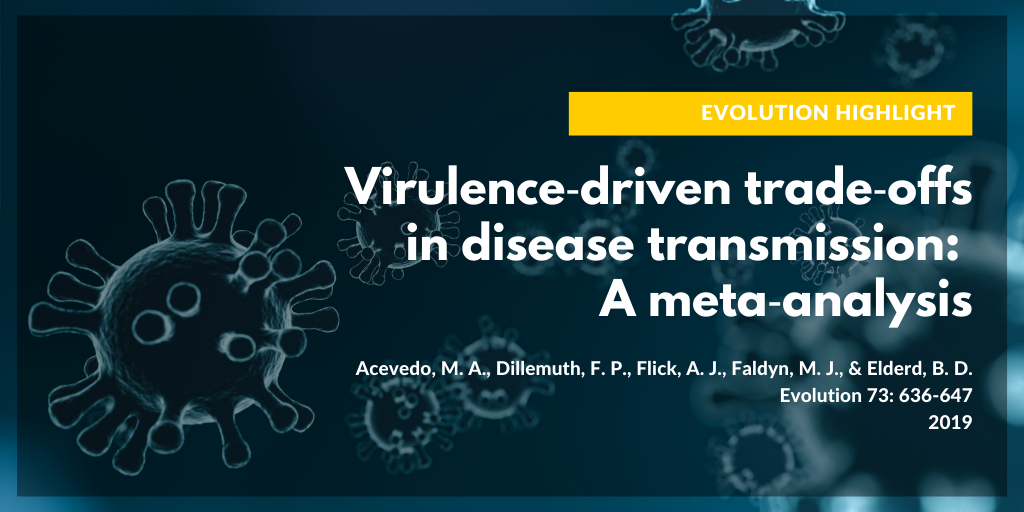
"Virulence-driven trade offs in disease transmission: A meta-analysis"
Acevedo, M. A., Dillemuth, F. P., Flick, A. J., Faldyn, M. J., & Elderd, B. D. (2019). Virulence‐driven trade‐offs in disease transmission: A meta‐analysis. Evolution, 73(4), 636-647.
https://onlinelibrary.wiley.com/doi/full/10.1111/evo.13692
Abstract:
The virulence–transmission trade-off hypothesis proposed more than 30 years ago is the cornerstone in the study of host–parasite co-evolution. This hypothesis rests on the premise that virulence is an unavoidable and increasing cost because the parasite uses host resources to replicate. This cost associated with replication ultimately results in a deceleration in transmission rate because increasing within-host replication increases host mortality. Empirical tests of predictions of the hypothesis have found mixed support, which cast doubt about its overall generalizability. To quantitatively address this issue, we conducted a meta-analysis of 29 empirical studies, after reviewing over 6000 published papers, addressing the four core relationships between (1) virulence and recovery rate, (2) within-host replication rate and virulence, (3) within-host replication and transmission rate, and (4) virulence and transmission rate. We found strong support for an increasing relationship between replication and virulence, and replication and transmission. Yet, it is still uncertain if these relationships generally decelerate due to high within-study variability. There was insufficient data to quantitatively test the other two core relationships predicted by the theory. Overall, the results suggest that the current empirical evidence provides partial support for the trade-off hypothesis, but more work remains to be done.
Evolution Highlight by Miguel Acevedo
Wildlife Ecology and Conservation, University of Florida
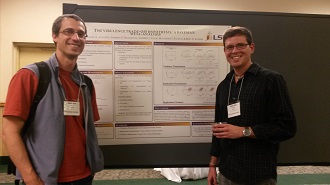
Each month, the Evolution Highlights series will highlight some of the interesting and varied papers published within the last few years in Evolution. The goal of these Evolution Highlights is to let our readers learn more about how the highlighted study came into existence, and to invite the authors to share stories and tips from the perspective of a recently published author. We welcome nominations and self-nominations for the Evolution Highlights. Find out how to submit a paper here.
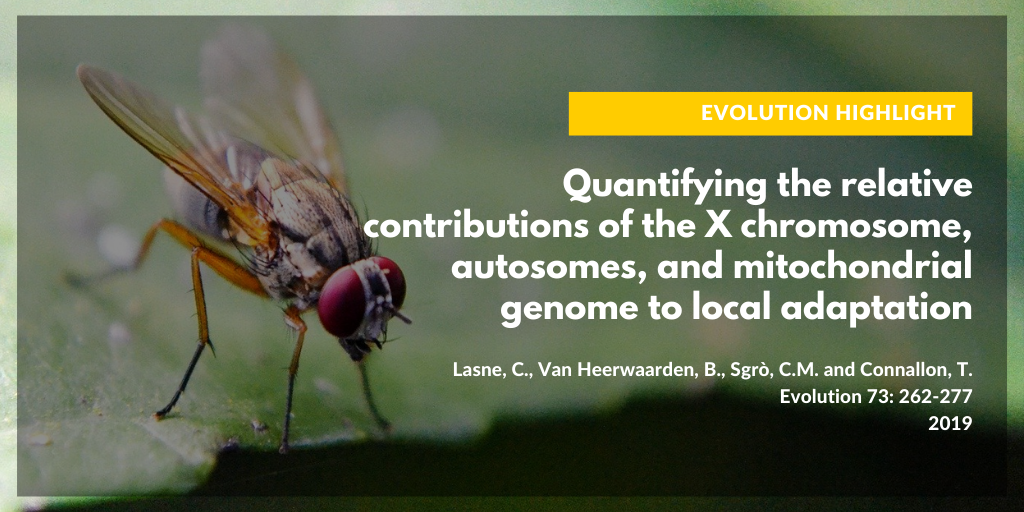
"Quantifying the relative contributions of the X chromosome, autosomes, and mitochondrial genome to local adaptation"
Lasne, C., Van Heerwaarden, B., Sgrò, C.M. and Connallon, T. (2019), Quantifying the relative contributions of the X chromosome, autosomes, and mitochondrial genome to local adaptation*. Evolution, 73: 262-277. https://doi.org/10.1111/evo.13647
https://onlinelibrary.wiley.com/doi/abs/10.1111/evo.13647
Abstract:
During local adaptation with gene flow, some regions of the genome are inherently more responsive to selection than others. Recent theory predicts that X-linked genes should disproportionately contribute to local adaptation relative to other genomic regions, yet this prediction remains to be tested. We carried out a multigeneration crossing scheme, using two cline-end populations of Drosophila melanogaster to estimate the relative contributions of the X chromosome, autosomes, and mitochondrial genome to divergence in four traits involved in local adaptation (wing size, resistance to heat, desiccation, and starvation stresses). We found that the mitochondrial genome and autosomes contributed significantly to clinal divergence in three of the four traits. In contrast, the X made no significant contribution to divergence in these traits. Given the small size of the mitochondrial genome, our results indicate that it plays a surprisingly large role in clinal adaptation. In contrast, the X, which represents roughly 20% of the Drosophila genome, contributes negligibly—a pattern that conflicts with theoretical predictions. These patterns reinforce recent work implying a central role of mitochondria in climatic adaptation, and suggest that different genomic regions may play fundamentally different roles in processes of divergence with gene flow.
Evolution Highlight by Clementine Lasne
Institute of Science and Technology Austria, Institute of Science and Technology Austria
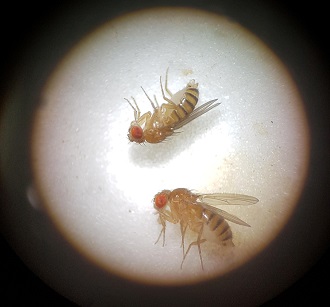
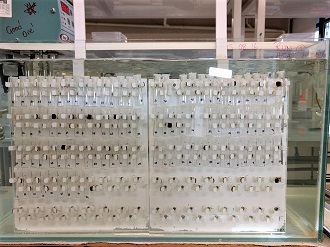
Heat resistance assay set-up
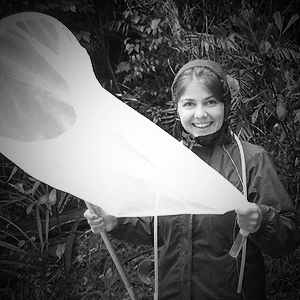
This profile is part of a series of New Faculty Profiles that highlight and introduce up-and-coming PIs in SSE. We invite highlighted faculty to discuss their research, describe how SSE has impacted their career, and share any tips or stories they may have for other researchers.
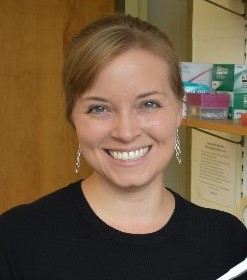 Kathleen (Katie) Grogan
Kathleen (Katie) Grogan
she/her
Assistant Professor
Departments of Anthropology & Biological Sciences
University of Cincinnati
https://sites.google.com/site/kathleengroganphd/home
Twitter: ;@Dr_KatieG1
Start date: August, 2020
PhD: Duke University; Advisor: Christine M. Drea.
Postdoc: Emory University; Advisor: Donna L. Maney. Postdoc at Pennsylvania State University, Postdoc Advisory: George (PJ) H Perry.
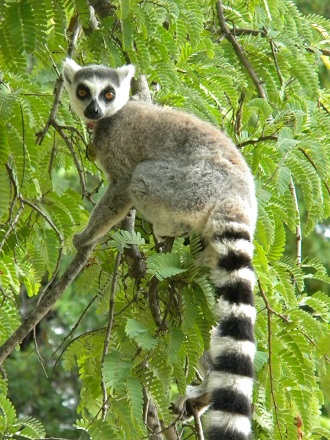
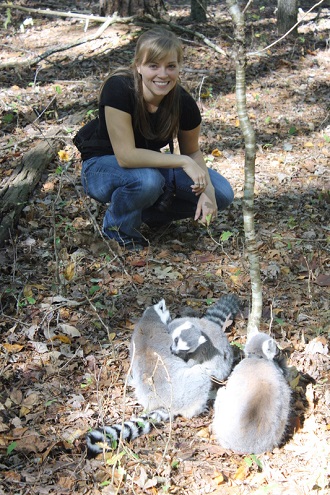
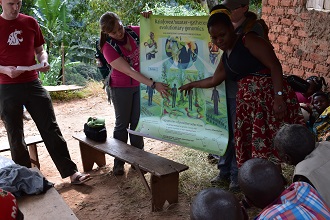
This profile is part of a series of New Faculty Profiles that highlight and introduce up-and-coming PIs in SSE. We invite highlighted faculty to discuss their research, describe how SSE has impacted their career, and share any tips or stories they may have for other researchers.
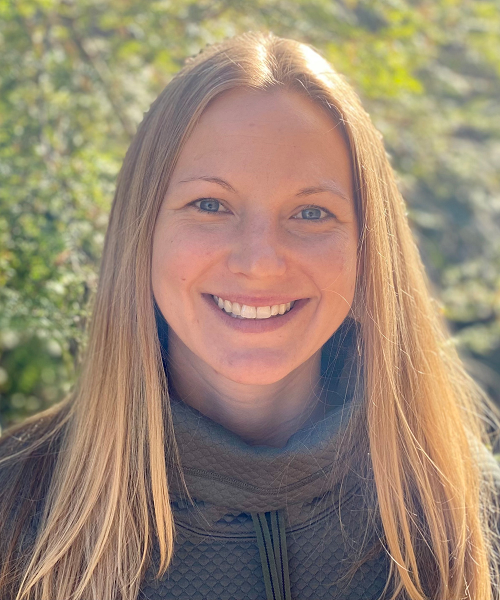 Megan DeMarche
Megan DeMarche
she/her
Assistant Professor
Plant Biology
University of Georgia
http://demarchelab.weebly.com/
Twitter: ;@MeganDemarche
Start date: January 2020
PhD: University of California Santa Cruz; Advisor: Kathleen Kay.
Postdoc: University of Colorado Boulder; Advisor: Dan Doak.
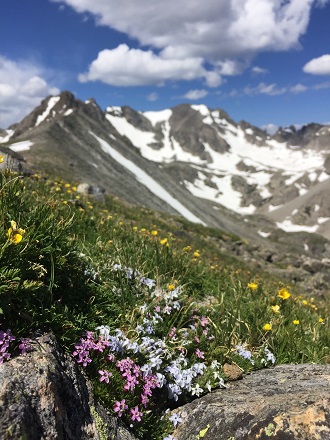
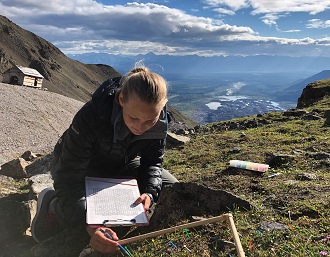
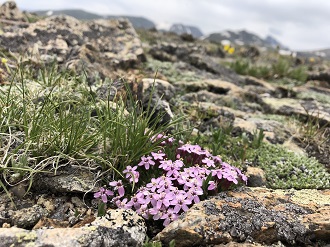
This profile is part of a series of New Faculty Profiles that highlight and introduce up-and-coming PIs in SSE. We invite highlighted faculty to discuss their research, describe how SSE has impacted their career, and share any tips or stories they may have for other researchers.
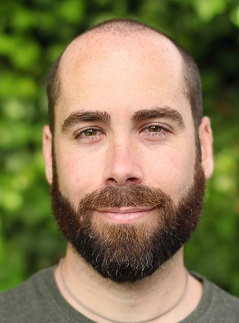 Moisés Expósito-Alonso
Moisés Expósito-Alonso
he/him
Staff Associate & Assistant Professor (by courtesy) of Biology
Plant Biology
Carnegie Institution for Science
Stanford University
moisesexpositoalonso.org
Twitter: MExpositoAlonso
Start date: Sep 2019
PhD: Max Planck Institute for Biology Tübingen; Advisor: Detlef Weigel.
Postdoc: University of California Berkeley; Advisor: Rasmus Nielsen.
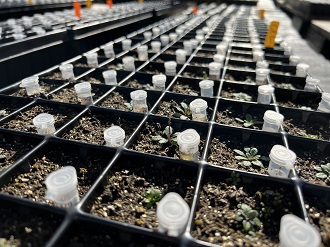
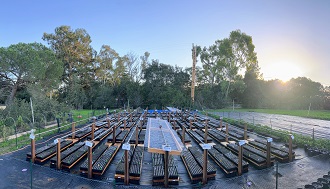
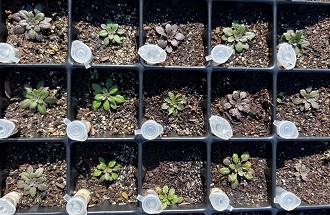
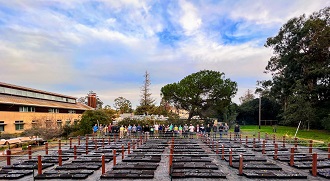
This profile is part of a series of New Faculty Profiles that highlight and introduce up-and-coming PIs in SSE. We invite highlighted faculty to discuss their research, describe how SSE has impacted their career, and share any tips or stories they may have for other researchers.
.jpg) Kara Layton
Kara Layton
she/her
Lecturer in Marine Biology
School of Biological Sciences
University of Aberdeen
https://www.laytonlab.com/
Twitter: ;@molluscular
Start date: April 2020
MSc: University of Guelph; Advisor Dr. Paul Hebert.
PhD: University of Western Australia; Advisor: Dr. Nerida Wilson.
Postdoc: Memorial University of Newfoundland & Bedford Institute of Oceanography; Advisor: Dr. Ian Bradbury.
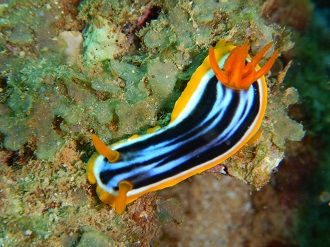
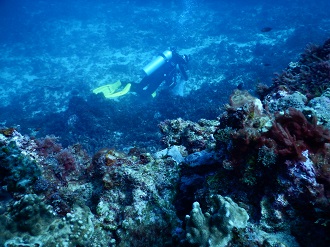
The Society for the Study of Evolution promotes evolutionary biology research, education, application, outreach, and community building in an equitable and globally inclusive manner.
The Society for the Study of Evolution aspires to advance knowledge of evolutionary biology for the benefit of science and society and to cultivate and support a global community of evolutionary biologists.
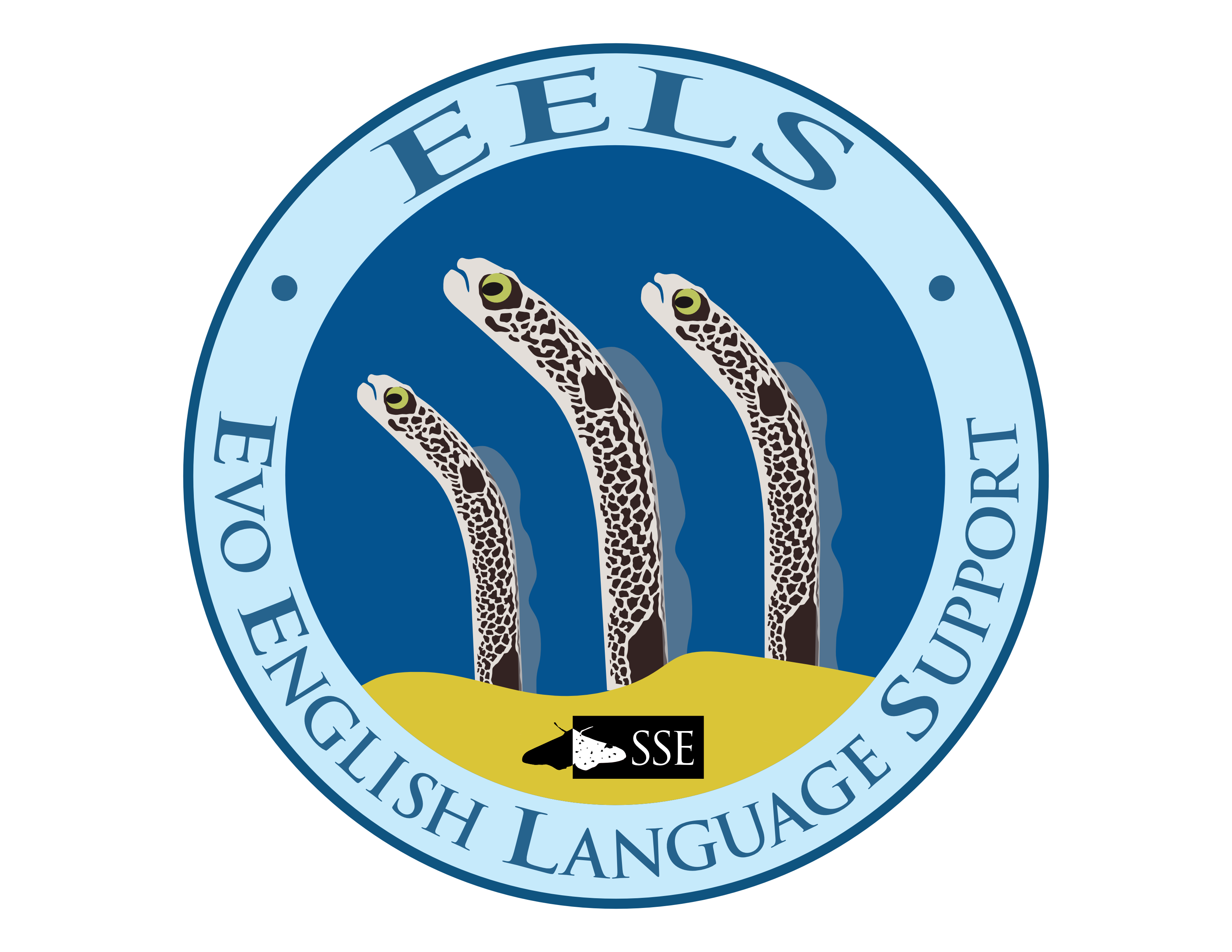
The Evolution English Language Support (EELS) Program offers free, light touch editing for authors submitting to Evolution for whom English is not their preferred language.
Evolution publishes exclusively in English, which can present additional challenges to authors for whom English is an additional language. The EELS Program is intended to help reduce barriers to scientific publishing by providing such authors with an opportunity for additional support.
There are two ways for authors to participate in the EELS program:
In both instances, manuscripts that reach the EELS Coordinator will be assigned to trained EELS Editors, who will have up to two weeks to make light touch edits and converse with the author as needed to improve clarity of the text. Importantly, EELS Editors are not reviewers and will not assess the scientific content of the manuscripts. Your use of EELS for language support is independent of the journal's editorial process and does not guarantee that your manuscript will be externally peer-reviewed by the journal.
This program was conceived by the SSE Diversity Committee and the Evolution Editors, and is based on the Language Editor position at the American Society of Mammalogists. We will assess its effectiveness after a one-year pilot test.
Additional editing services are available through the Oxford University Press author support services. As part of OUP and Evolution’s commitment to increasing the accessibility of scientific knowledge to the broader global community, authors are also encouraged to provide the title and abstract in one or more alternative languages.
Learn more about how to submit to Evolution.
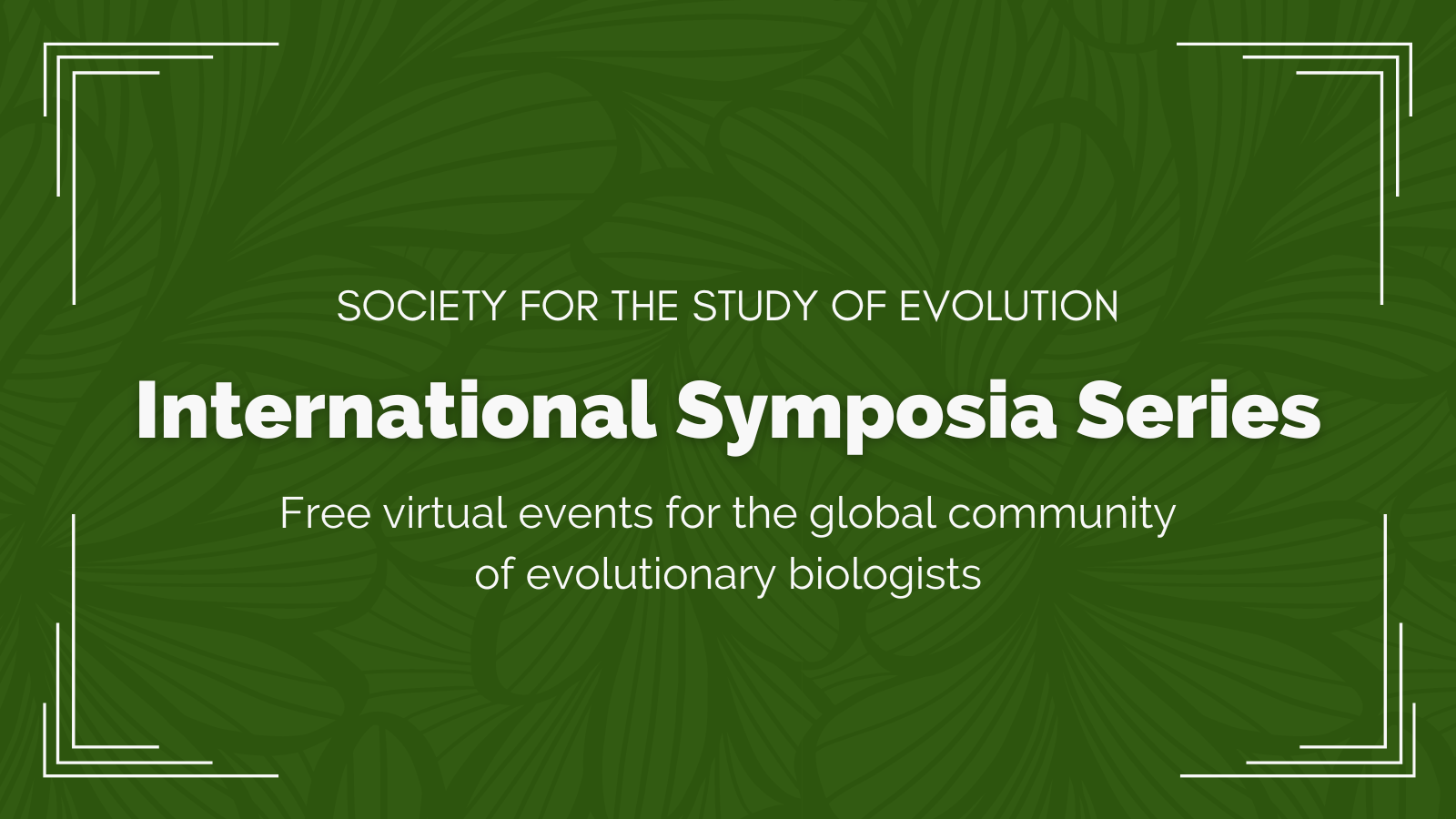
To celebrate the diversity of the international membership and strengthen ties with the global community of evolutionary biologists, the Society for the Study of Evolution (SSE) is hosting a free virtual series of international symposia in different languages and time zones. These symposia are organized by the SSE Graduate Student Advisory Committee (GSAC) in collaboration with local evolutionary biologists.
Each symposium is geared toward an evolutionary biology community in a particular region of the world and features local early career researchers and senior researchers. Talks are presented during local daytime hours in locally used languages with live captioning and translation. Each symposium is followed by a workshop on how to publish in Evolution taught by associate editors from each region.
Registration is free and open to all. Registrants are not required to be members of SSE. Registrants agree to abide by the Safe Evolution Code of Conduct.
October 26, 2022
The first SSE International Symposium was held on Wednesday, October 26, 2022 and was aimed at the Spanish-speaking community in Latin America. The talks were in Spanish with simultaneous Spanish-English translation.
This symposium was organized in collaboration with the Sociedad Chilena de Evolución (SOCEVOL), Asociación Colombiana de Biología Evolutiva (COLEVOL), Sociedad Argentina de Biología Evolutiva (SABE), Red Mexicana de Biología Evolutiva (ReMBE) and Club Eco-Evo Latinoamérica.
See the full list of speakers and talks here.
August 2, 2023
The second SSE International Symposium was held on Wednesday, August 2, 2023 and was aimed at the South Asia community. The talks were in English. This symposium was organized in collaboration with the Indian Society of Evolutionary Biologists (ISEB).
See the full list of speakers and talks here.
November 11, 2023
See the full list of speakers and talks here.
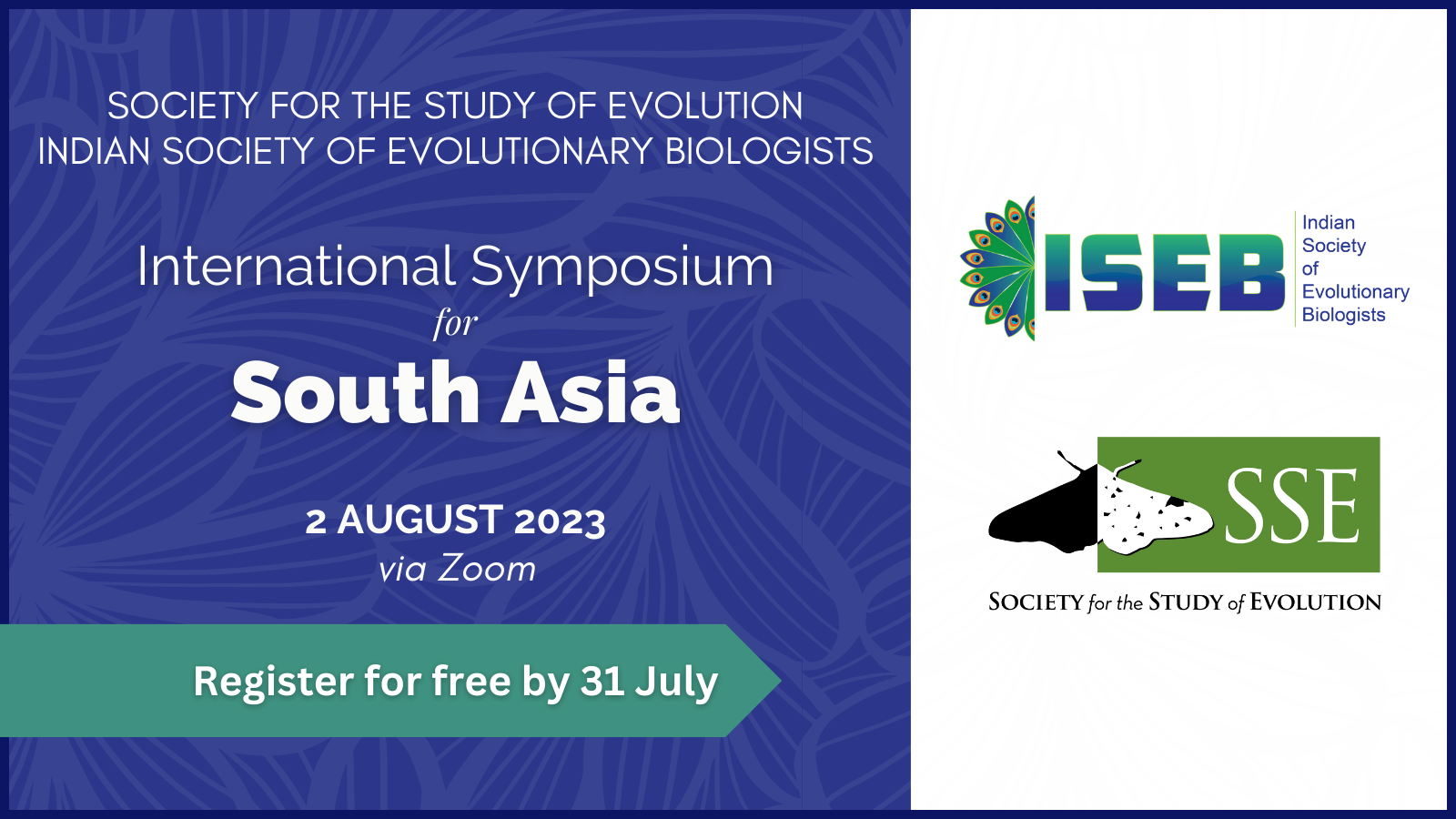
ABOUT | SPEAKERS | SCHEDULE | WORKSHOP| REGISTER
To celebrate the diversity of the international membership and strengthen ties with the global community of evolutionary biologists, the Society for the Study of Evolution (SSE) is hosting a free virtual series of international symposia in different languages and time zones.
The first SSE International Symposium was held in October 2022 and was aimed at the Spanish-speaking community in Latin America. The talks were in Spanish with simultaneous Spanish-English translation and they can be viewed here.
The second SSE International Symposium is for the South Asian community of evolutionary biologists and will be held on August 2, 2023 via Zoom. This symposium is organized in collaboration with the Indian Society of Evolutionary Biologists (ISEB). The symposium will be followed by a workshop on August 3 on how to publish in Evolution.
Registration for the symposium and workshop is free. Please sign up by Monday, July 31 to reserve your spot.
Speakers were selected through an open call and comprise six early career researchers (ECRs) and two senior researchers working in a diversity of disciplines.
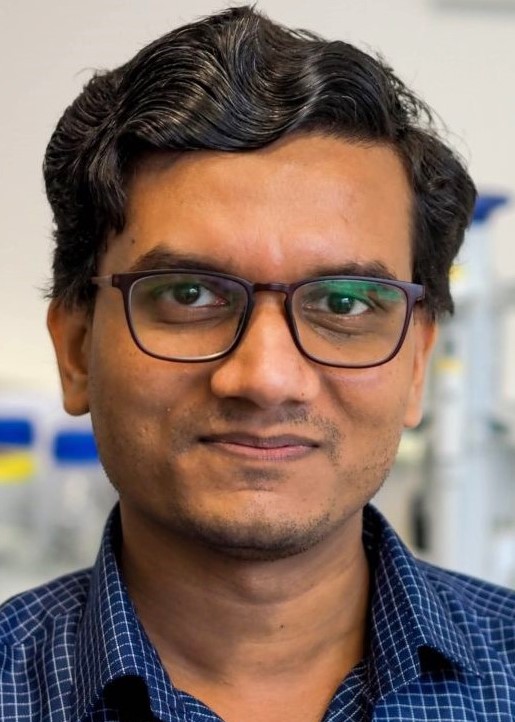 |
Vivek Keshri (He/Him, ;@DrVivekKeshri) is an Assistant Professor at India's REVA University in Bengaluru. His research centers around the study of beta-lactamases, particularly their identification and functional evolution. |
.jpg) |
Aritra Biswas (He/Him, ;@AritraB24401348) is a PhD candidate at the Centre for Ecological Sciences, Indian Institute of Science. He studies the historical biogeography and macroevolution of tarantulas. Broadly, he is interested in the processes that generate and maintain biological diversity over large timescales at both global and local levels. |
.jpeg) |
Mariam Mohammad Hashim (She/Her) is a Research Associate at Lahore Medical Research Center LLP. Her primary focus and expertise lie in conducting research using in-vitro and in-vivo modeling techniques. |
.jpg) |
Pratibha Sanjenbam (She/Her, ;@PSanjenbam) is a postdoc at the National Centre for Biological Sciences. Her work aims to understand the key ecological and evolutionary processes which govern the interaction of beneficial microbes with their host plants. |
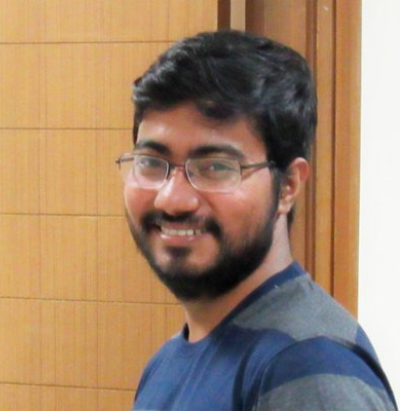 |
Sudipta Tung (He/Him, ;@sudiptatung) is a DBT/Wellcome Trust India Alliance Early Career Fellow at the Ashoka University, India. He studies the interplay between environmental factors and genotypic variations in shaping diverse phenotypic outcomes and population abundance. |
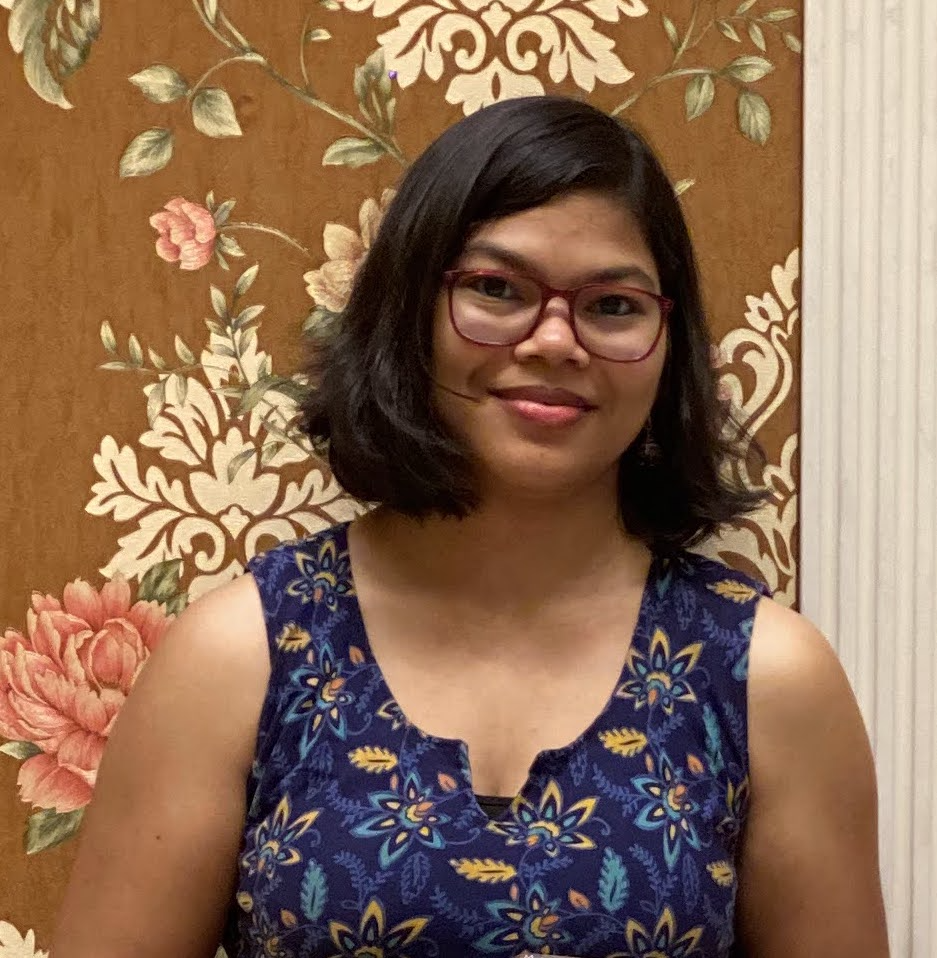 |
Ruchishree Konhar (She/Her, ;@ruchishreek) is a PhD candidate at the Institute of Genomics and Integrative Biology in New Delhi. She studies the evolutionary patterns of nuclear and organelle genomes of diverse organisms. |
| Eapsa Berry (She/Her, ;@berryeapsa) is a postdoc at Delhi University. She applies phylogenetic methods, plant morphological principles, and carries out ecological studies to deal with emerging evolutionary questions. | |
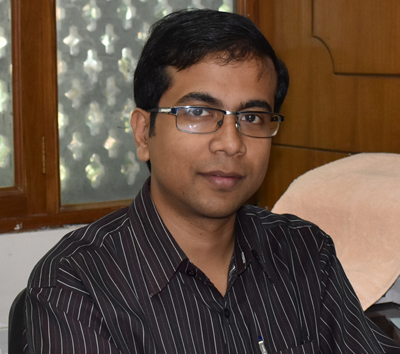 |
Riddhiman Dhar (He/Him, ;@DharRiddhiman) is an Assistant Professor at the Indian Institute of Technology Kharagpur. He studies the influence of genetic diversity and non-genetic heterogeneity on genotype-phenotype mapping. |
Talks will cover a diversity of study groups, research questions, and methodological approaches. Attendees will be able to ask questions to the speakers and the talks will be spaced by multiple breaks. In the last session, attendees will be able to interact with each other to discuss the challenges and opportunities of doing evolutionary biology research in South Asia.
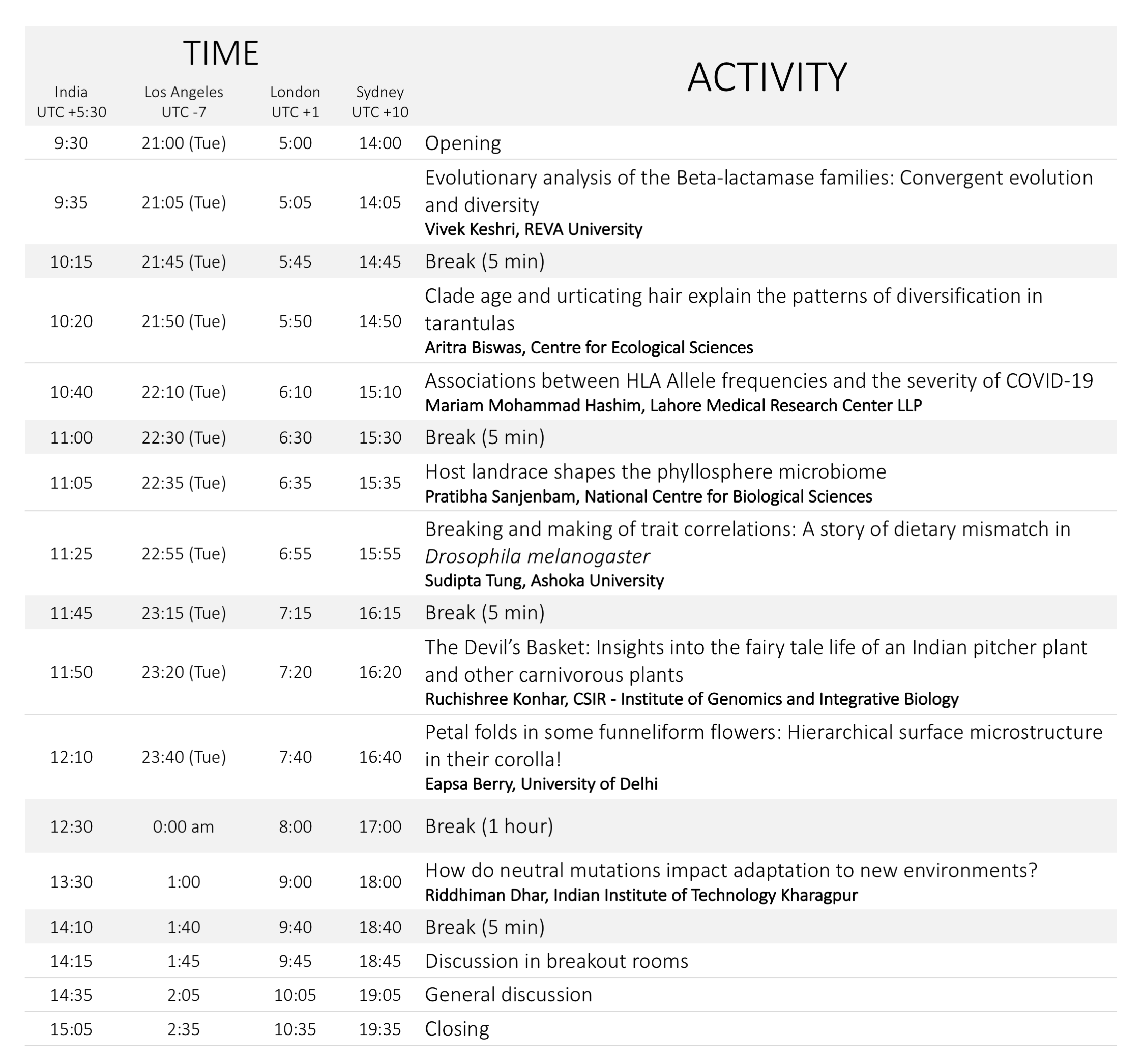
SSE will also offer a free virtual workshop on how to publish articles in Evolution. This workshop will be held the day after the symposium, on Thursday August 3, 2023, at 10:00 am Indian time and will be taught by three Associate Editors of Evolution:
In the first part of the workshop, participants will have the opportunity to discuss questions about how the journal's editorial process works. In the second part, participants will review a sample manuscript guided by the editors to identify the elements that contribute to the editorial success of a manuscript in Evolution.
This workshop is also an opportunity to discuss at length whether there are mismatches between the type of research that Evolution seeks to publish and the type of research that the evolutionary biology community in South Asia is pursuing, and how common ground can be found.
Registration for the symposium and workshop is considered an agreement to abide by Safe Evolution’s code of conduct. SSE is committed to creating an environment where everyone can participate without experiencing harassment, discrimination, or similar unwelcome, exclusionary behavior. All meeting participants must treat others with respect and consideration.
Registration for the symposium and workshop will be open until Monday, July 31, 2023 any time zone. To register, please fill out the following form: https://forms.gle/VPVVof1UKK5aUo7v7
Participants will receive an email in the days prior to the symposium and workshop with Zoom links.
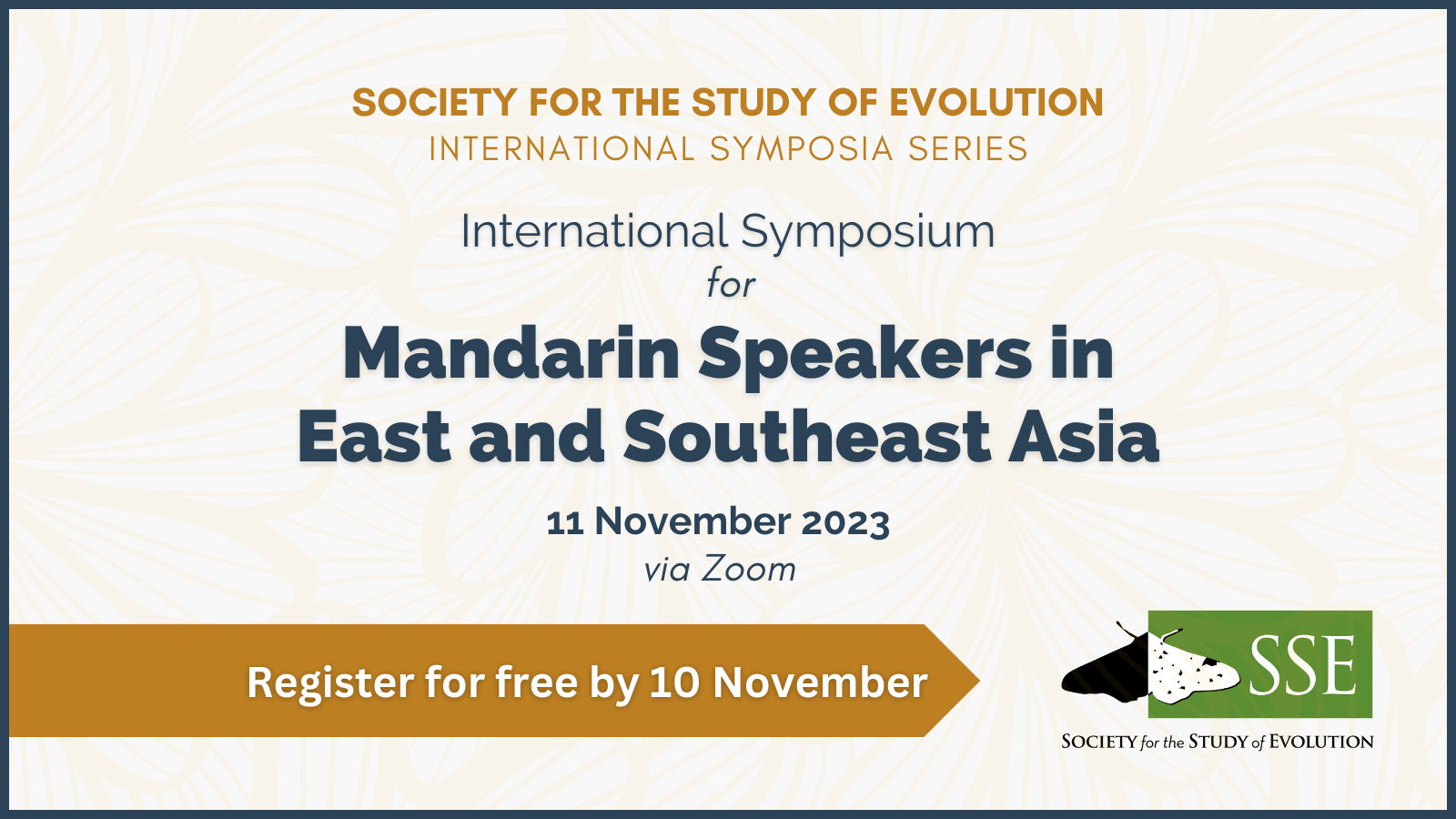
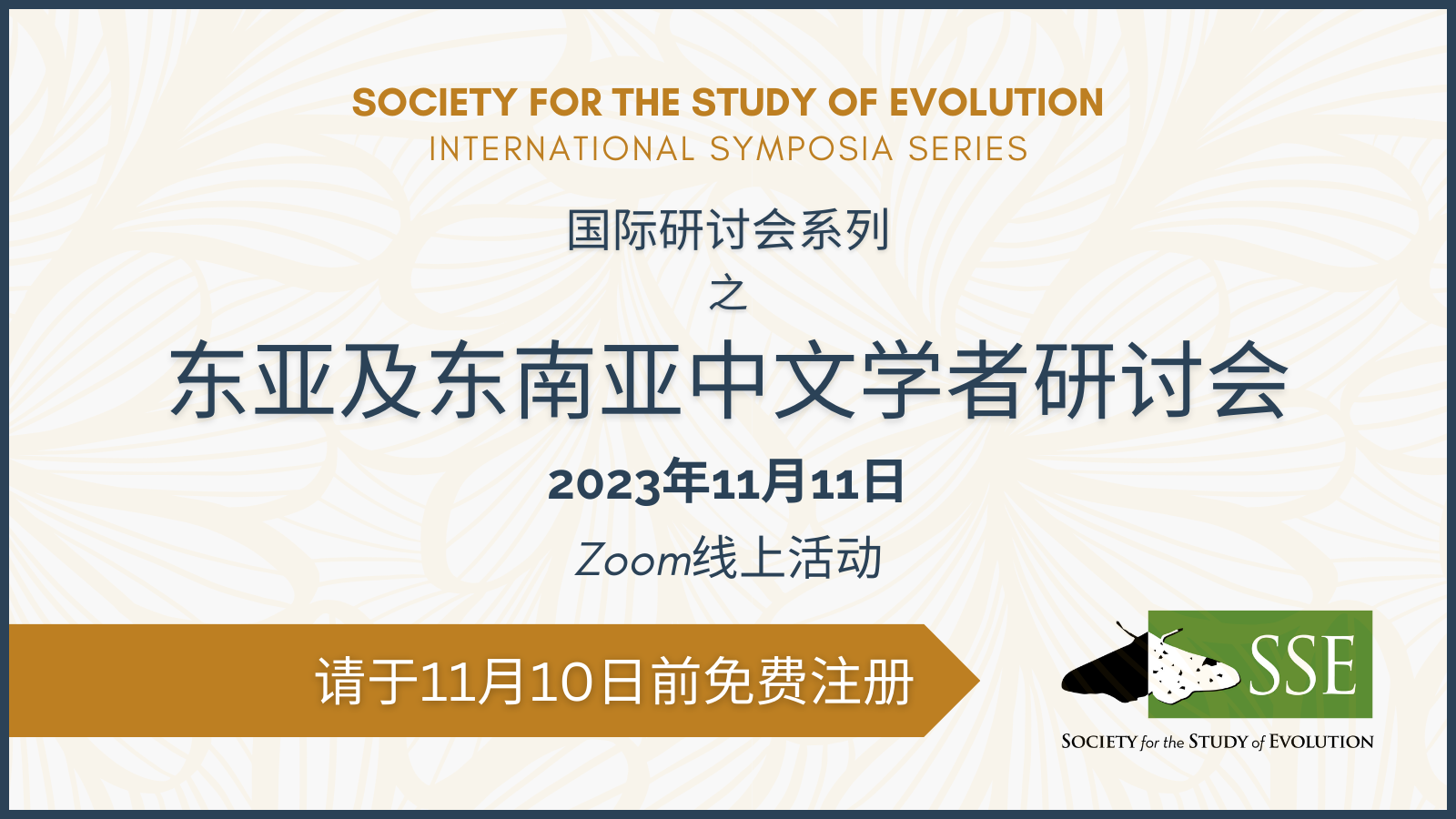
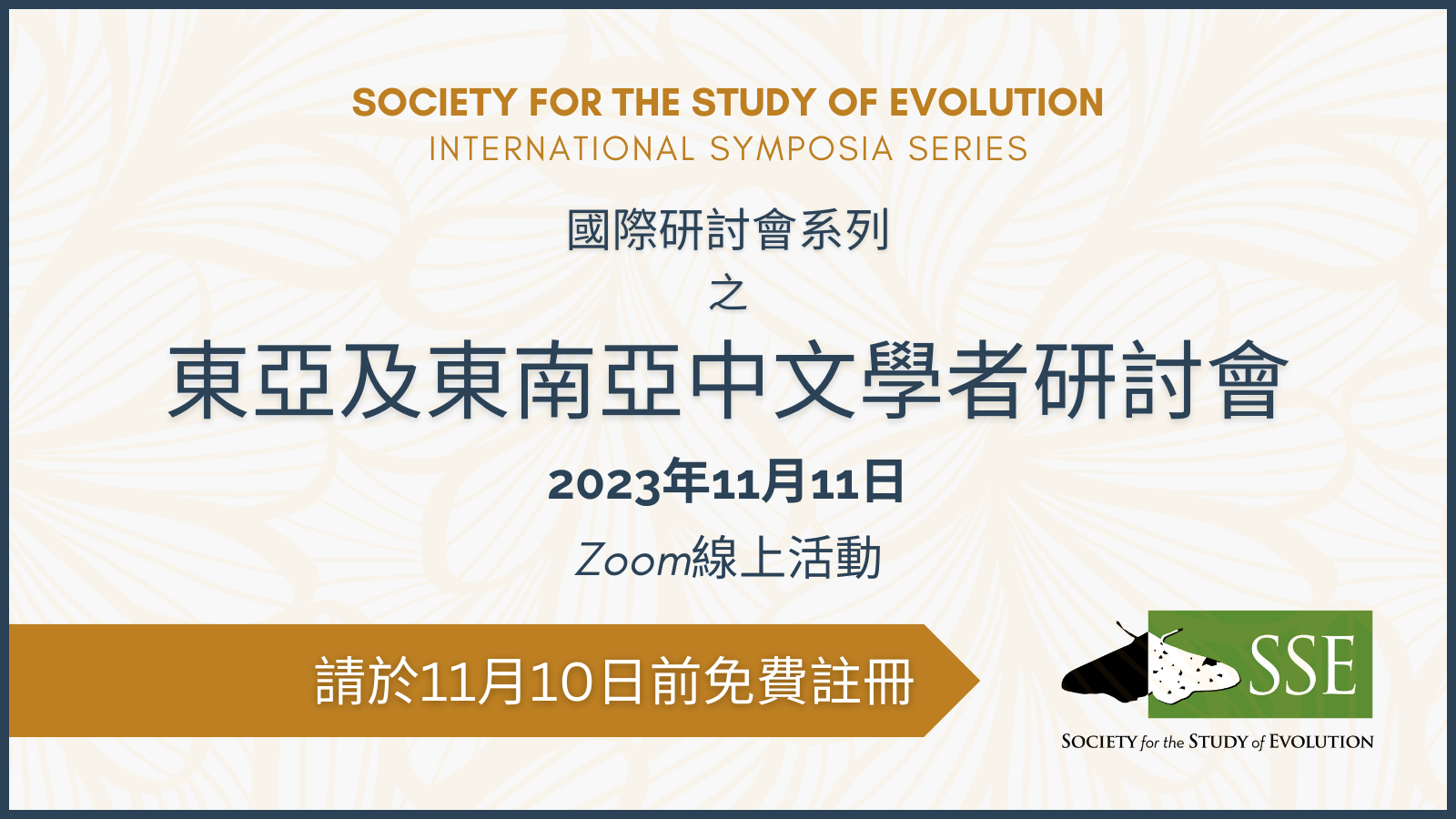
Speakers | Schedule | Panel on Publishing in Evolution | Code of Conduct | Registration
报告人 | 学术报告日程 | Evolution论文发表专家交流会 | 行为准则 | 注册
報告人 | 學術報告日程 | Evolution論文發表專家交流會 | 行為準則 | 註冊
To celebrate the diversity of the international membership and strengthen ties with the global community of evolutionary biologists, the Society for the Study of Evolution (SSE) is hosting a free virtual series of international symposia in different languages and time zones.
The first two SSE International Symposia were aimed at the Spanish-speaking community in Latin America and the evolutionary biology community in South Asia, respectively.
The third SSE International Symposium is for the Mandarin-speaking community of evolutionary biologists in East and Southeast Asia and will be held on November 11, 2023 via Zoom. Talks of this event will be in Mandarin with simultaneous translation to English. The symposium will be followed by a panel on November 13 on how to publish in Evolution.
Registration for the symposium and panel is free. Please sign up by Friday, November 10 to reserve your spot.
为了庆祝其国际成员的多样性并加强与全球进化生物学家社区的交流,SSE 正在组织一系列国际性研讨会。国际研讨会系列由为期一天的线上活动组成,提供免费注册,以不同的语言在当地时区举行
SSE国际系列研讨会的首次活动于 2022 年 10 月举行,主要面向讲西班牙语的拉丁美洲学术界。第二次活动于 2023 年 8 月举行,面向南亚学术界。
第三次活动将于 2023 年 11 月 11 日在Zoom线上举行,对象为东亚和东南亚讲中文的学者。本次研讨会的报告将以中文进行,并有英语同声传译。与会者可以用两种语言参加会议。
本次研讨会和专家交流会都是免费参与。请于11 月 10 日星期五之前注册以保留席位。
為了慶祝其國際成員的多樣性並加強與全球演化生物學家社群的交流,SSE 正在組織一系列國際研討會。國際研討會系列由為期一天的線上活動組成,提供免費註冊,以不同的語言在當地時區舉行。
SSE國際系列研討會的首次活動於 2022 年 10 月舉行,主要針對講西班牙語的拉丁美洲學術界。第二次活動於 2023 年 8 月舉行,針對南亞學術界。
第三次活動將於 2023 年 11 月 11 日在Zoom線上舉行,對象為東亞和東南亞講中文的學者。本次研討會的報告將以中文進行,並有英語同聲傳譯。與會者可以用兩種語言參加會議。
本次研討會和專家交流會都是免費參加。請於11 月 10 日星期五之前註冊以保留席位。
Speakers were selected through an open call and comprise six early career researchers (ECRs) and two senior researchers working in a diversity of disciplines.
报告人是通过公开征集选出的,由来自不同研究领域的六名事业早期阶段的学者 (ECR) 和两名相对资深的学者组成。
報告人是透過公開徵集選出的,由來自不同研究領域的六名事業早期階段的學者 (ECR) 和兩名相對資深的學者組成。
Kai Wei (He/Him) is an Associate Professor at Xinjiang University, where he studies the genomics of adaptation of wild plant populations under arid and semi-arid environments.
魏凯博士是新疆大学生命科学与技术学院副教授。他的主要研究方向是进化基因组学,以及干旱半干旱环境下野生植物种群的适应。
魏凱博士是新疆大學生命科學與技術學院副教授。他的主要研究方向是演化基因組學,以及幹旱半幹旱環境下野生植物種群的適應性。
 Qi Liu (She/Her) is a postdoc at Fudan University, where she studies the adaptive evolutionary mechanisms of human complex traits.
Qi Liu (She/Her) is a postdoc at Fudan University, where she studies the adaptive evolutionary mechanisms of human complex traits.
刘琪是复旦大学人类表型组研究院的博士后。她的研究方向是人类复杂性状的适应性进化机制研究。
劉琪是復旦大學人類表型組研究院的博士後。她的研究方向是人類複雜性狀的適應性演化機制研究。
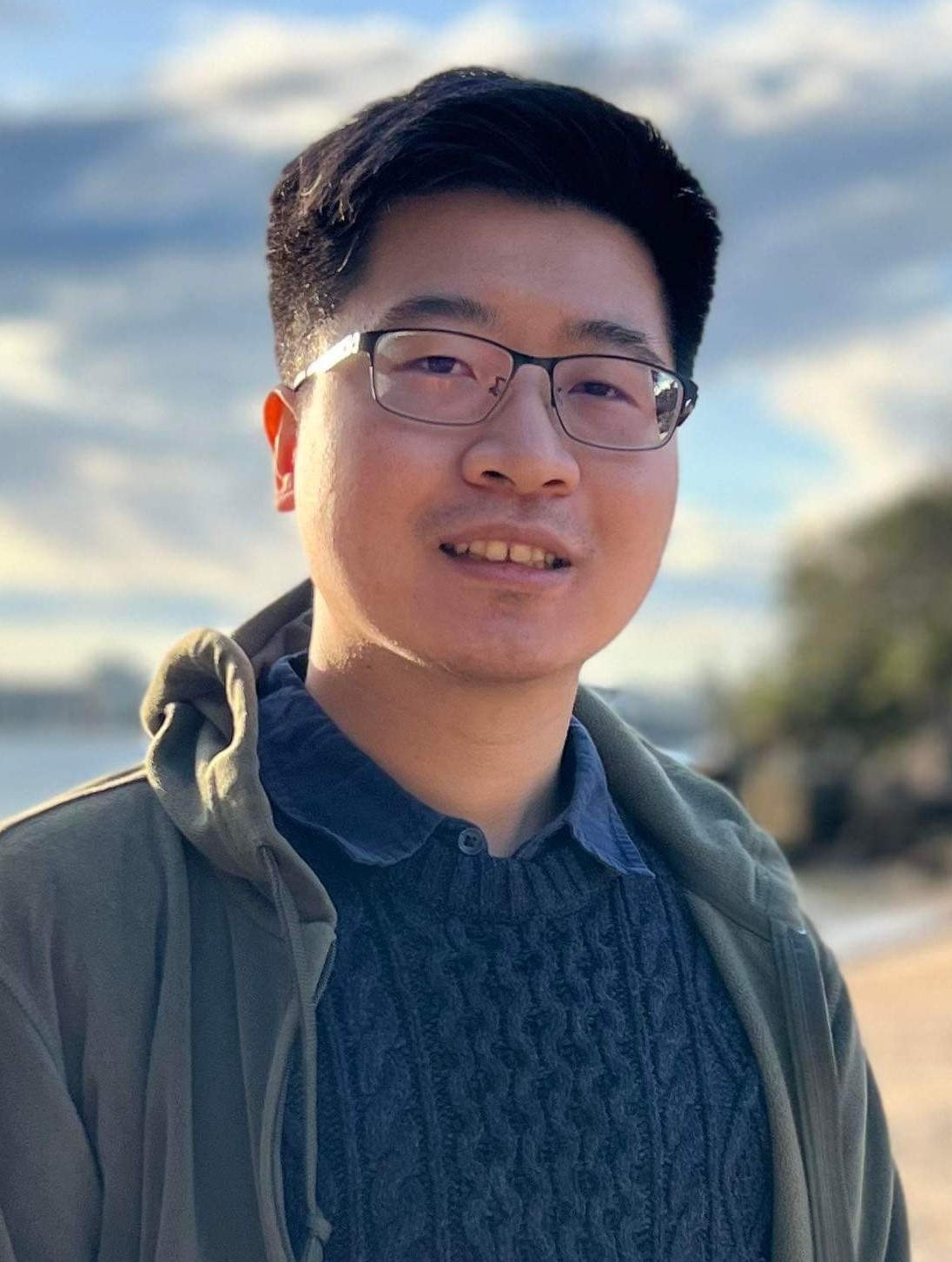 Yun Hsiao (He/Him, ;@YHsiaoBeetle) is a postdoc at the National Taiwan University, where he works on the systematics of beetles.
Yun Hsiao (He/Him, ;@YHsiaoBeetle) is a postdoc at the National Taiwan University, where he works on the systematics of beetles.
萧昀博士(;@YHsiaoBeetle)目前为国立台湾大学生态学与进化生物学研究所博士后研究员,萧博士是一名甲虫系统分类学家,他刚从澳洲国立大学和CSIRO澳洲国立昆虫馆完成博士学位,研究题目为澳洲苏铁传粉象甲之系统分类和进化。
蕭昀博士(;@YHsiaoBeetle)目前為國立臺灣大學生態學與演化生物學研究所博士後研究員,蕭博士是一名甲蟲系統分類學家,他剛從澳洲國立大學和CSIRO澳洲國立昆蟲館完成博士學位,研究題目為澳洲蘇鐵授粉象鼻蟲之系統分類和演化。
 Shengnan Zhang (She/Her) is a lecturer at Anhui Agricultural University, where she studies the biogeography of stag beetles and the factors that limit species niches and ranges.
Shengnan Zhang (She/Her) is a lecturer at Anhui Agricultural University, where she studies the biogeography of stag beetles and the factors that limit species niches and ranges.
张胜男,安徽农业大学讲师。她的主要兴趣是锹甲的生物地理学和确定限制物种生态位和范围的因素。
張勝男,安徽農業大學講師。她的主要興趣是鍬甲的生物地理學和確定限制物種生態位和範圍的因素。
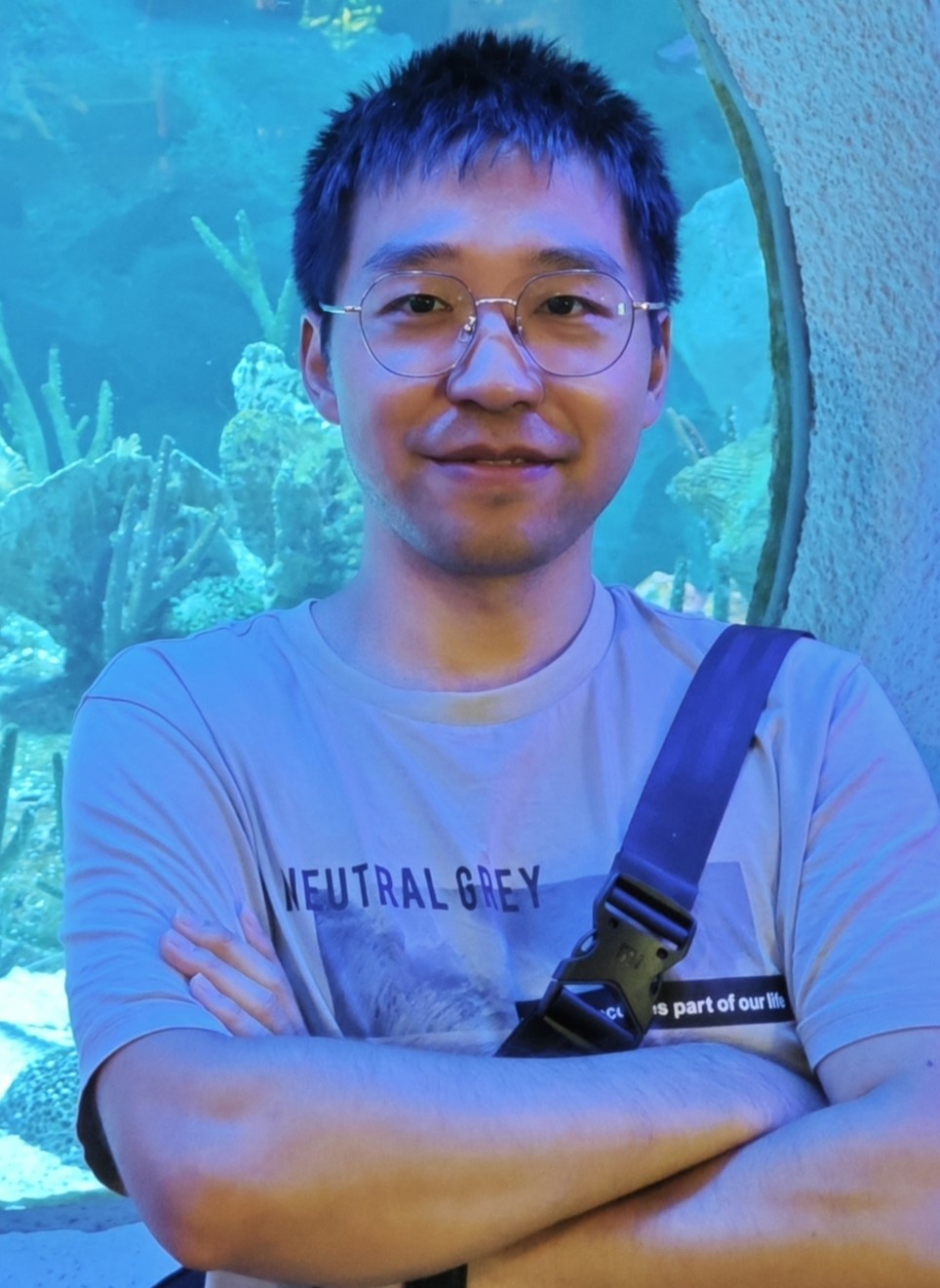 Xin Dang (He/Him, ;@XinDang4) is a postdoc at the University of Hong Kong, where he works on the long-term and transgenerational impact of ocean acidification on shellfish physiology, immunology, and adaptive plasticity.
Xin Dang (He/Him, ;@XinDang4) is a postdoc at the University of Hong Kong, where he works on the long-term and transgenerational impact of ocean acidification on shellfish physiology, immunology, and adaptive plasticity.
党欣,香港大学博士后,主要研究方向为长时程和跨世代海洋酸化对贝类(如牡蛎)生理,免疫和适应可塑性的影响。
黨欣,香港大學博士後,主要研究方向為長時程和跨世代海洋酸化對貝類(如牡蠣)生理,免疫和適應可塑性的影響。
 Xianting Huang (She/Her, ;@Tina61569249999) is a PhD student at the Institute of Zoology, Chinese Academy of Sciences, where she studies the single-cell transcriptome of spider embryos.
Xianting Huang (She/Her, ;@Tina61569249999) is a PhD student at the Institute of Zoology, Chinese Academy of Sciences, where she studies the single-cell transcriptome of spider embryos.
黄藓婷(;@Tina61569249999),目前是中国科学院动物研究所在读博士生,研究方向为蜘蛛胚胎单细胞转录组学、蜘蛛丝腺发育调控机制等。
黃蘚婷(;@Tina61569249999),目前是中國科學院動物研究所在讀博士生,研究方向為蜘蛛胚胎單細胞轉錄體學、蜘蛛絲腺發育調控機制等。
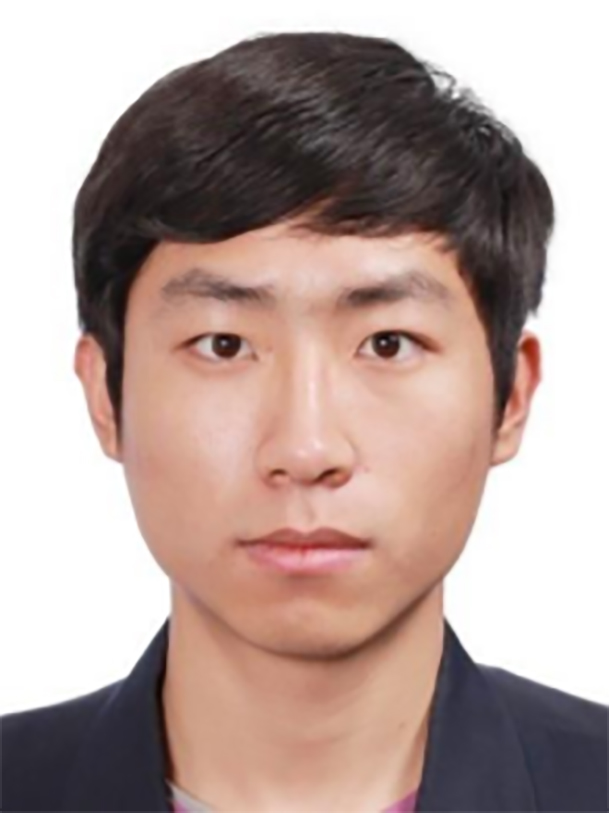 Bing Yang (He/Him, ;@BingYangHeart) is a PhD student at China Agricultural University, where he studies the evolutionary and developmental patterns of honeybees using multi-omics techniques.
Bing Yang (He/Him, ;@BingYangHeart) is a PhD student at China Agricultural University, where he studies the evolutionary and developmental patterns of honeybees using multi-omics techniques.
杨炳(;@BingYangHeart)是中国农业大学的在读博士生。他当前的研究方向是基于多组学技术的蜜蜂进化发育模式。
楊炳(;@BingYangHeart)是中國農業大學的在讀博士生。他當前的研究方向是基於多組學技術的蜜蜂演化發育模式。
 Shu-Miaw Chaw (She/Her) is a Distinguished Research Fellow at the Biodiversity Research Center of Academia Sinica, where she studies the comparative phylogenomics of seed plants inferred from plastid, mitochondrial, and nuclear genomes.
Shu-Miaw Chaw (She/Her) is a Distinguished Research Fellow at the Biodiversity Research Center of Academia Sinica, where she studies the comparative phylogenomics of seed plants inferred from plastid, mitochondrial, and nuclear genomes.
赵淑妙是台湾中央研究院生物多样性研究中心的杰出研究员。她的研究是从质粒、线粒体和核基因组推論种子植物的比较系统发育组学。
趙淑妙是台灣中央研究院生物多樣性研究中心的特聘研究員。她的研究是從質體、粒線體和核基因體推論種子植物的比較系統親緣關係。
Talks will cover a diversity of study groups, research questions, and methodological approaches and attendees will be able to ask questions to the speakers in either Mandarin or English. In the last session, attendees will be able to interact with each other to discuss the challenges and opportunities of doing evolutionary biology research in East and Southeast Asia.
学术报告内容将覆盖多种研究对象、研究问题和研究方法,与会者可以用中文或英语向演讲者提问。在最后一个环节中,与会者将能够自由互动,讨论在东亚和东南亚进行进化生物学研究的挑战和机遇。
學術報告內容將涵蓋多種研究對象、研究問題和研究方法,與會者可以用中文或英語向演講者提問。在最後一個環節中,與會者將能夠自由互動,討論在東亞和東南亞進行演化生物學研究的挑戰和機會。
SSE will also offer a free virtual panel on how to publish articles in Evolution. This panel will be held on Monday November 13, 2023 at 10:00 am China Standard Time. Participants will have the opportunity to discuss questions about how the journal's editorial process works with two Associate Editors of Evolution and one editor of the Evolution English Language Support Program (EELS):
SSE 还将提供一个免费的专家交流会,介绍如何在 Evolution 中发表学术论文。该交流会将于中国标准时间11 月 13 日星期一10:00 举行。参与者将有机会与 Evolution 的两名副主编和 Evolution 英语语言支持计划 (EELS) 的编辑讨论有关期刊编辑流程如何运作的问题:
SSE 也將提供一個免費的專家交流會,介紹如何在 Evolution 中發表學術論文。該交流會將於中國標準時間11 月 13 日星期一10:00 舉行。參與者將有機會與 Evolution 的兩位副主編和 Evolution 英語語言支援計劃 (EELS) 的編輯討論有關期刊編輯流程如何運作的問題:
Registration for the symposium and workshop is considered an agreement to abide by Safe Evolution’s code of conduct. SSE is committed to creating an environment where everyone can participate without experiencing harassment, discrimination, or similar unwelcome, exclusionary behavior. All meeting participants must treat others with respect and consideration.
注册参加本研讨会和专家交流会被视为同意遵守 Safe Evolution 的相关条例准则。 SSE 致力于创造一个人人都可以参与,不包含骚扰、歧视或类似的不受欢迎、排斥行为的环境。所有与会者必须尊重他人。
報名參加本研討會和專家交流會被視為同意遵守 Safe Evolution 的相關法規準則。 SSE 致力於創造一個人人都可以參與,不包含騷擾、歧視或類似的不受歡迎、排斥行為的環境。所有與會者必須尊重他人。
Registration for the symposium and workshop will be open until Friday, November 12, 2023 any time zone. To register, please fill out the following form: https://forms.gle/Gs15evxf26tXYHJHA
If you are unable to access the Google form above, please register via Qualtrics here.
Participants will receive an email in the days prior to the symposium and workshop with Zoom links.
研讨会和专家交流会的注册将开放至 2023 年 11 月 12 日星期五(任何时区)。如需注册,请填写以下表格:https://forms.gle/Gs15evxf26tXYHJHA
如果您无法访问上面的Google链接,请在此处通过Qualtrics注册。
与会者将在研讨会和专家交流会开始前几天收到一封包含 Zoom 链接的电子邮件。
研討會和專家交流會的註冊將開放至 2023 年 11 月 12 日星期五(任何時區)。如需註冊,請填寫以下表格:https://forms.gle/Gs15evxf26tXYHJHA
如果您無法訪問上面的Google鏈接,請在此處透過Qualtrics註冊。
與會者將在研討會和專家交流會開始前幾天收到一封包含 Zoom 連結的電子郵件。
These events are organized by SSE Graduate Student Advisory Committee, with the support from SSE International Committee and Diversity Committee.
SSE is also very grateful with the scholars based in East and Southeast Asia who have supported the organization of these events:
本次活动是由SSE研究生顾问委员会组织,并由SSE国际委员会和多元化委员会提供支持。
SSE还非常感谢以下来自东亚和东南亚的学者对本次活动的大力支持:
本次活動由SSE研究生顧問委員會組織,並由SSE國際委員會和多元化委員會提供支援。
SSE還非常感謝以下來自東亞和東南亞的學者對本次活動的大力支持:

SSE is pleased to announce the third round of the weekly virtual seminar series featuring recipients of our Graduate Research Excellence Grants (GREG).
This round’s speakers are recipients of the 2022 and 2023 GREG Rosemary Grant Advanced Award. They will present their research every Monday from 12:00 - 1:00 pm Eastern time, starting August 26 and running through November 18. Each talk will be 45 minutes, followed by 15 minutes for questions.
The seminar will be presented via Zoom: Click here to join
This series is organized by the Graduate Student Advisory Committee (GSAC) and hosted by GSAC and SSE Council.
We look forward to hearing about the outstanding research of these student award winners! Watch previous seminars on YouTube.
Want to receive a weekly email reminder about these talks? Sign up here.
August 26
Megan Molinari: "The evolution of the hormonal mechanisms underlying complex social behavior in a group of Mediterranean wrasses"
Advisor: Suzanne Alonzo, UC Santa Cruz
Talk Summary: I first present findings on how hormone manipulations impact the social behavior and fitness of a wrasse species with complex social behavior, Symphodus ocellatus. I then discuss ongoing research comparing neural gene expression of hormone receptors in 5 Symphodus species which, despite diverging recently, show large differences in social behavior. Together, these studies help us understand the role hormone expression plays in the evolution of complex social behavior.
Speaker Bio: Megan is a PhD candidate in Dr. Suzanne Alonzo’s laboratory at the University of California, Santa Cruz. She is interested in how highly conserved hormonal and neural mechanisms can contribute to the large diversity in social behavior observed in animal species.
September 2
HOLIDAY - NO SEMINAR
September 9
Laura Perez: "Investigating the role of evolutionary mismatch and gene-by-environment interactions in Type 2 Diabetes"
Advisor: Mary Shank, Penn State
Talk Summary: The evolutionary mismatch hypothesis proposes that genetic variants that were previously beneficial to fitness in a past environment and subject to positive selection may become ill-suited when that environment changes, leading to negative health consequences. Yet, the extent to which this phenomenon plays a role in the relatively recent increases in the rates of non-communicable diseases across many countries worldwide remains uncertain. In this talk, I present findings from a study that integrated genome-wide association data and evolutionary genomics statistics to examine the plausibility of the mismatch hypothesis for type 2 diabetes.
Speaker Bio: Laura is an MD/PhD student under the advisement of Dr. Mary Shenk and Dr. George Perry in the Department of Anthropology at Penn State University. Her research focuses on investigating non-communicable diseases through the lens of evolutionary medicine. That is, considering how our evolutionary history and current ecological and sociocultural environments impact chronic disease risk and progression.
September 16
Krish Sanghvi: "Is an old male doomed to fail?- Understanding male reproductive senescence"
Advisor: Irem Sepil, University of Oxford
Talk Summary: Is male reproductive senescence universal across animals? What components of the male ejaculate mediate reproductive senescence and is senescence only limited to a male's fecundity or can they also influence a father's offspring? My talk will answer these questions using meta-analysis and experiments on fruit flies.
Speaker Bio: I have recently finished my PhD in biology (on the causes and consequences of male reproductive senescence) from the University of Oxford under the supervision of Irem Sepil and Tommaso Pizzari. I will be starting a post-doc soon with Irem Sepil on the topic of sperm storage and how this influences sexual selection.
September 23
Brittany Velikaneye: "Heat-induced Reproductive Plasticity and its Underlying Molecular Mechanisms in the European Corn Borer Moth"
Advisor: Genevieve Kozak, U Mass Dartmouth
Talk Summary: Does heat induce changes in reproductive traits in insects and, if so, what are the mechanisms underlying this phenotypic plasticity? In my talk, I aim to provide answers to these questions by exploring two experiments using no-choice mating trials and genome-wide enzymatic methyl sequencing. I will conclude my talk with future directions based on the findings of my first two experiments.
Speaker Bio: Brittany is a PhD candidate in Integrative Biology in Dr. Genevieve Kozak's laboratory at the University of Massachusetts Dartmouth. Her research encompasses both ecology and genomics and examines the effects of elevated temperature on insect reproduction and the molecular mechanisms that drive these phenotypic changes.
September 30
Jeremy Summers: "The fitness impact of immigration in a population of Florida Scrub-Jays"
Advisor: Nancy Chen, University of Rochester
Talk summary: Gene flow is a fundamental force in evolution; however, its long-term impact depends on the fitness of new immigrants entering a population and their descendants. I investigate the demographic consequences of immigration and how fitness differences between immigrants and residents persist over generations in a natural population of the Federally Threatened Florida Scrub-Jay. This work explores the genetic and environmental mechanisms that underly genetic rescue, and contributes to our understanding of the evolutionary dynamics of small, isolated populations.
Speaker Bio: Jeremy is a PhD candidate in Dr. Nancy Chen's lab at the University of Rochester. They are interested in the consequences of anthropogenic landscape change on natural populations, and their research focuses on the demographic and genetic impacts of dispersal in cases of increased isolation.
October 7
Joshua Dominguez: "Unraveling the eco-evo causes and consequences of microbiome variation in aquatic ecosystems"
Advisor: Jonathan Shurin, UC San Diego
Talk summary: Classic models in ecology and evolution emphasize how species interactions such as competition and predation shape the structure of communities and evolutionary trajectories of organisms. However, symbioses between microbes (bacteria/archaea) and multicellular hosts have been increasingly recognized as relationships that can profoundly shape ecological and evolutionary processes. Many outstanding questions remain on the mechanisms that underly the structure and subsequent functioning of microbiomes. A considerable challenge in microbiome research is the immense amount of variation observed within and among host microbiomes over space, time, and environments. In this talk I aim to address this by examining two central questions: 1) What are the eco-evolutionary factors (the causes) that shape microbiome variation? and (2) What are the potential consequences of this variation for hosts and ecosystems? I will present my dissertation research that aims to answer these questions through the lens of freshwater ecosystems across an array of hosts from zooplankton consumers to fish predators.
Speaker Bio: I am a PhD Candidate in the department of Ecology, Behavior, and Evolution at the University of California, San Diego in Jonathan Shurin’s aquatic ecology laboratory. Prior to joining the Shurin lab in 2021, I graduated from the University of Miami with a degree in Marine Science and Biology where I studied invertebrate physiology and invasion ecology in patch reef ecosystems. My broad interests lie at the intersection of evolutionary ecology, metacommunity ecology, biogeography, and symbioses. With my dissertation I aim to understand how host-associated and free-living microbial communities (i.e. microbiomes) are shaped by and subsequently influence emergent higher order processes including host ecology, host adaptation, and ecosystem functioning.
October 14
Matías Gómez-Corrales: "Speciation and Heat Tolerance across Depth Gradients in in Reef Corals"
Advisor: Carlos Prada, University of Rhode Island
Talk Summary: I study the speciation and adaptation of Orbicella coral species in the Caribbean across varying depths, uncovering genetic and physiological variations that enable these corals to thrive in diverse environments. By exploring these depth-related adaptations and their implications for thermal tolerance, I aim to gain valuable insights into resilience and conservation strategies for coral reefs in the face of global warming.
Speaker Bio: I am a Ph.D. candidate at the University of Rhode Island, specializing in coral conservation genomics. My research integrates coral genetics and phylogenetics to understand the distribution and adaptation potential of corals in the Caribbean, addressing critical trends in coral resilience to global warming.
October 21
Yasmeen Erritouni: "Towards a phylo(genetic) understanding of avian iridescence"
Advisor: Adam Leache, University of Washington
Talk Summary: Feather iridescence, eye-catching to humans and birds alike, is crucial for signaling and physiological functions. Yet the evolutionary origins and molecular bases of this trait remain elusive to researchers of structural color. With the Strisores (nightbirds, swifts, and hummingbirds) as a focal taxon, I explore nanostructural and transcriptomic data to identify how iridescence may have arisen from non-iridescent black plumage.
Speaker Bio: Yasmeen (they/them) is a PhD candidate in the Biology Department at the University of Washington and an NIH/NHGRI Genome Training Grant fellow. They have studied pigment-based and structural coloration in reptiles, birds, and avian dinosaurs. Their interests span diverse topics in macro- and microevolution, genomics, biophotonics, queer theory, and the relationship between society and science. Yasmeen is seeking a postdoctoral position in which they can integrate some or all of these topics.
October 28
Amanda Vieira da Silva: "Unveiling the hidden costs: the role of indirect costs on the evolution of mutualistic traits"
Advisor: Laura Leal, Federal University ABC, Brazil
Talk summary: Species are involved in multiple mutualistic interactions simultaneously. What happens to the focal species when there is a conflict between their partners, especially to the evolution of traits mediating these interactions? I will talk a little bit about the effect of protective ants on plants pollinated by bees and how these interactions affect extrafloral nectaries (a gland that secrets extrafloral nectar and attracts ants) and buzz-pollinated flowers.
Speaker Bio: I'm a PhD candidate at Laura Leal's lab. I'm interested in the ecology and evolution of mutualisms, especially pollination and plant defense costs.
November 4
Megan Barkdull: "Evolutionary insights from complex traits in ants"
Advisor: Corrie Moreau, Cornell
Talk Summary: Phenotypic plasticity- the production of multiple phenotypes from a single genomes- is widespread, often adaptive, and poorly understood. Using developmental transcriptomics and comparative genomic approaches, my research explores this topic by focusing on turtle ants (genus Cephalotes), which produce two discrete worker morphs from identical genomes. Better understanding of this and similar polymorphisms will advance our knowledge of how novel adaptive traits arise and evolve.
Speaker Bio: Megan Barkdull is a Ph.D. candidate at Cornell University and incoming Assistant Curator of Entomology at the Natural History Museum of Los Angeles County. Her research focuses on the evolution and development of complex traits in insects, especially ants; she is also interested in natural history collections-based research and reproducible research principles.
November 11
Shelby Tisinai: "Do populations evolve by altering the frequency of alleles or their expression? Hypothesis tests in a mountain crucifer across an elevation gradient"
Advisor: Jeremiah Busch, Washington State
Talk summary: Understanding the drivers and mechanisms behind local adaptation is a major goal in evolutionary biology. To clarify the relative importance of constitutive gene expression for local adaptation, we sequenced total-RNA from five populations of Boechera stricta originally from a steep elevational gradient in the southern Rocky Mountains. With these and previously collected data, we ask if local adaptation is predominantly facilitated through diverging allele frequencies or diverging constitutive gene expression and (2) if genes with significantly divergent constitutive expression may be predicted based on functionality and environmental factors.
Speaker Bio: Shelby is a 6th year Ph.D. Candidate in the Busch Lab at Washington State University. Hailing from Colorado, USA, she has always been interested in mountain ecosystems and how plants respond to their environment. After completing her Ph.D., she hopes to continue to research how plant populations respond to a rapidly changing environment.
November 18
Haley Carter: "Causes and consequences of floral scent diversity in a rare evening primrose"
Advisor: Norm Wickett, Northwestern
Talk Summary: The strong scent of the night-blooming plant Oenothera harringtonii is composed of 35 volatile organic compounds and is strikingly variable across the species range in the common scent compound linalool. In this talk, I explore potential causes and consequences of variation in floral scent including interactions with both pollinating and predating insects, different modes of inheritance between compounds, and genes potentially underlying this variation.
Speaker Bio: Haley Carter is finishing her PhD in Plant Biology at Northwestern University and the Chicago Botanic Garden. The computational and data science skills she has honed working on this dissertation have led her to a role as a computational biology specialist at Northwestern where she teaches workshops and supports the Genomics Compute Cluster. She intends to continue assembling plant genomes in addition to working on biomedical projects at Northwestern.

The American Society of Naturalists, Society of Systematic Biologists, and the Society for the Study of Evolution collaboratively developed their Codes of Ethics and accompanying enforcement procedures, much like the earlier Code of Conduct they jointly created for the tri-society Evolution meetings. The three societies also currently share a third party Investigatory Agent service that helps handle Code of Ethics complaints (details below). This tri-society shared page reflects these joint endeavors, and includes the CoE and enforcement procedures for each of the societies (which differ in very minor ways). As with the Evolution meetings, as the largest of the three societies the SSE takes on the majority of the administrative tasks, including maintaining this page and being primary point of contact for contracts.
Scientific societies play a critical role in setting and upholding standards of excellence in the field.
To foster a vibrant society that is welcoming to everyone, standards of excellence must encompass:
Until now, our professional societies have operated with an uncodified understanding of professional and ethical conduct. The problem with unstated rules is that different people can have a different understanding of what is appropriate.
For example, if a professor is fired for violating a university's policies on sexual harassment and sexual discrimination, should they be eligible to serve as editor of a society journal, considered for a society award, or as a candidate for president of the society? What information will be used in making this determination, what will the process be, and who has the authority to make a decision? Having clear standards and procedures in place that have been vetted by lawyers provides societies with a transparent and fair process for addressing these real world examples of misconduct.
This Code of Ethics makes explicit our shared standards of professional ethics and establishes a transparent process for upholding them.
After reviewing numerous existing societal codes of ethics, drawing on resources and templates outlining best practices from the AAAS Societies Consortium on Sexual Harassment in STEMM, and going through several rounds of expert legal review, a joint-society committee has created a robust system that is transparent in its process, removes conflicts of interest in its implementation, and will result in appropriate sanctions when needed.
An enforcement process for severe breaches of conduct, that includes sanctions and legal protections for those involved in the process of upholding the Code of Ethics, is critical for providing accountability. There are also provisions for less formal means of resolution that focus on community building, education, and restorative actions.
This Code of Ethics dovetails with the already implemented Code of Conduct for Evolution meetings to provide a means of addressing ethical conduct in professional settings outside of the society-sponsored annual meeting.
We believe that this Code of Ethics is one step towards making sure that everyone:
Membership in the Society for the Study of Evolution (SSE) is a privilege open to all who want to contribute to the study of evolutionary biology. Members are expected to behave in a manner that is consistent with SSE’s values and goals. As such, members are expected to adhere to SSE’s Code of Ethics:
1. In interactions with research and professional communities
2. In interactions with governments, institutions, and researchers
3. In interactions with the public
All members of Society for the Study of Evolution, as a condition of membership, agree to abide by the SSE Code of Ethics.
1. In interactions with research and professional communities
2. In interactions with governments, institutions, and researchers
3. In interactions with the public
Members of the SSB have the right to criticize their colleagues, but they endeavor to do so without personal animus and without seeking to intimidate or coerce. Freedom of expression is crucial to the community of scientific practice, but such expression should not be used to bully or demean others.
1. Interactions with research and professional communities
2. Interactions with governments, institutions, and researchers
3. Interactions with the public
Members of the ASN have the right to criticize their colleagues, but they endeavor to do so without personal animus and without seeking to intimidate or coerce. Freedom of expression is crucial to the community of scientific practice, but such expression should not be used to bully or demean others.

Acronyms: Investigatory Agent (IA), Ethics Review Committee (ERC)
To make a suggestion for the future modification of the Code of Ethics or Enforcement Policy, email communications@evolutionsociety.org. Please include which society or societies you belong to.
To whom does the Code of Ethics apply?
The code applies to all members of the societies, and all individuals who participate in society-sponsored activities or provide services to the societies. These include elected and appointed leaders and committee members; nominees for, and holders of, honors and awards; and editorial boards of society journals and authors who publish in society journals. The Code of Conduct governs society-sponsored meetings. Anyone who engages in activities sponsored by the society, or joins the society, opts in to the Code of Ethics.
Can a complaint be filed against someone who is not a member of the societies?
Each society’s Ethics Review Committee has discretion whether to accept complaints against non-members of the society who were members at the time of the alleged unethical conduct or whose membership, role, or relationship with the societies has recently lapsed, as well as individuals who participate in society-sponsored activities or provide services to the societies.
Can a complaint be filed about someone’s personal conduct?
Violent, illegal, or otherwise unethical misconduct in personal affairs can be considered if it casts serious doubt on one’s ability to uphold professional ethical standards. However, legal conduct in an individual’s intimate personal relationships does not violate the code so long as the conduct is not undertaken in a society or other professional activity or role.
Should a complaint relating to publication ethics be directed to the journal or this COE?
Complaints relating to publication ethics should be directed to the journal. Society journals are members of the Committee on Publication Ethics. The editor of a society-owned journal may initiate a complaint by referring the matter to the Investigatory Agent when there has been a determination of a violation of publication ethics.
Does the Code of Ethics obligate me to report something?
Reporting is strongly encouraged when an observer is in a position to do so in a manner they believe is safe for them. However, failure to report an incident does not constitute a breach of the Code of Ethics.
Can the society use results from investigations conducted by other entities?
The Ethics Review Committee and Executive Committee may use information gathered by other entities when it is available. However, all determinations are solely at the discretion of the society.
What if someone makes an intentionally false accusation?
Intentionally false, malicious, or groundless complaints violate the Code of Ethics and could result in sanctions.
Should complaints related to society journals be submitted here or to the journal publisher?
COPE guidelines cover society journals, and the Code of Ethics will apply to anything beyond the scope of COPE. Complaints under the Code of Ethics could also affect society activities unrelated to the society journals, even if the complaint was related to the journal.
Why does each society have a separate Code of Ethics?
Legally, the societies are separate entities from one another. Therefore each society has its own Code of Ethics and any complaints submitted to more than one society will be evaluated independently.
Who is on the Ethics Review Committee?
The Ethics Review Committee for SSE is chaired by the Past President and includes four other SSE members who are appointed by the President-Elect, with the approval of elected Council. The Ethics Review Committee for SSB is chaired by the Past-President and includes eight other SSB members who are appointed by the President-Elect, with the approval of elected Council. The ASN Ethics Review Committee is chaired by the Past-President of ASN’s Executive Council and includes four other ASN members. Once formed, the committee for SSE will be able to be viewed here, the committee for SSB will be able to be found here, and the committee for ASN will be able to be viewed here.
Who is on an Adjudication Committee?
An Adjudication Committee is composed of the Chair and two other members of the Ethics Review Committee. The Chair selects two members, in consultation with the Investigatory Agent to avoid conflicts of interest.
Who is the Investigatory Agent?
The ASN, SSB and SSE have jointly contracted with Grand River Solutions, Inc. to provide Investigatory Agent services for our CoE's. Grand River Solutions is a service provider dedicated to helping campuses and communities develop effective, practical and sustainable responses to equity issues (e.g., US Title IX and Clery Act compliance). Their services include conducting investigations, hearings, and appeals; formal and informal resolution; training; process and policy assessment; diversity, equity, and inclusion (DEI) training and consulting; mentoring/coaching, and more. Grand River Solutions' founders and practitioners come from a background of education, law, human resources, technology, and non-profit service.
What is the role of the Investigatory Agent?
The role of the Investigatory Agent is to receive complaints, perform initial reviews and investigations regarding whether the claim is credible, forward an initial recommendation (with supporting rationales) to the Ethics Review Committee as to how a complaint should be handled, conduct IA-led resolutions, and conduct further investigations as directed by an adjudication committee. Once an adjudication committee is formed, all final decisions rest with the societies’ elected leaders.
What happens if the Ethics Review Committee disagrees with the recommendation of the Investigatory Agent?
If the IA recommends dismissal, but the Ethics Review Committee disagrees with the recommendation, it will ask the IA to form an Adjudication Committee or conduct an IA-led resolution process.
If the IA recommends adjudication, but the Ethics Review Committee unanimously disagrees, the complaint will be dismissed or the Ethics Review Committee will direct the IA to lead a resolutions process. The Ethics Review Committee may also rely on a determination made by an outside authority rather than directing the IA to conduct an investigation.
Can I file an anonymous complaint?
Yes, but if insufficient information is provided in or attached to the complaint to enable an investigation, it may be dismissed by the Investigatory Agent.
Can I file a verbal complaint?
Complaints must be submitted using the official complaint form. However, you may reach out to the Investigatory Agent, a member of the Ethics Review Committee, or any member of the society Governing Council to discuss a conduct concern prior to submitting a complaint.
If I file a complaint, will my name be made known to the person I accuse?
The societies seek to maintain confidentiality of the substance and process for resolving Complaints and conduct concerns. Except as specified in Section VII (confidentiality exceptions), the names and identities of complainants, identified targets if other than the complainant, respondents, and any other key persons shall be kept confidential. However, confidentiality does not ensure anonymity. The Chair or President may notify the respondent about a complaint or concern and their ability to respond, a determination, the right to appeal, and the determination of an appeal.
How will confidentiality be protected?
All records related to the complaint, investigation, and adjudication will be maintained by the Investigatory Agent (IA) in a secure, confidential format. The IA may provide confidential information to others involved in any capacity in an investigation or review of a complaint or conduct concern (for example, members of an adjudication committee), but in doing so the IA will remind those who receive the information of their confidentiality obligation.
Who will be notified of the outcome of an investigation?
After the Executive Committee has made a final determination, the society President will inform the complainant, any identified targets of the unethical conduct who are not the complainant, and the respondent of the decision and any actions to be imposed. The society President may also notify the home institution of a respondent.
Nominations, including self-nominations, for society awards and prizes will include a requirement to disclose whether or not the nominee has been the subject of an investigation or violation of the Code of Ethics. If a nominee indicates that they have been the subject of an investigation or violation of the Code of Ethics, the award committee will discuss the matter with the Investigatory Agent and make a judgment as to whether to consider the nominee for the award.
A confidential archive of complaints will be maintained for the Ethics Review Committee, in the same way as for the Evolution meeting Code of Conduct.
What happens after I file a complaint?
A graphical overview of the process for receiving complaints is viewable above. The complaint form is received by the Investigatory Agent (IA), who will conduct a preliminary review to determine whether to recommend to the Ethics Review Committee Chair that the complaint should be addressed in an IA-led process, dismissed without notifying the Respondent, or referred to an adjudication committee.
What would lead to a complaint being immediately dismissed?
Complaints may be dismissed if (1) the complaint form is incomplete, (2) the complaint is patently frivolous or otherwise without merit, (3) there is insufficient information provided with the complaint to enable an investigation, or (4) if the complaint is directed against an individual who is not covered by the Code of Ethics or concerns an issue that is not within the scope of the Code of Ethics.
How will it be decided if a complaint is handled informally (directly by the IA) or formally (via an adjudication committee)?
The goals of an IA-led process are education, community-building, repair of relationships, and restoration of inclusion, rather than punishment. Appendix B outlines the criteria for an IA-led process, which include considerations about the nature and severity of the conduct concern, lack of a pattern of ongoing recurrence, a commitment to avoid repetition, and both the accused and any identified targets agreeing that it is unnecessary to determine via adjudication whether the Code of Ethics has been violated.
What sanctions might result from a determination?
Examples of disciplinary and remedial actions are outlined in Section VI. These include mediation, private reprimand, public or private apology, notification of home institution, denial of society membership privileges, suspension of publication rights, denial of editorial activities, revocation of honors and awards, removal from office or nomination, and termination of membership.
Can sanctions be imposed before an outcome is determined?
Yes, Appendix C outlines when and how short-term actions can be taken if there are serious concerns about safety or disruption of society activities.
Can I appeal an outcome?
Yes. A respondent, complainant, or identified target of unethical conduct may appeal the decision and any sanctions imposed under certain circumstances. Appeals will be considered by an Appeal Board, consisting of three people appointed by the society president from the society council.
Could something that happened a long time ago be the subject of a complaint?
There is no time limit on conduct that could be the subject of a complaint.
How long does this process take?
This will depend on the details of the complaint, including the length of time it takes for the Investigatory Agent to conduct investigations and whether an adjudication committee is convened. Two key points have a 30-day response period (with allowance for exceptions): for the respondent to reply to the Investigatory Agent, and for any involved party to submit an appeal.

The SSE Graduate Student Advisory Committee (GSAC) is excited to announce the 2025 Evolution Art & Photography Competition and Exhibition. Students and postdocs from around the world are invited to submit evolutionary biology-themed artwork or photography for a chance to win an award and be highlighted as the best evolution art/photography. If selected as finalists, you will be invited to present your art or photography at a live virtual event hosted on Gather.Town in June.
Submission Deadline:
11:59 PM Eastern Time (UTC−05:00), May 15th, 2025
To celebrate the diversity of its early-career professional members and strengthen connections within the global evolutionary biology community, SSE GSAC is hosting the 2025 Evolution Art/Photography Competition. This competition invites graduate students and postdocs to submit their best artwork or photography of the year, with the opportunity to receive recognition and prizes.
To enter the competition, post your art/photograph on Bluesky with the following elements:
Use the hashtag #EvoArt2025 (for art) or #EvoPhoto2025 (for photography).
Tag ssegrad.bsky.social on Bluesky in the post.
Include the title of your art or photograph.
Note: All three elements are required for valid registration. You may also include any additional information about your artwork or photography in your post.
Important Note
By posting your art/photograph to submit it for this competition, you agree to grant SSE permission to use your artwork or photograph for promotional purposes related to this event.
Contact gsac [at] evolutionsociety.org with any questions.
Deadline: 11:59 PM Eastern Time (UTC−05:00), May 15th, 2025.
Submissions will be ranked based on the number of likes they receive on Bluesky. The top 10 posts for art and the top 10 posts for photography will move on to the second round as finalists. All finalists will receive a free one-year SSE membership.
Finalists will present their art or photography at a live event hosted on Gather.Town on June 7th, 2025. A panel of 100 evaluators from around the world—professionals actively working in the field of evolutionary biology—will review the art and photography finalists. During the event, finalists will have the opportunity to share the story behind their work in an exhibition session. The event will also feature a networking component and will conclude with an award ceremony.
The Best of Show in Photography and Best of Show in Art will each receive a $200 USD honorarium.
The Best of Show award winners will be featured in a special media post on the SSE website and social media.
"Beyond XX and XY: The Extraordinary Complexity of Sex Determination"
Amanda Montañez, Scientific American, September 1, 2017
https://www.scientificamerican.com/article/beyond-xx-and-xy-the-extraordinary-complexity-of-sex-determination/
"Sex redefined"
Claire Ainsworth, Nature volume 518, pages 288–291 (2015)
https://www.nature.com/articles/518288a